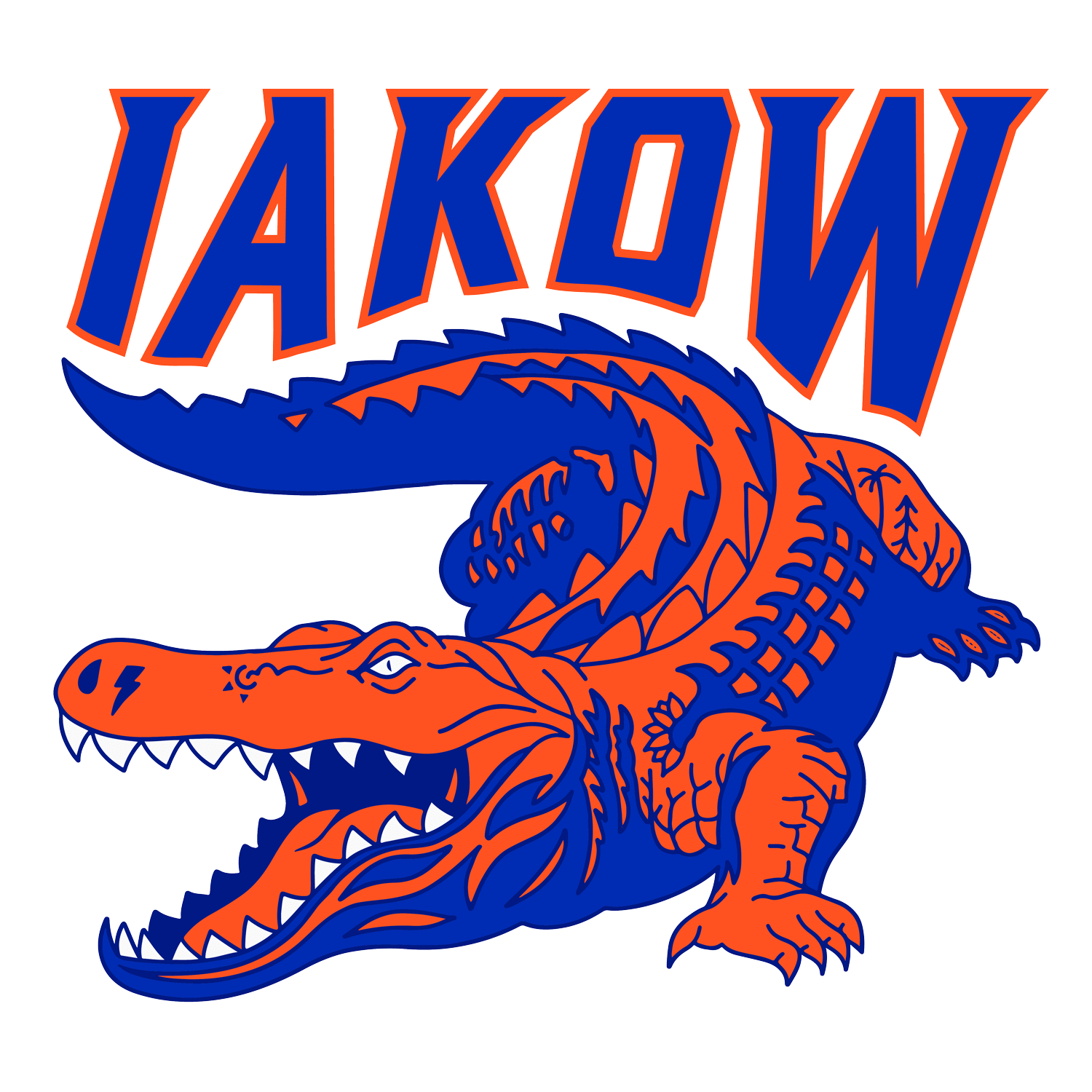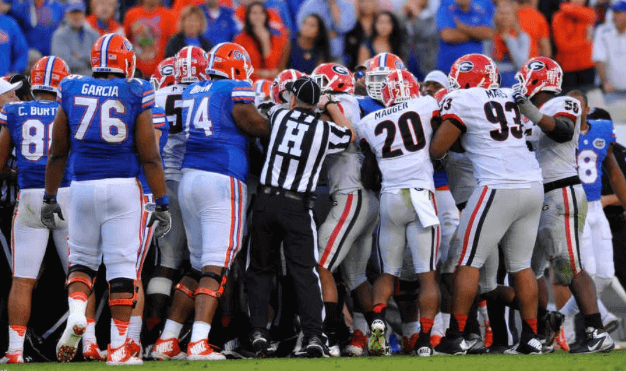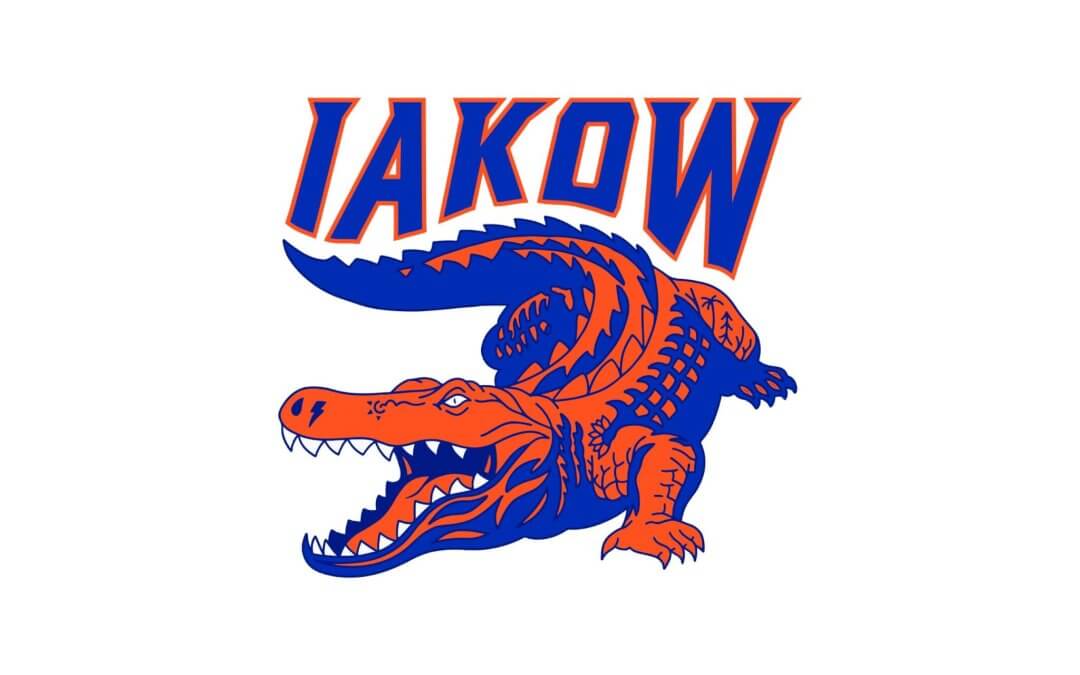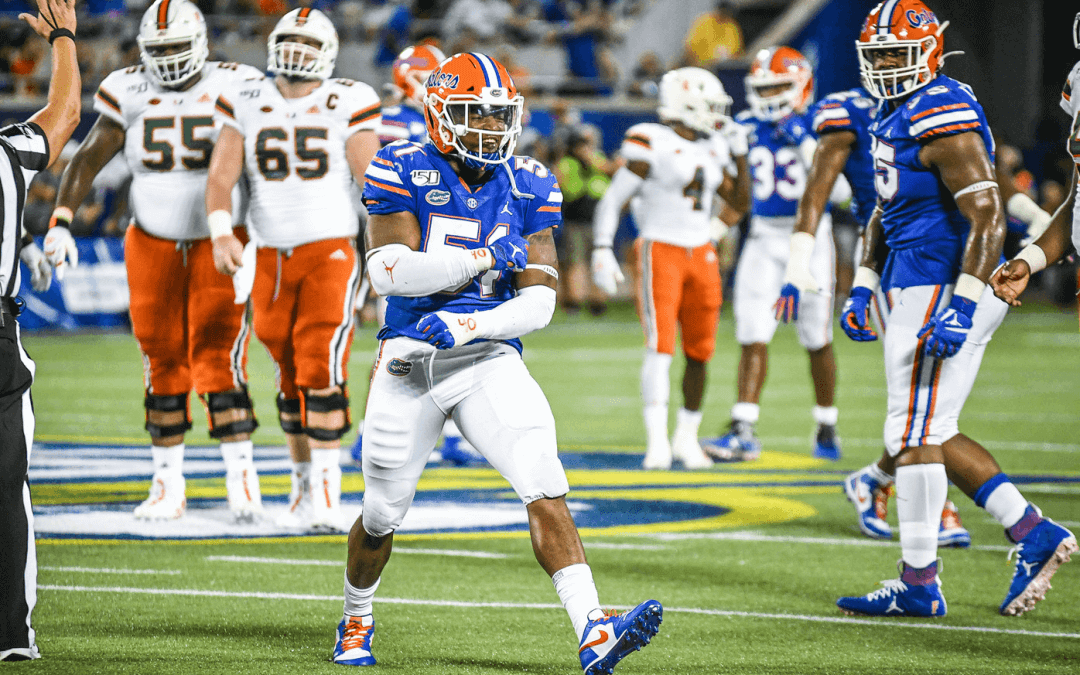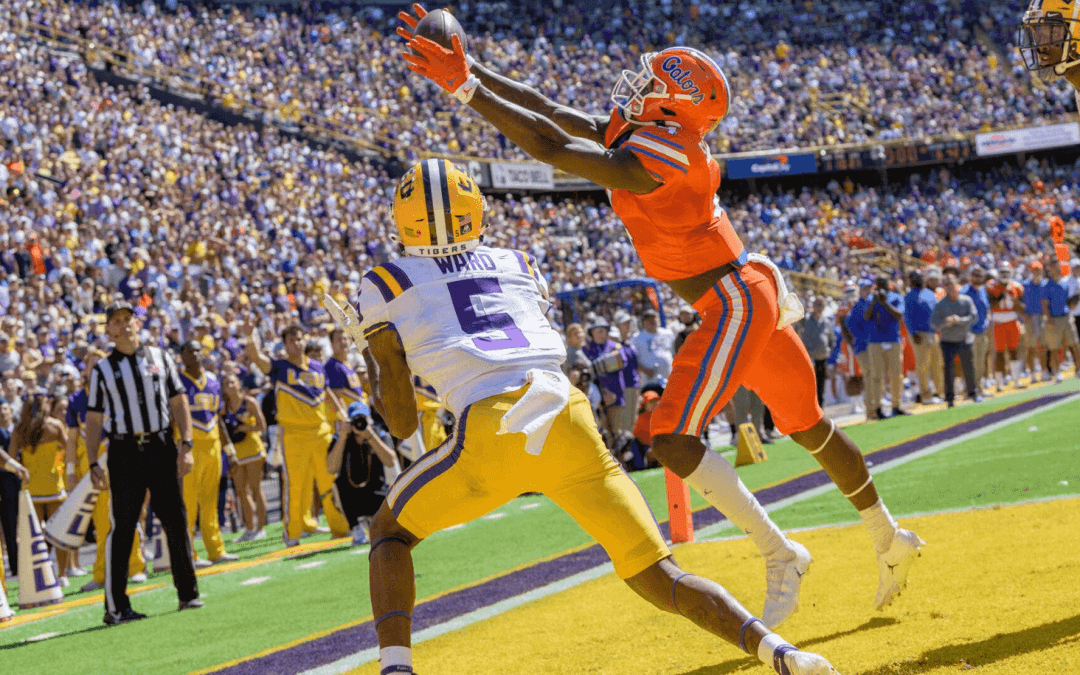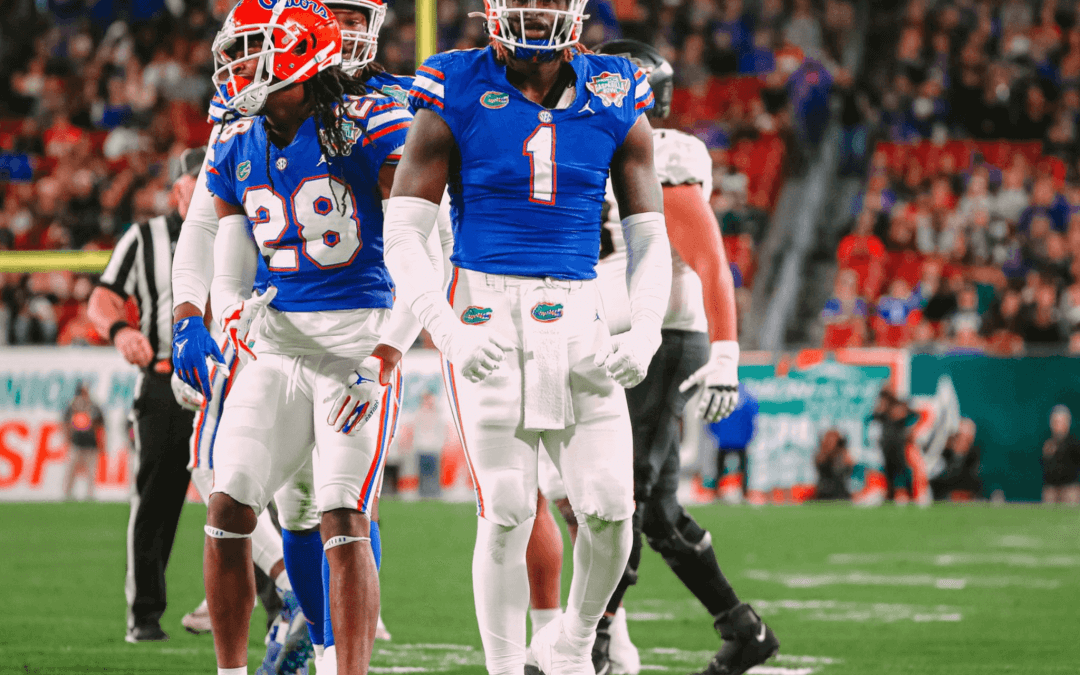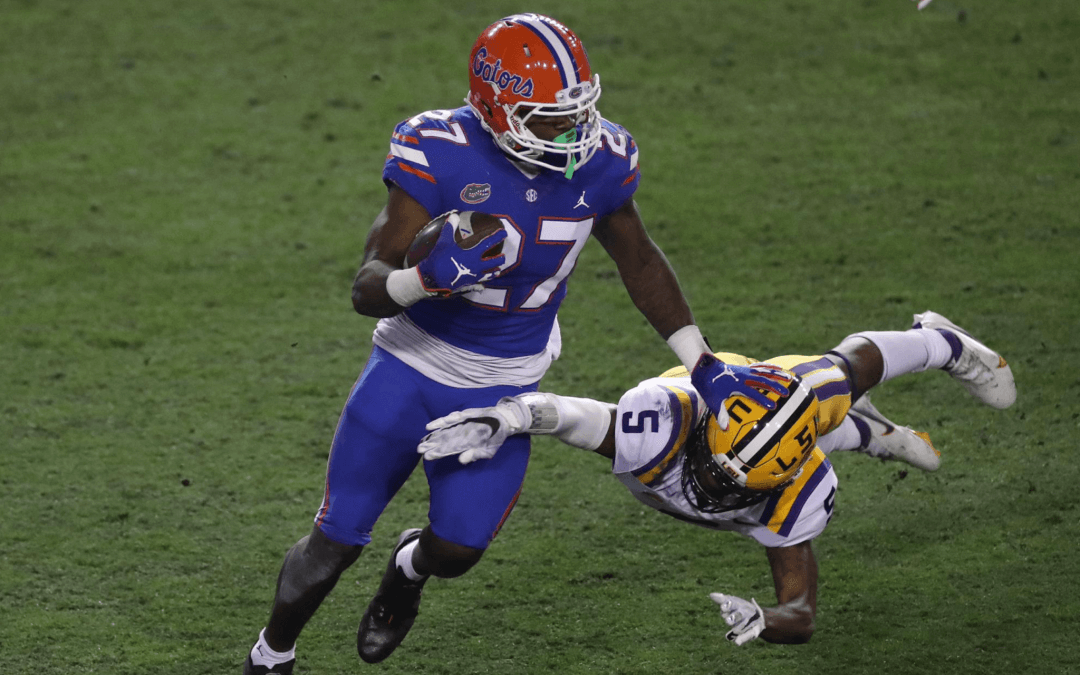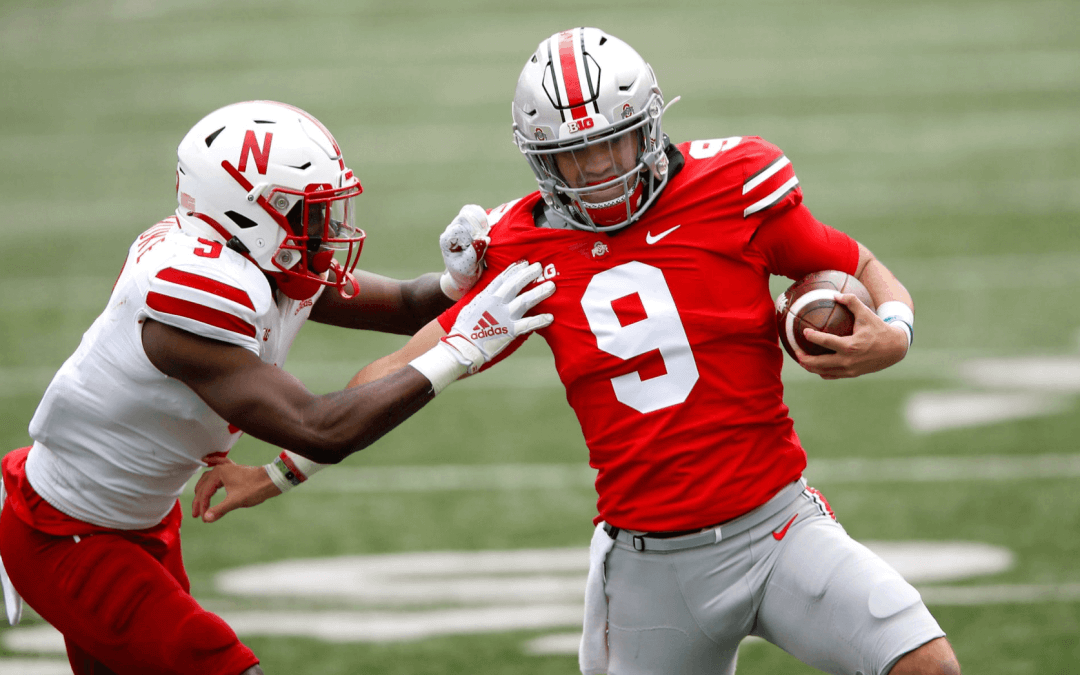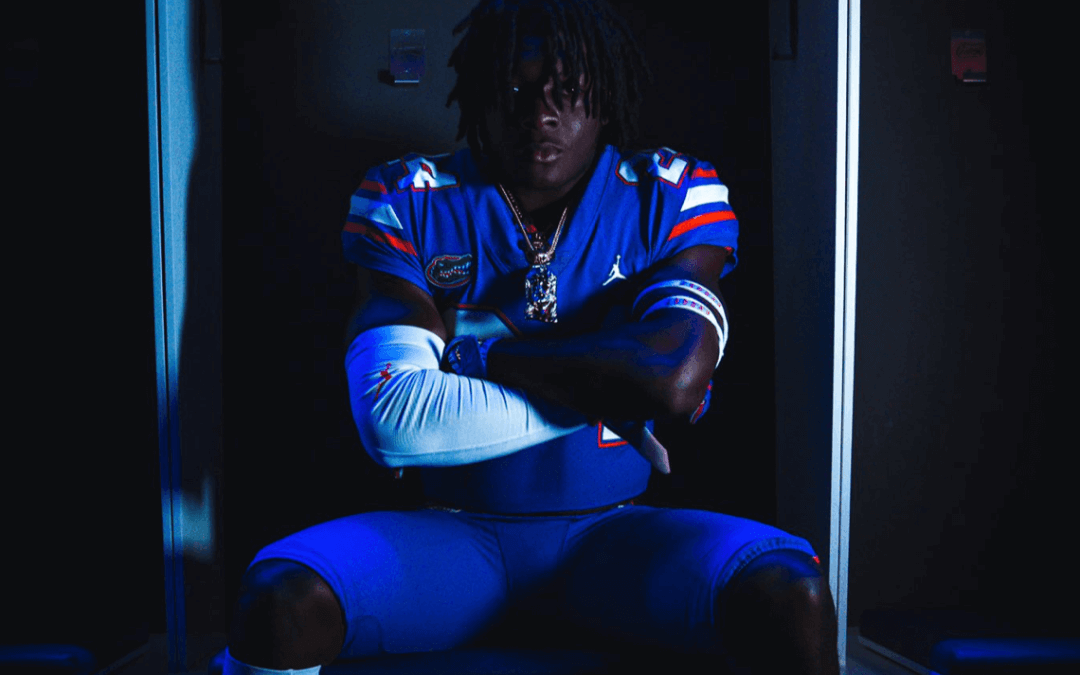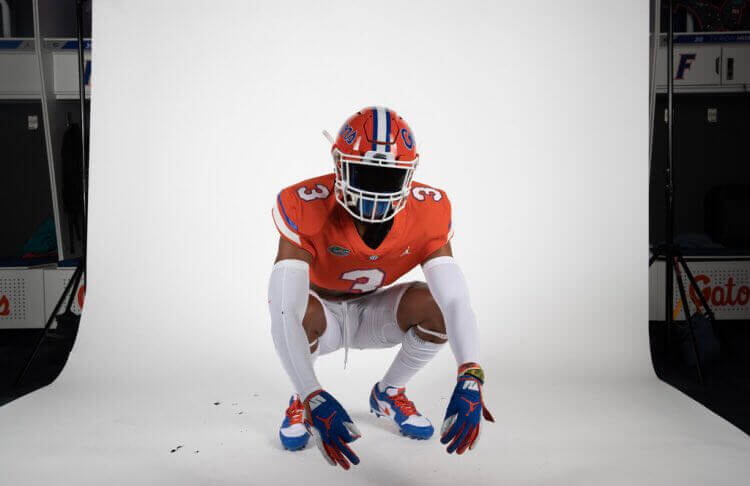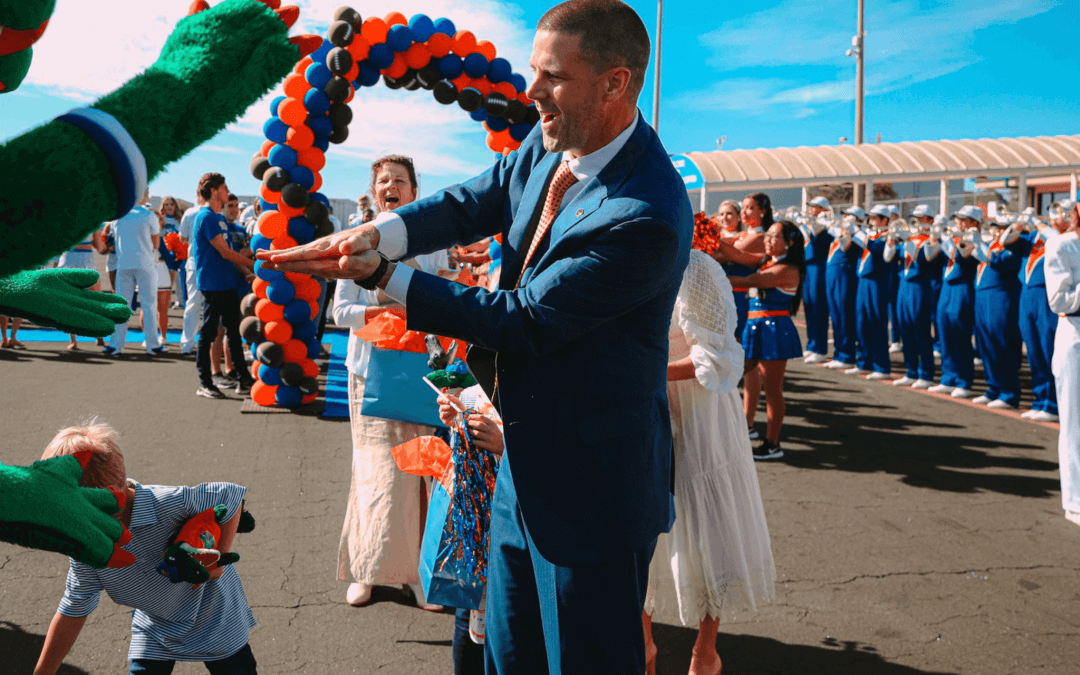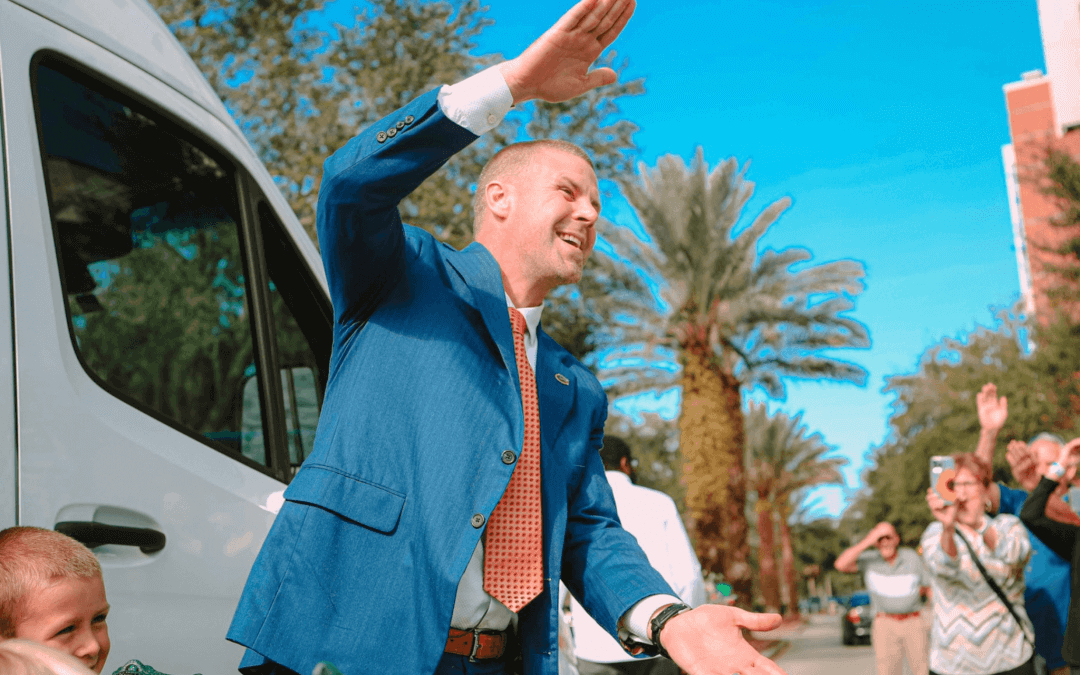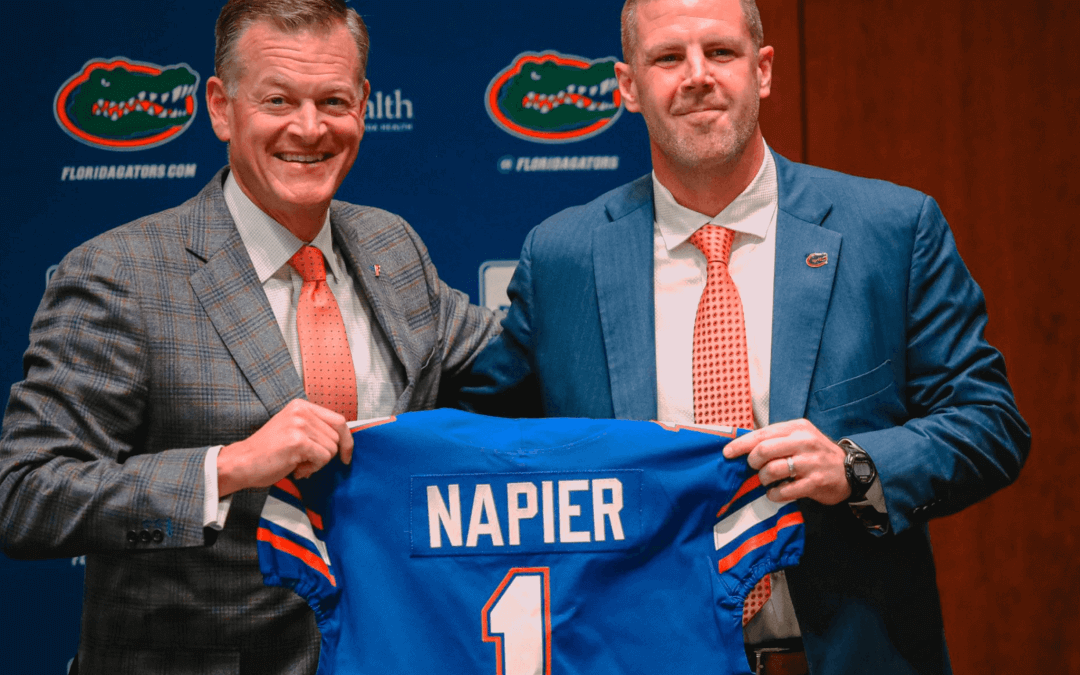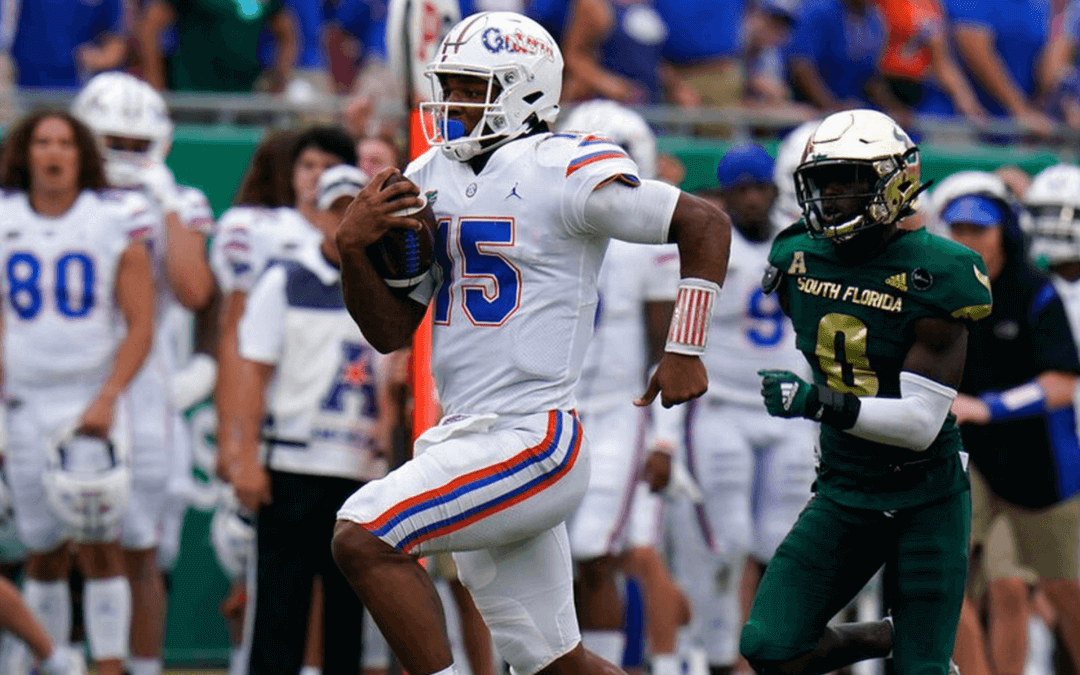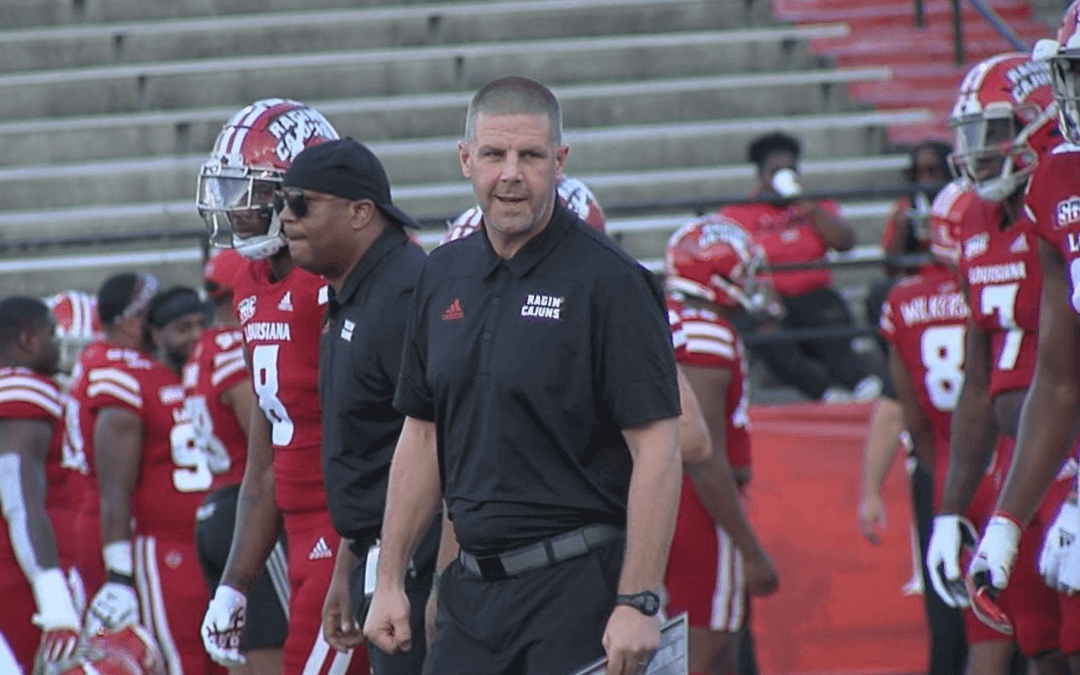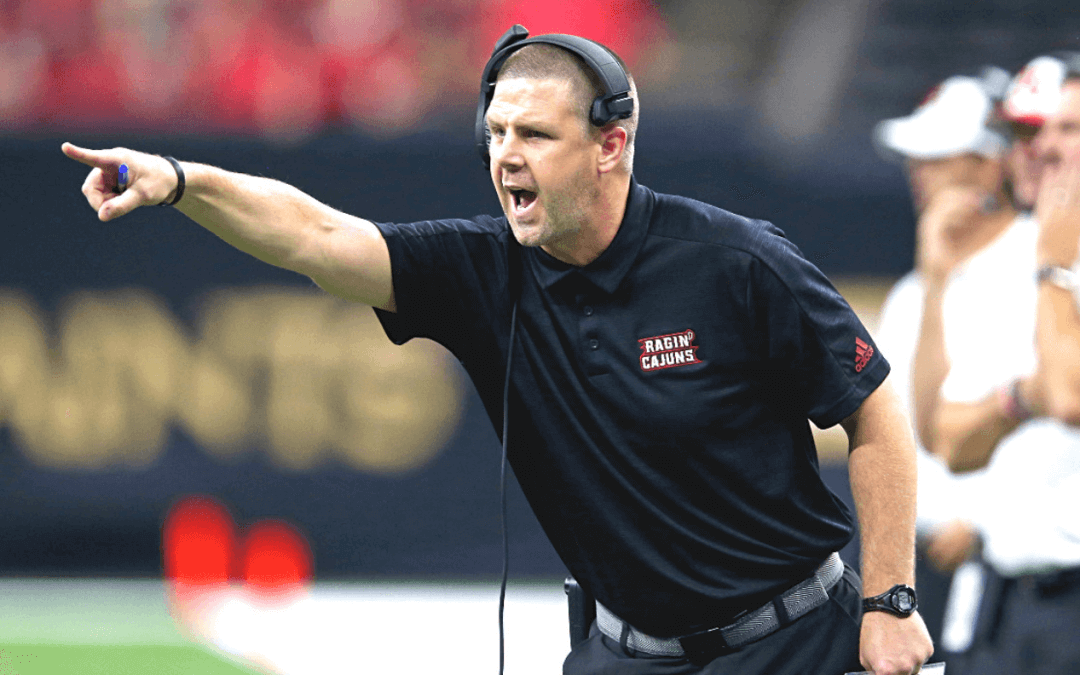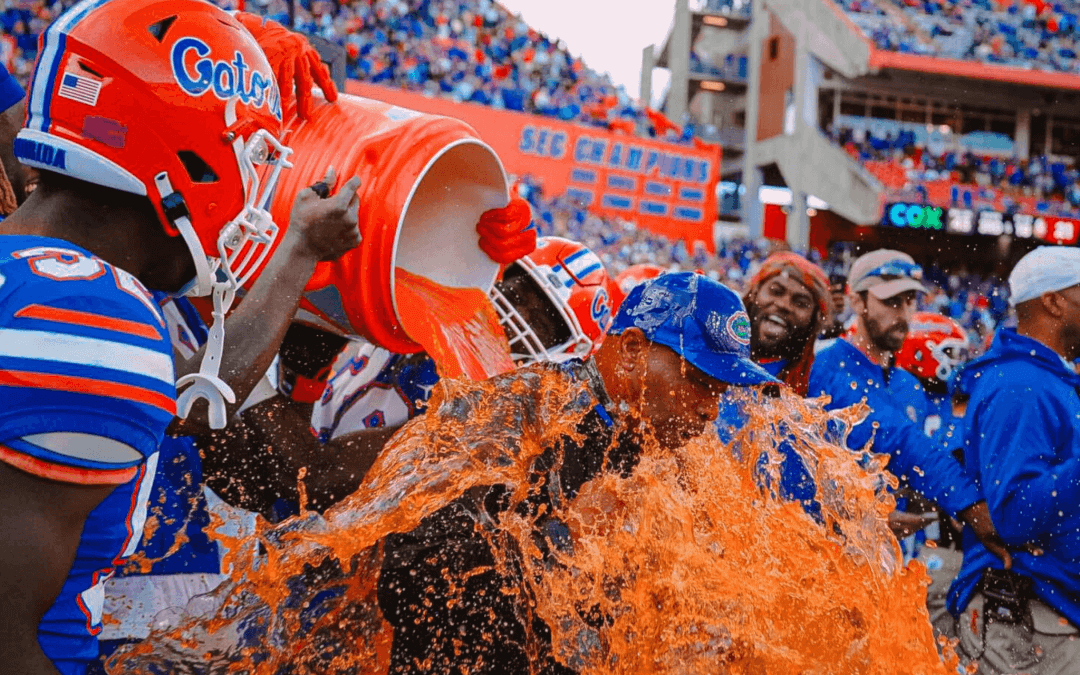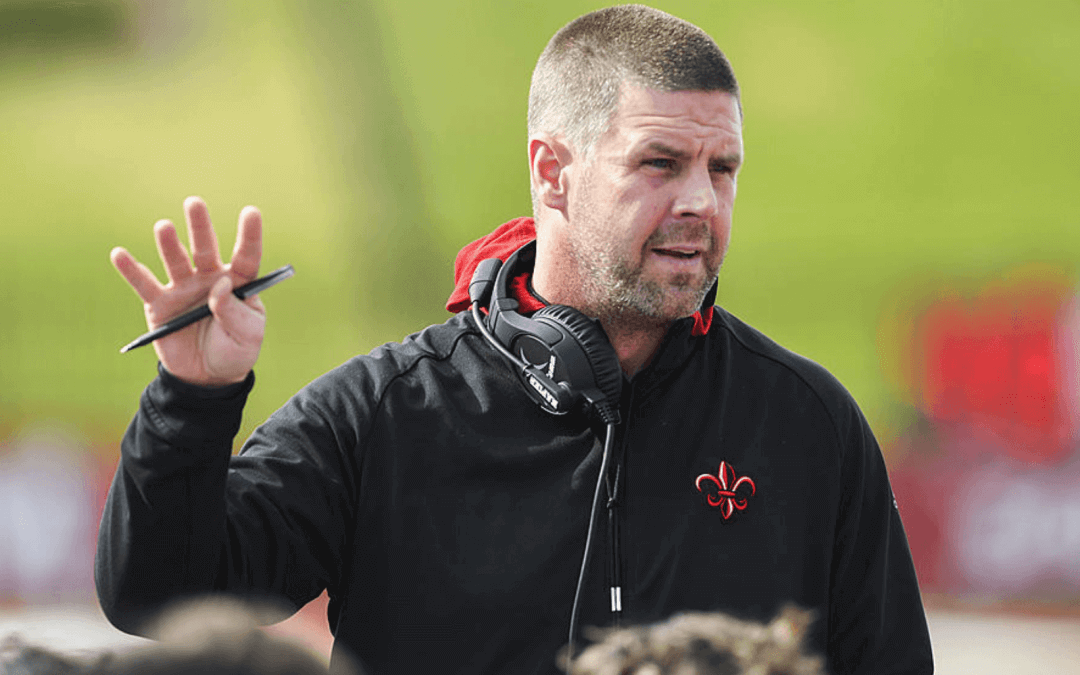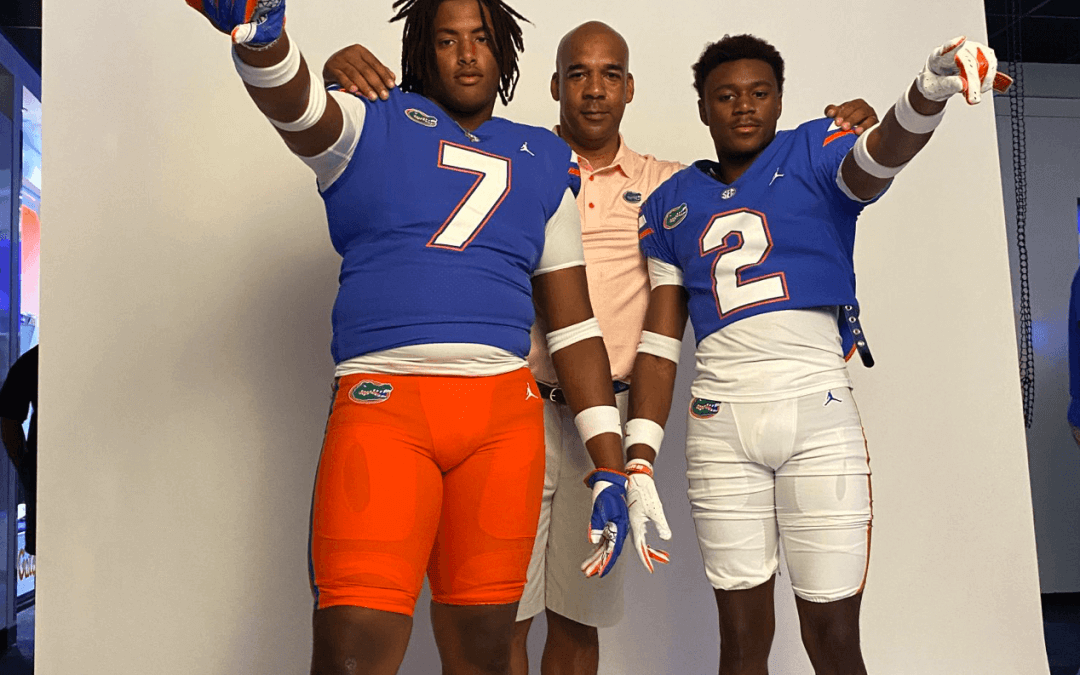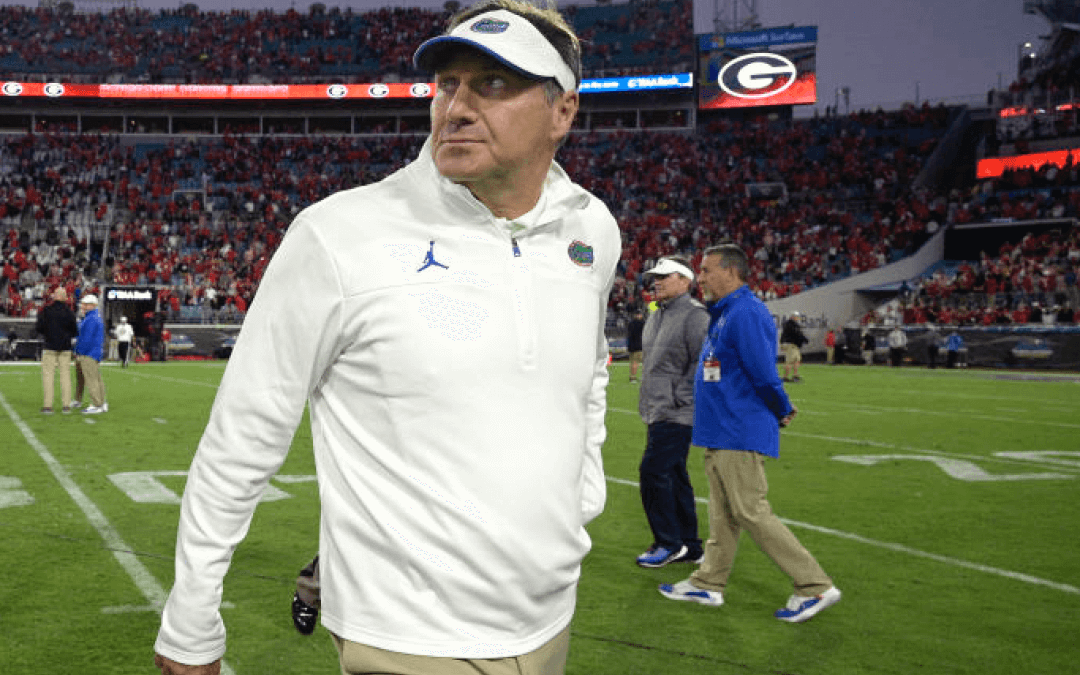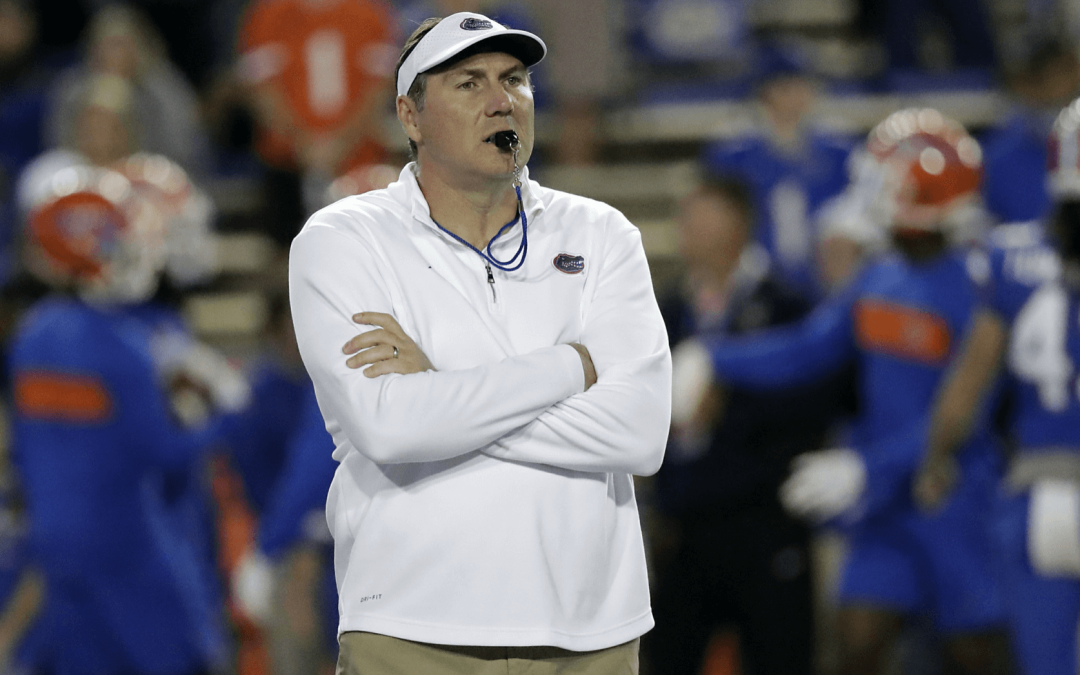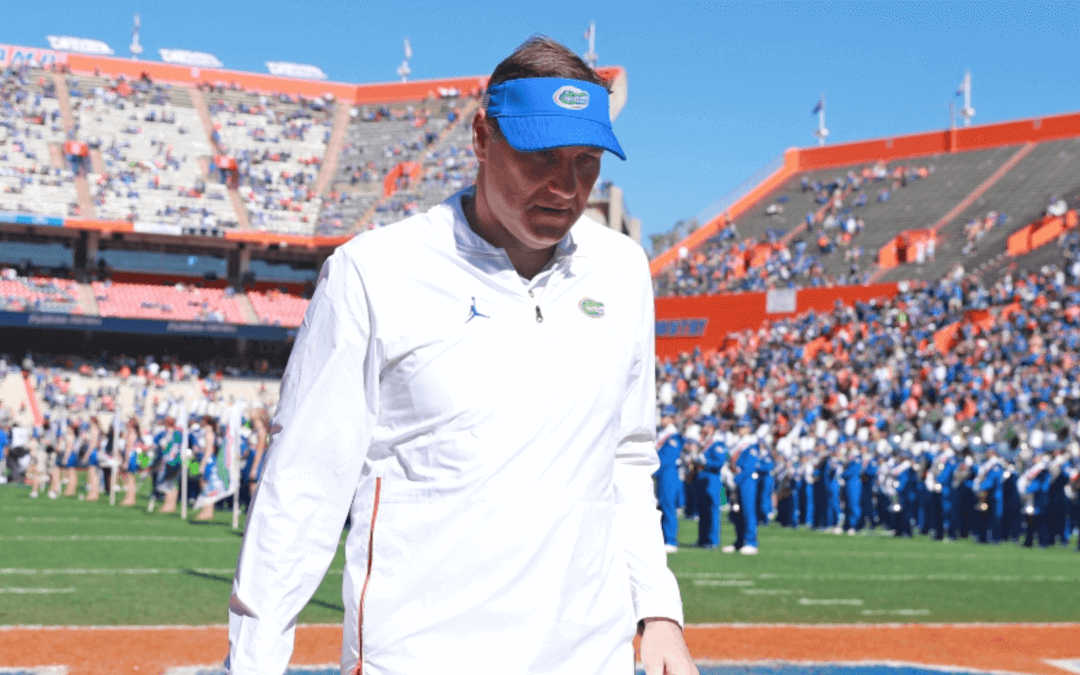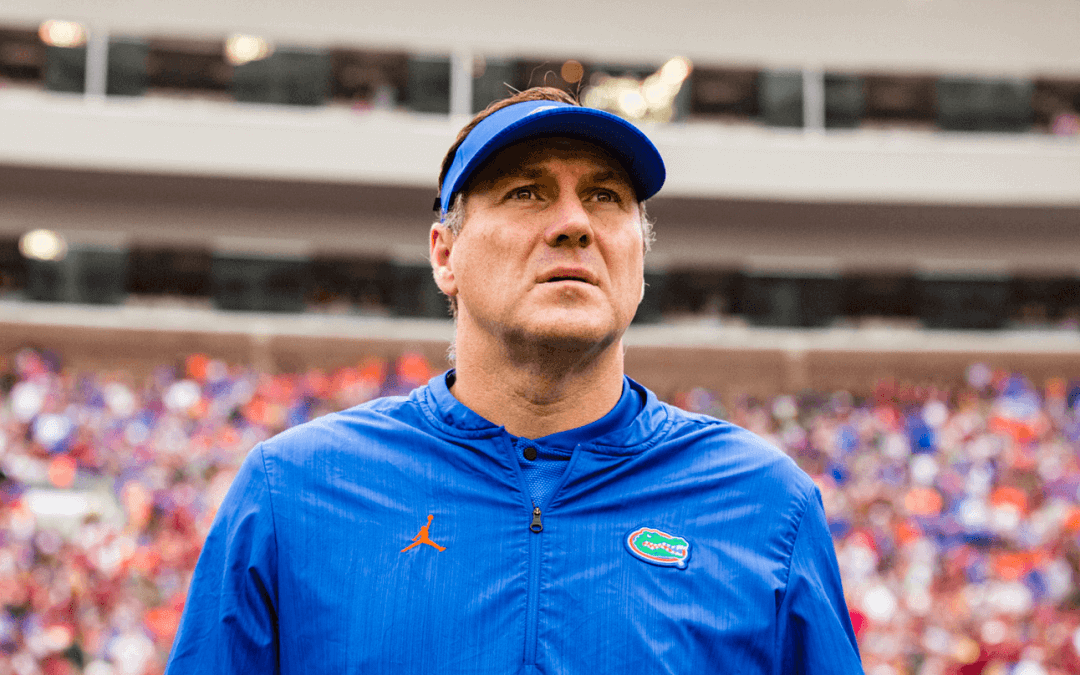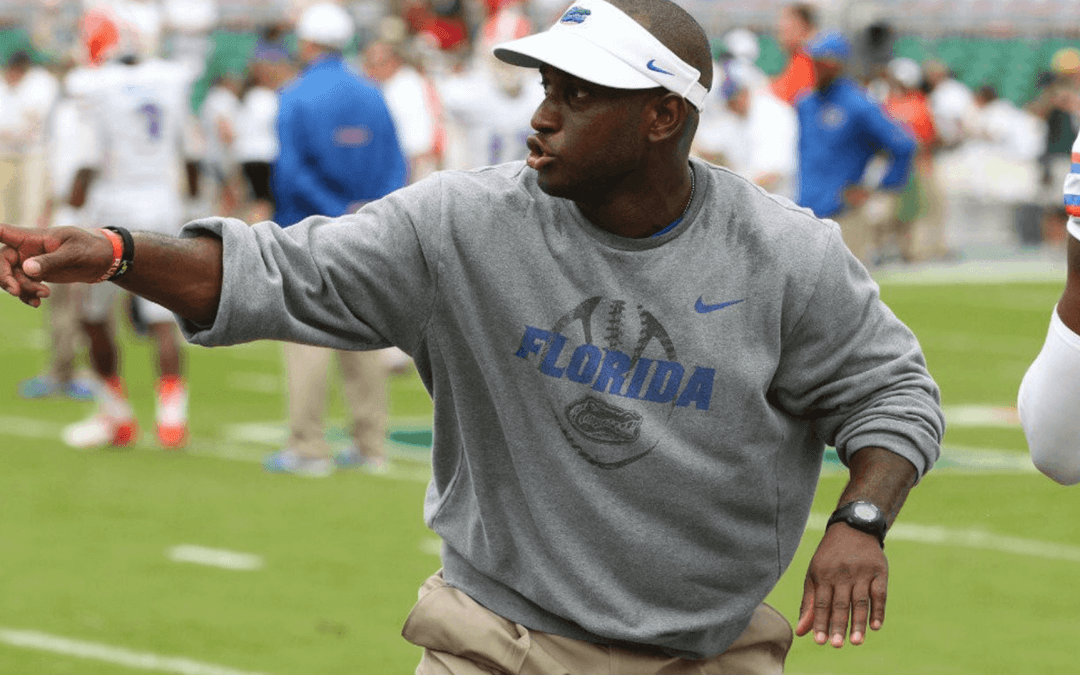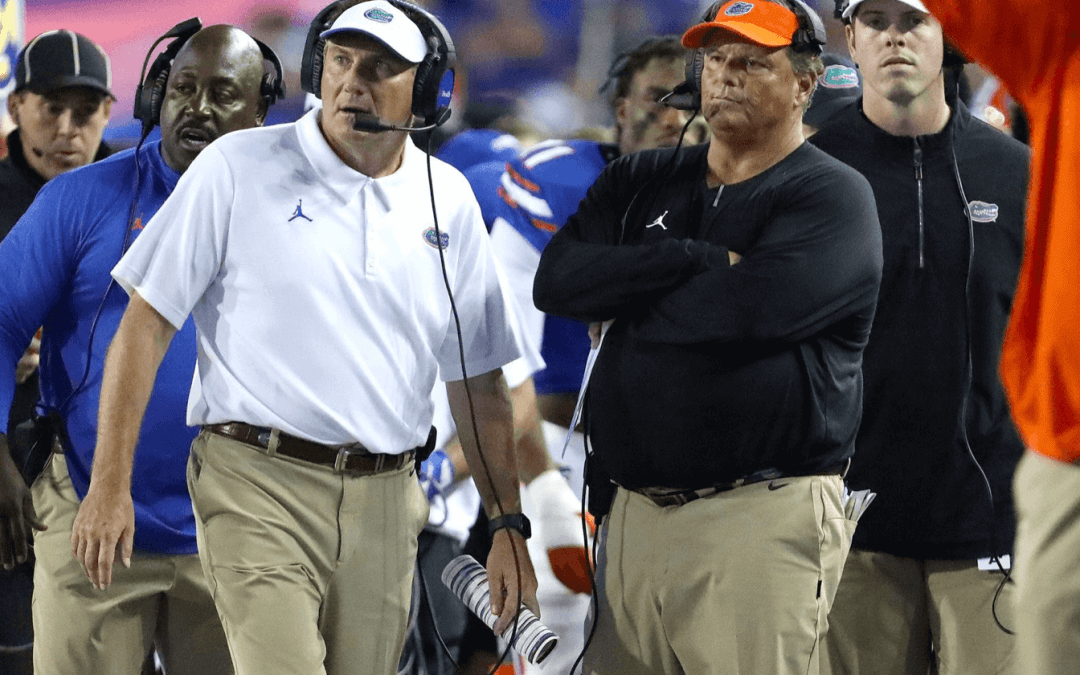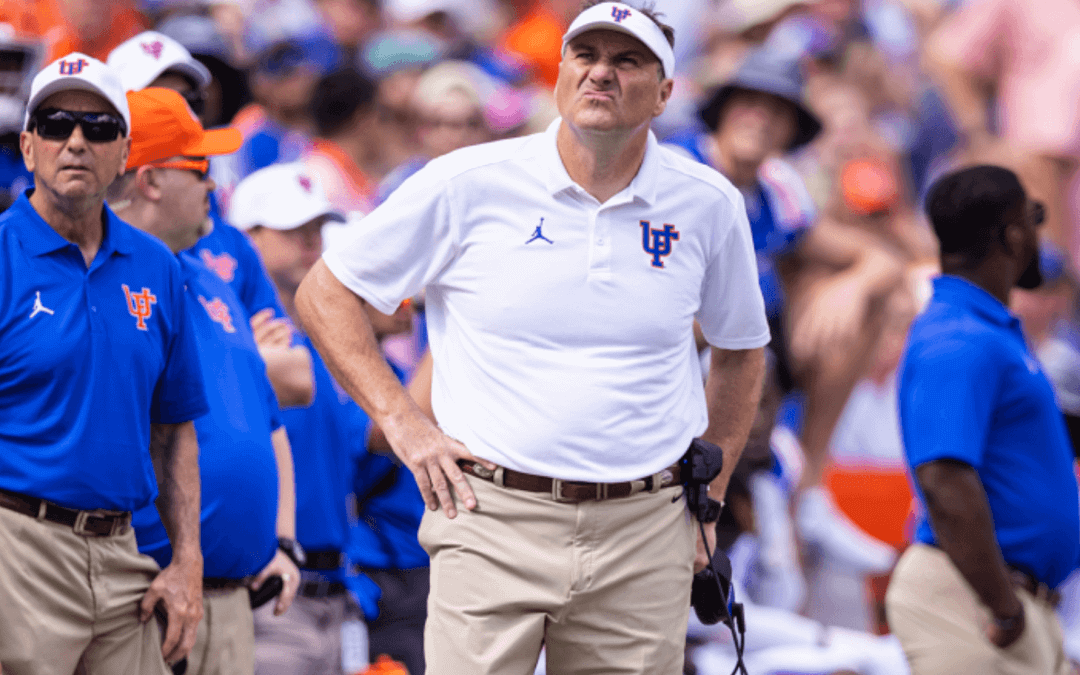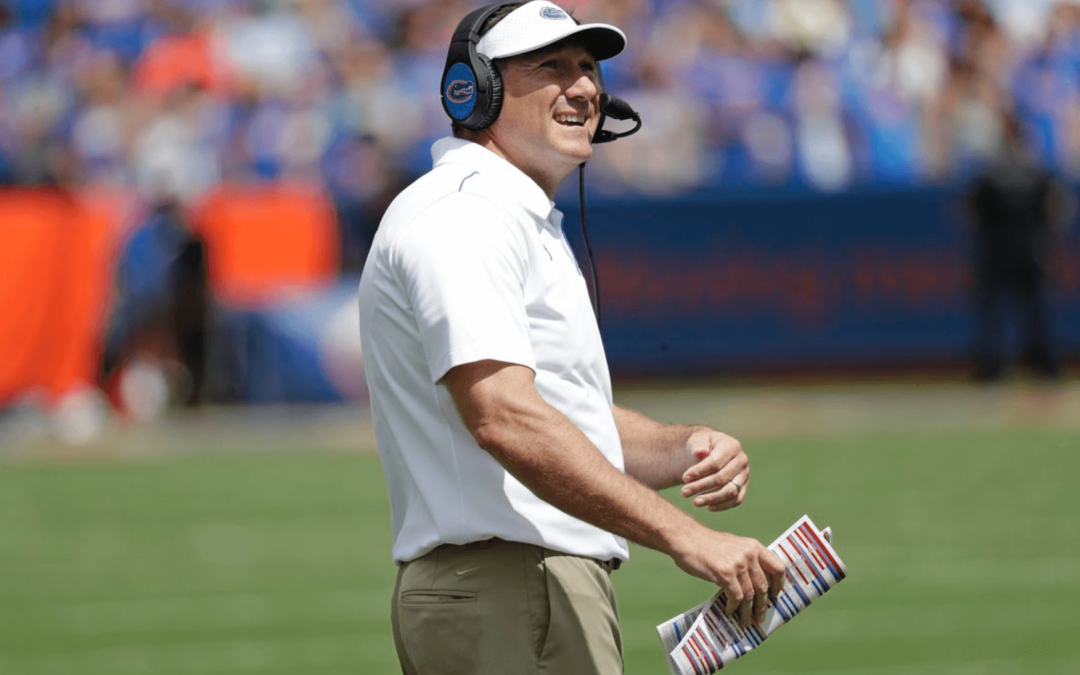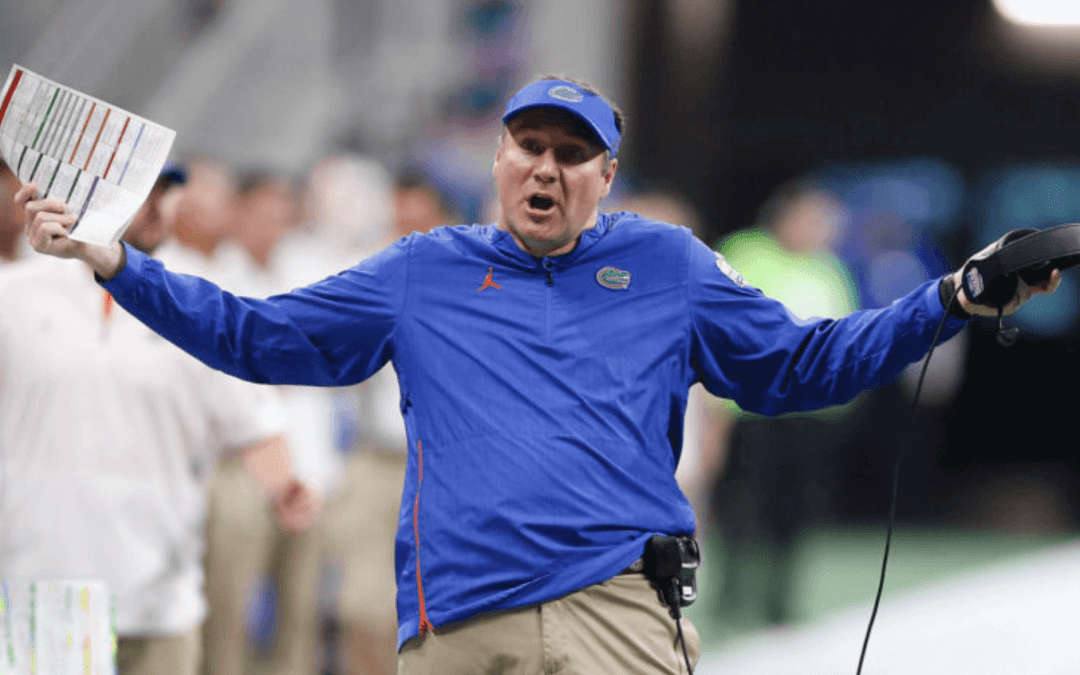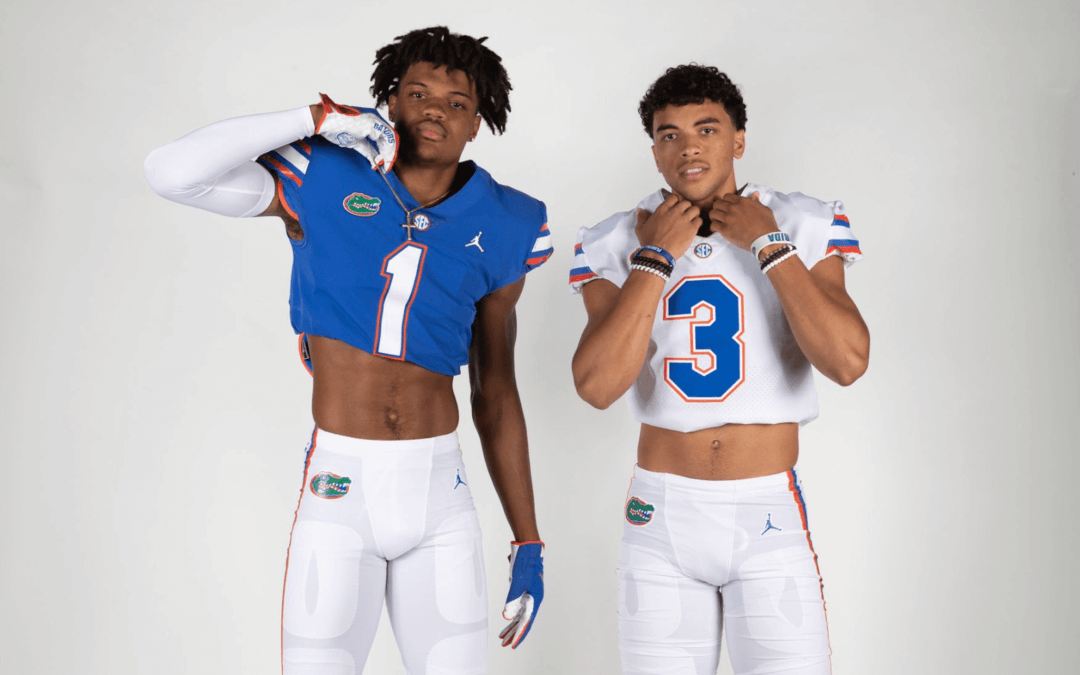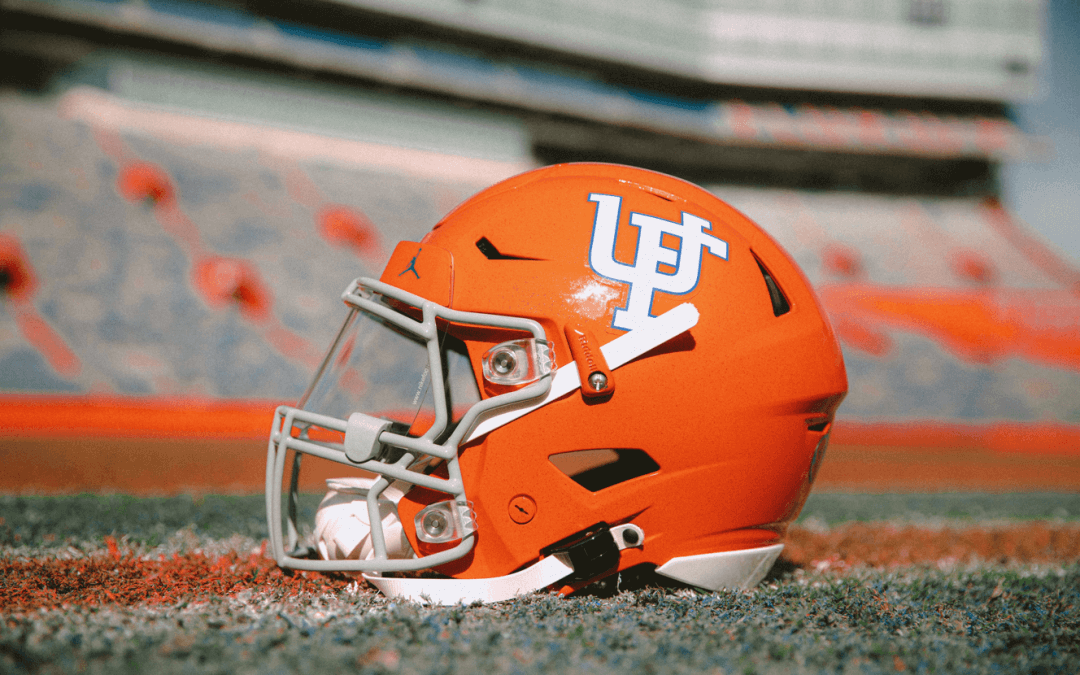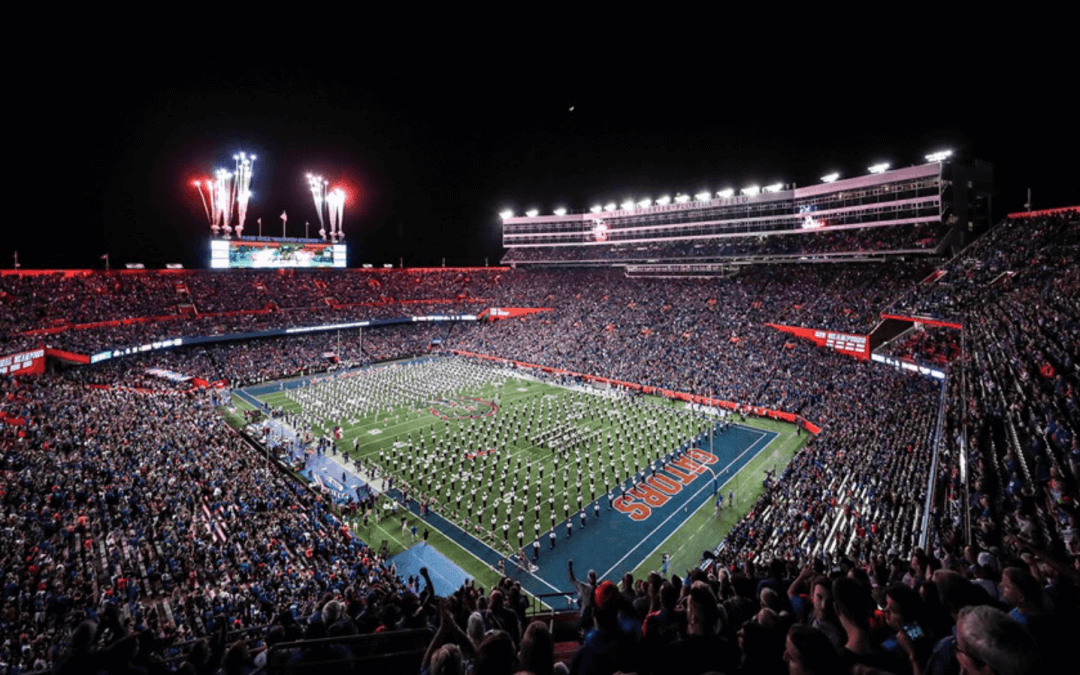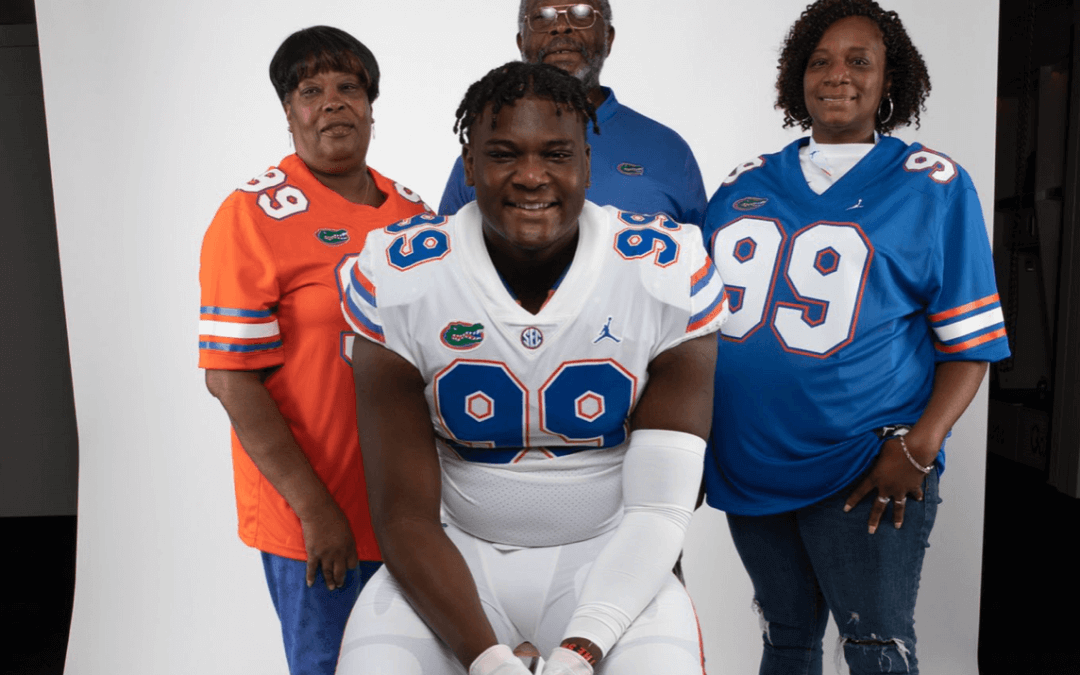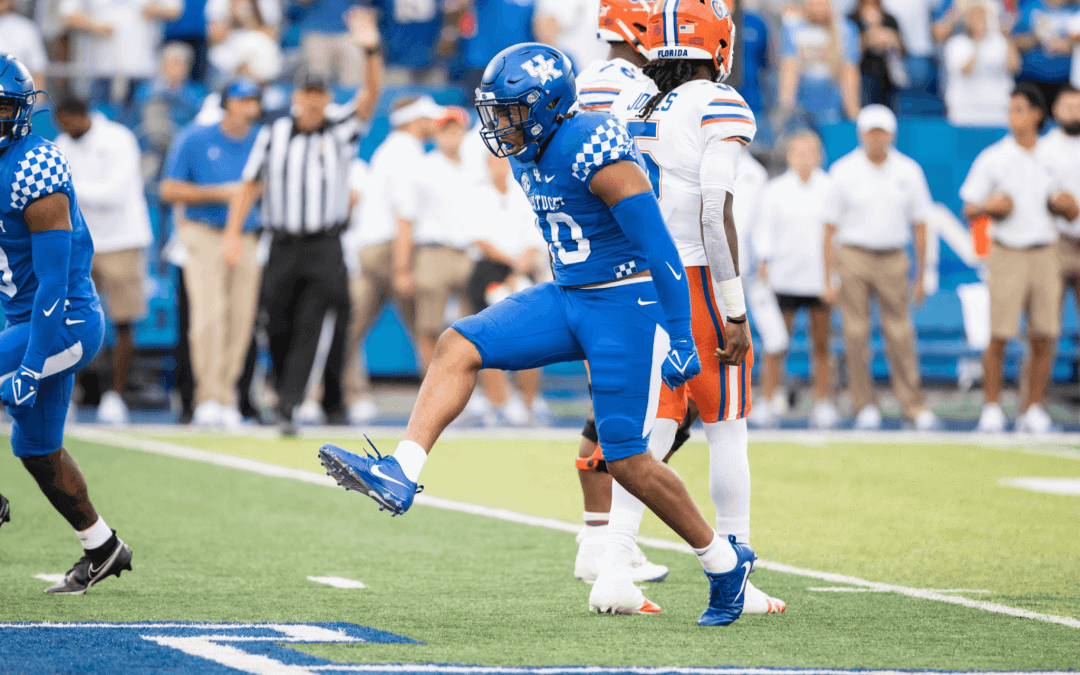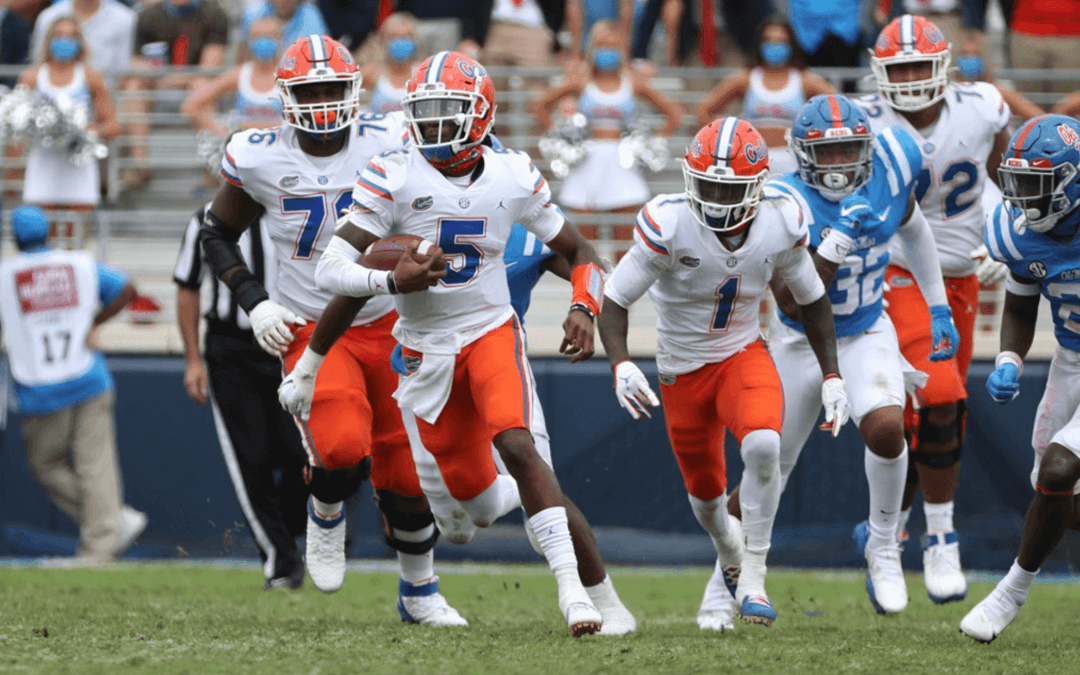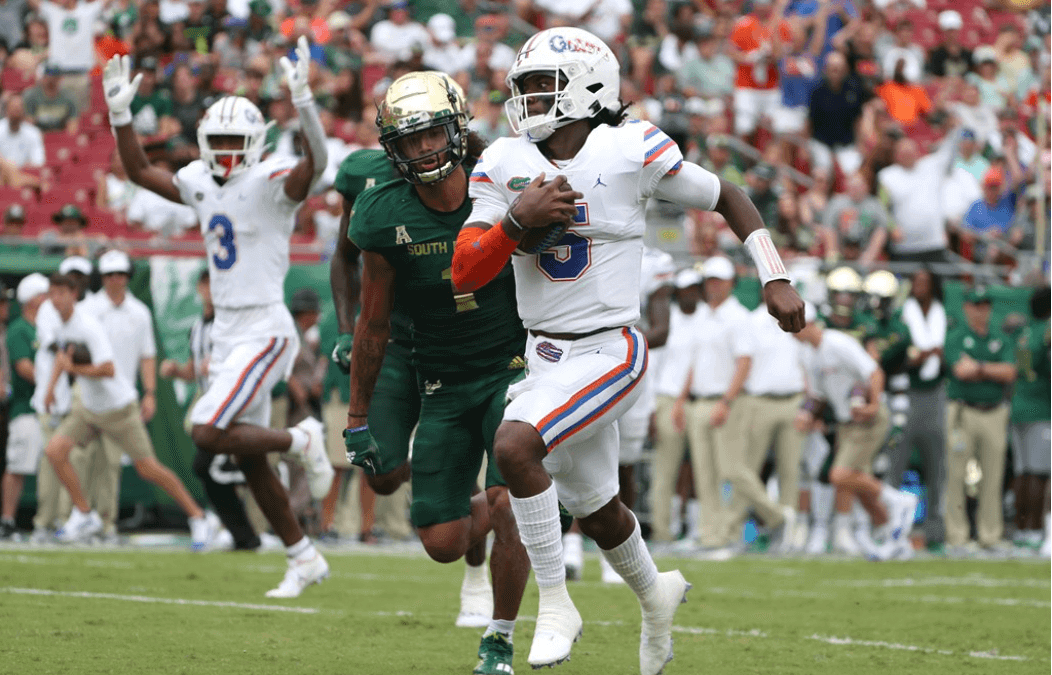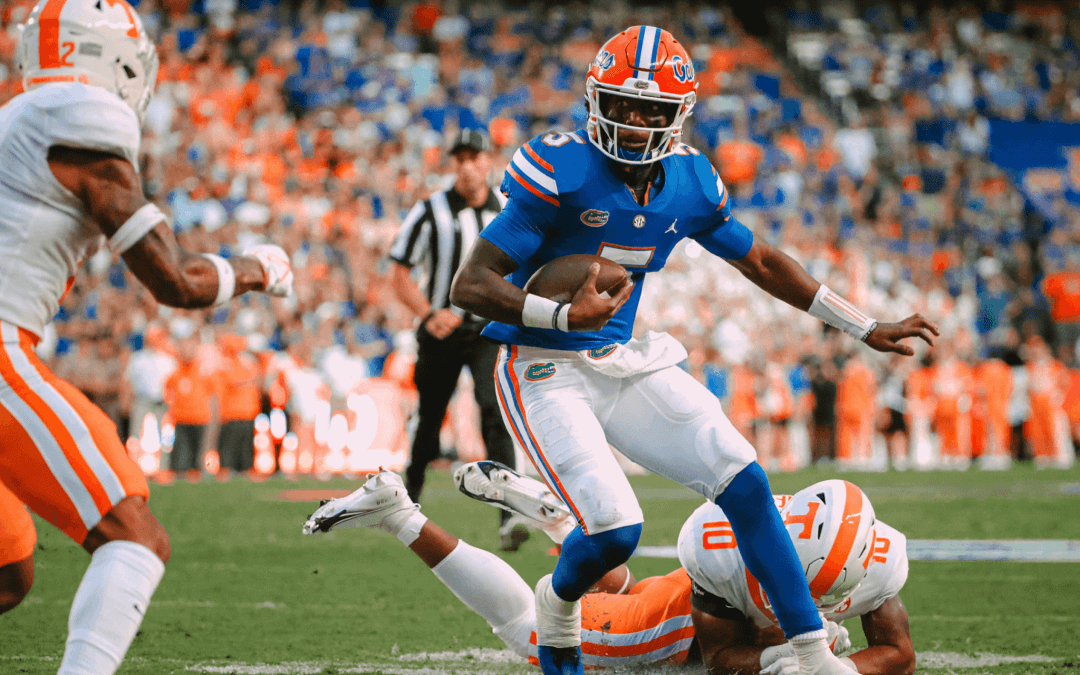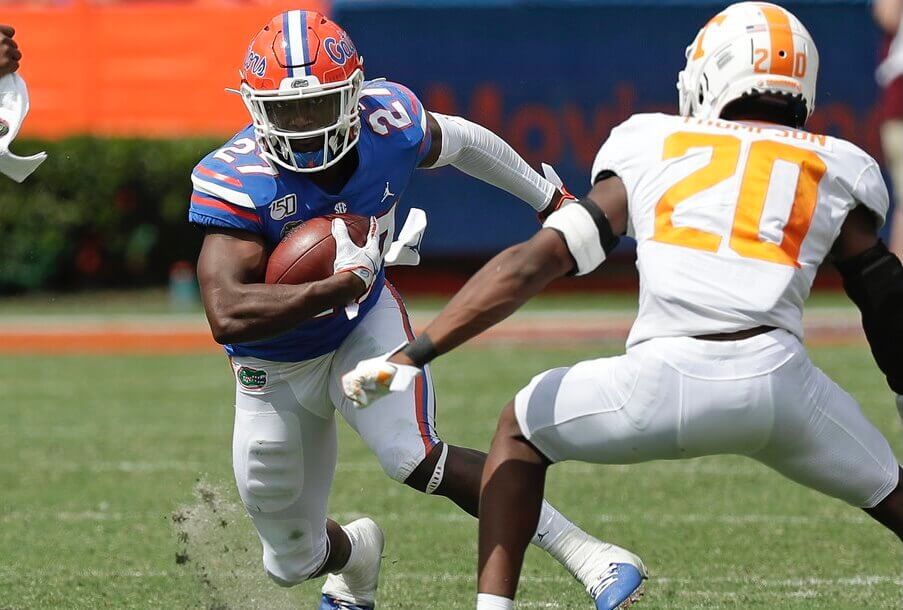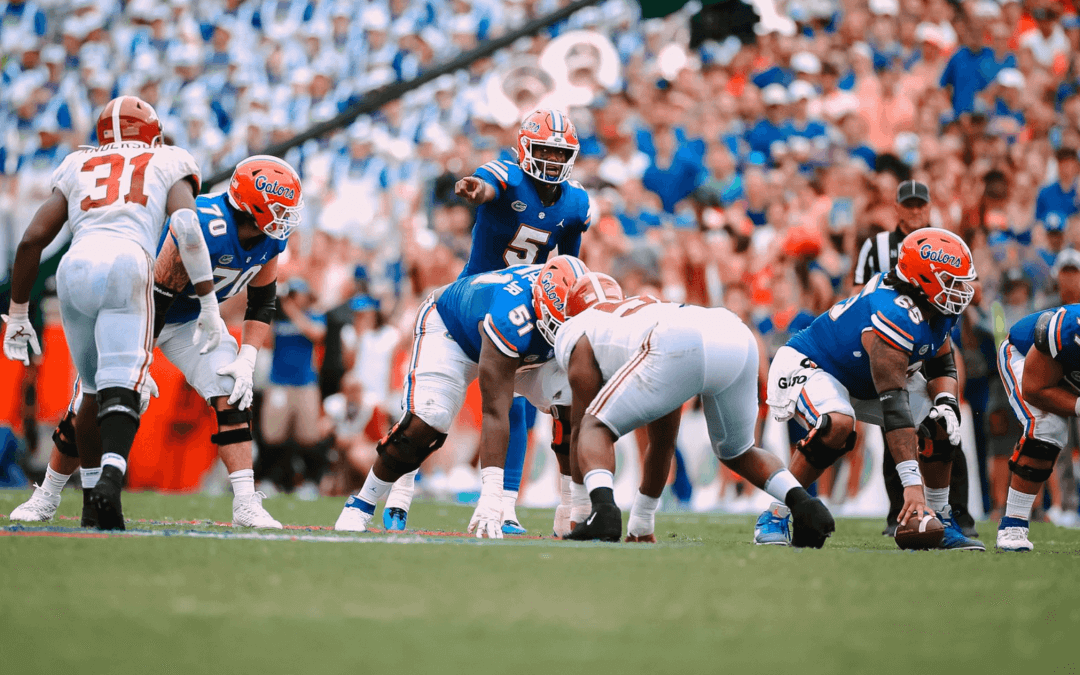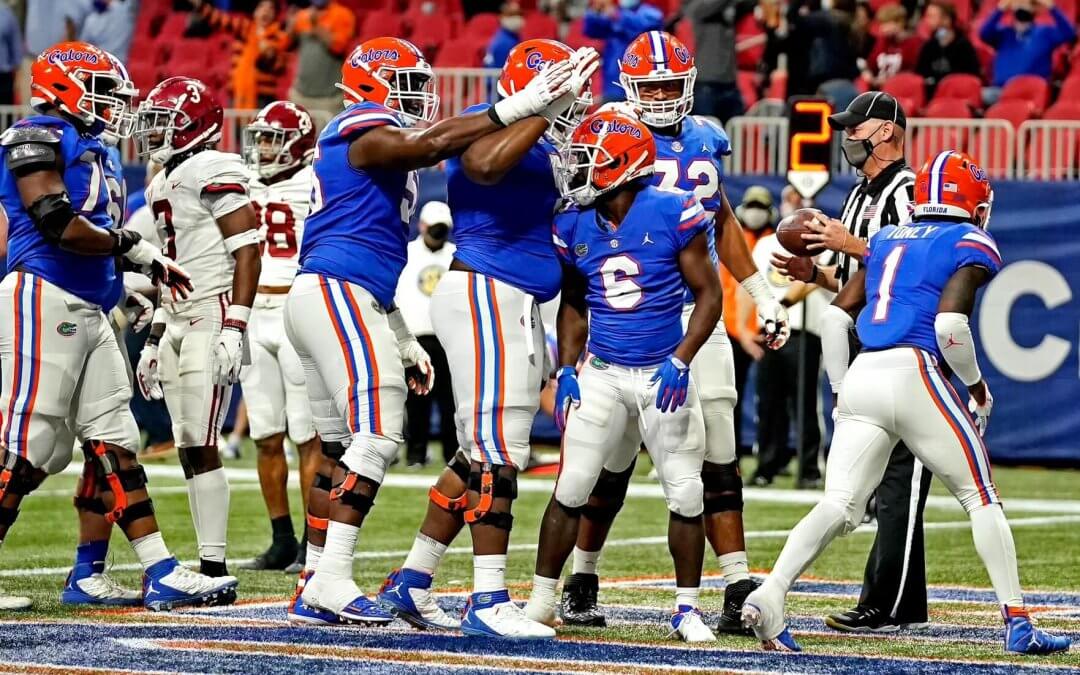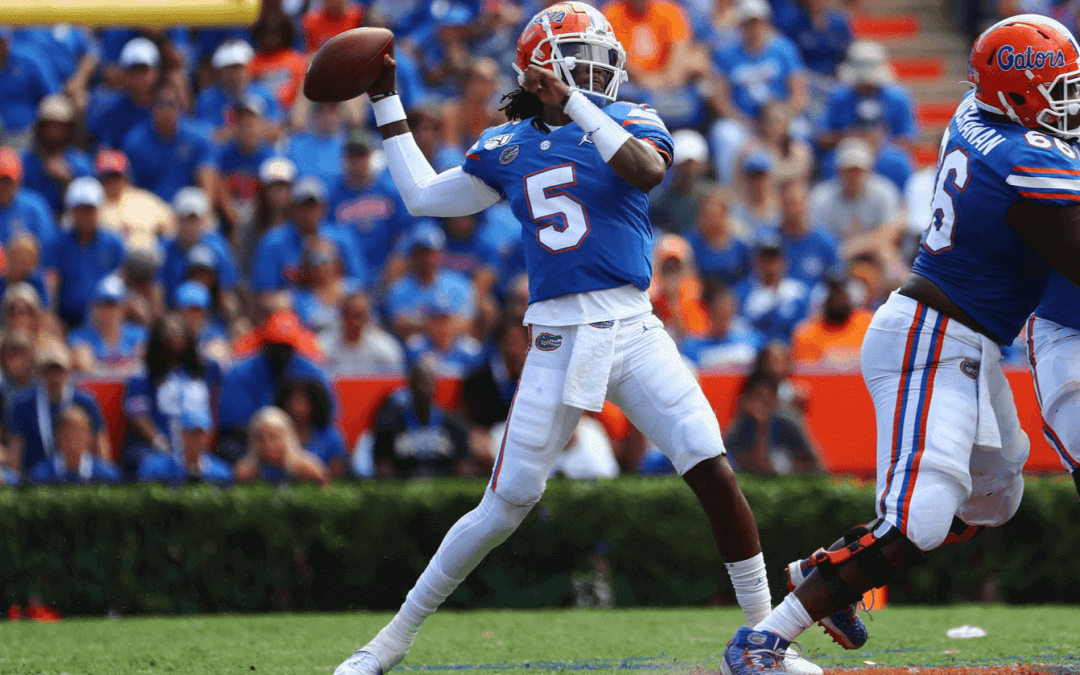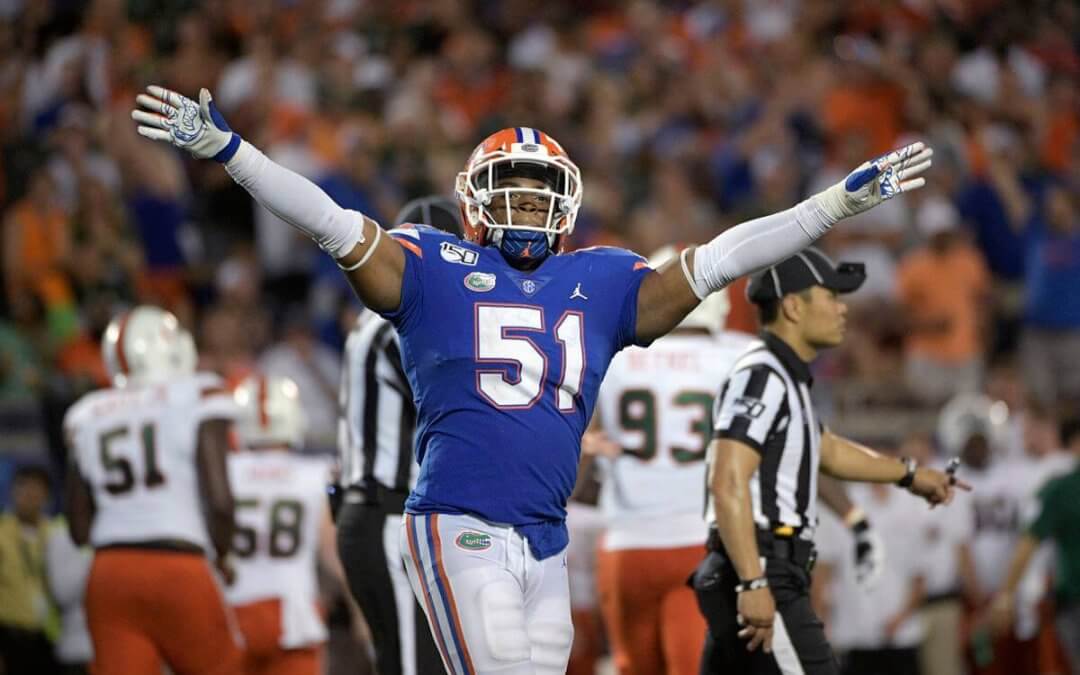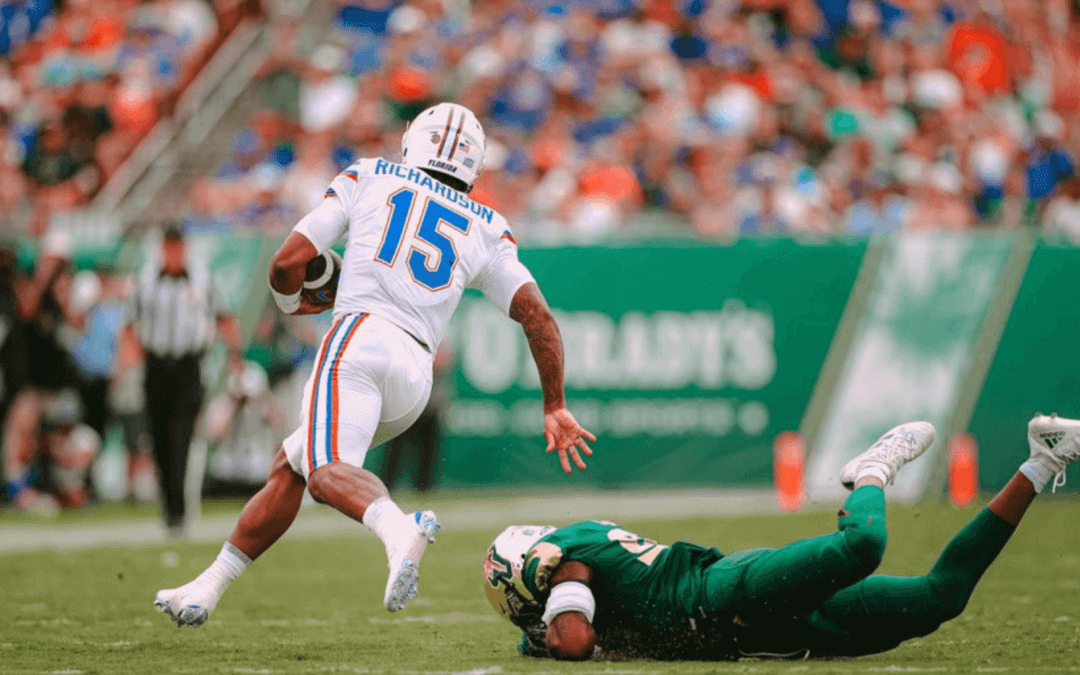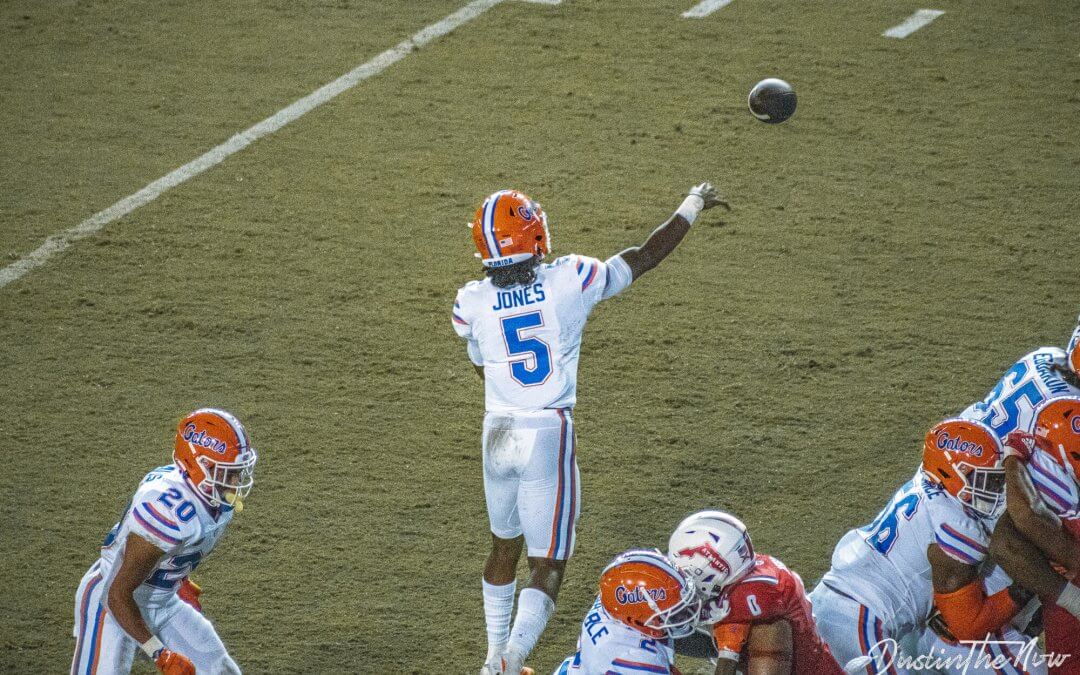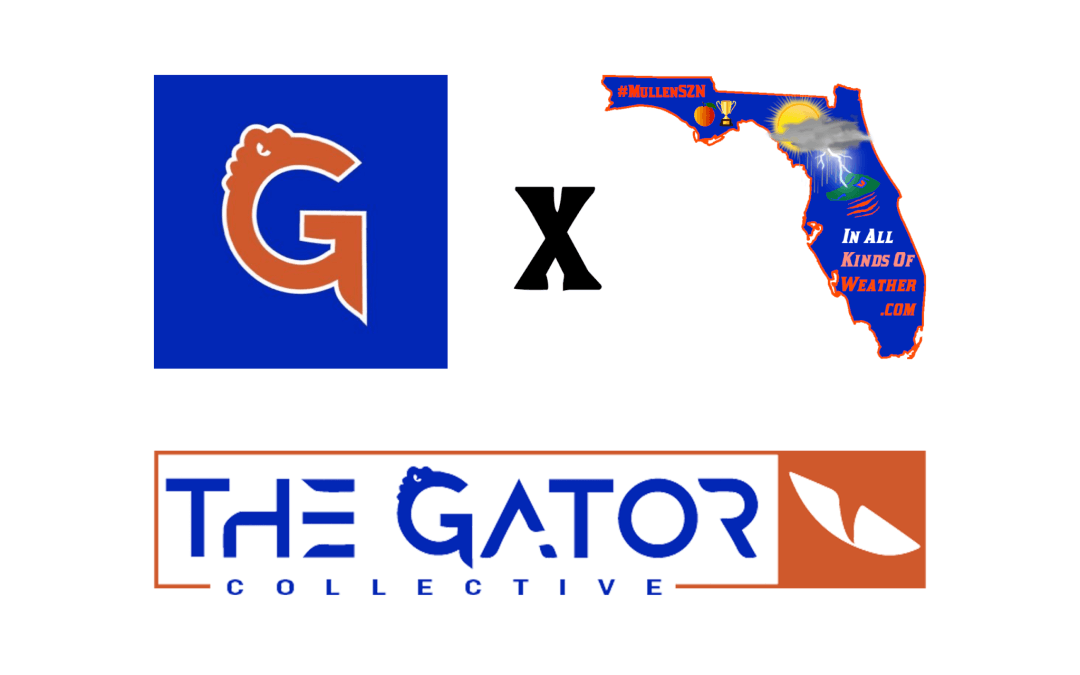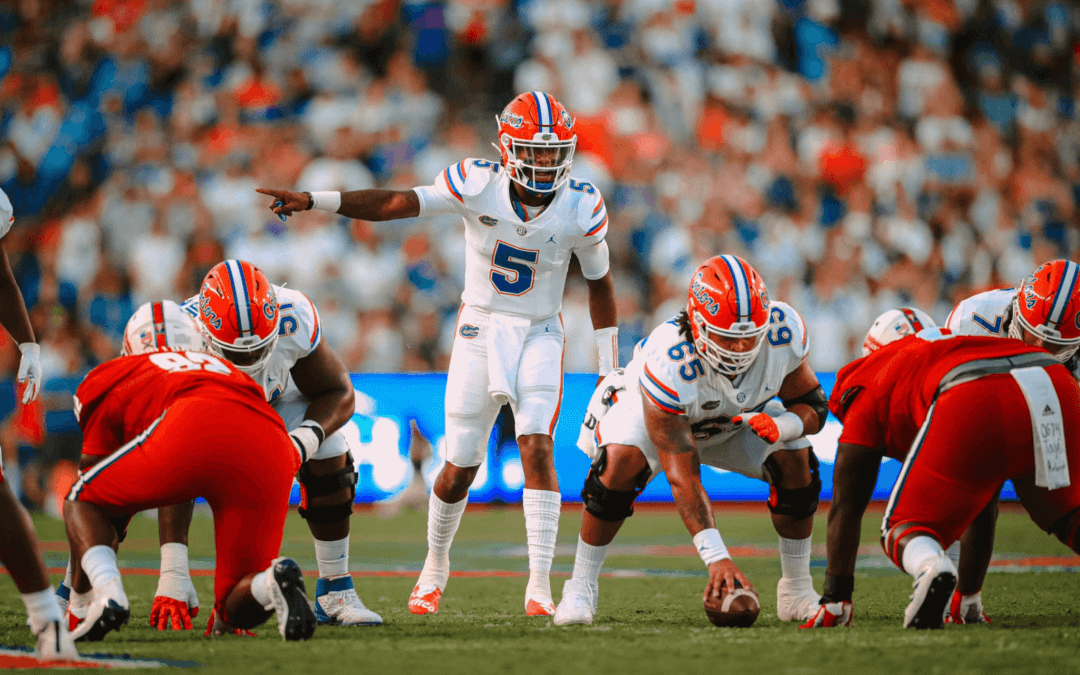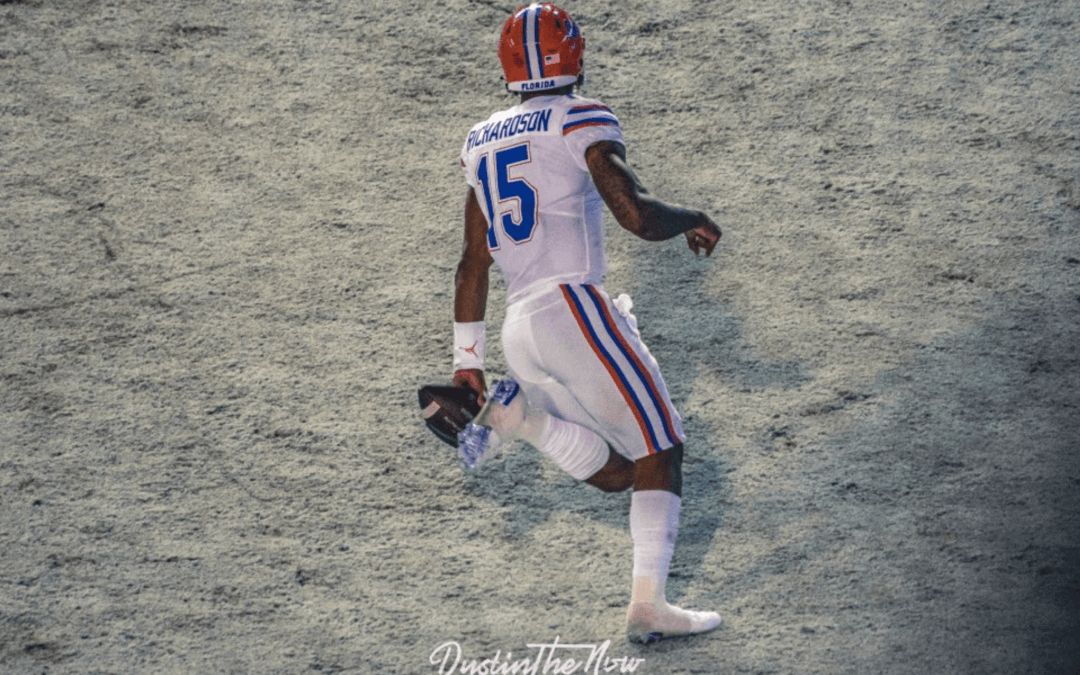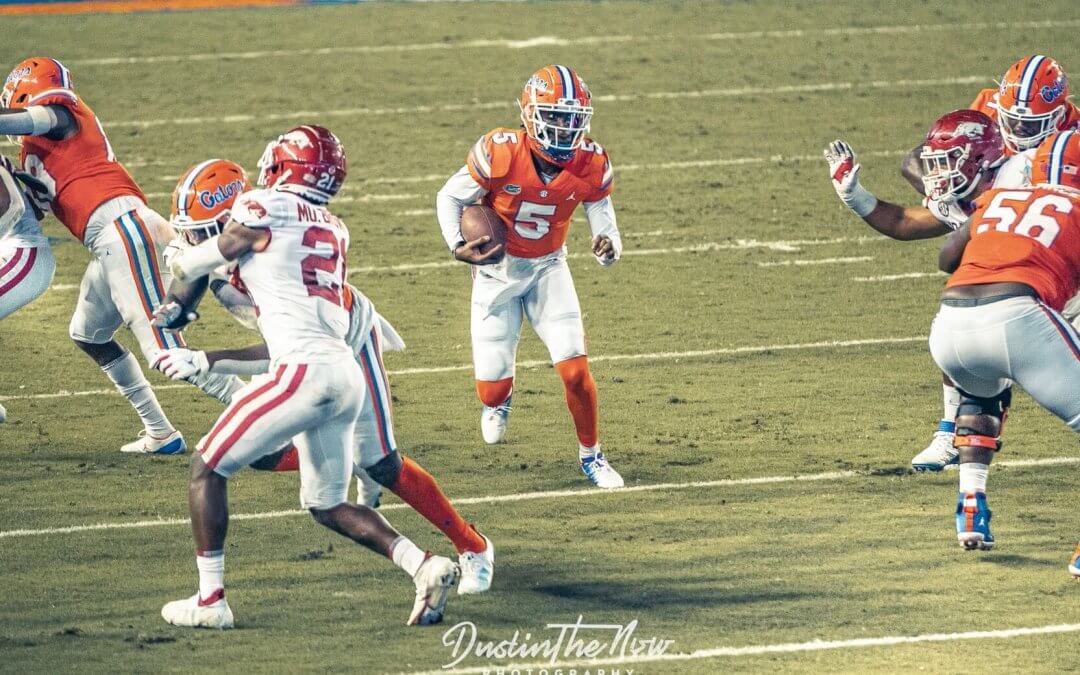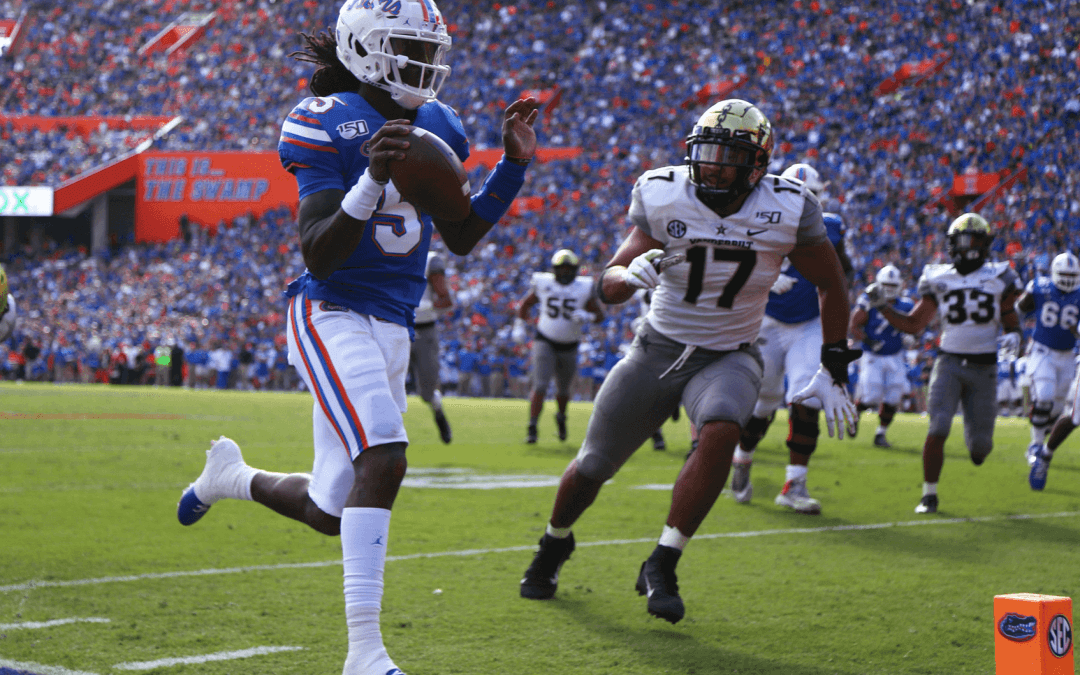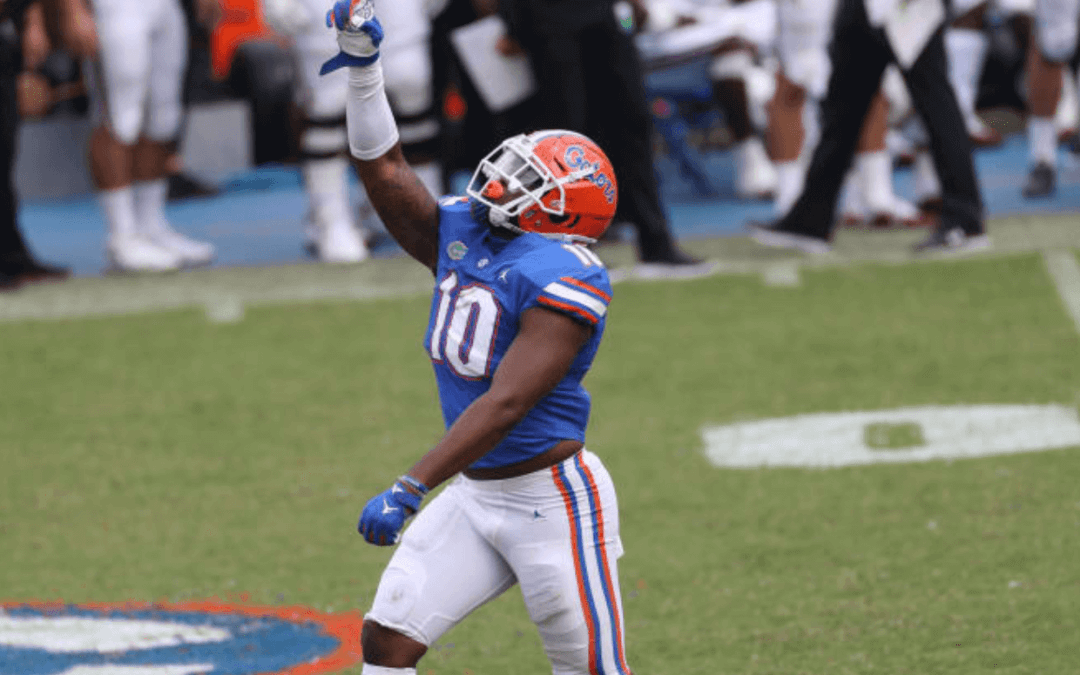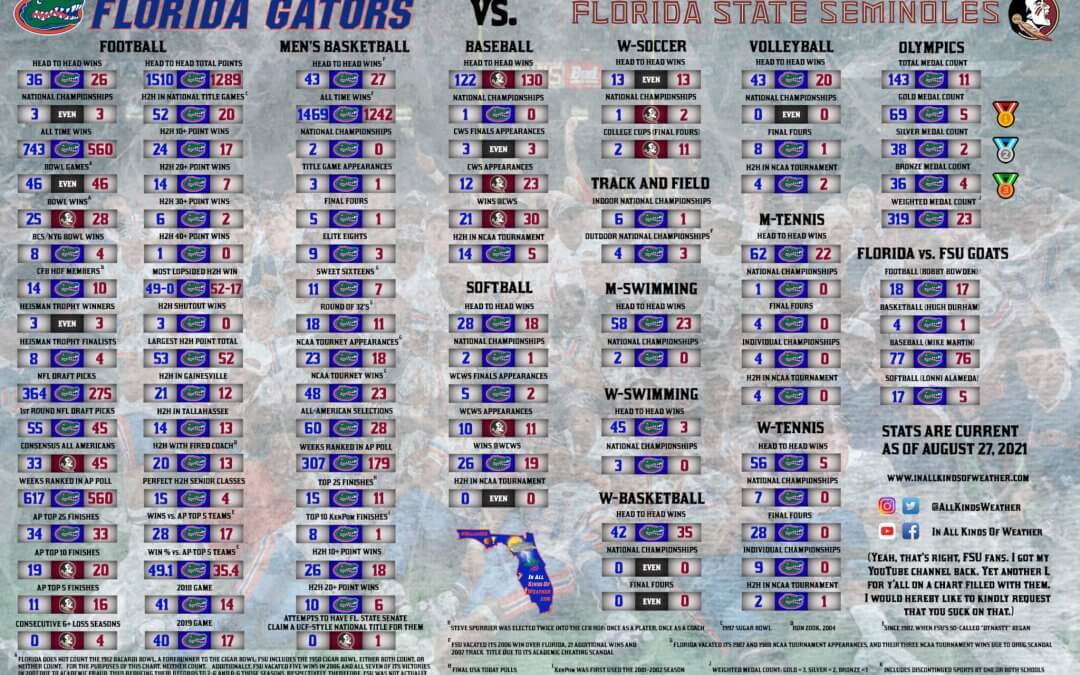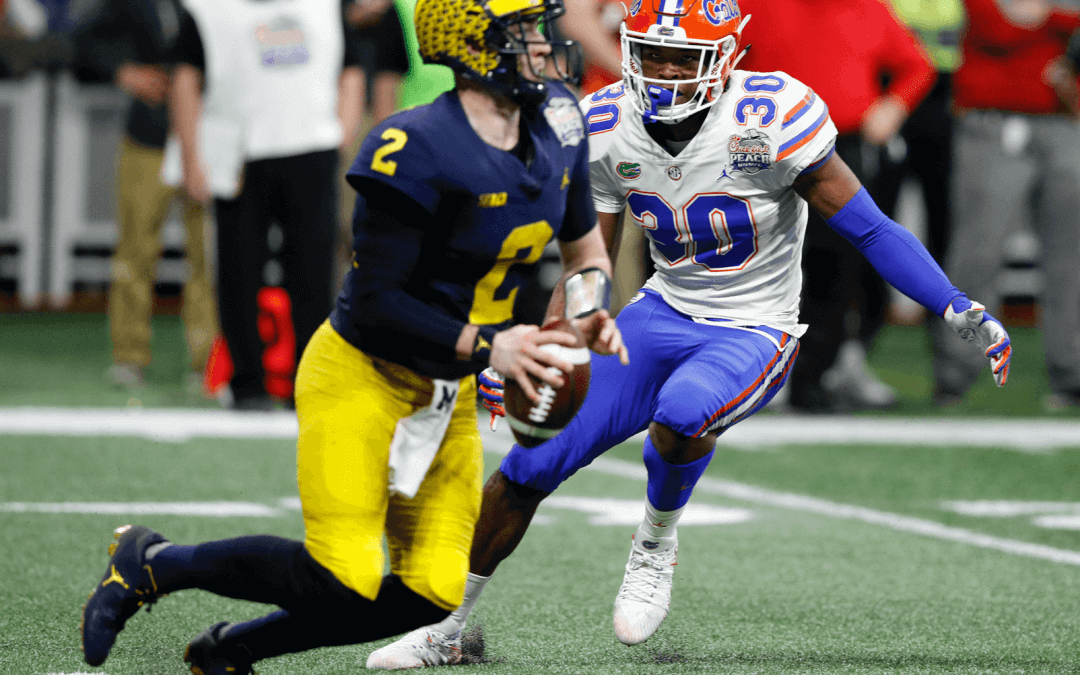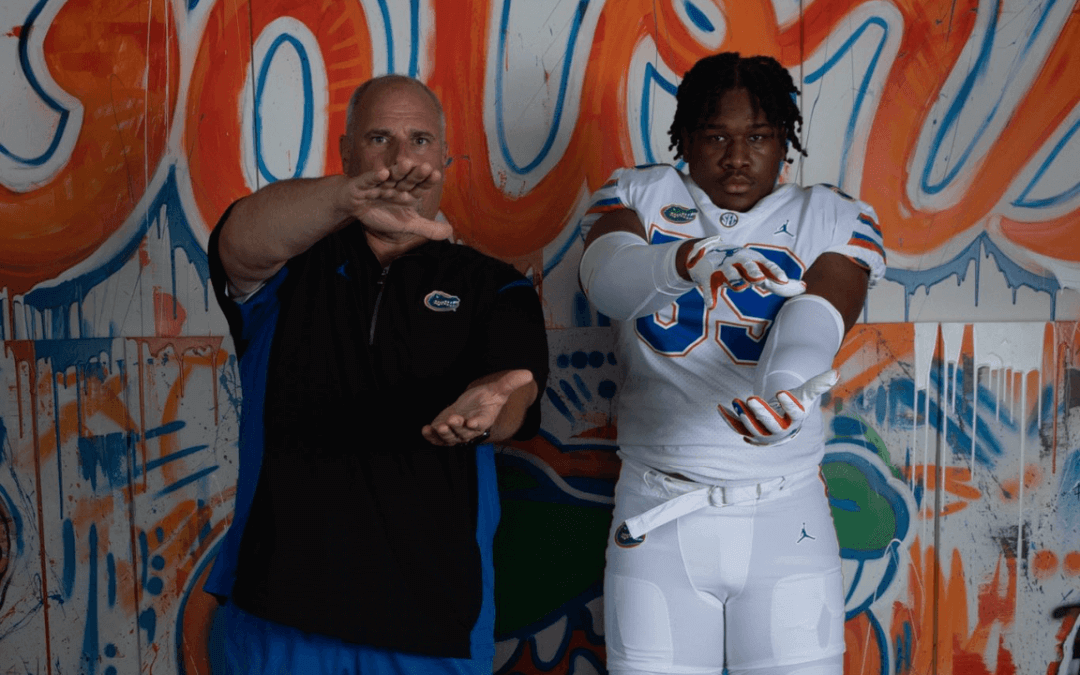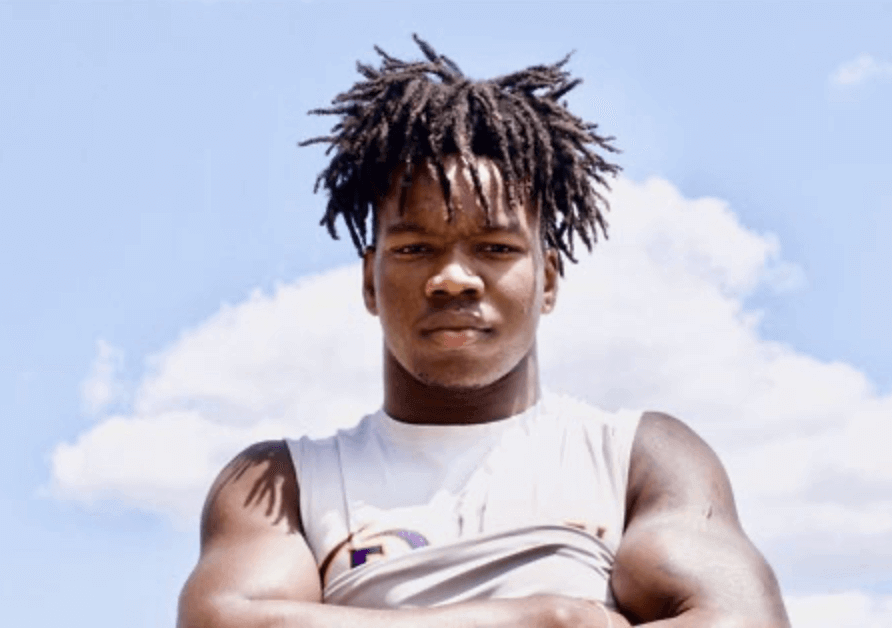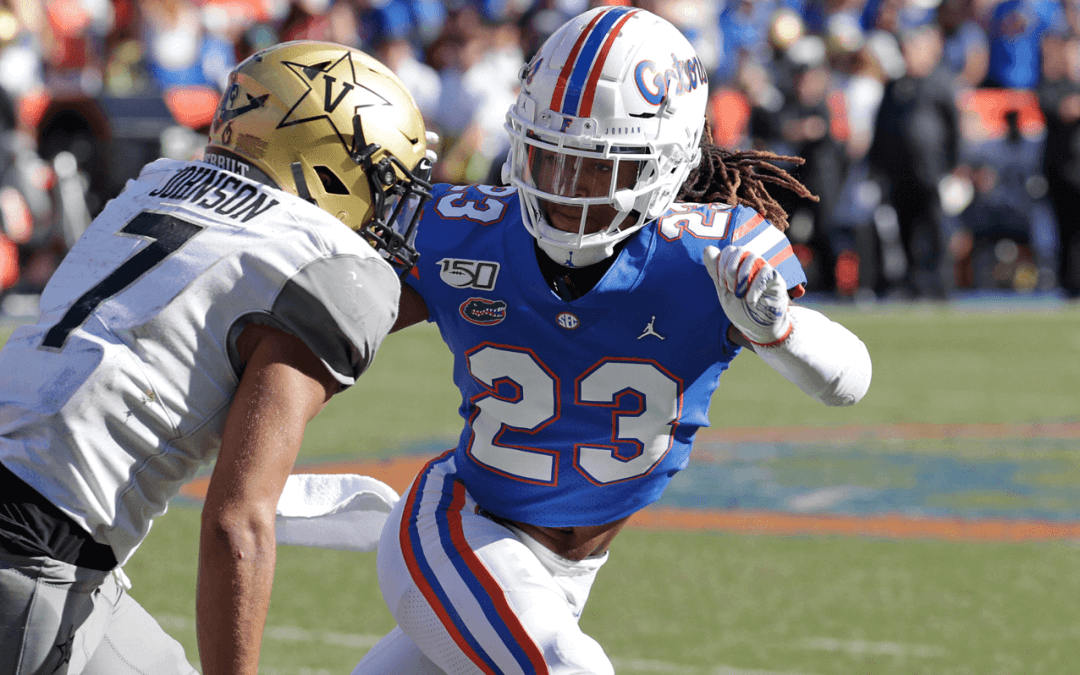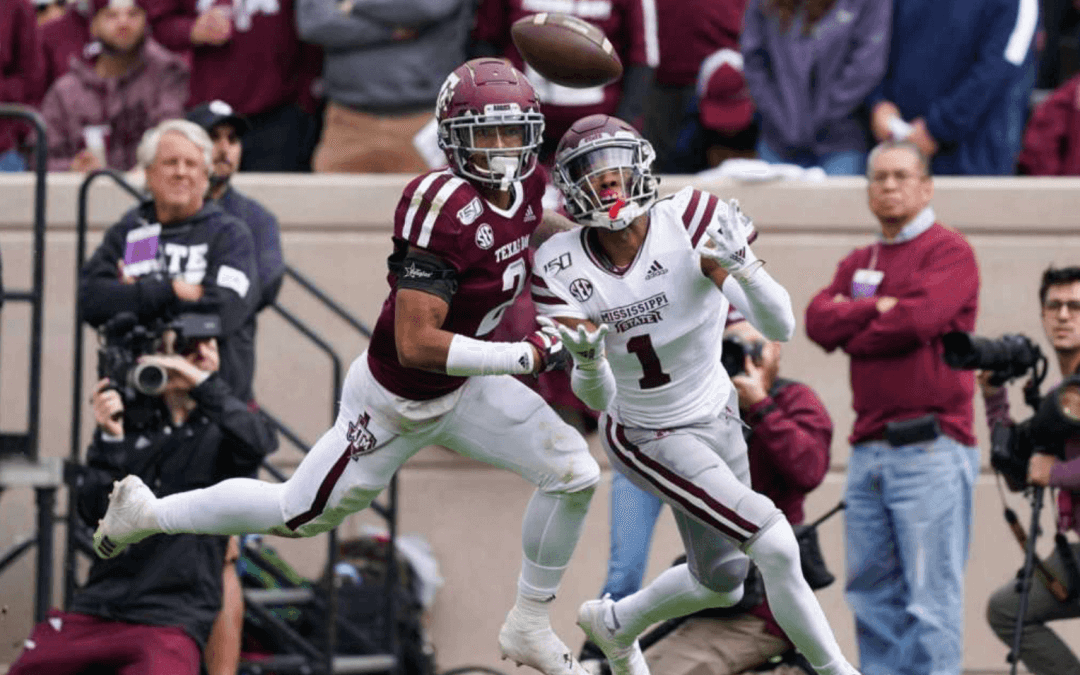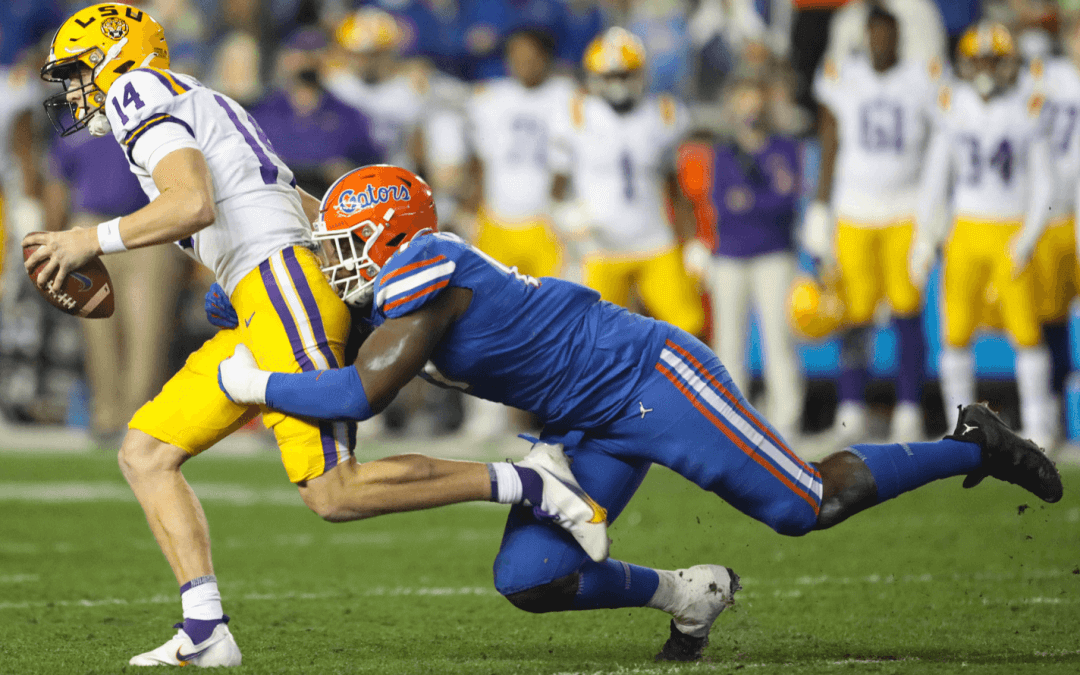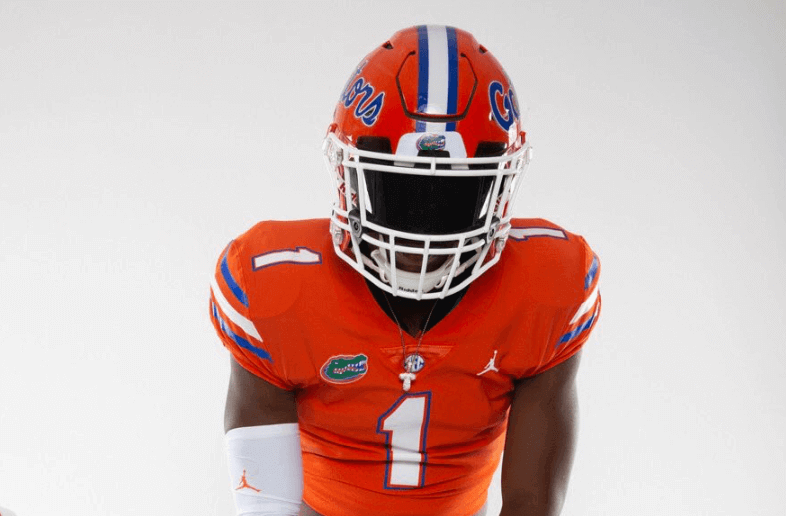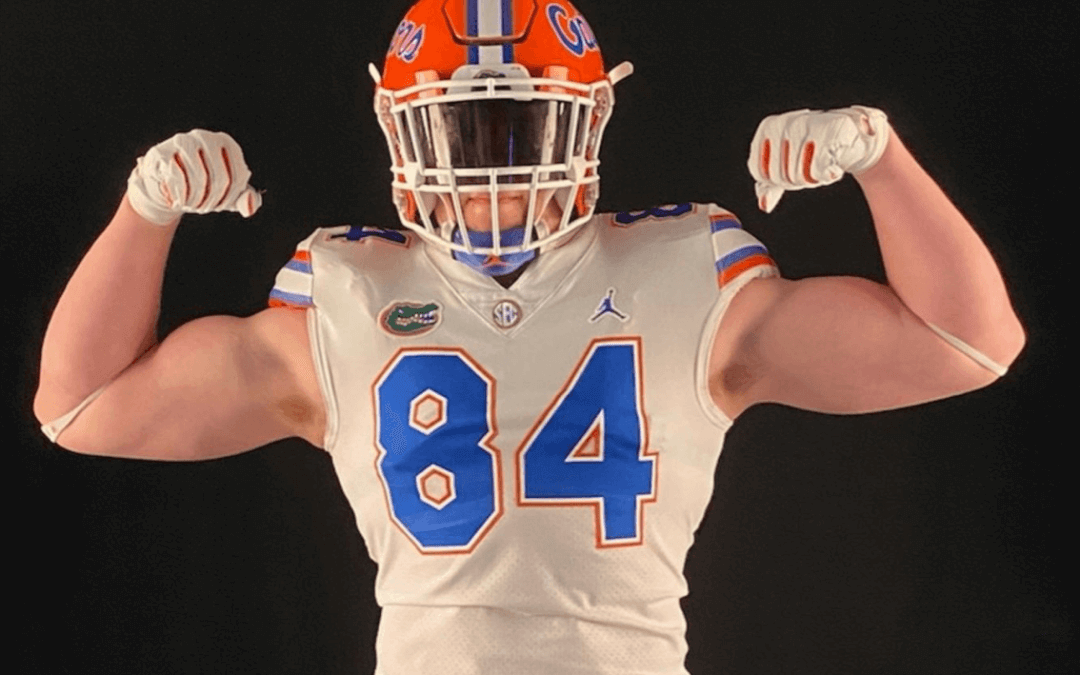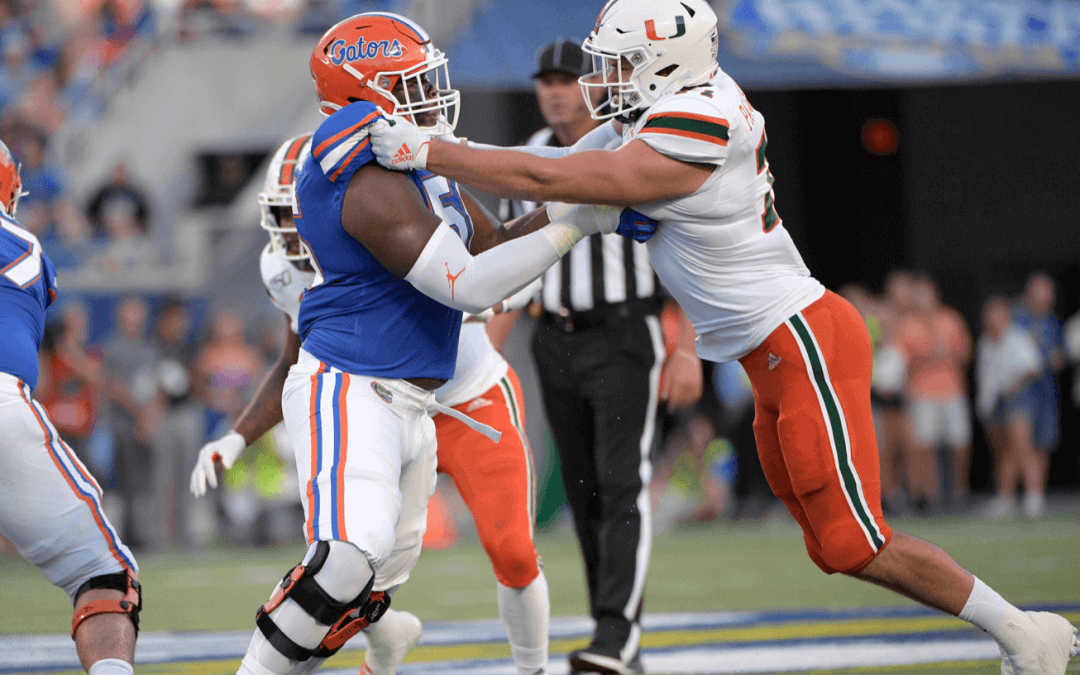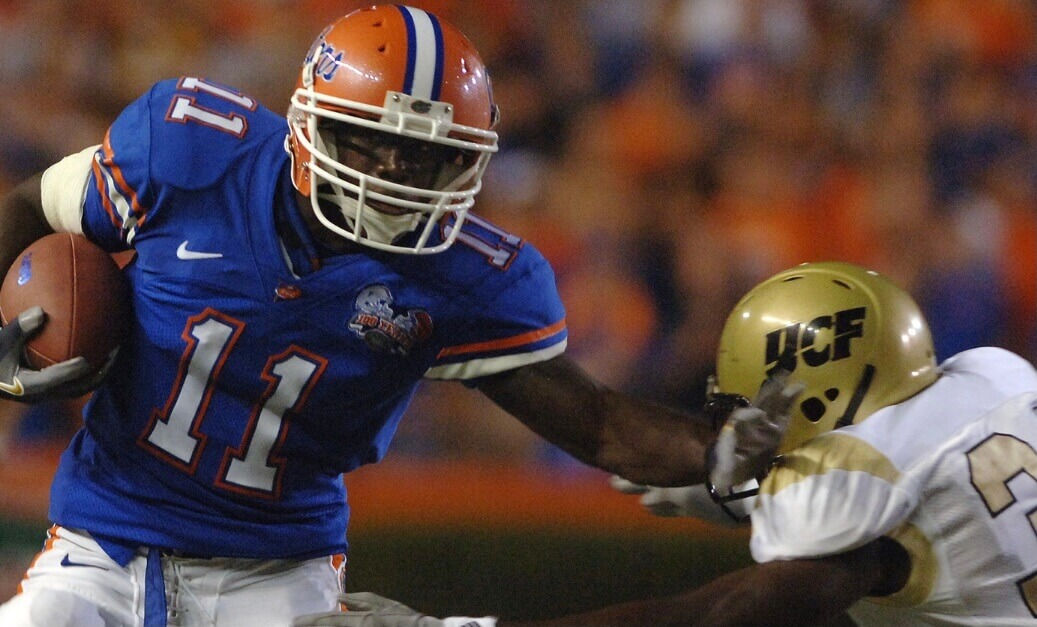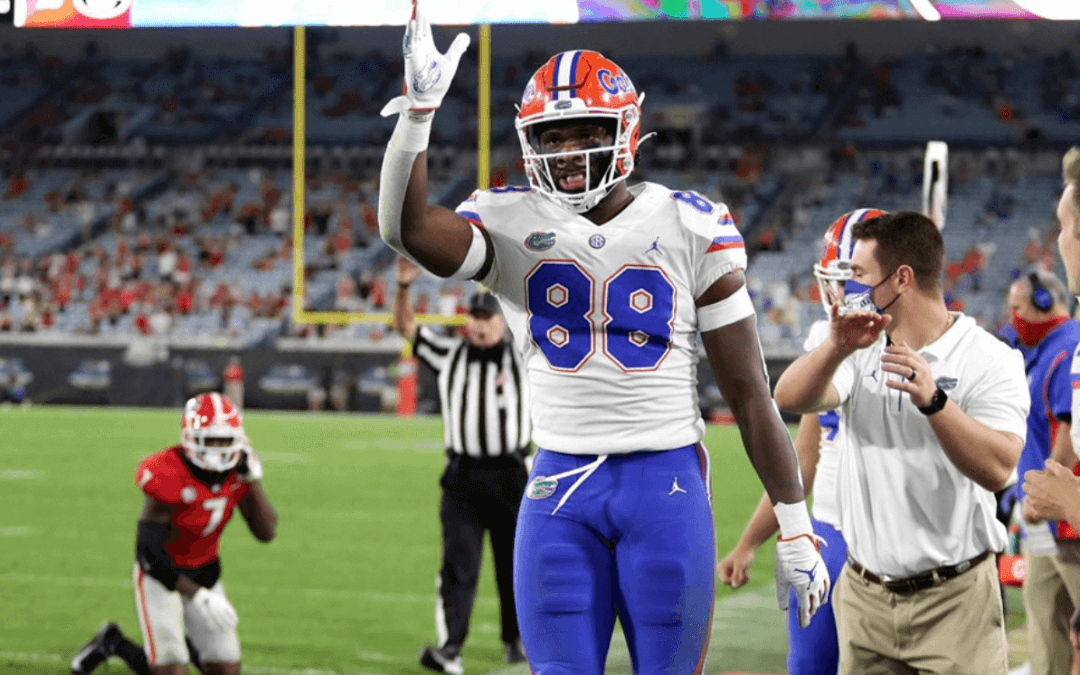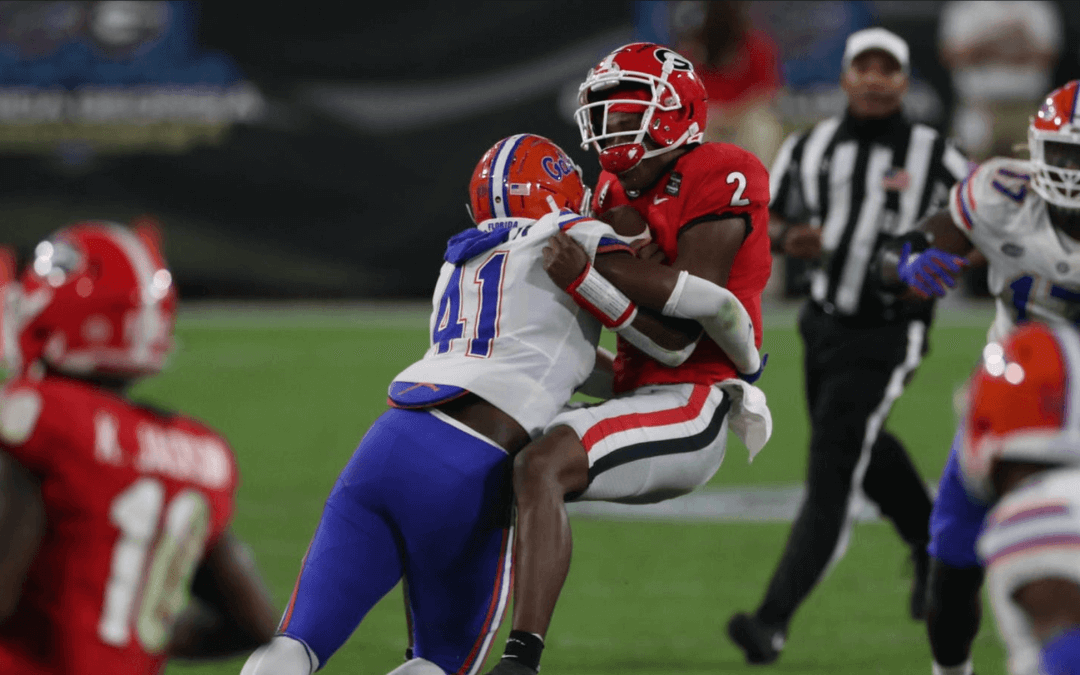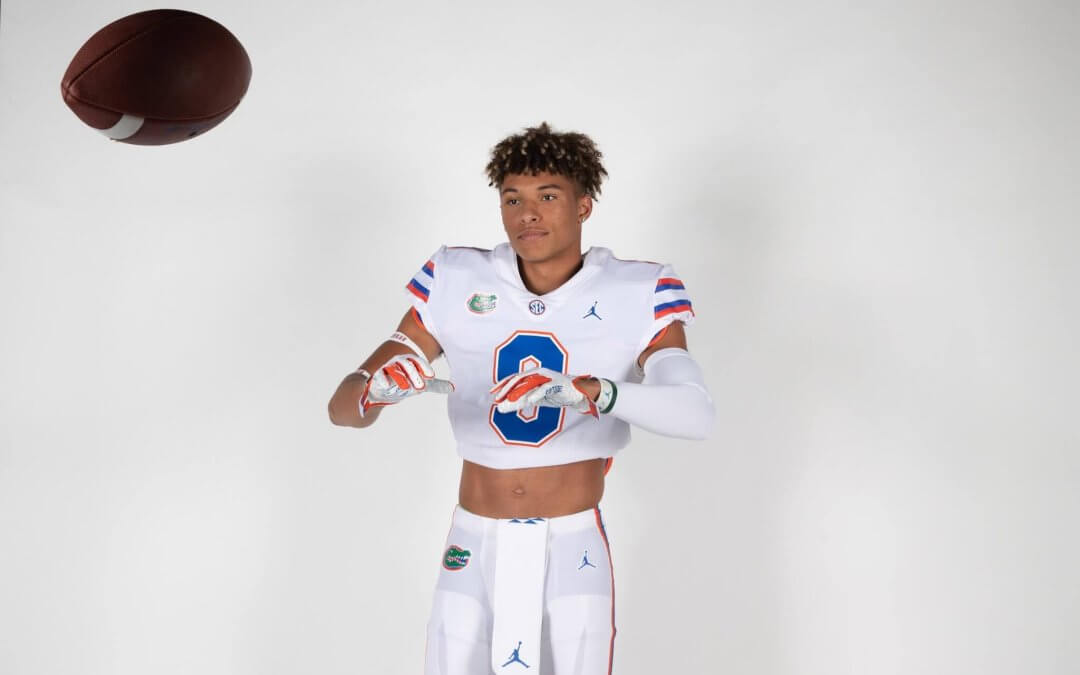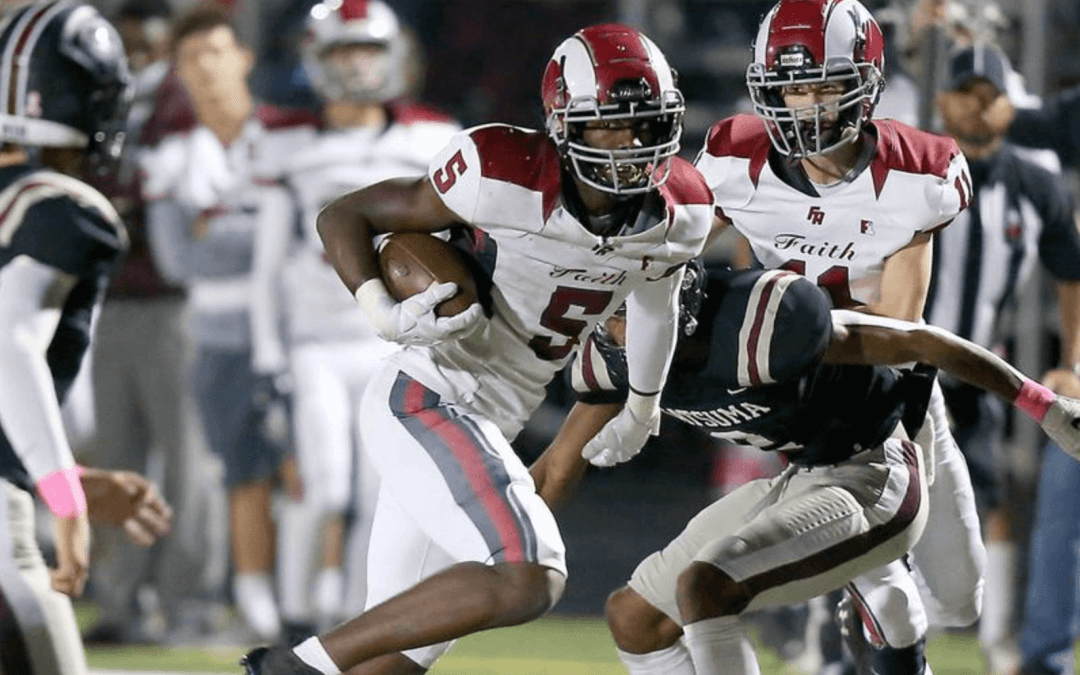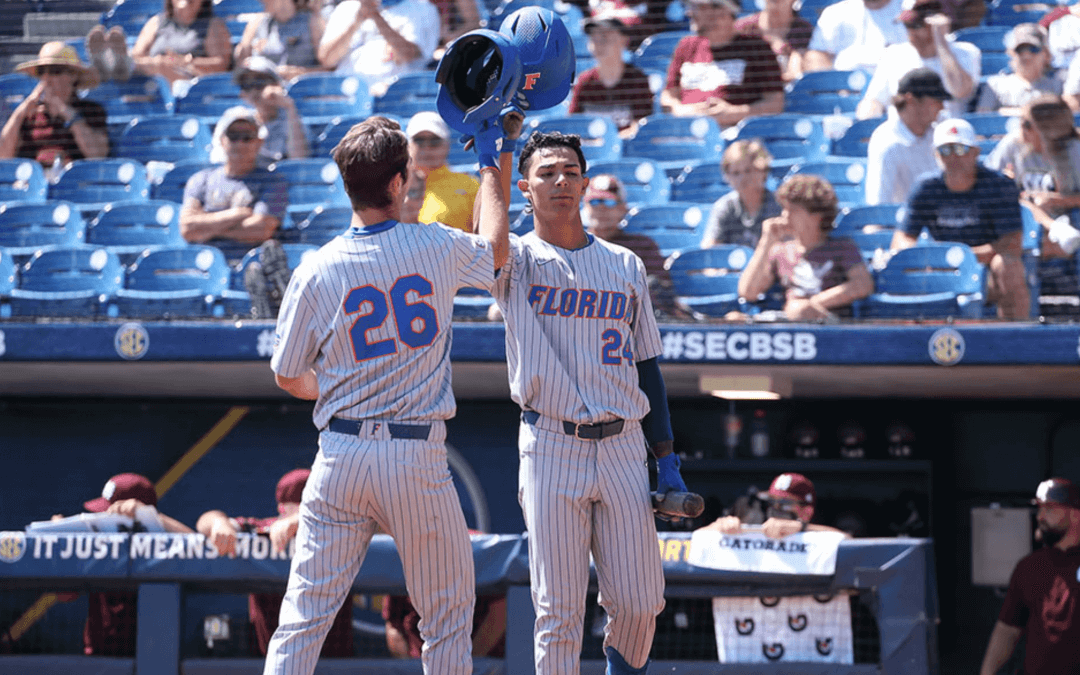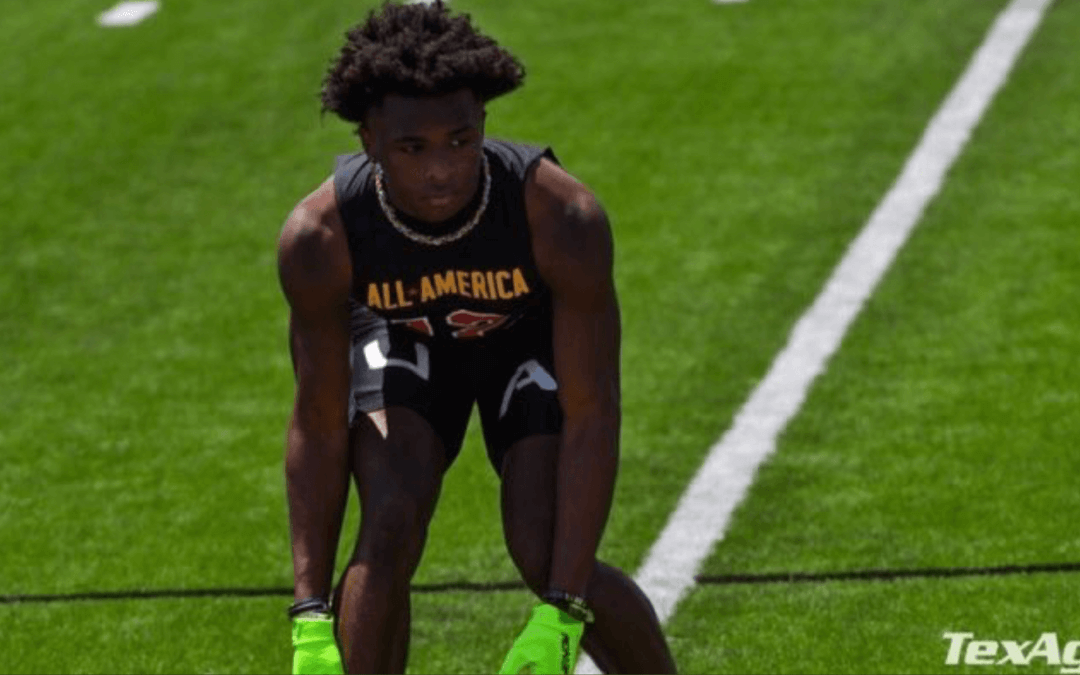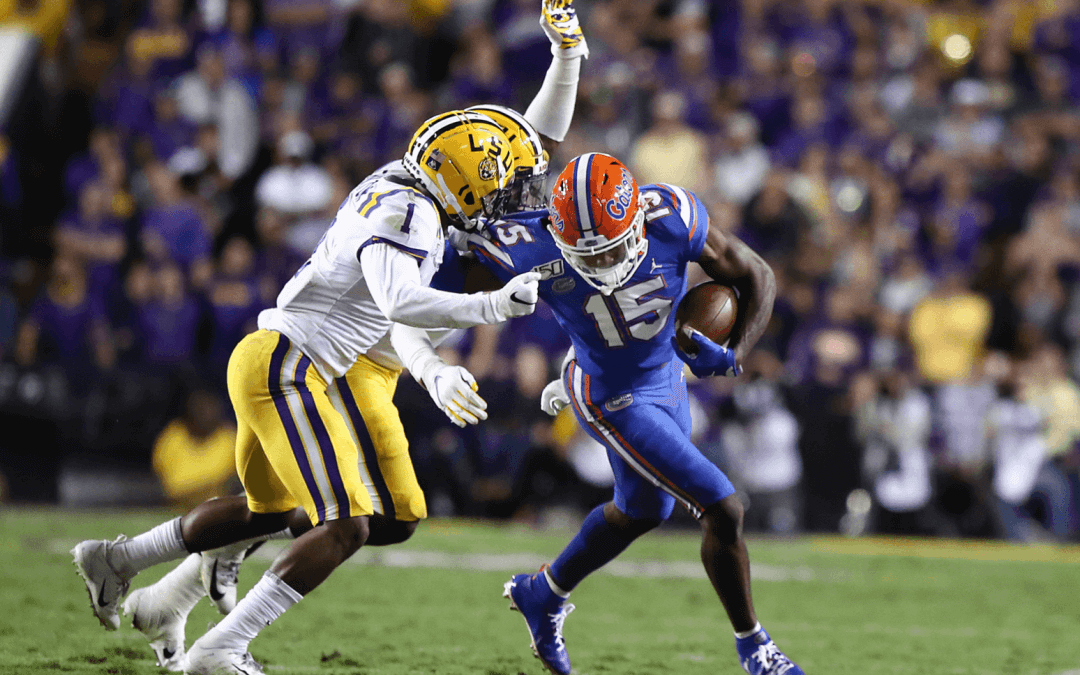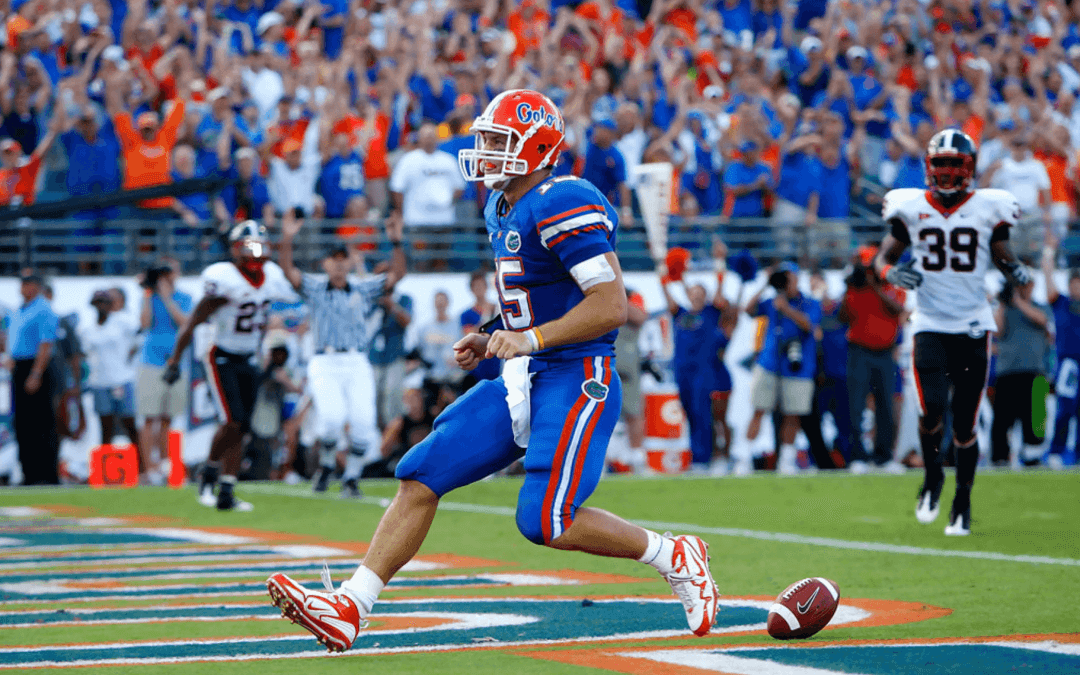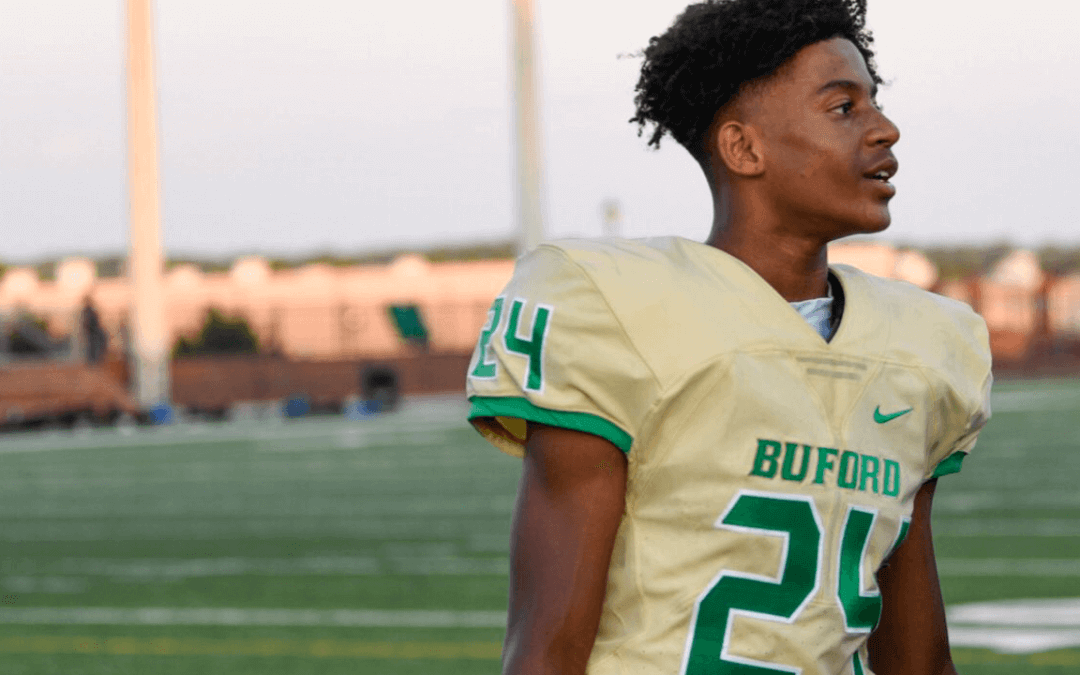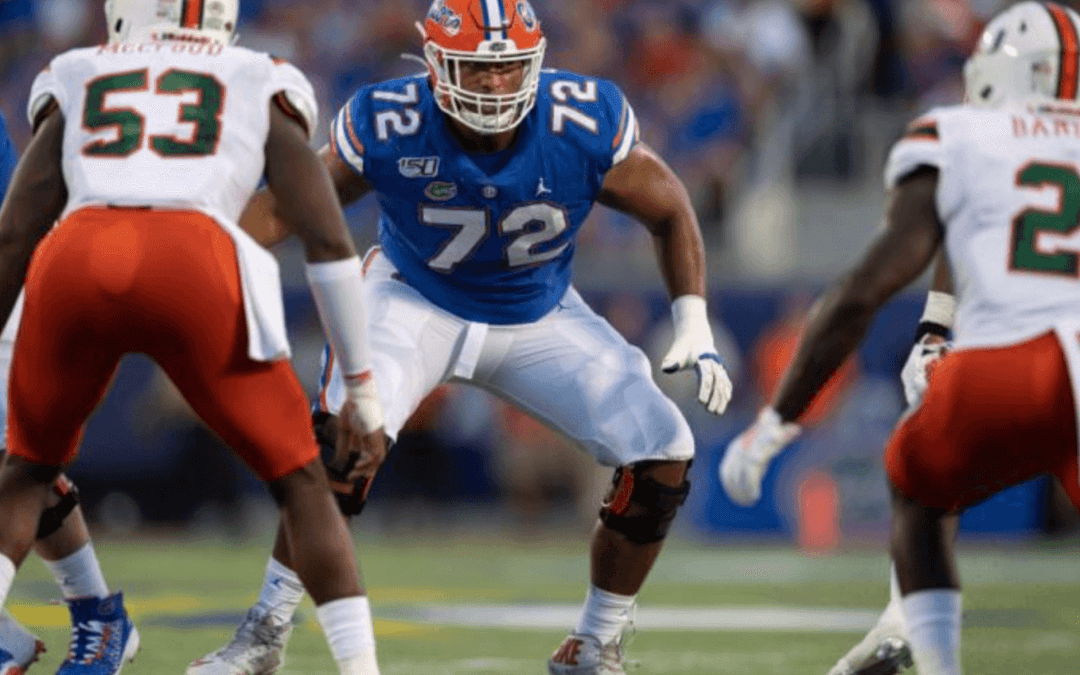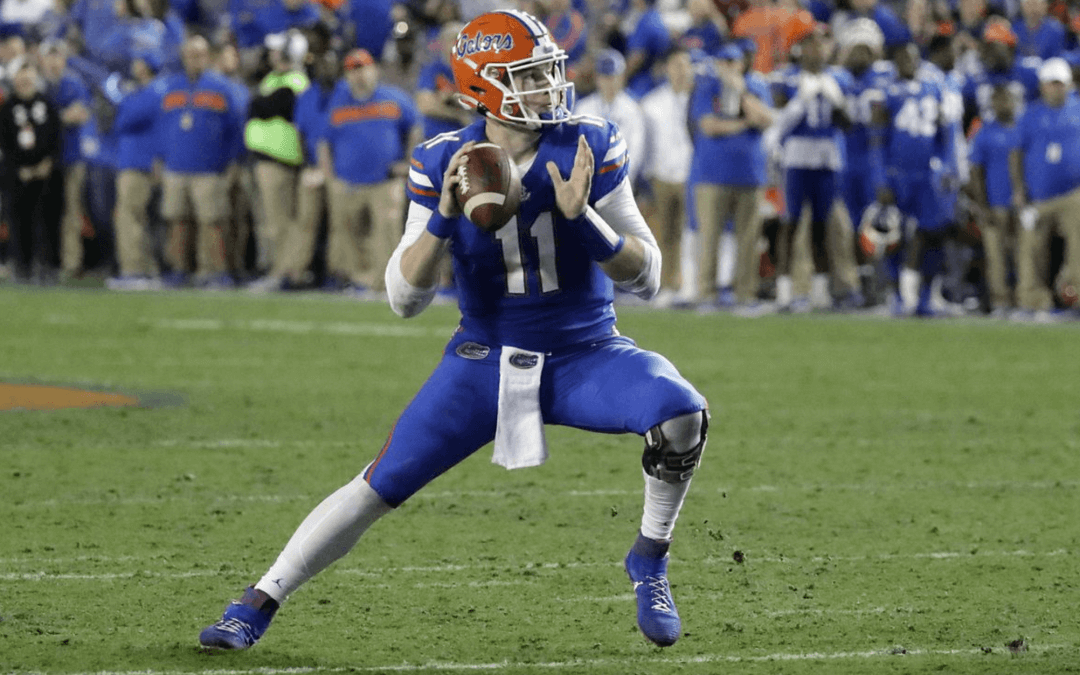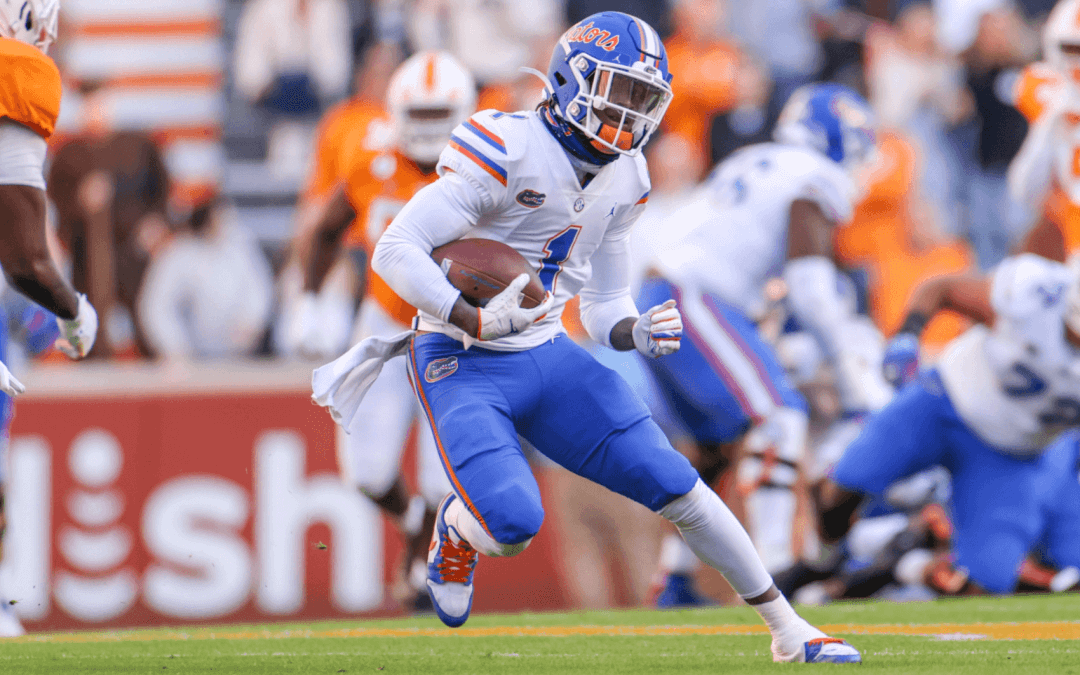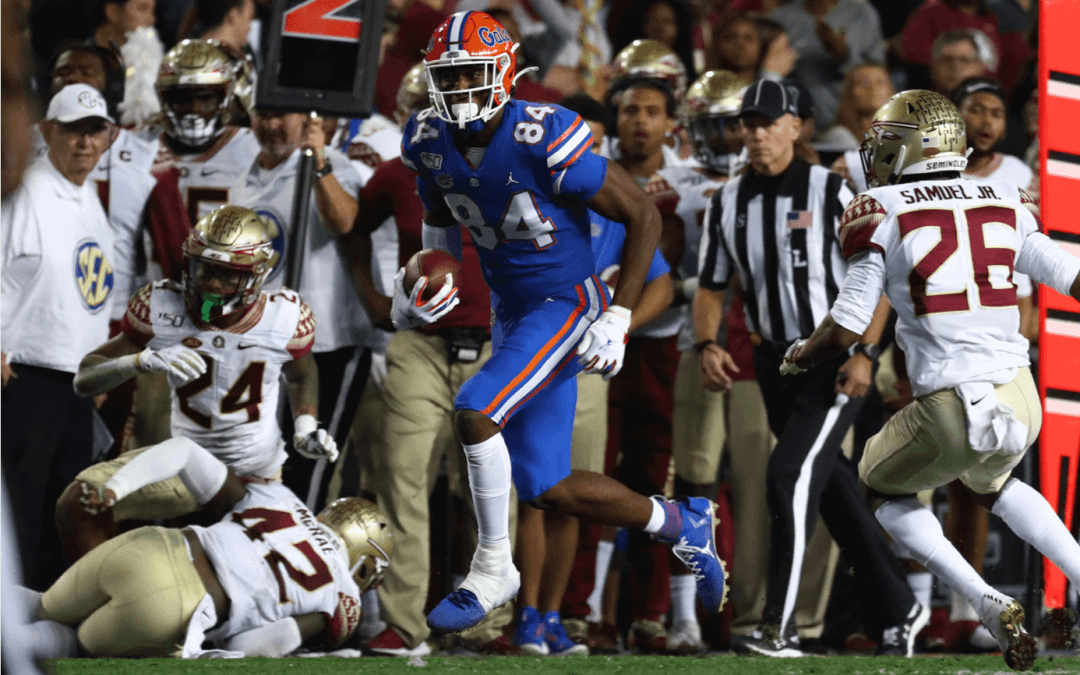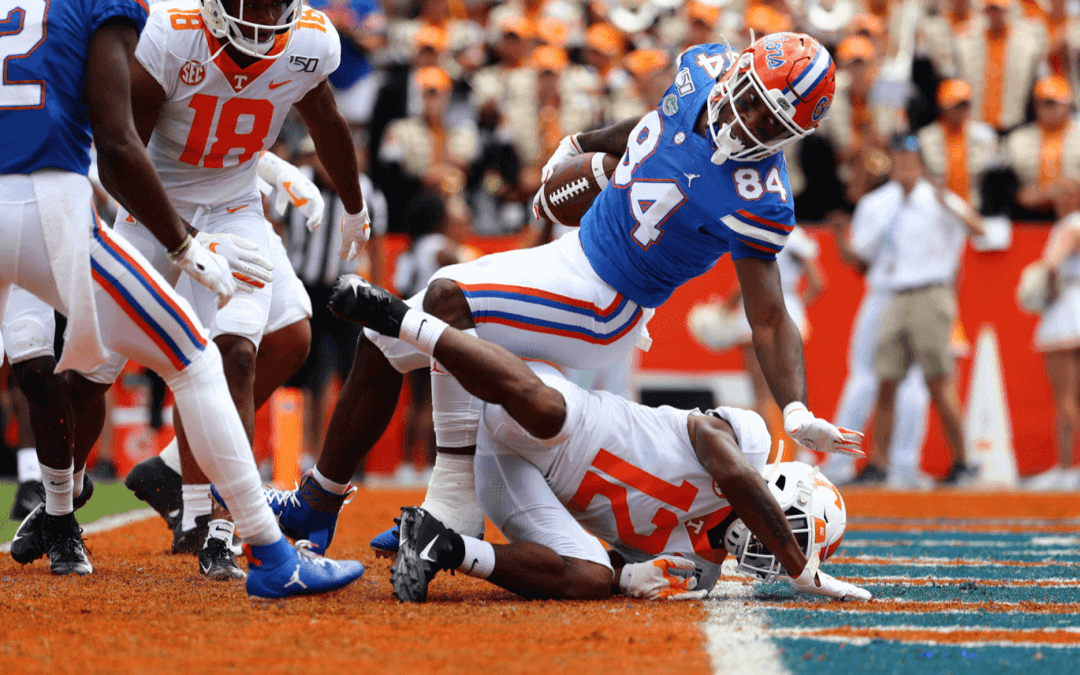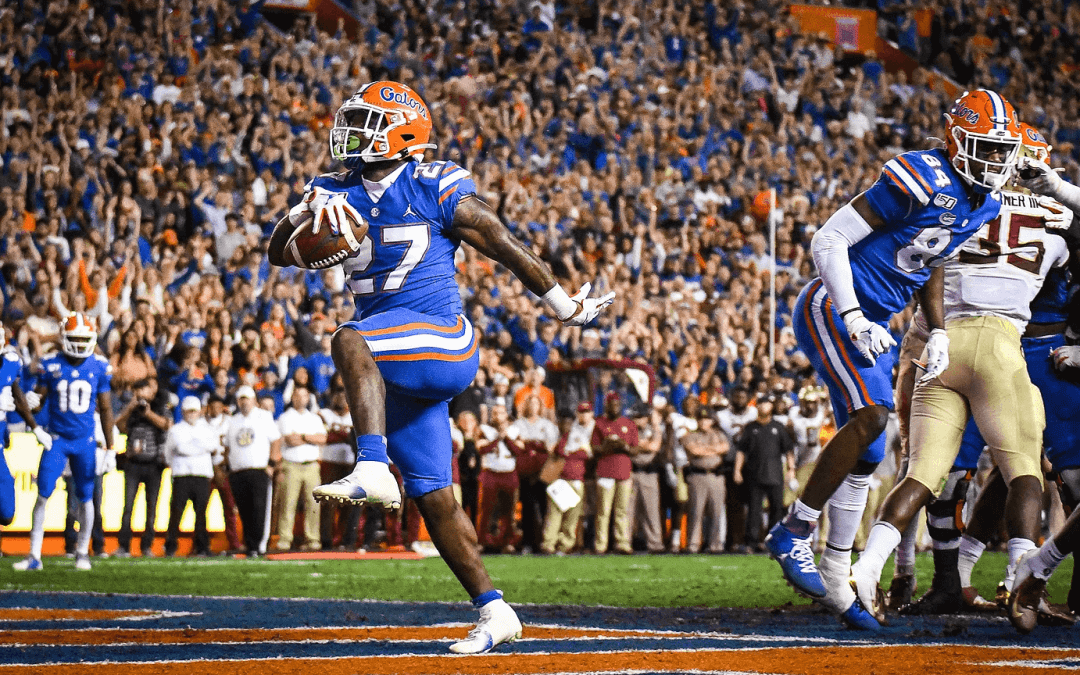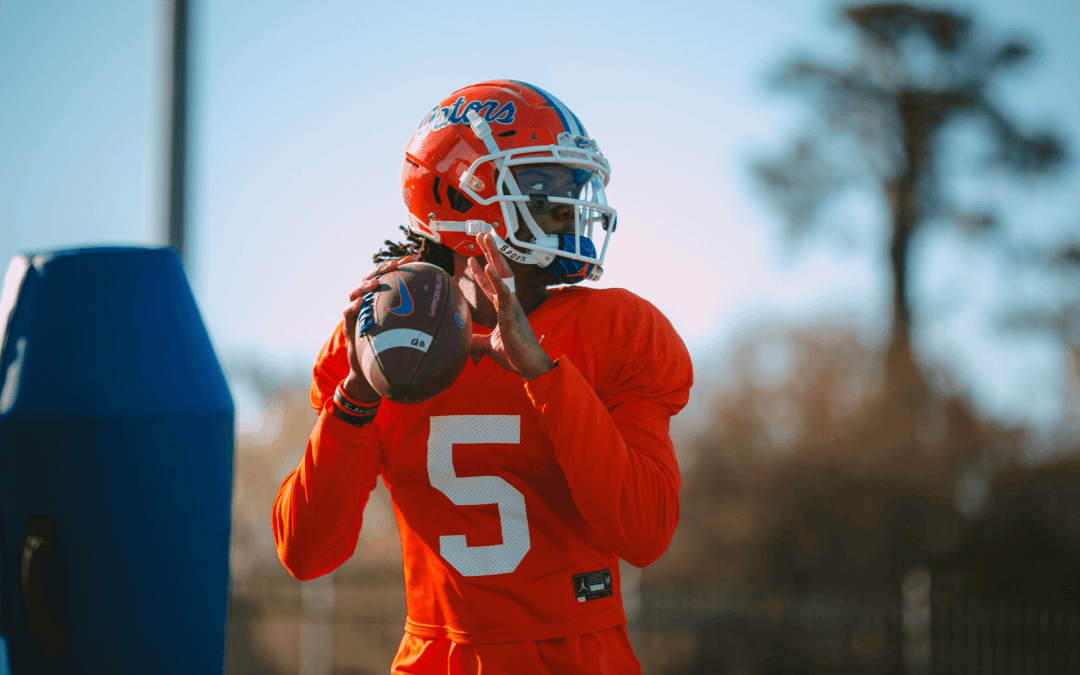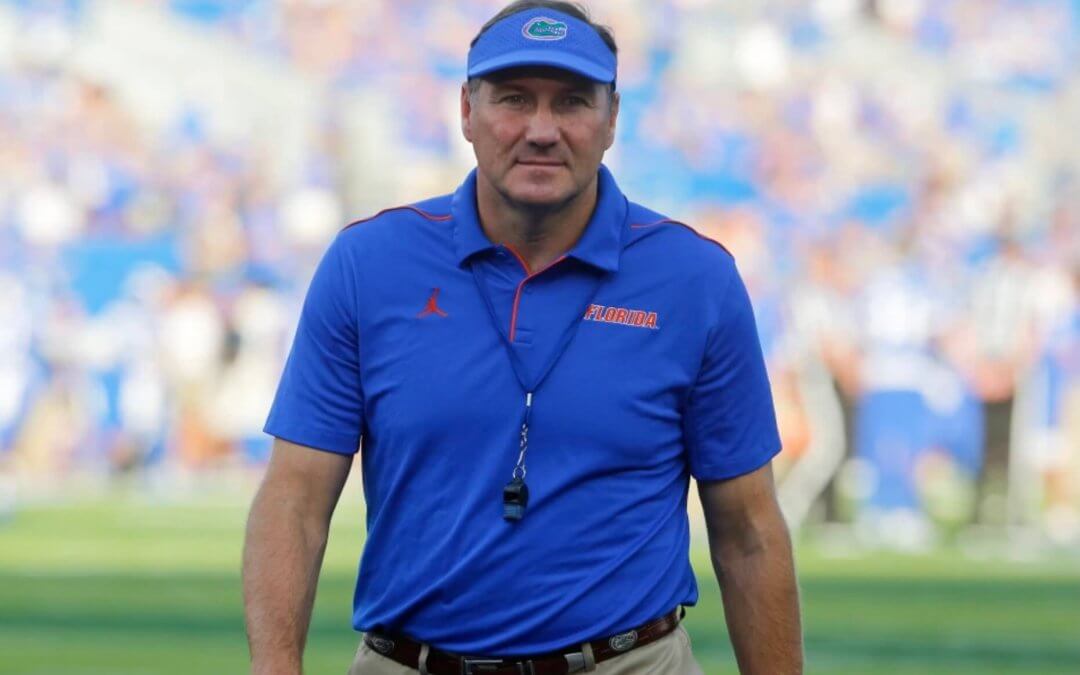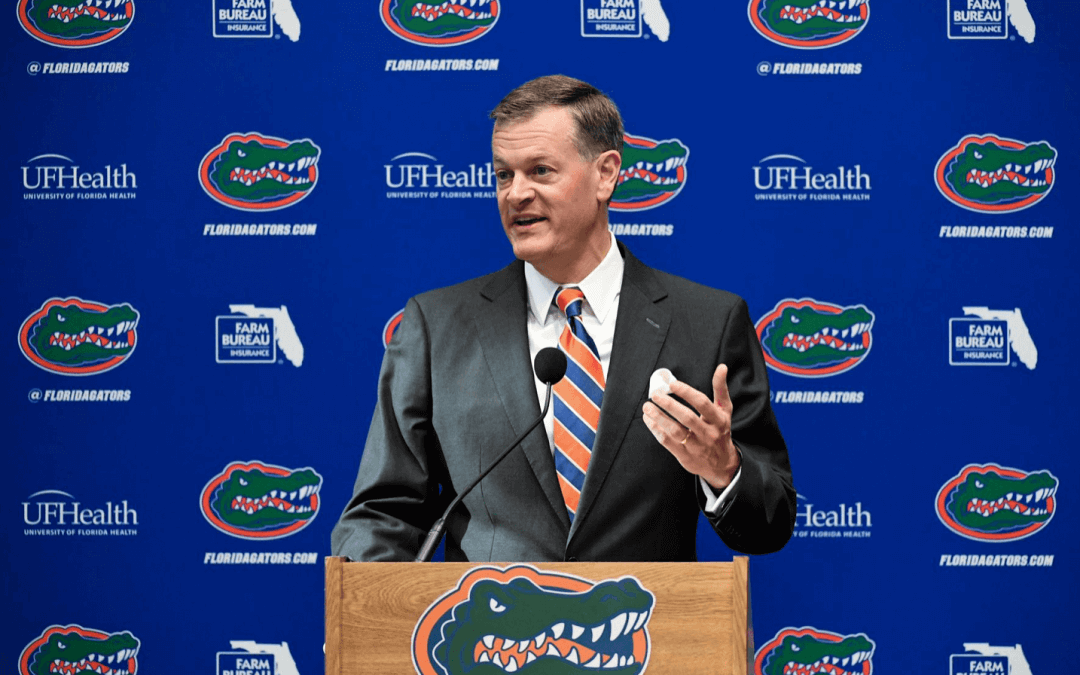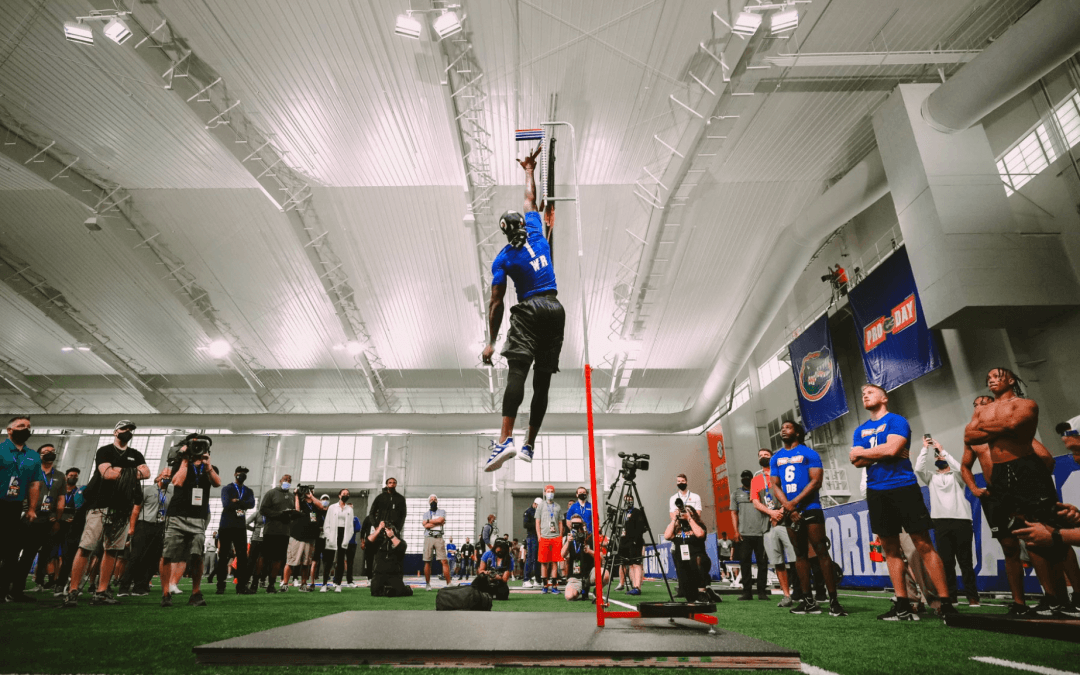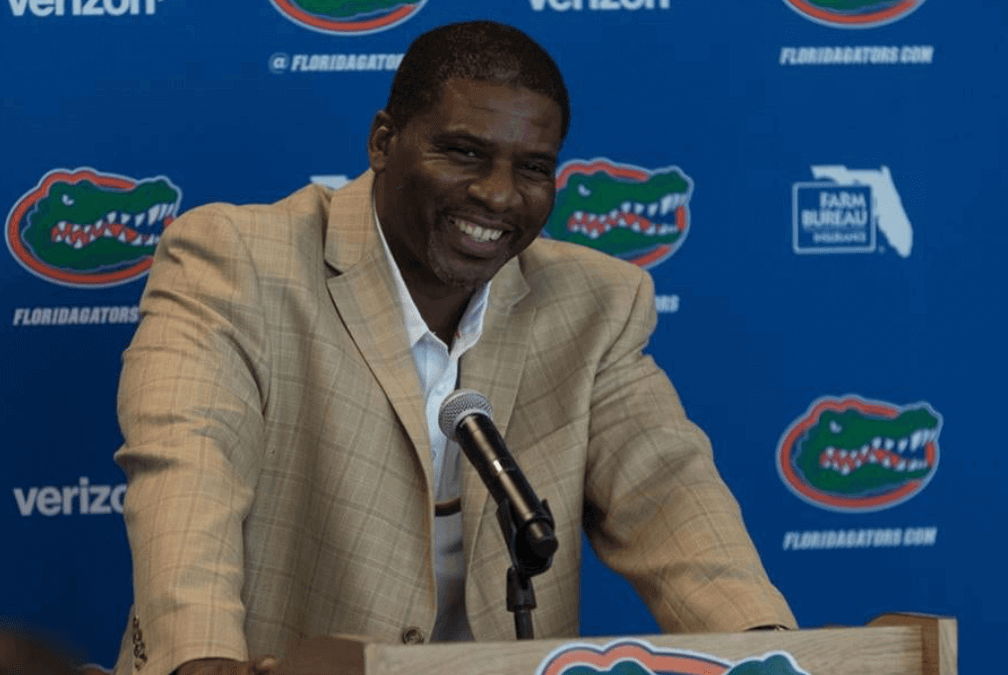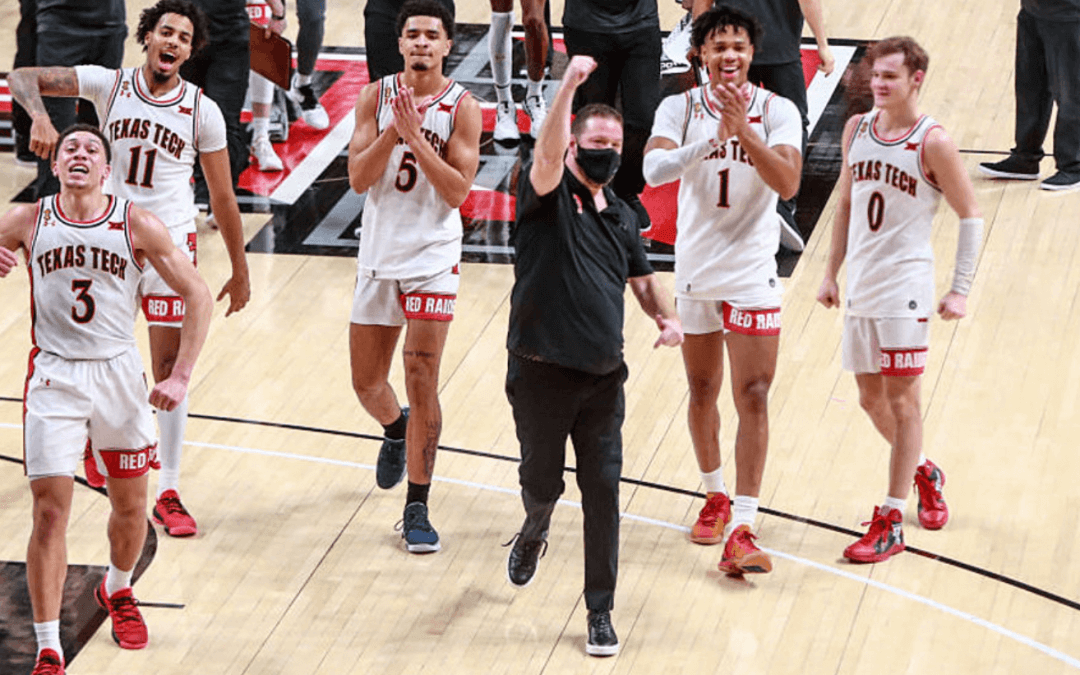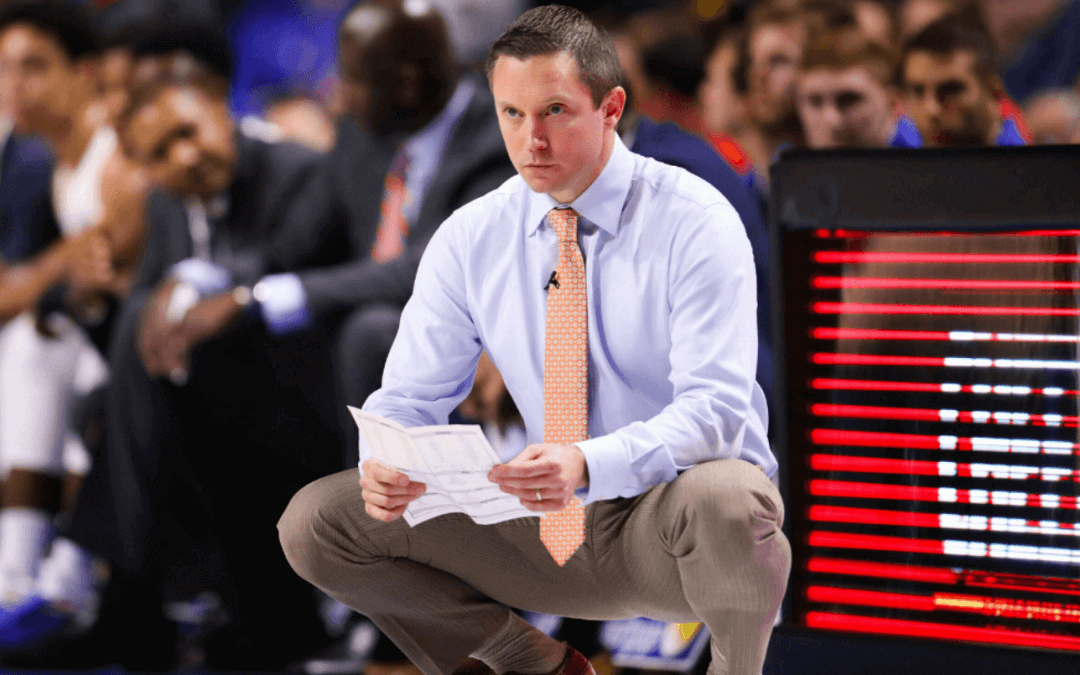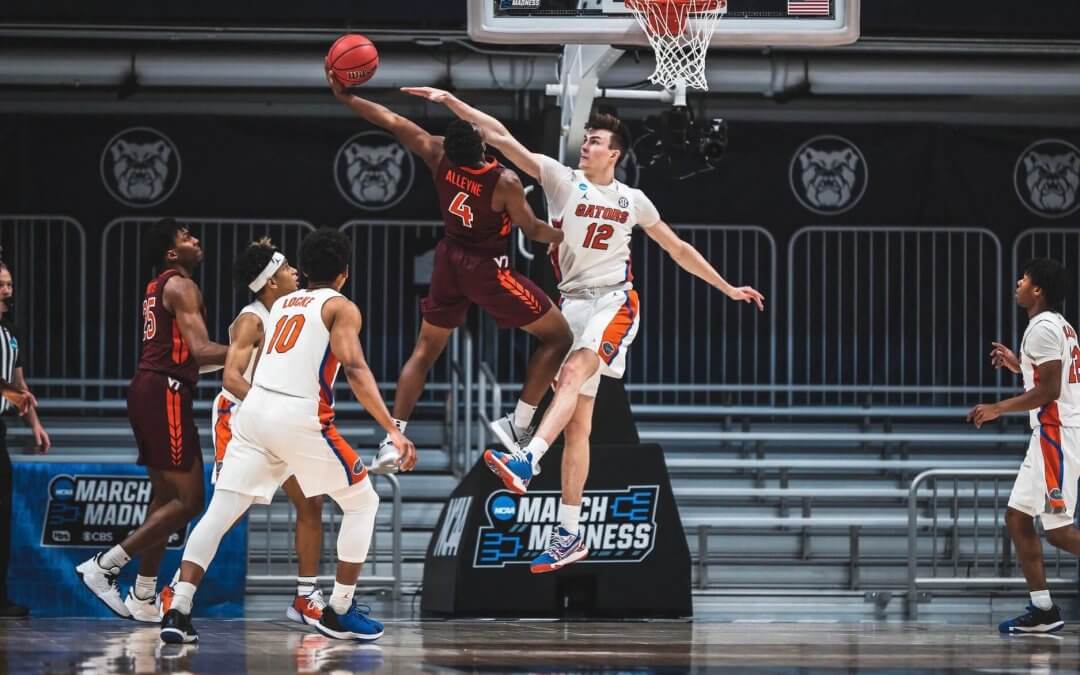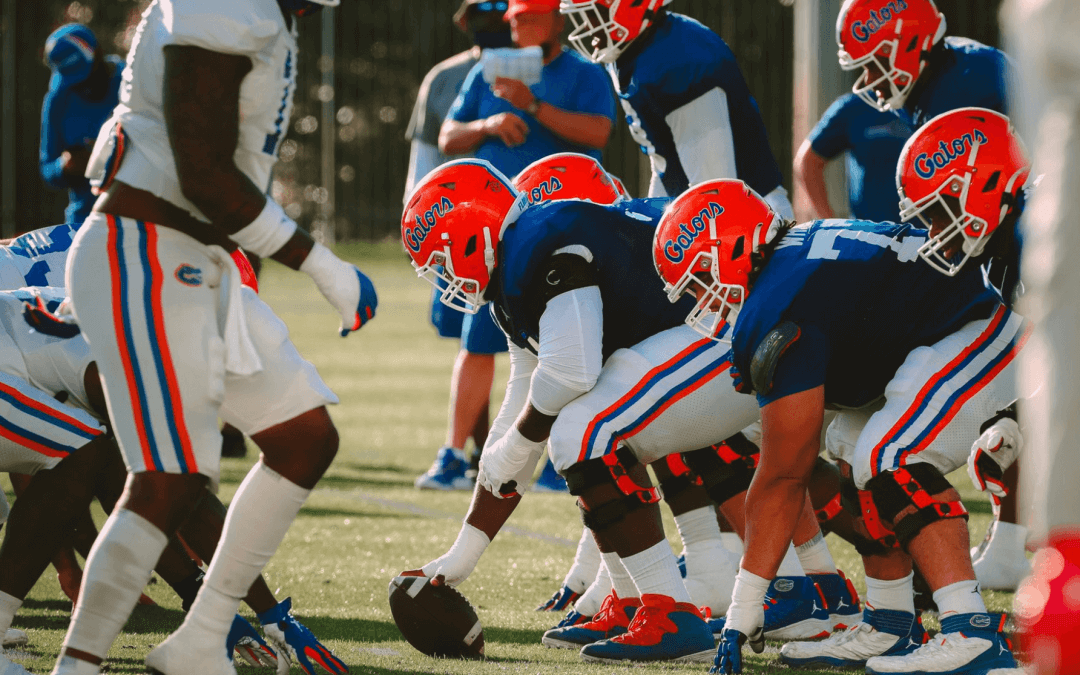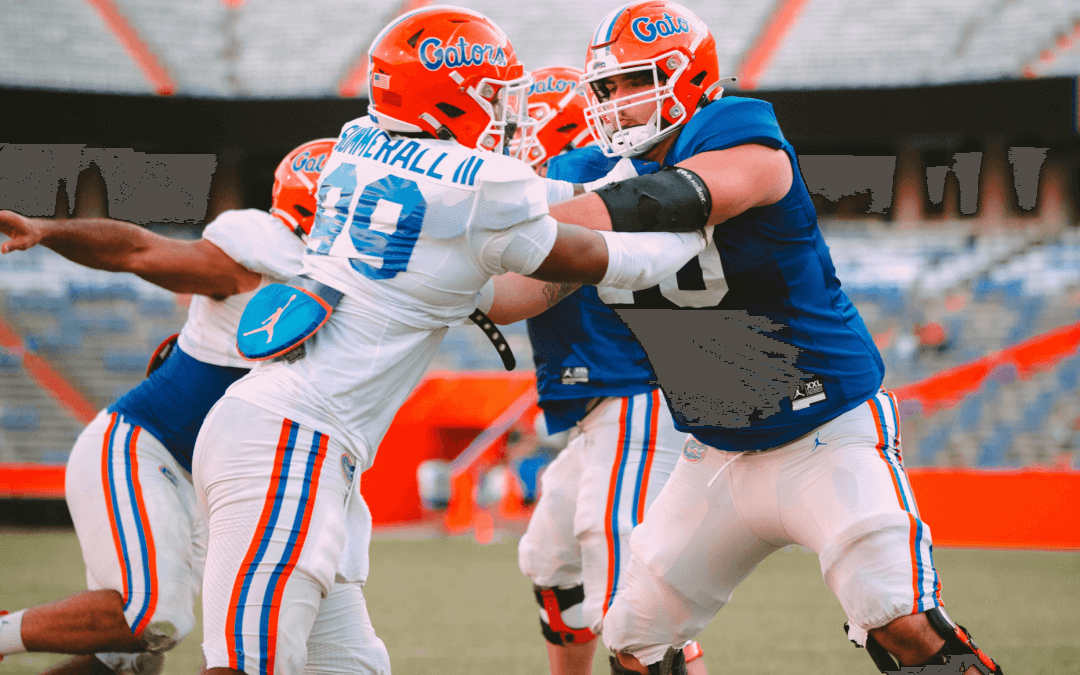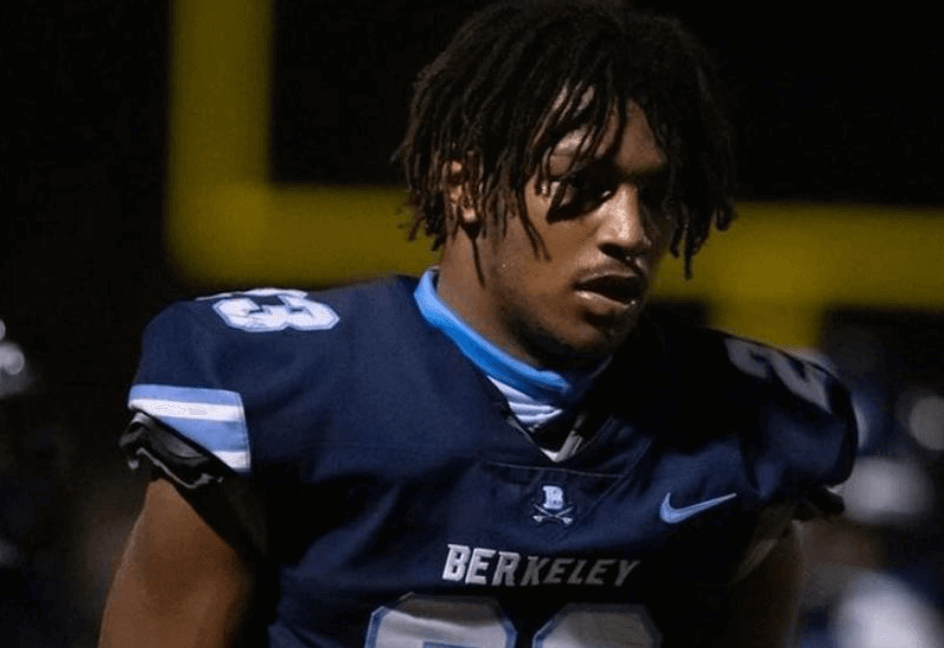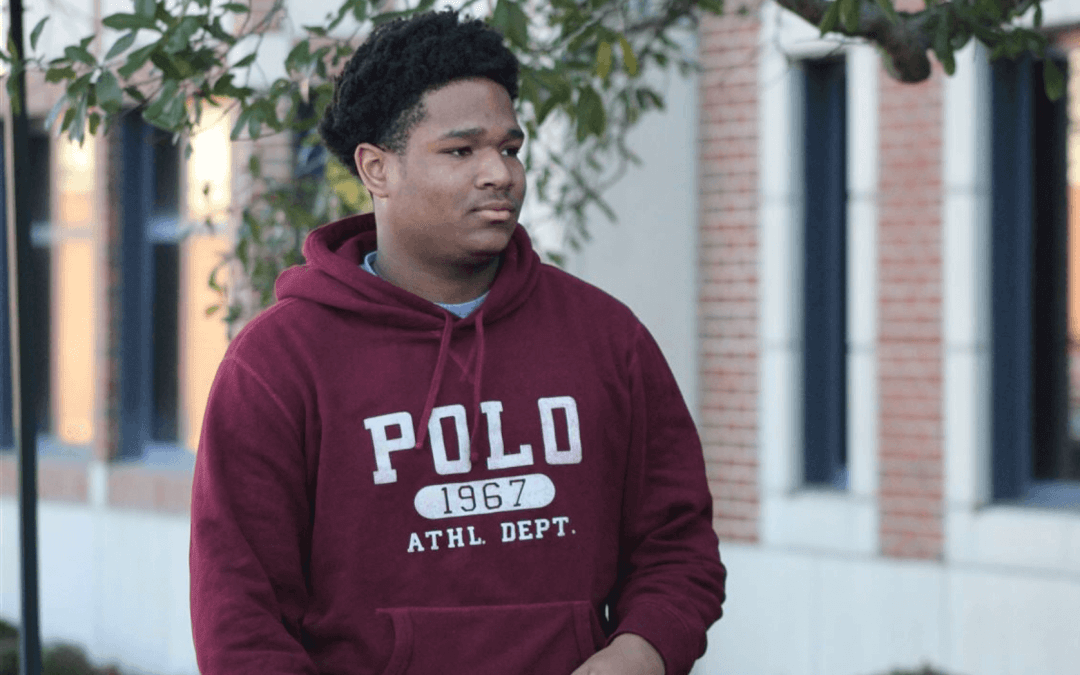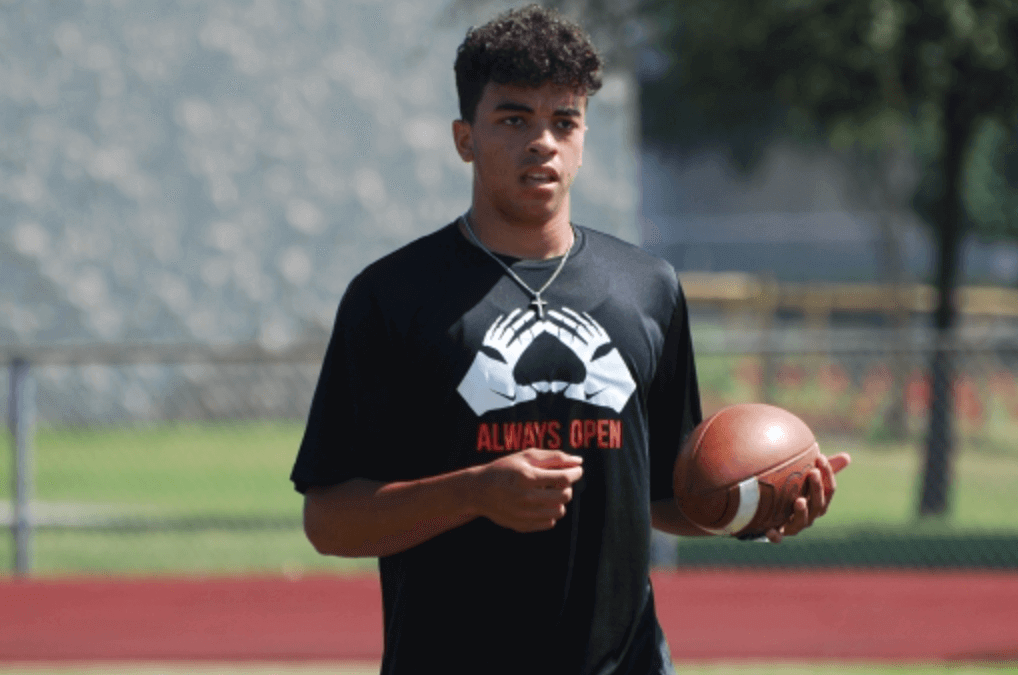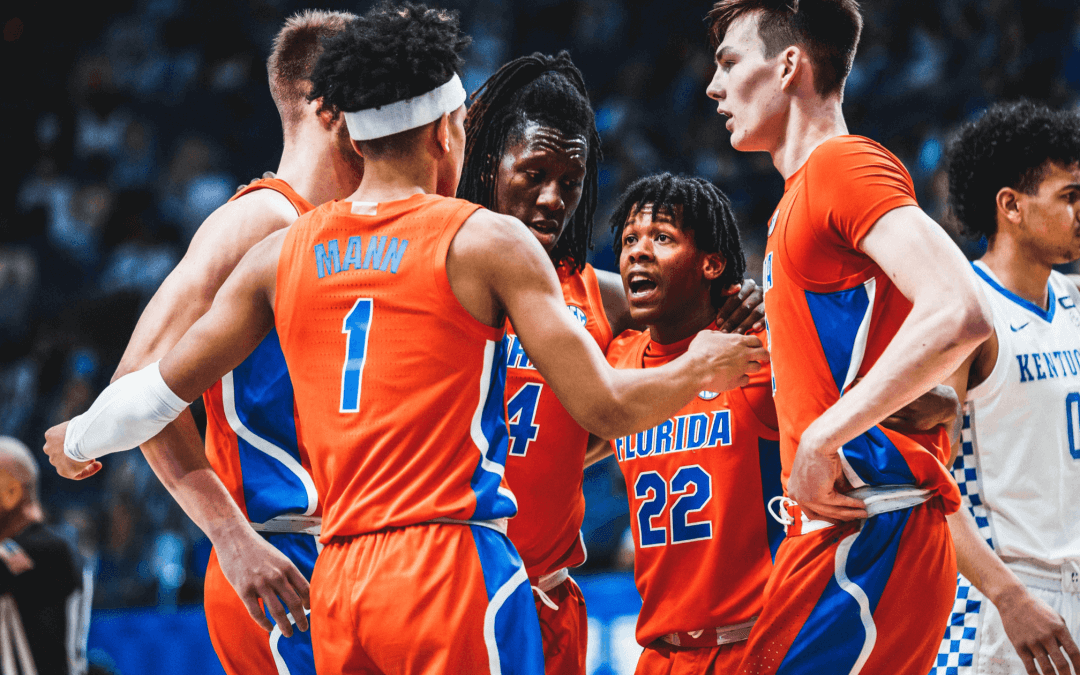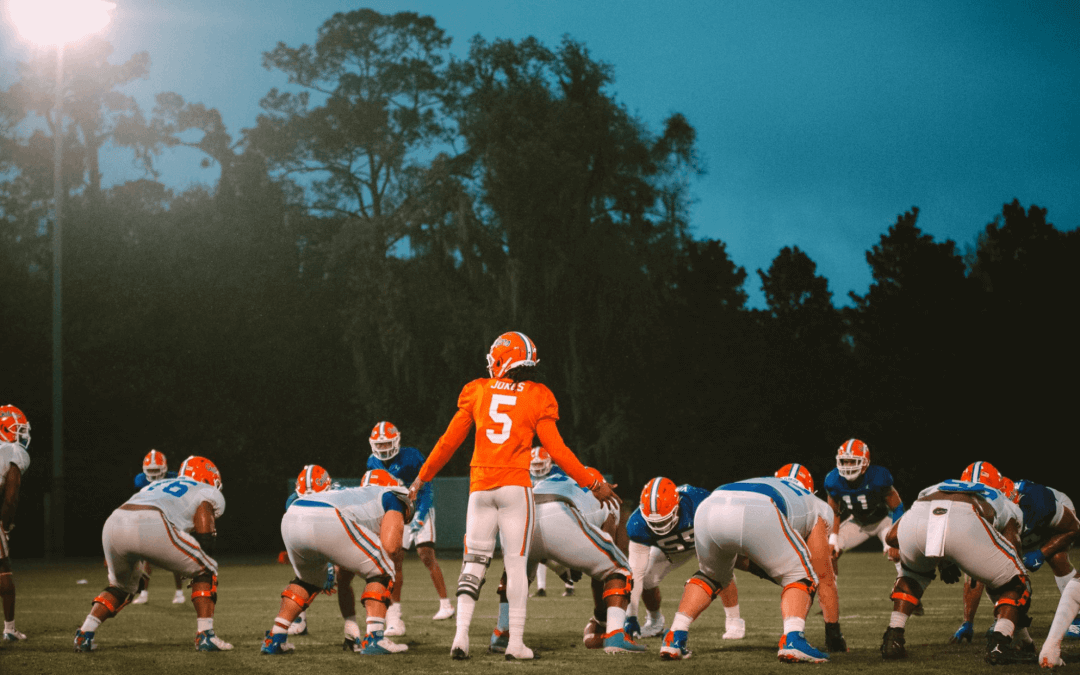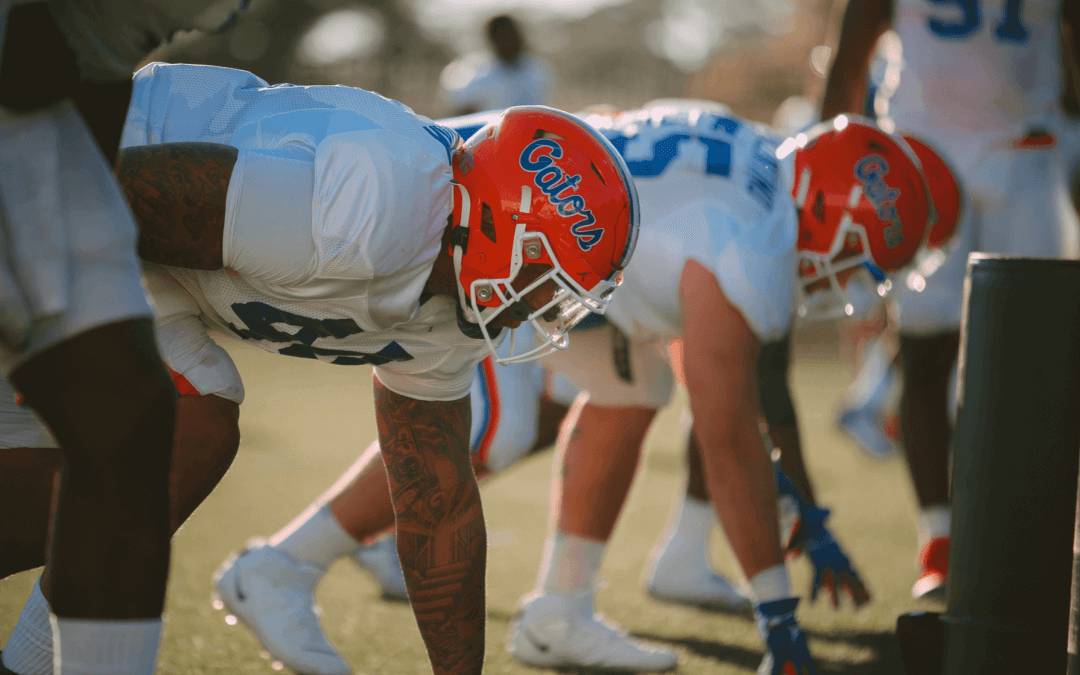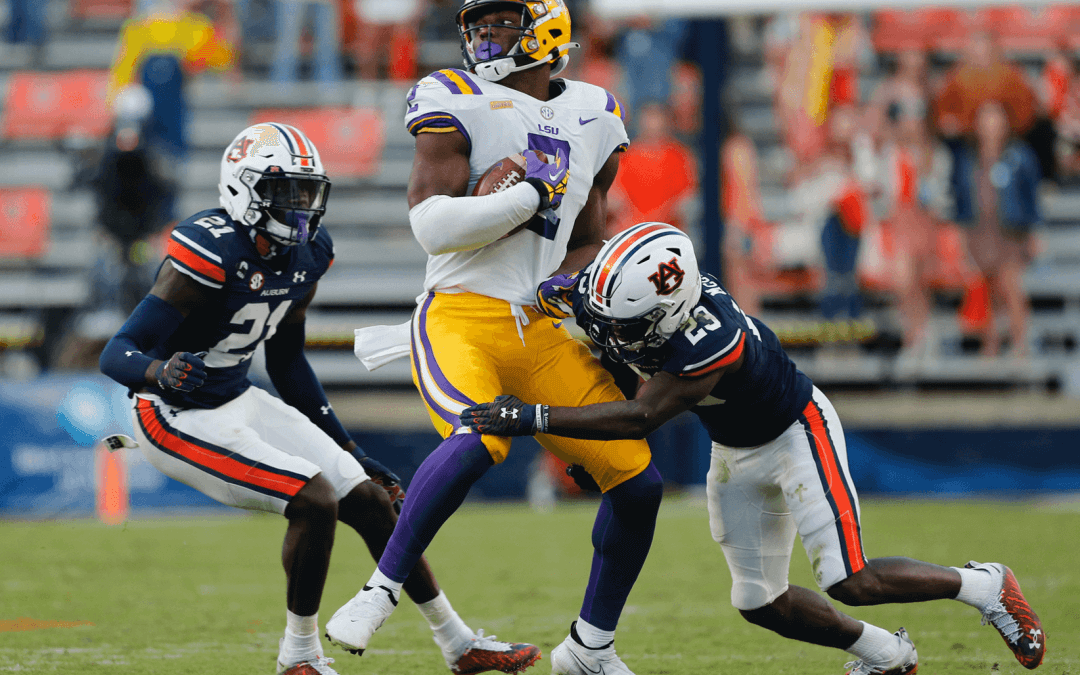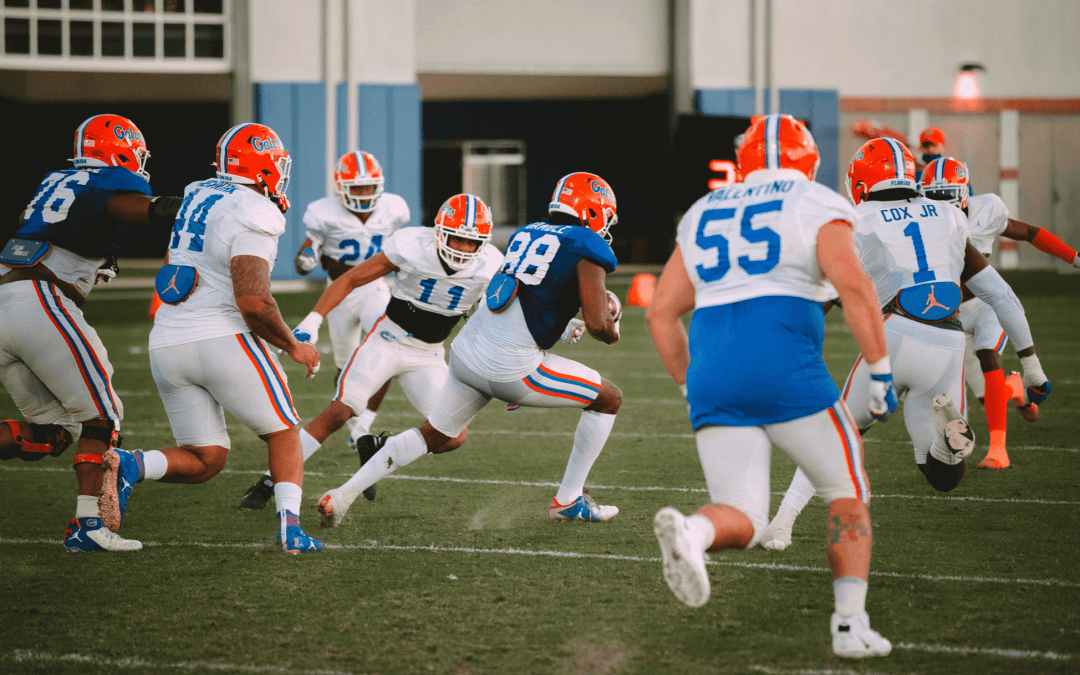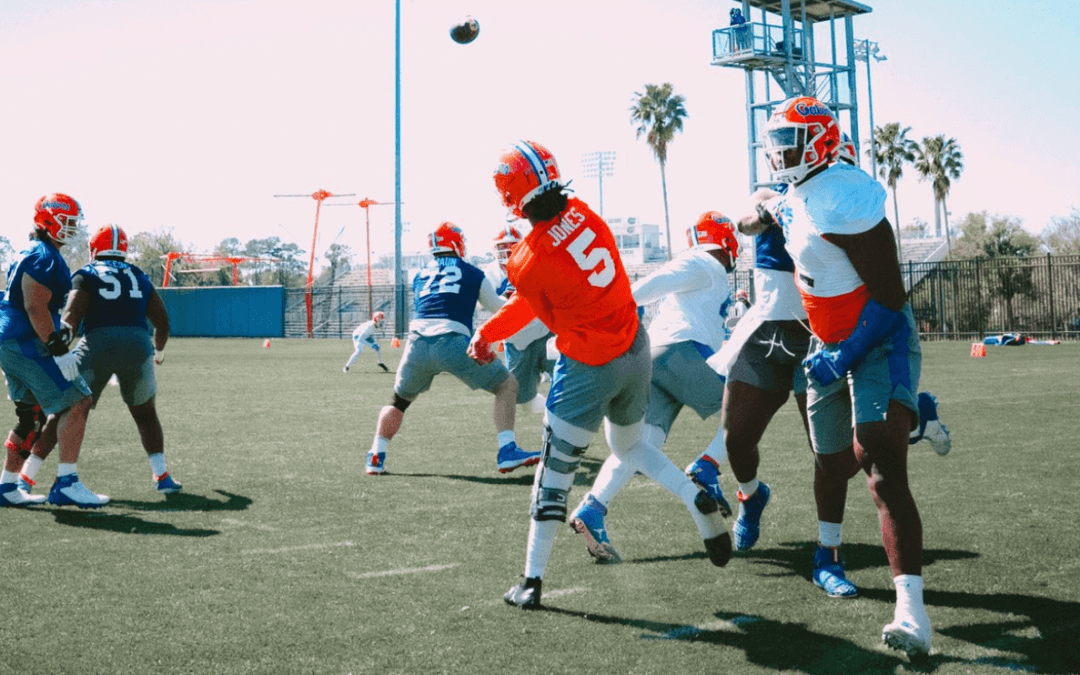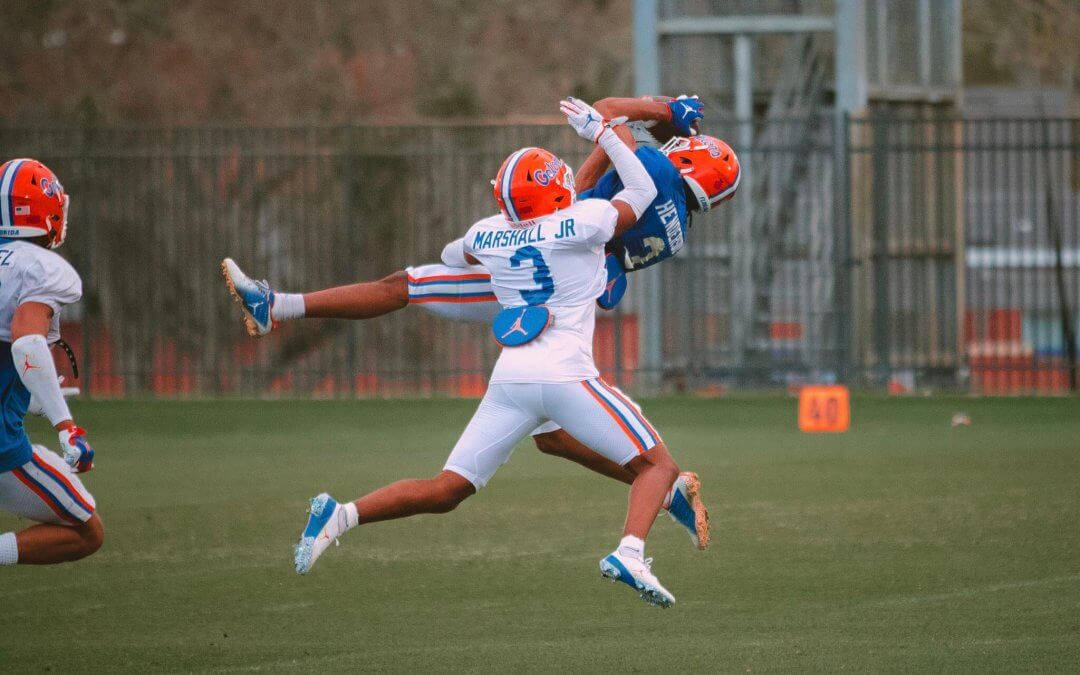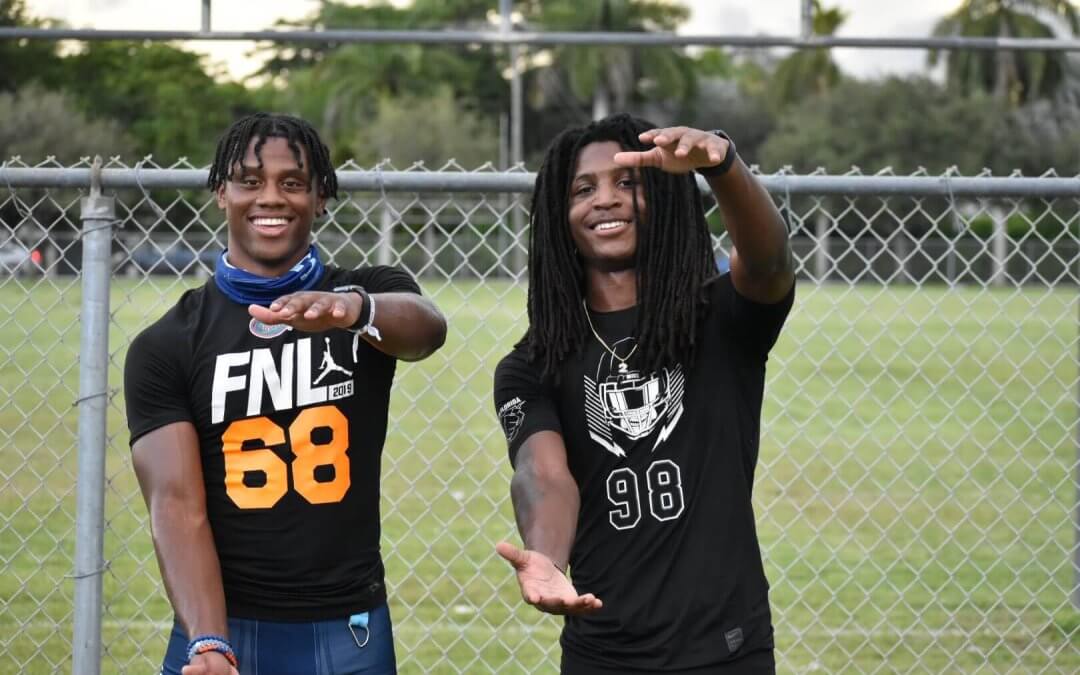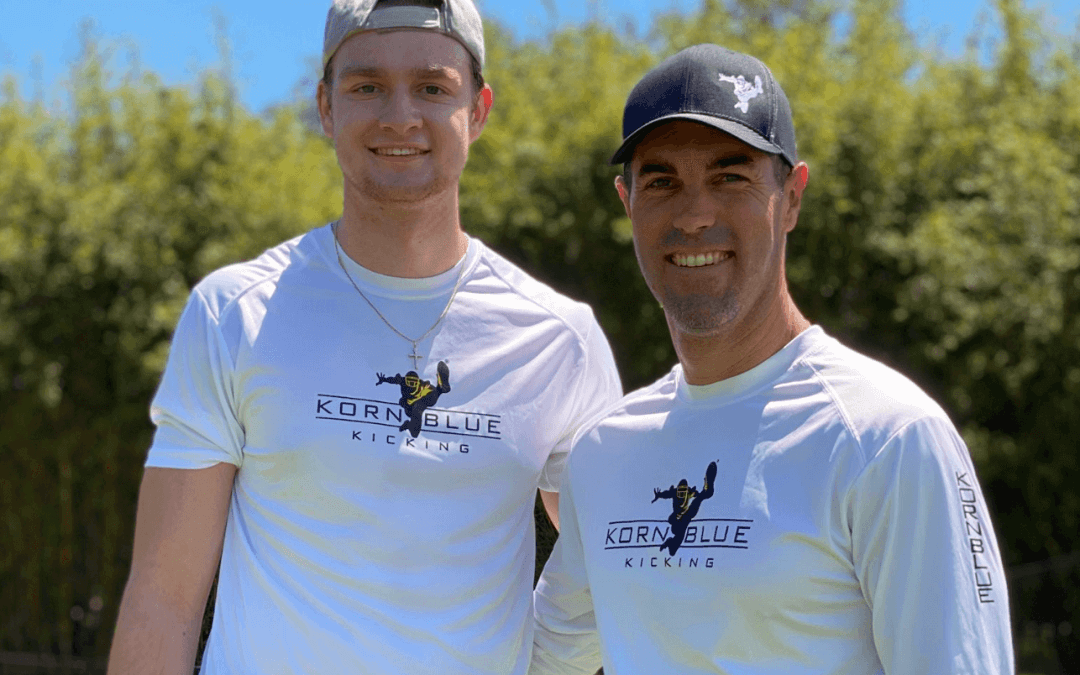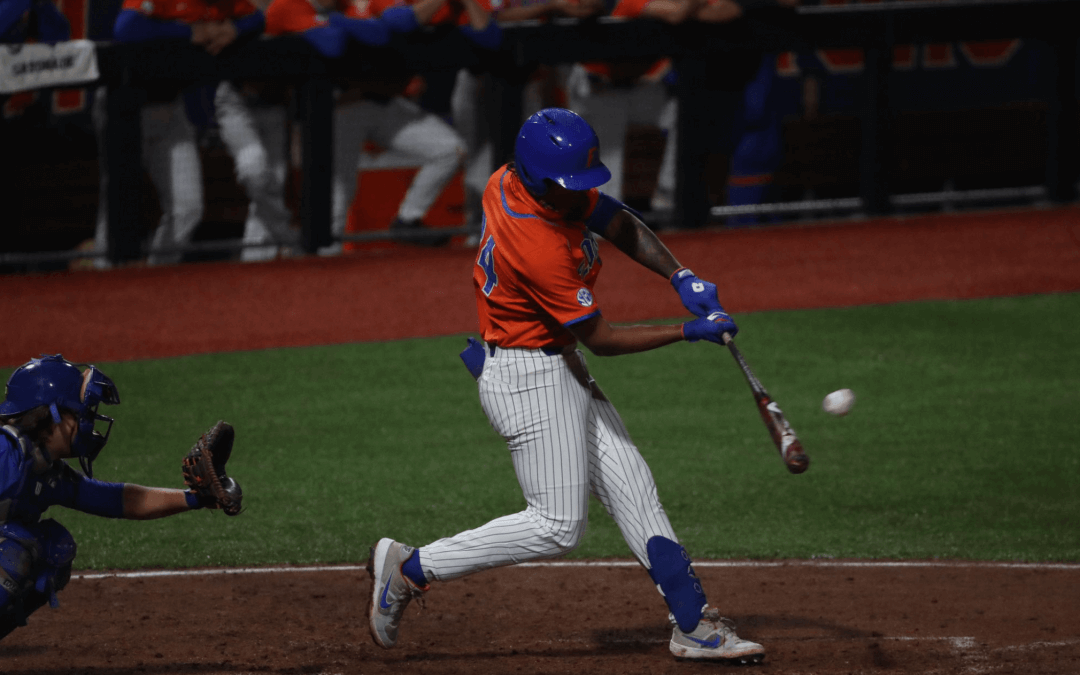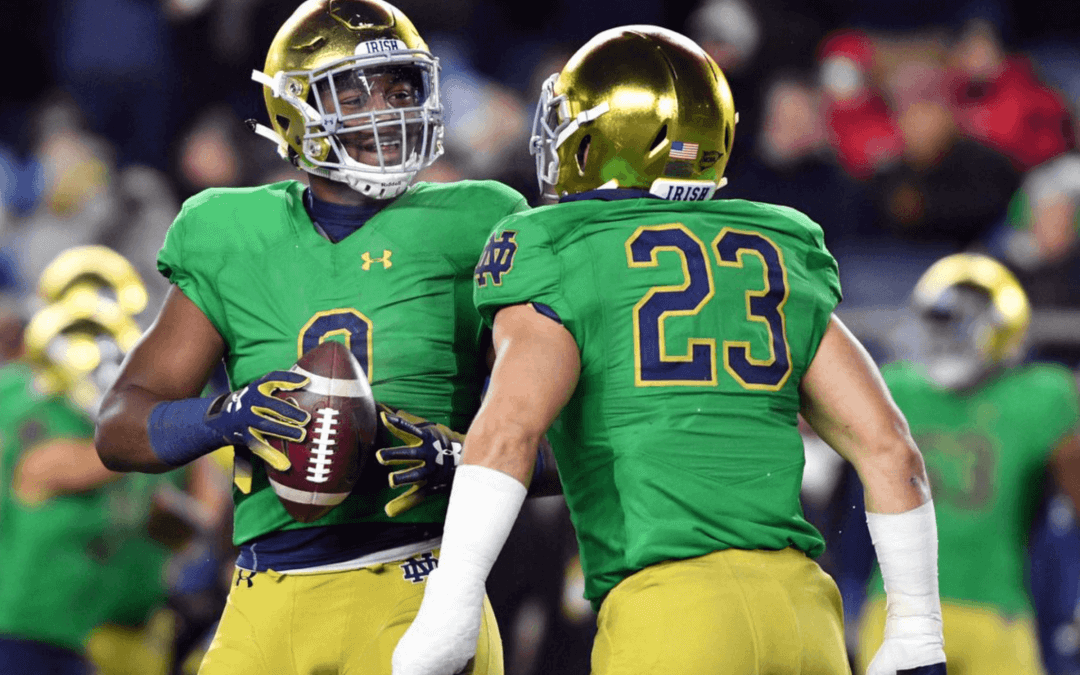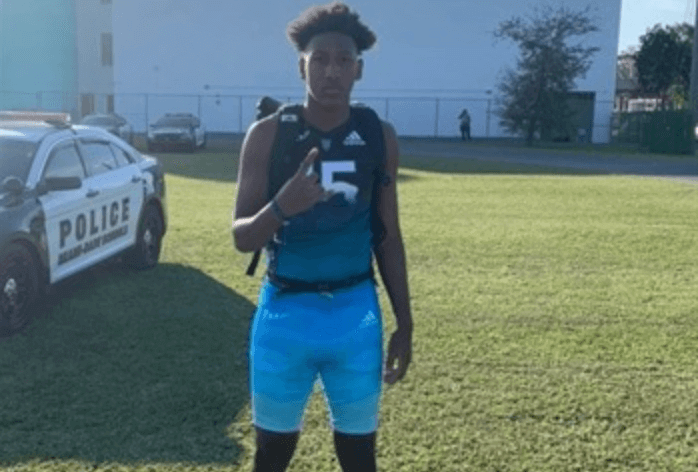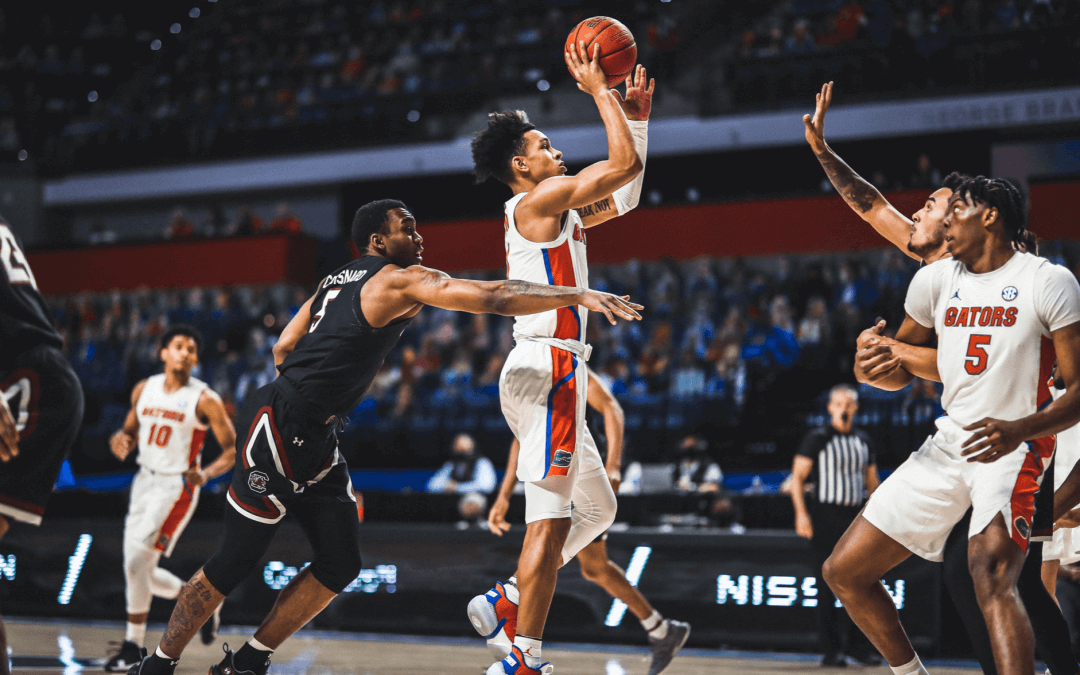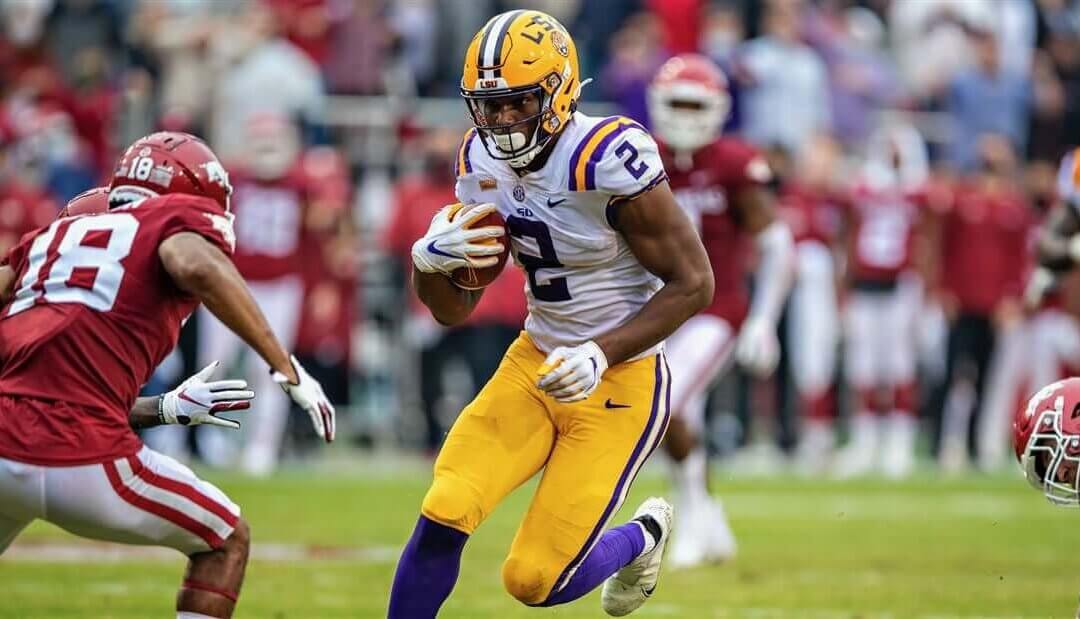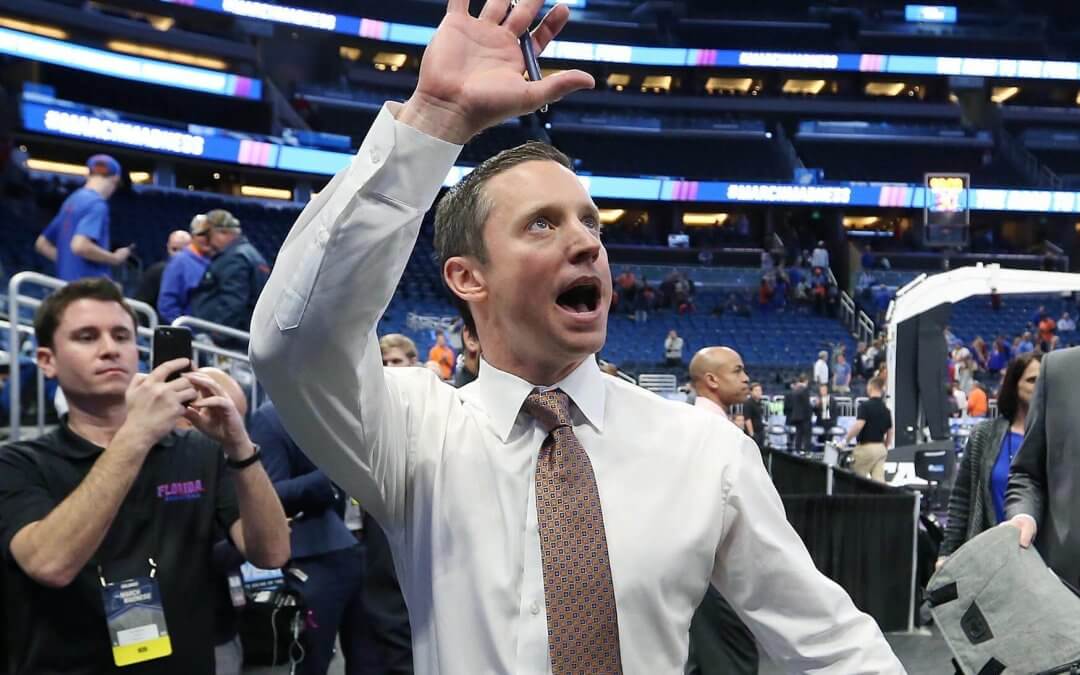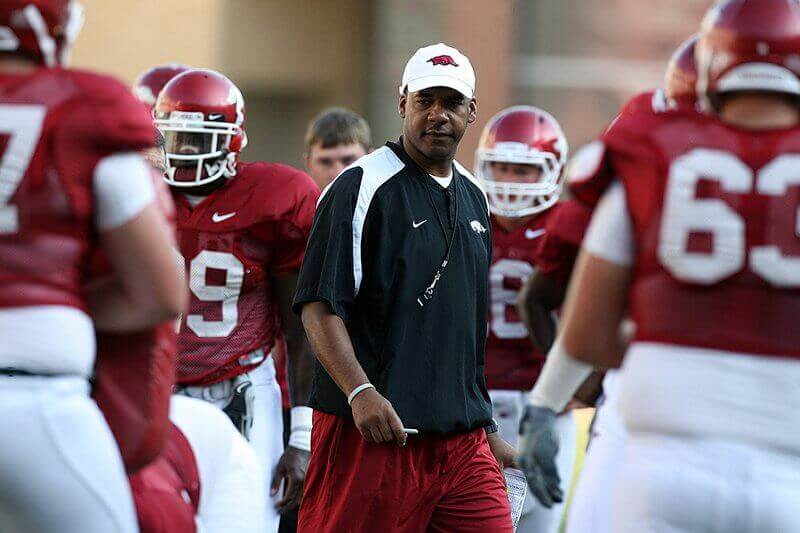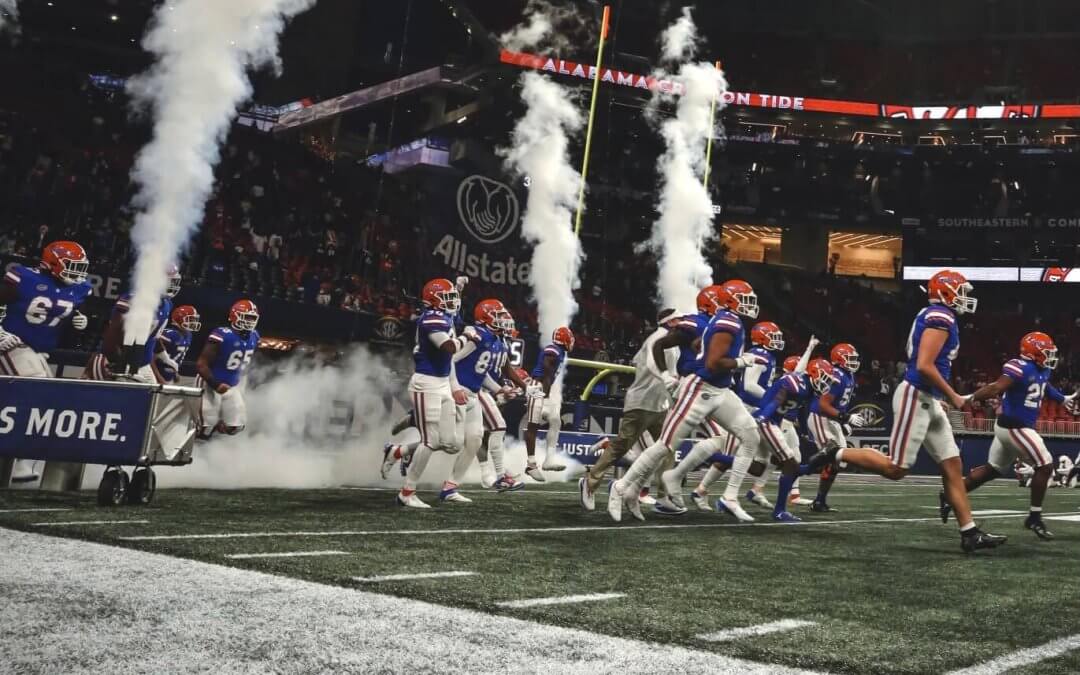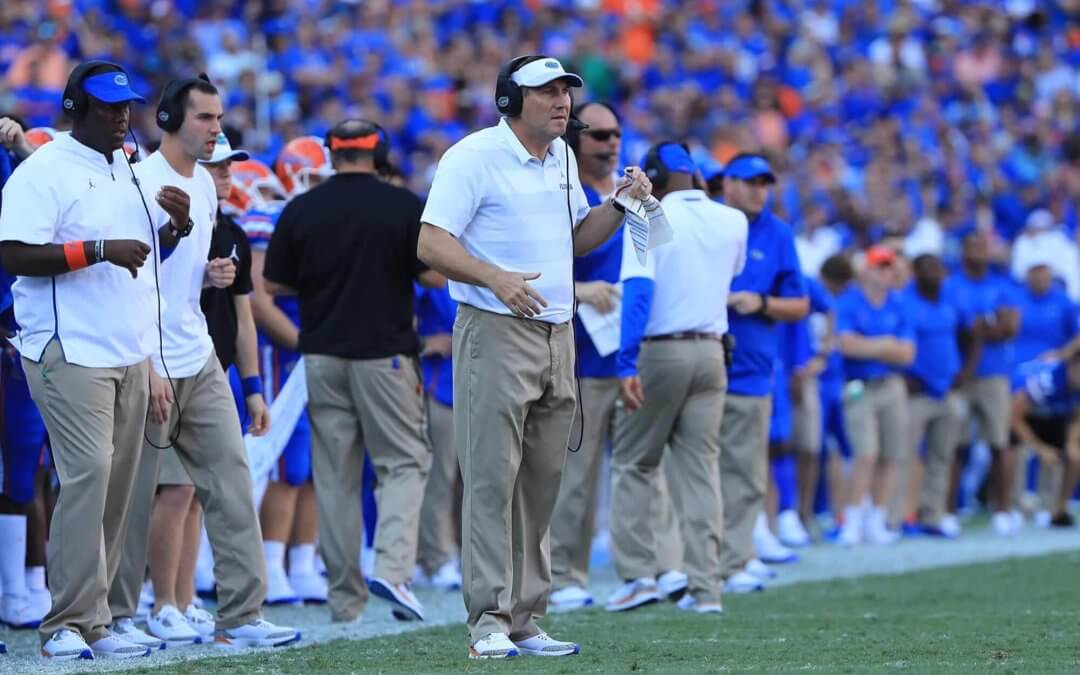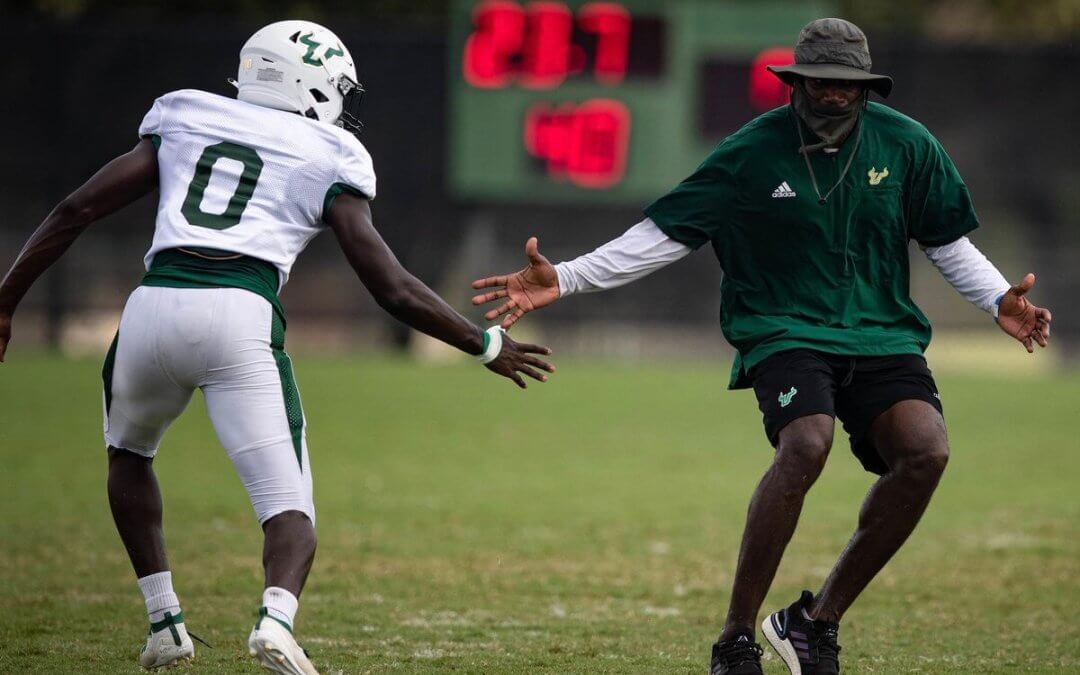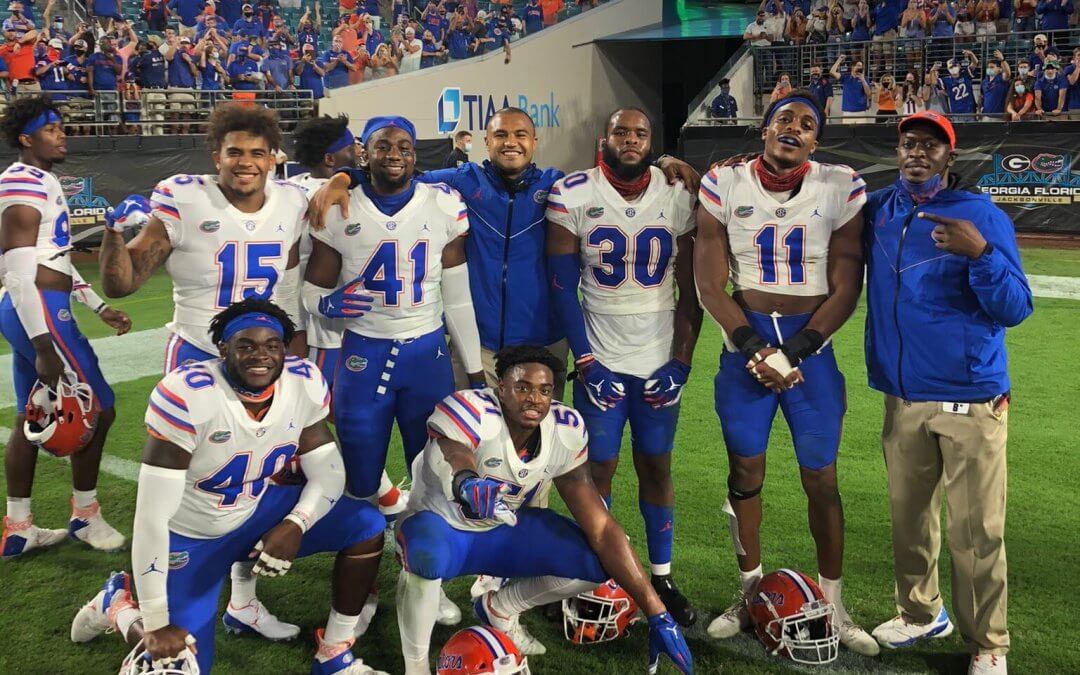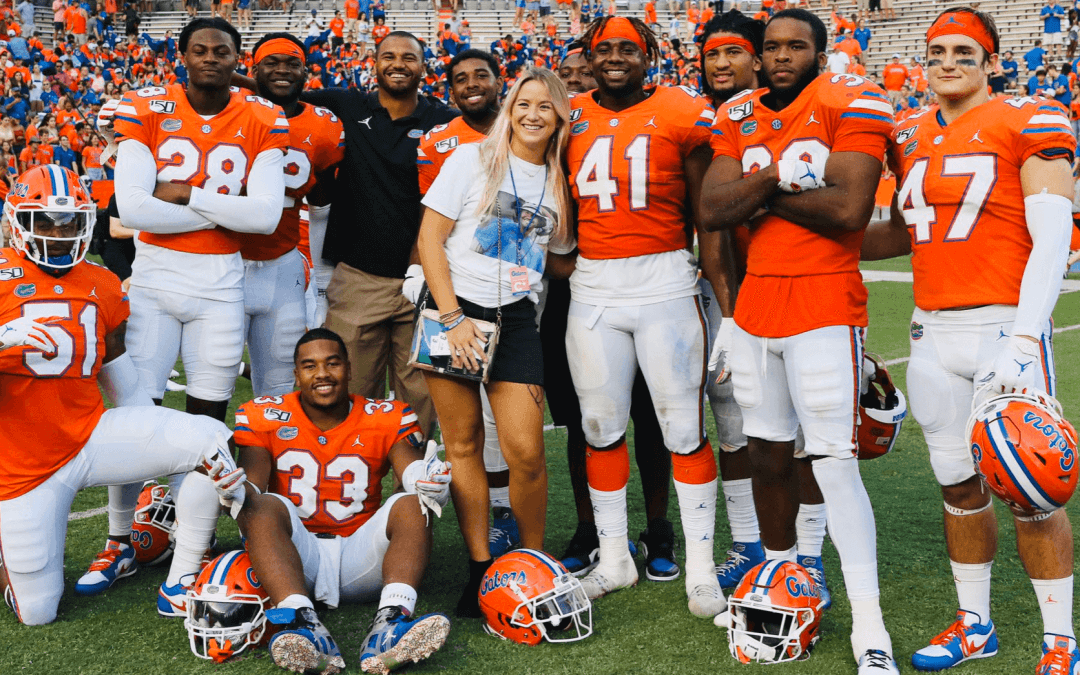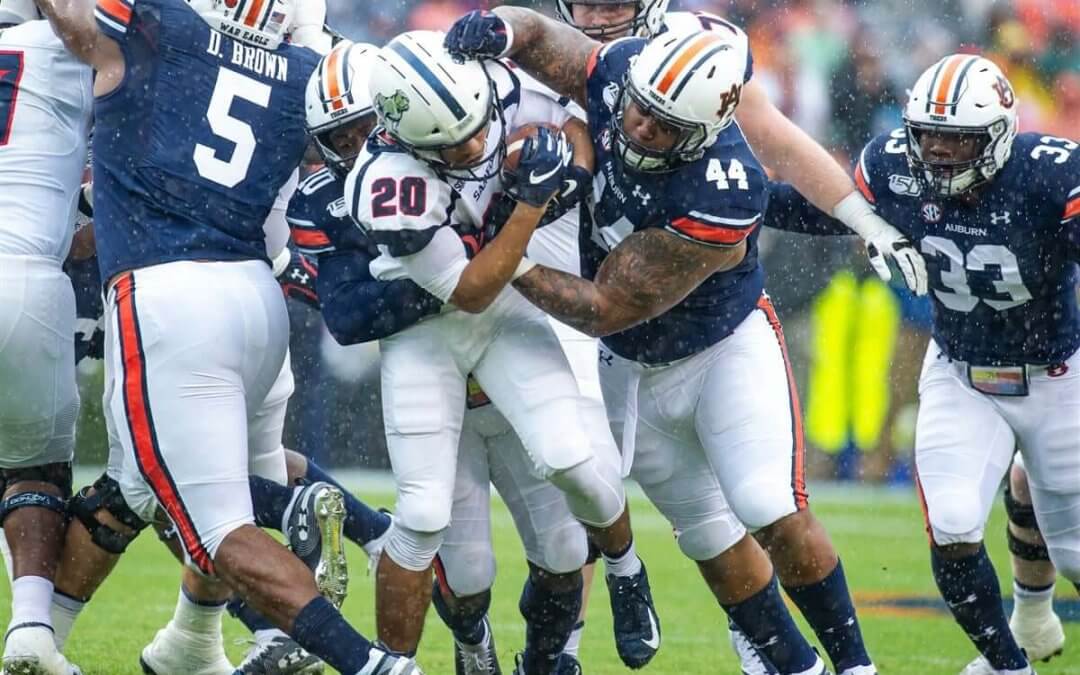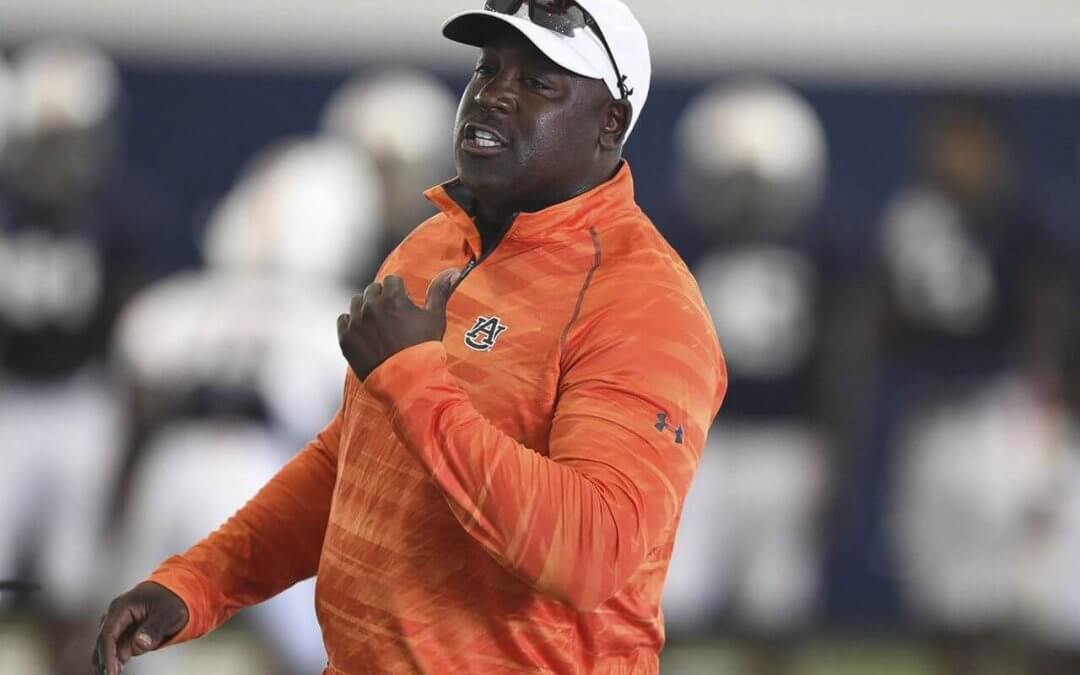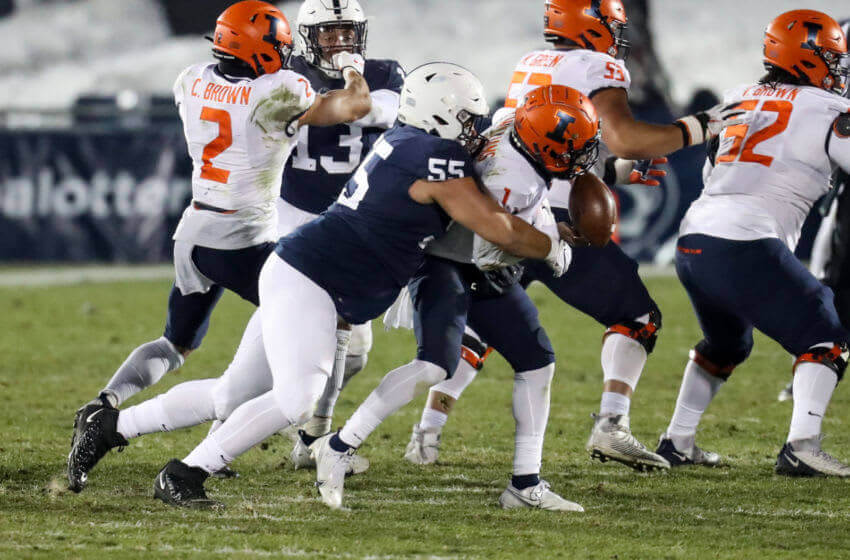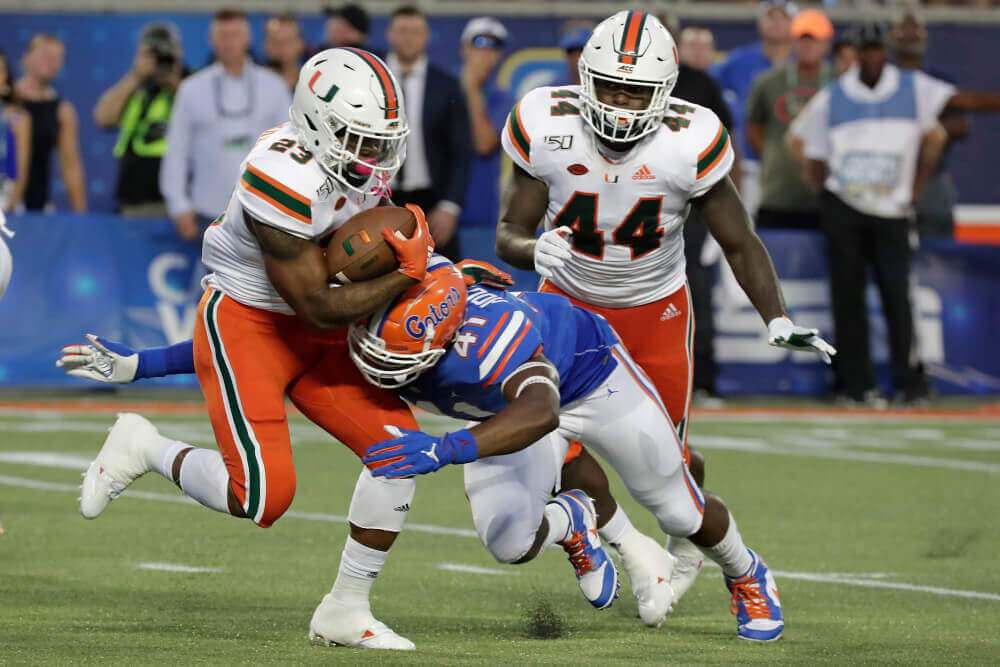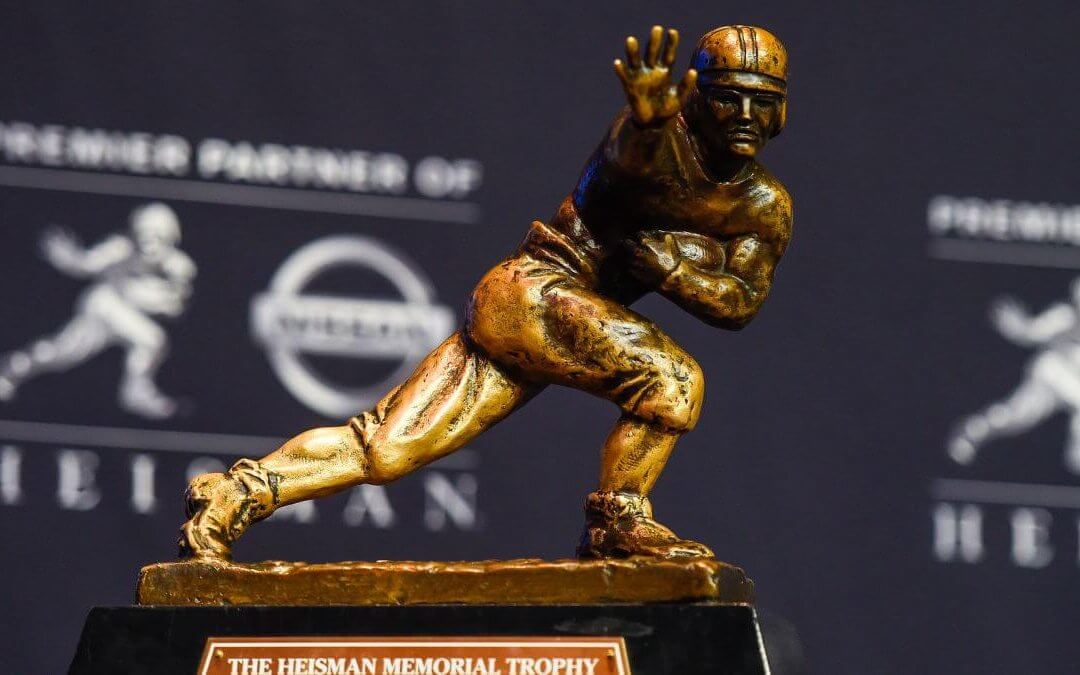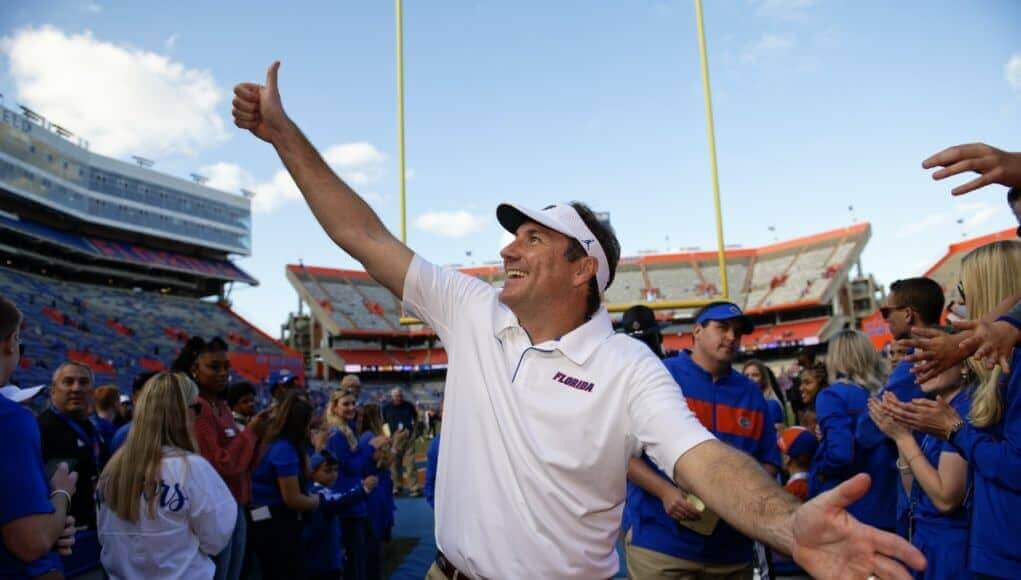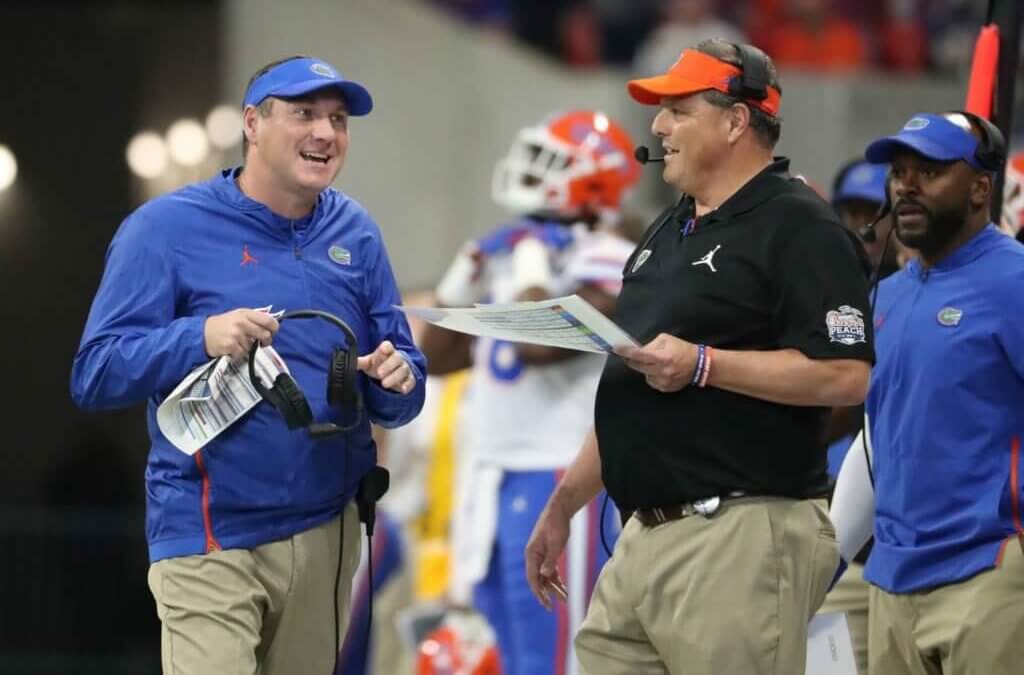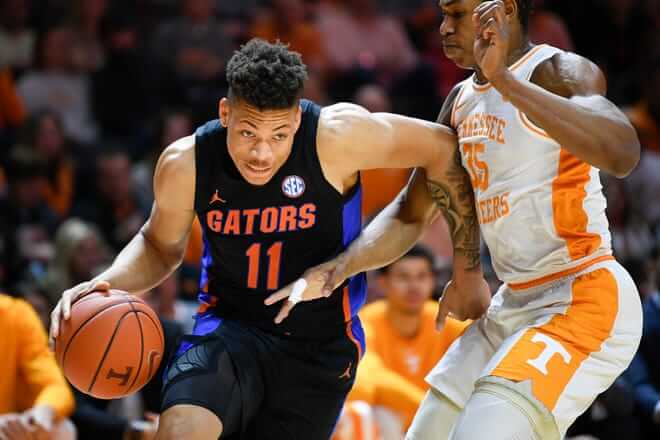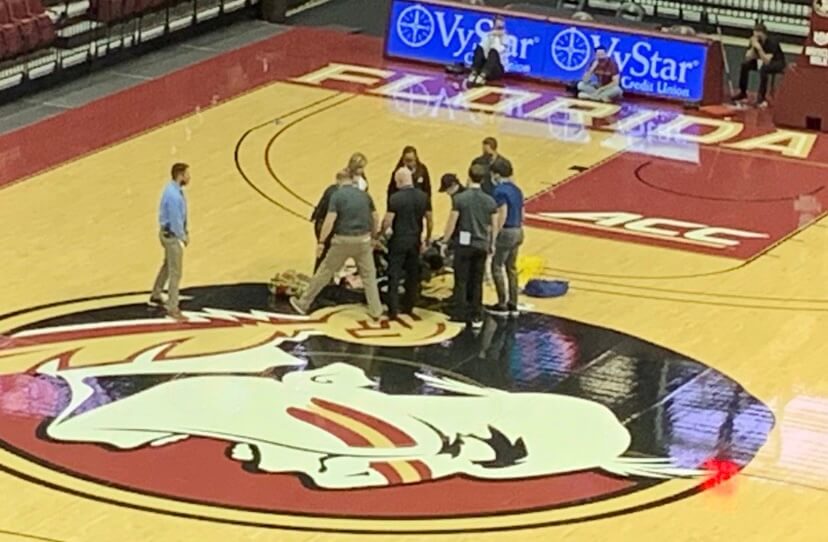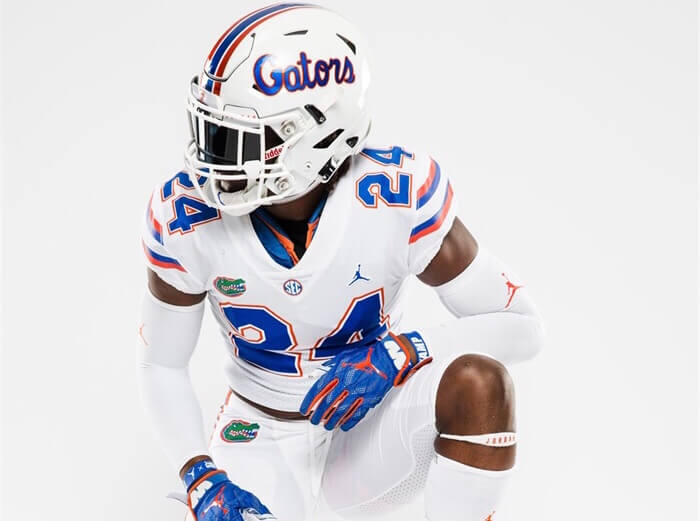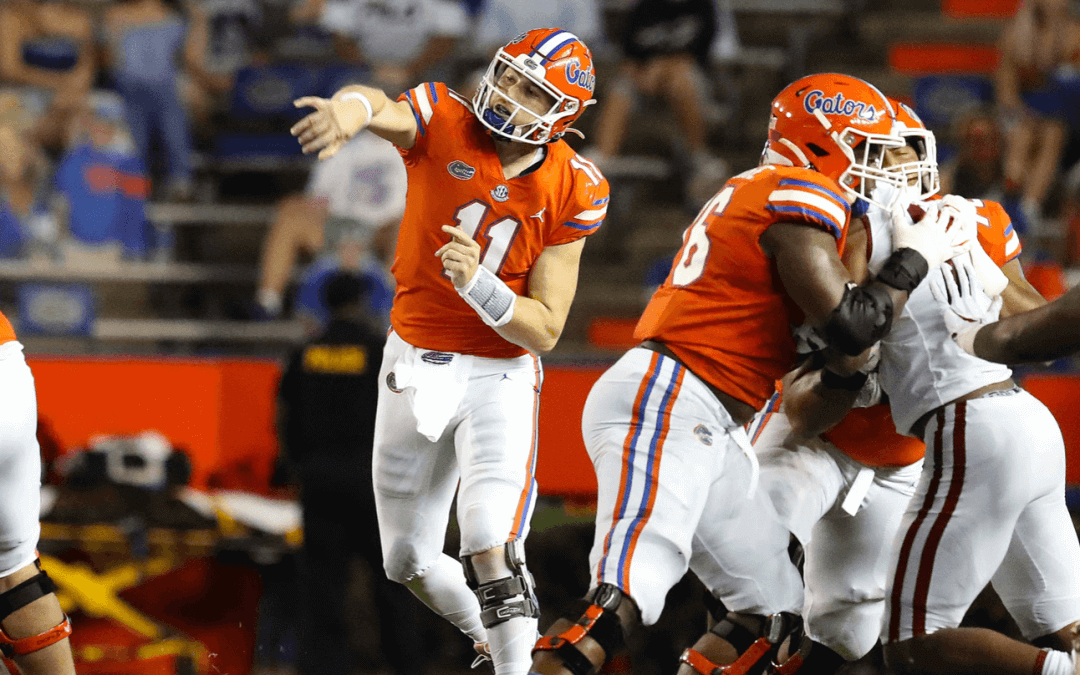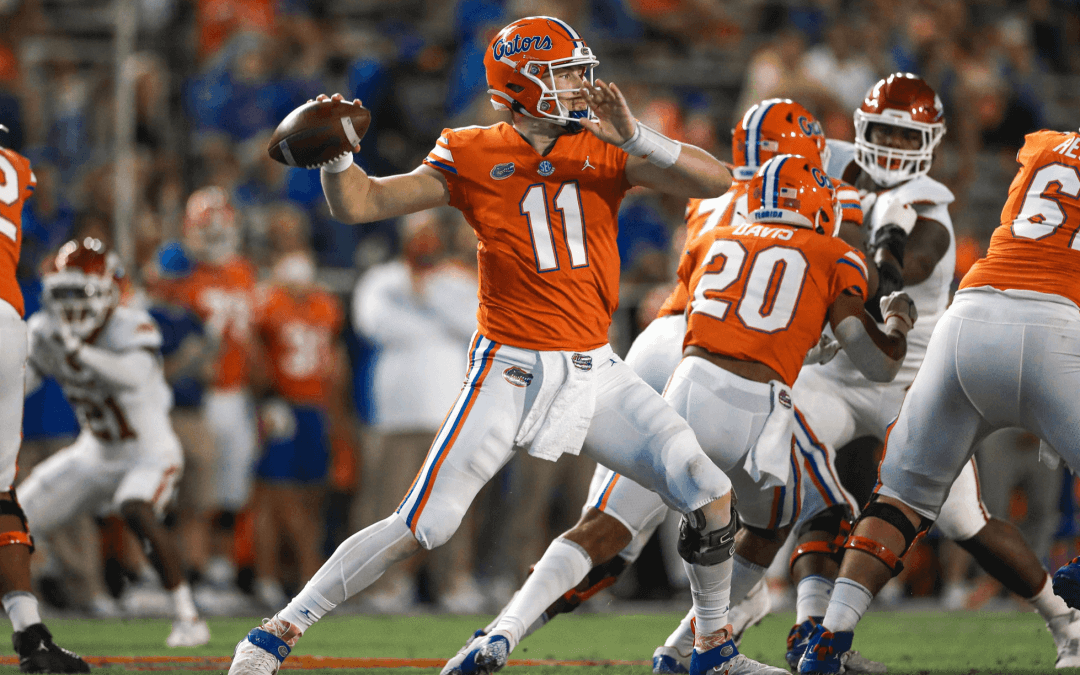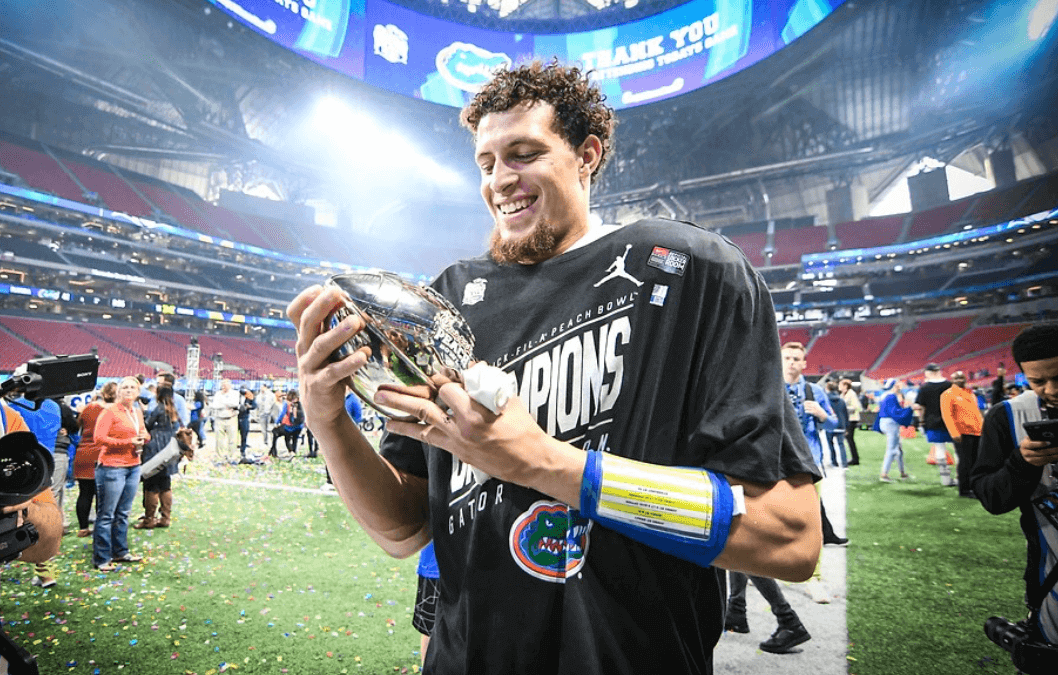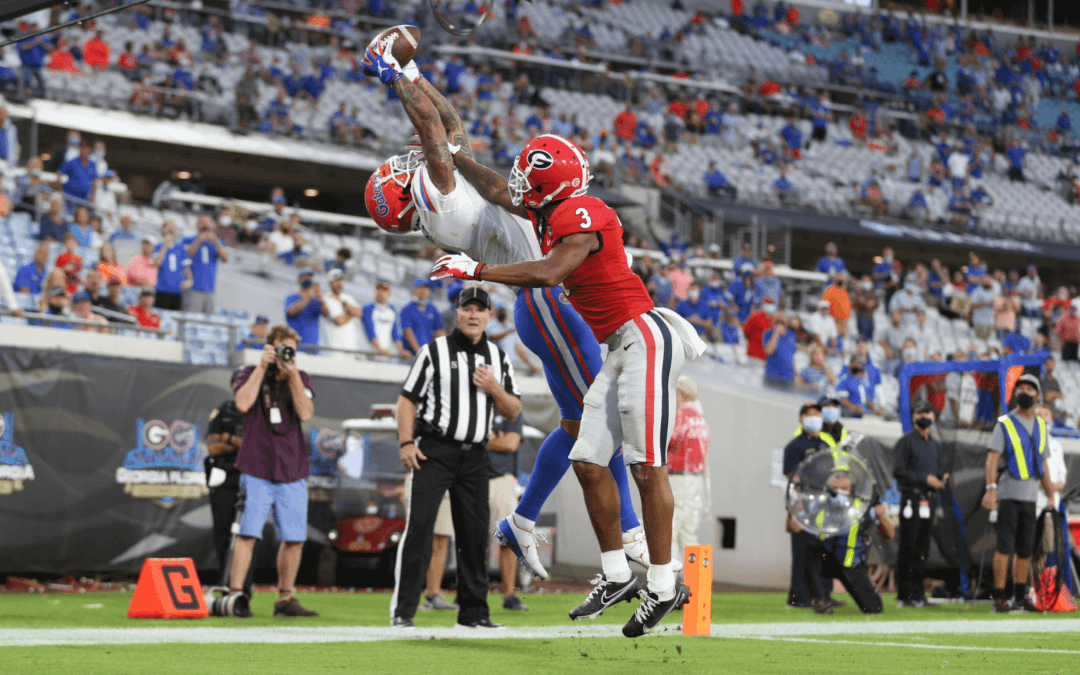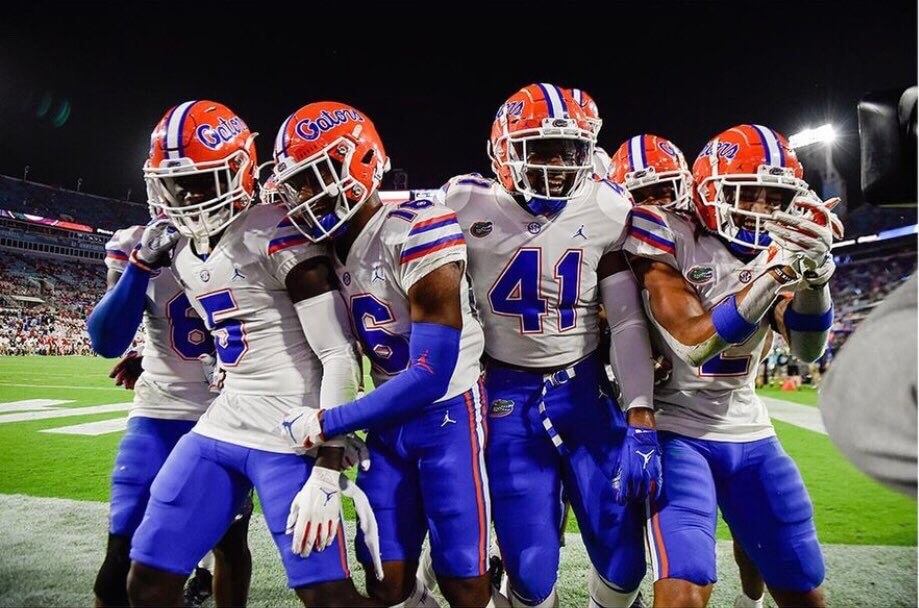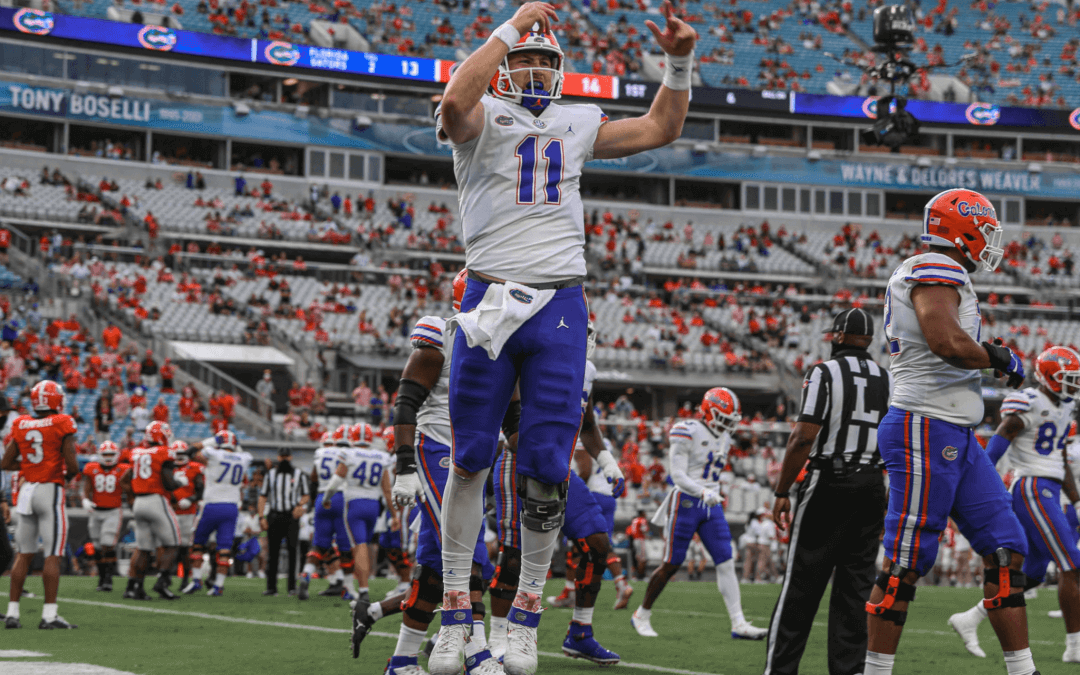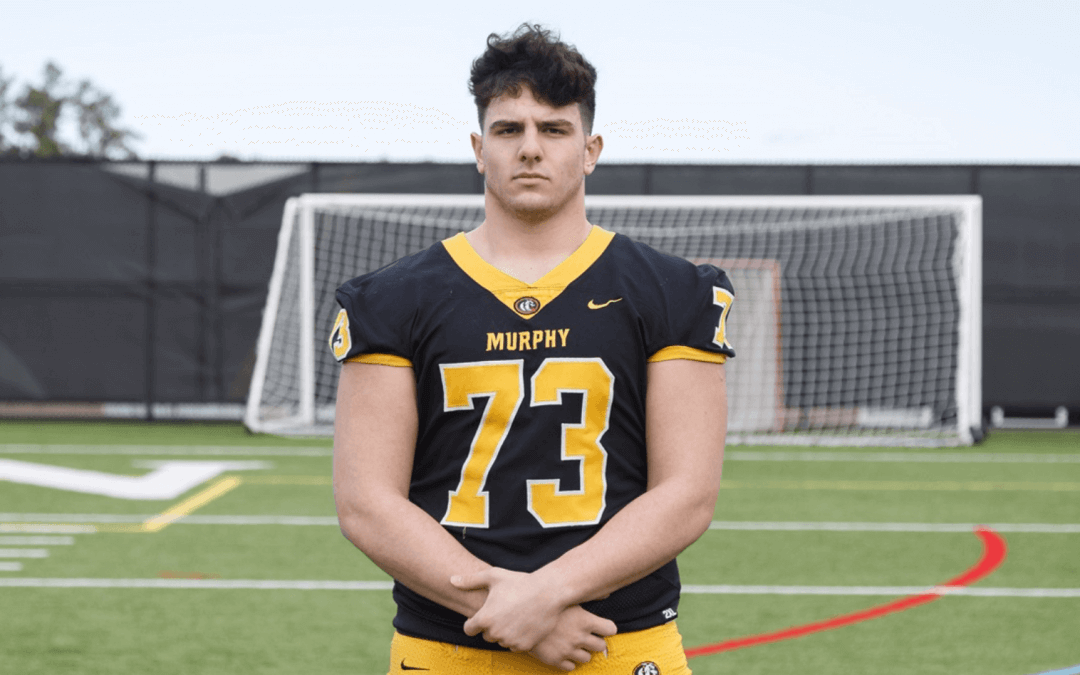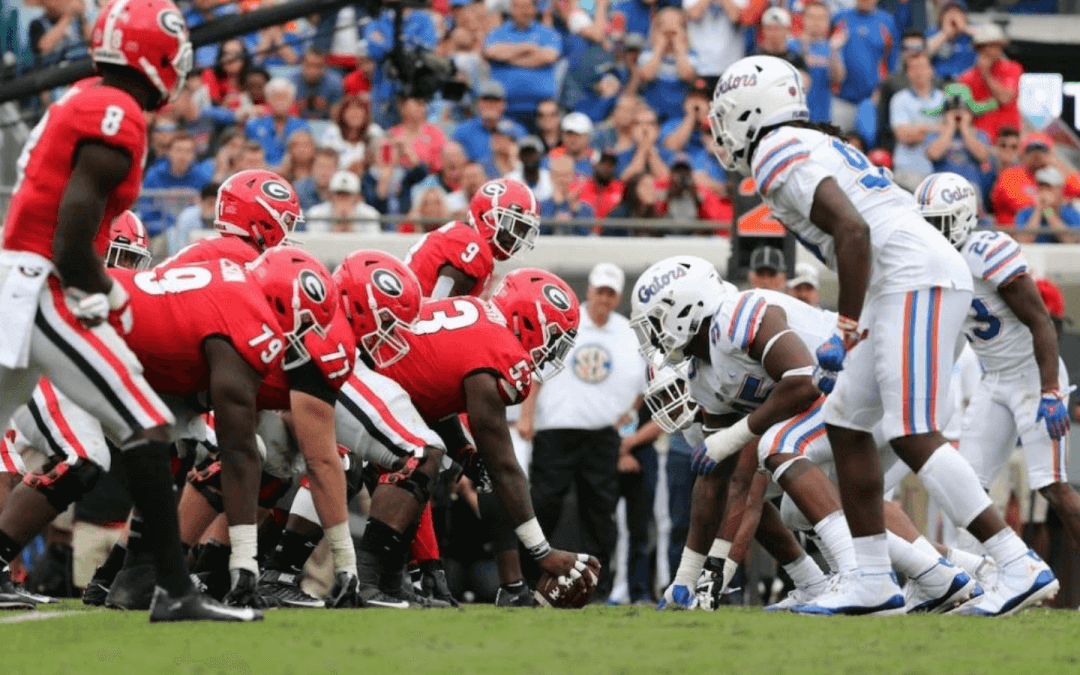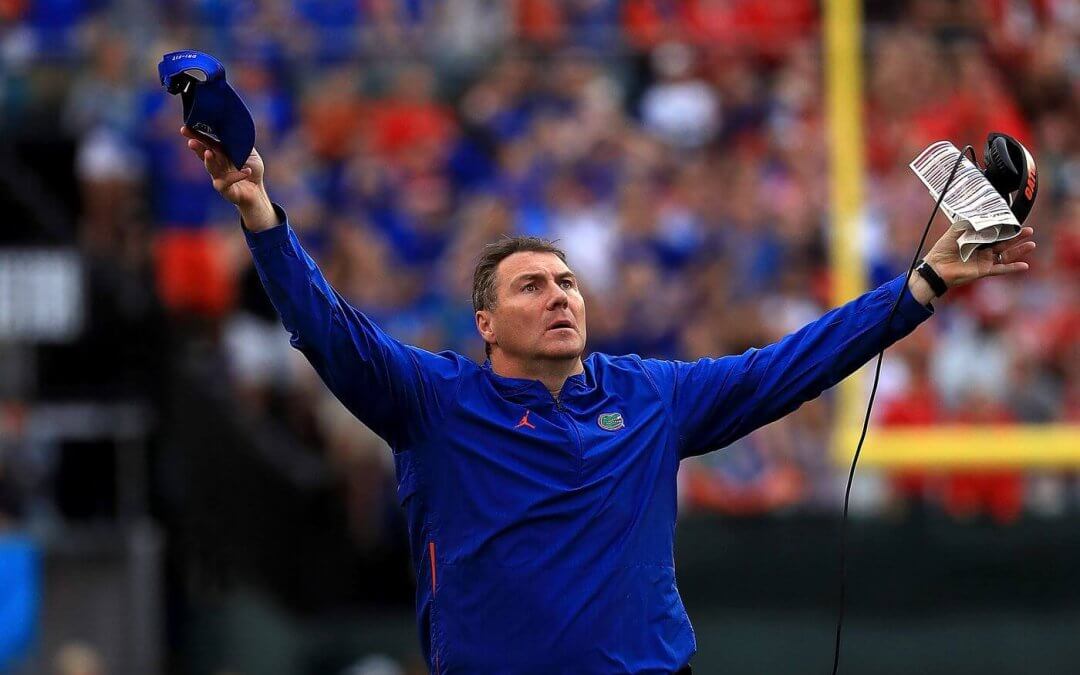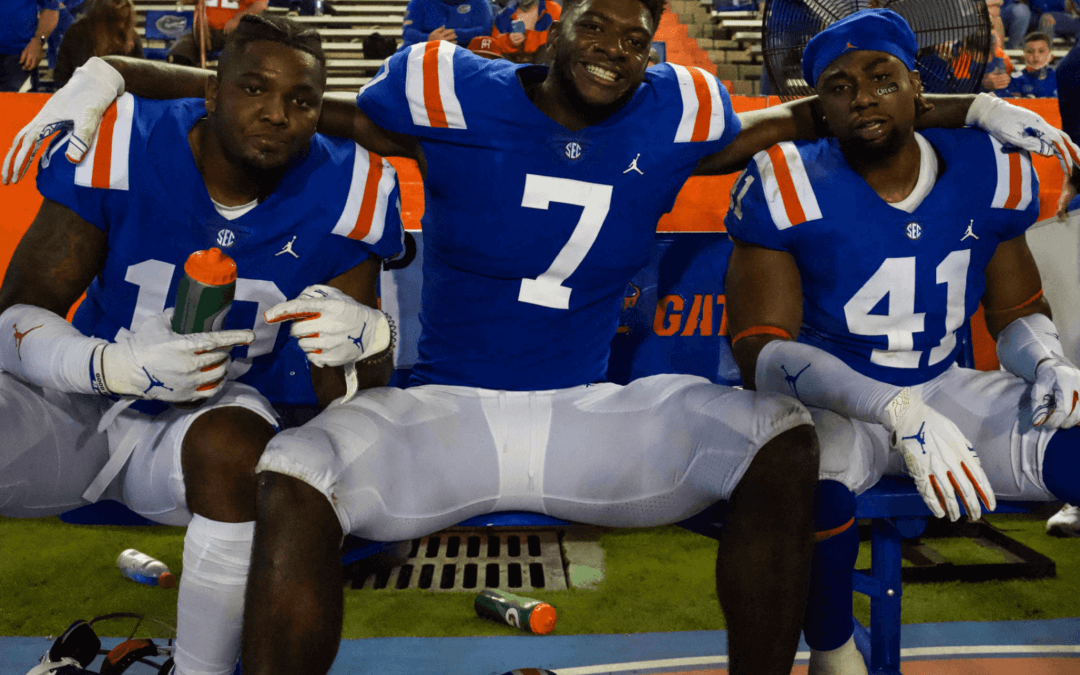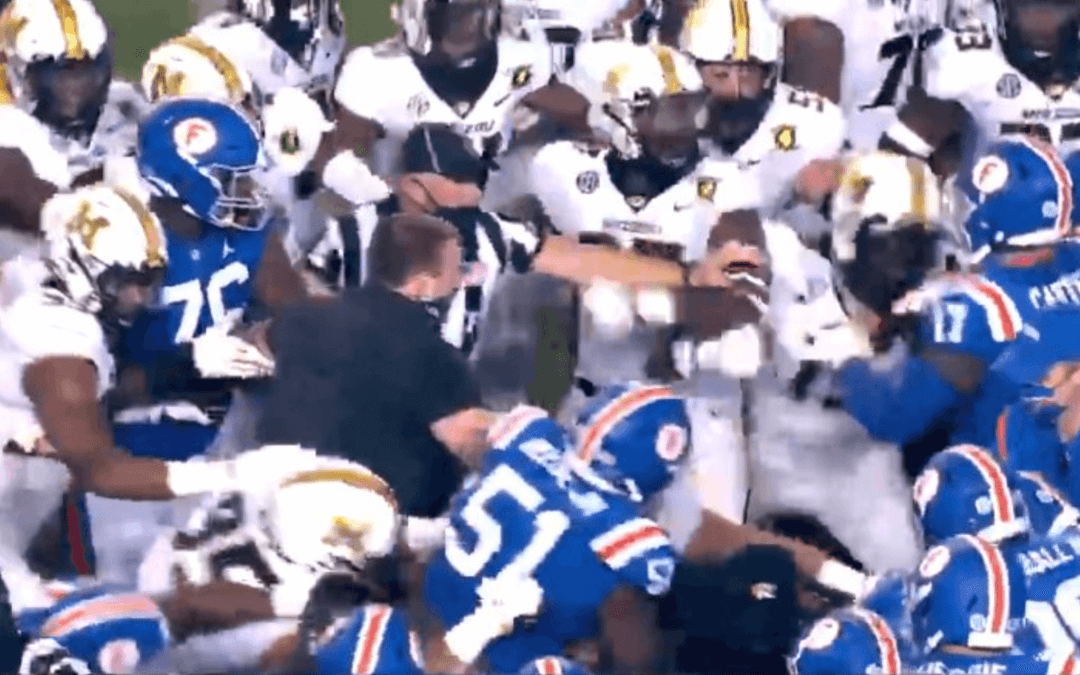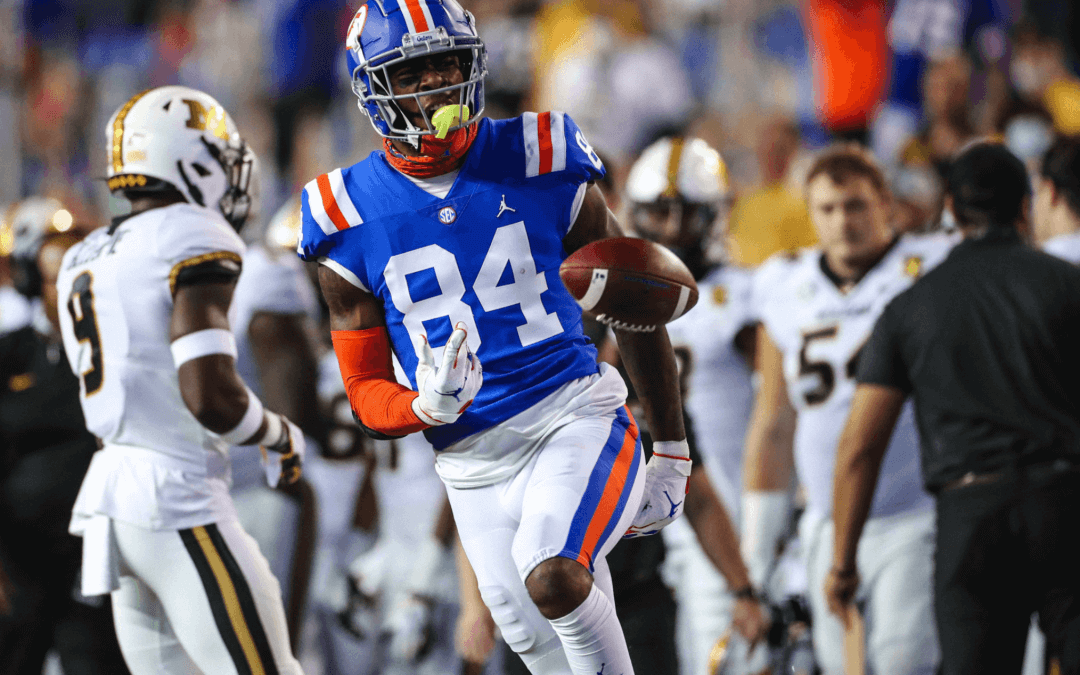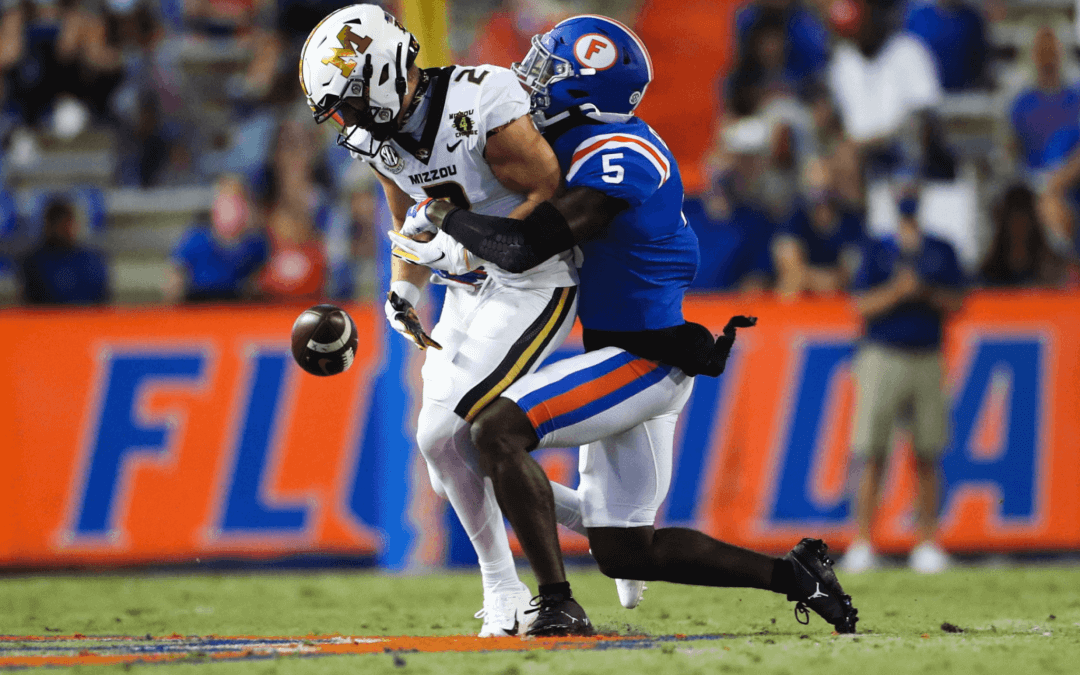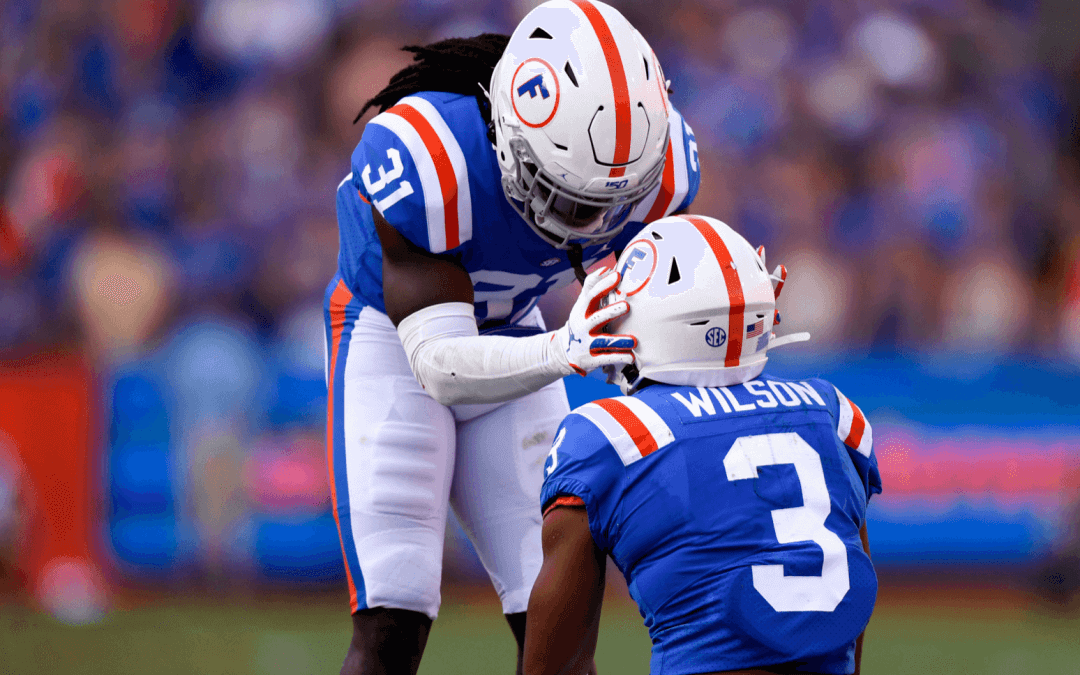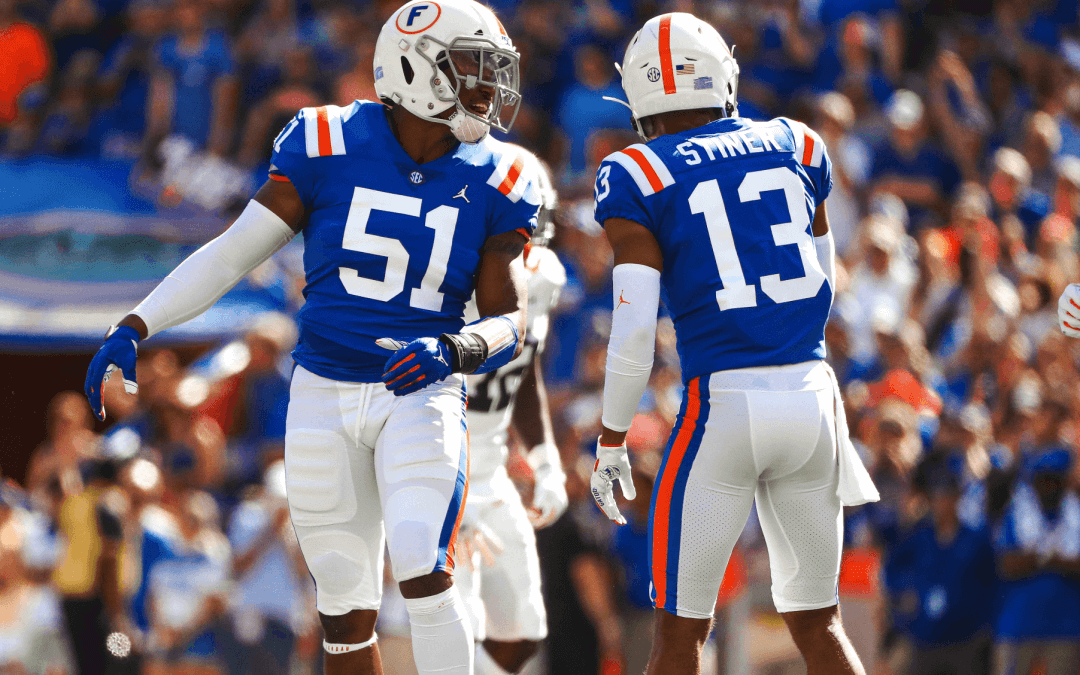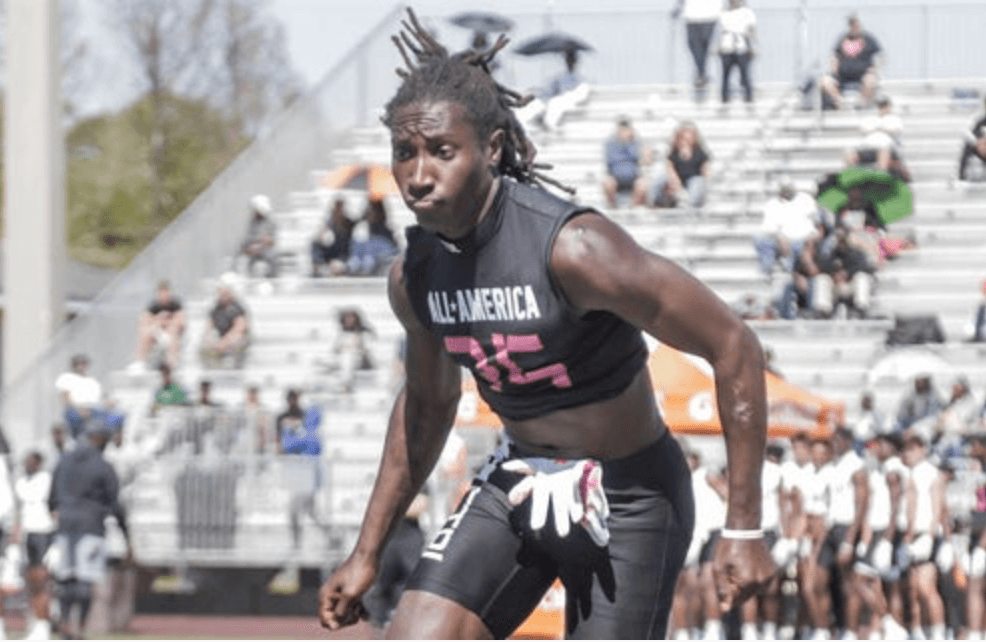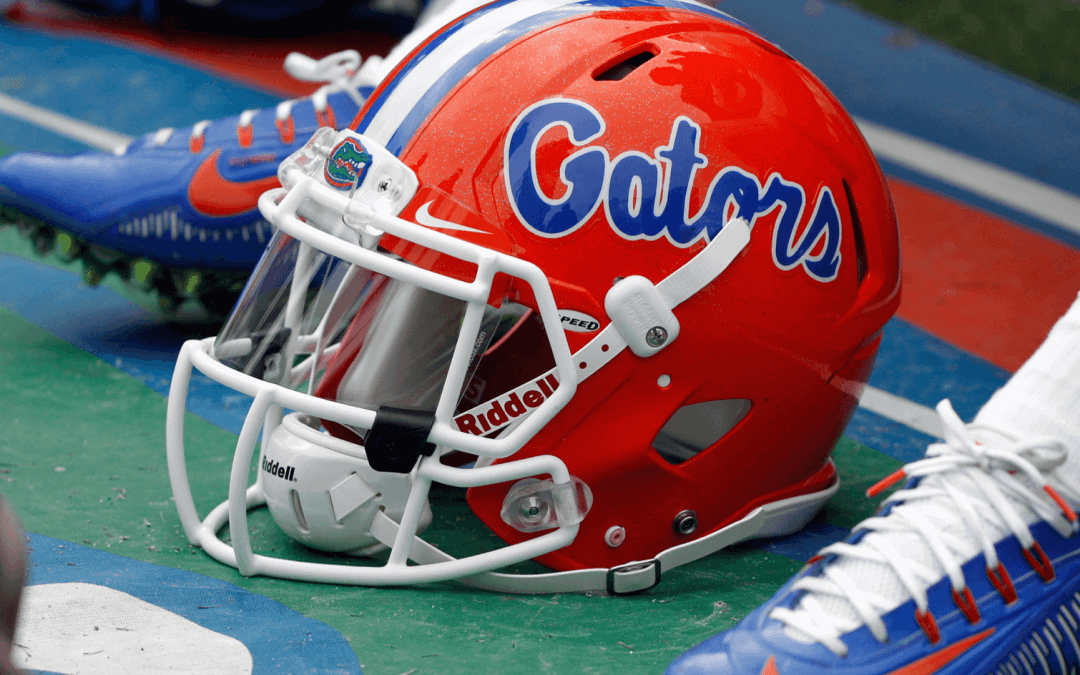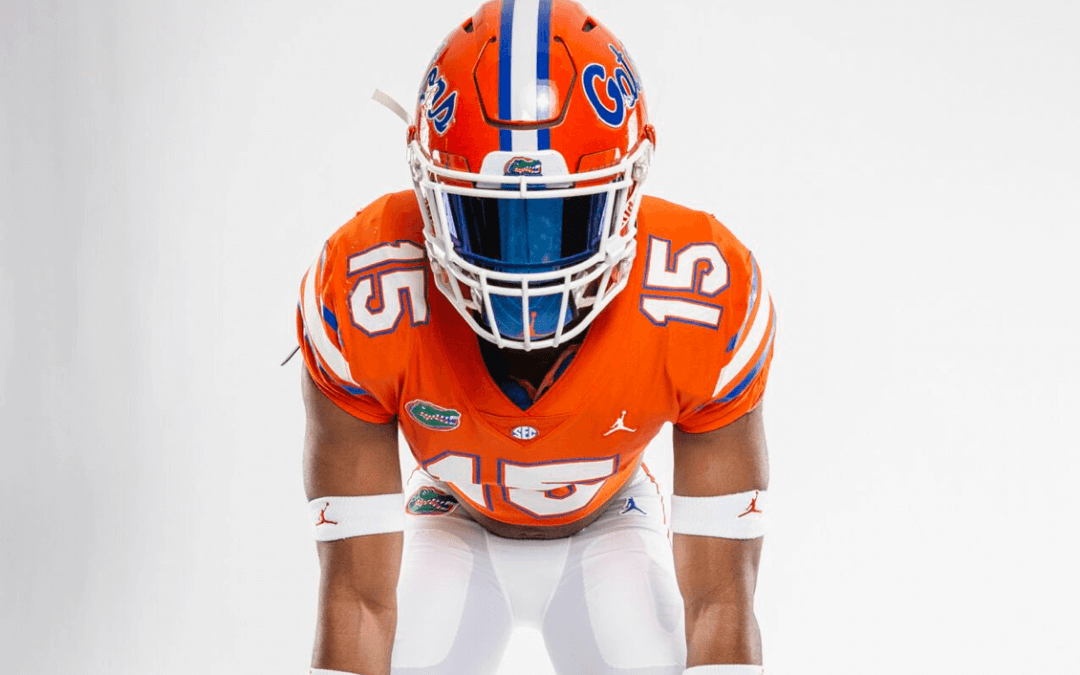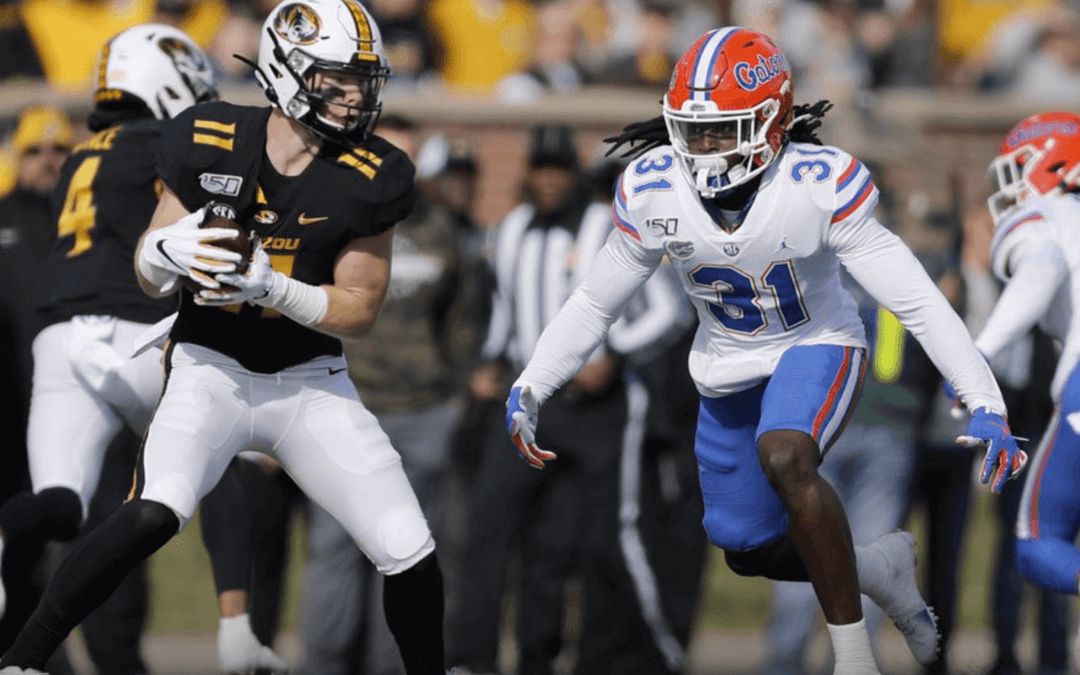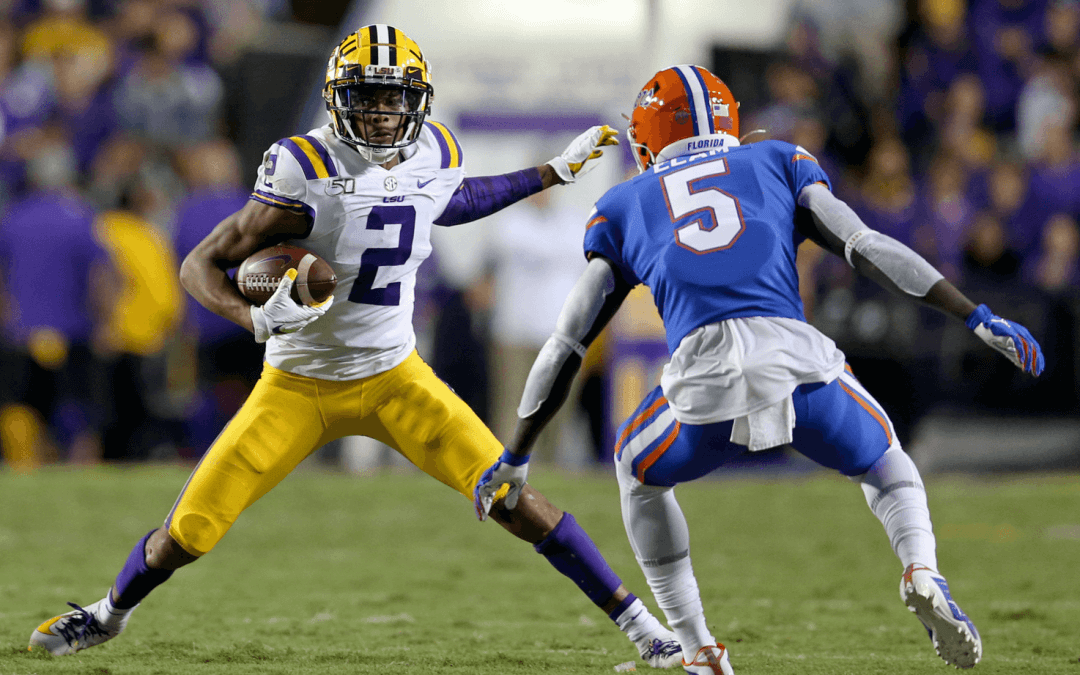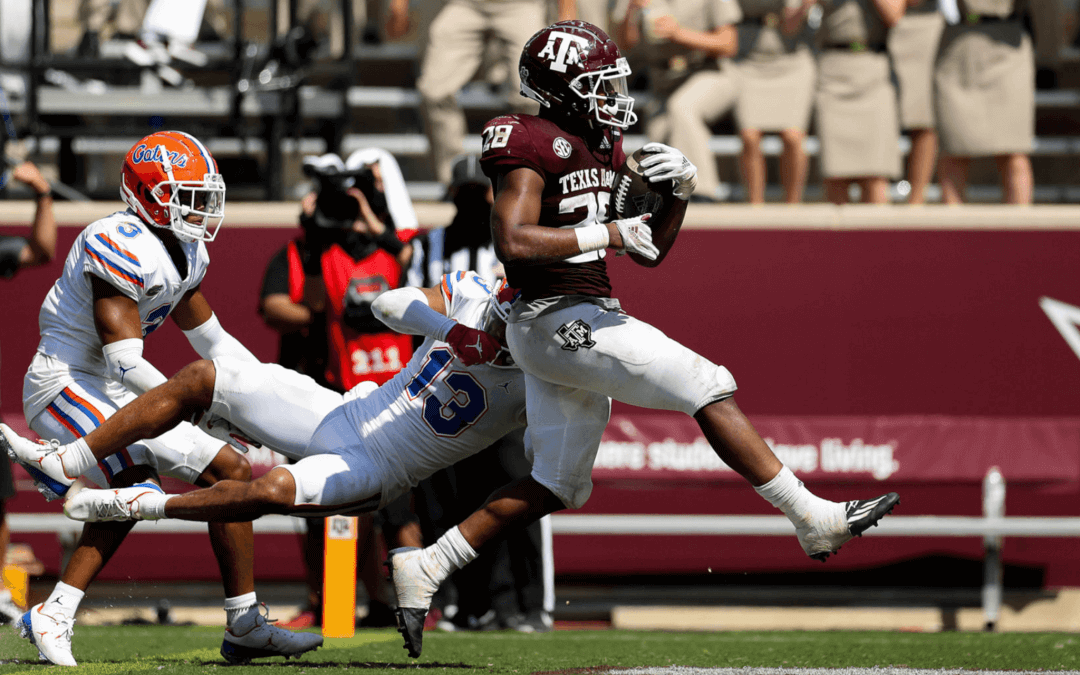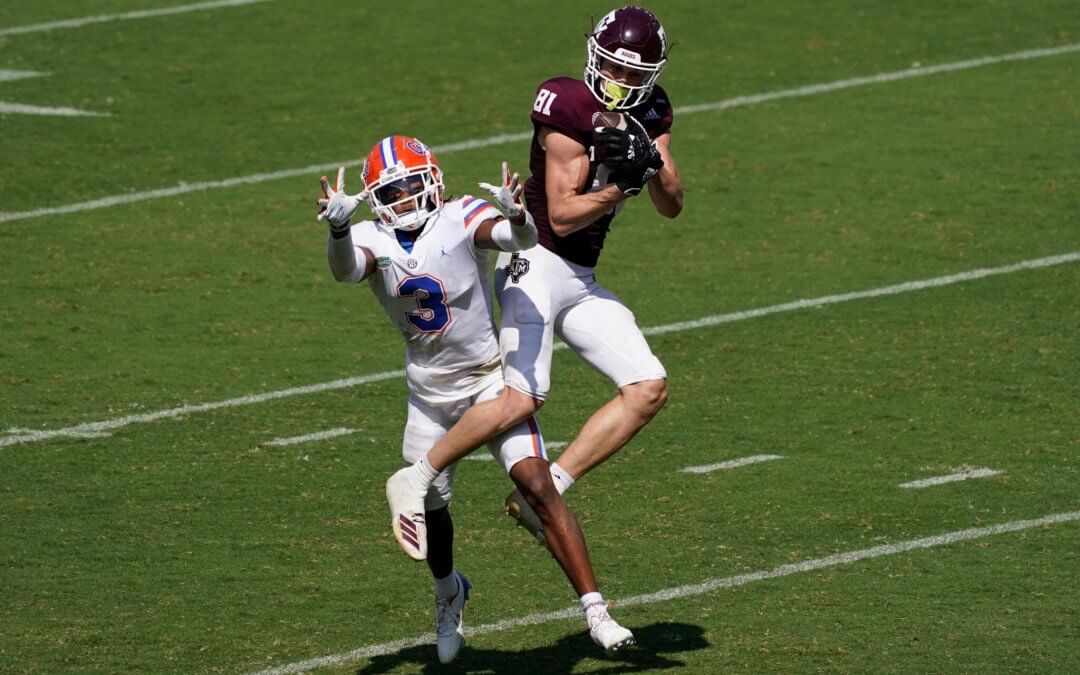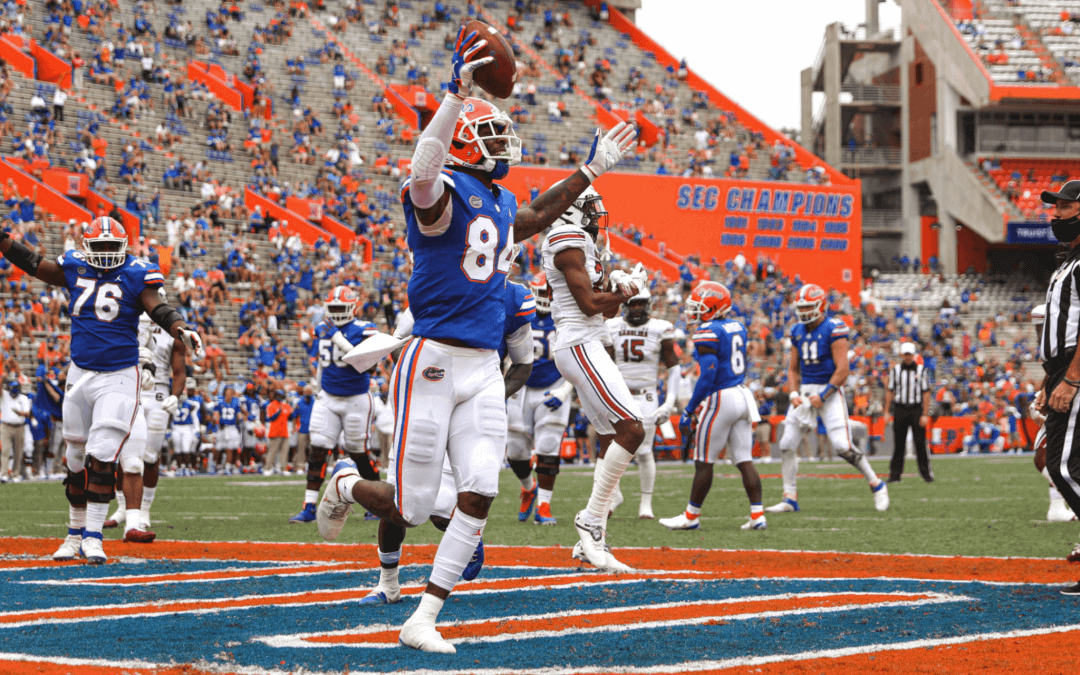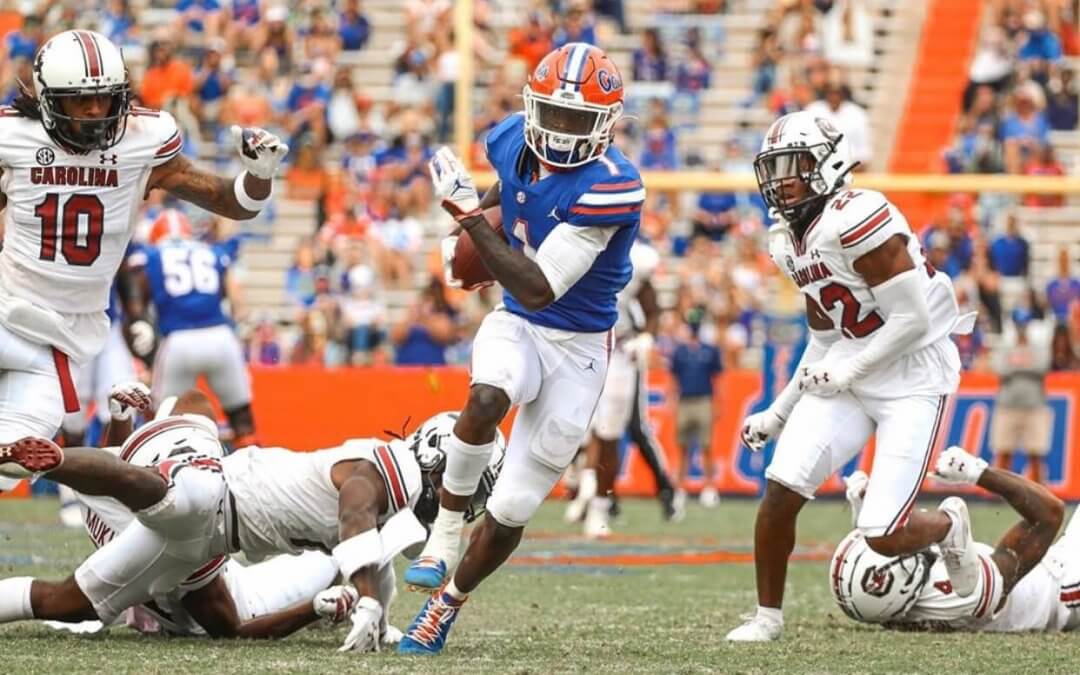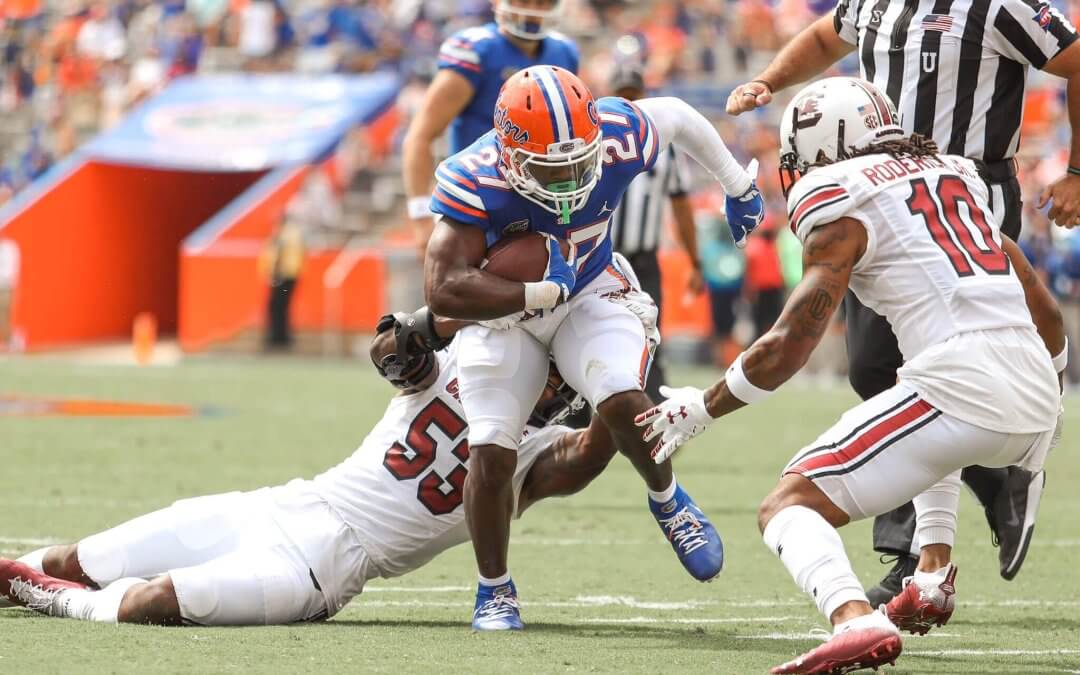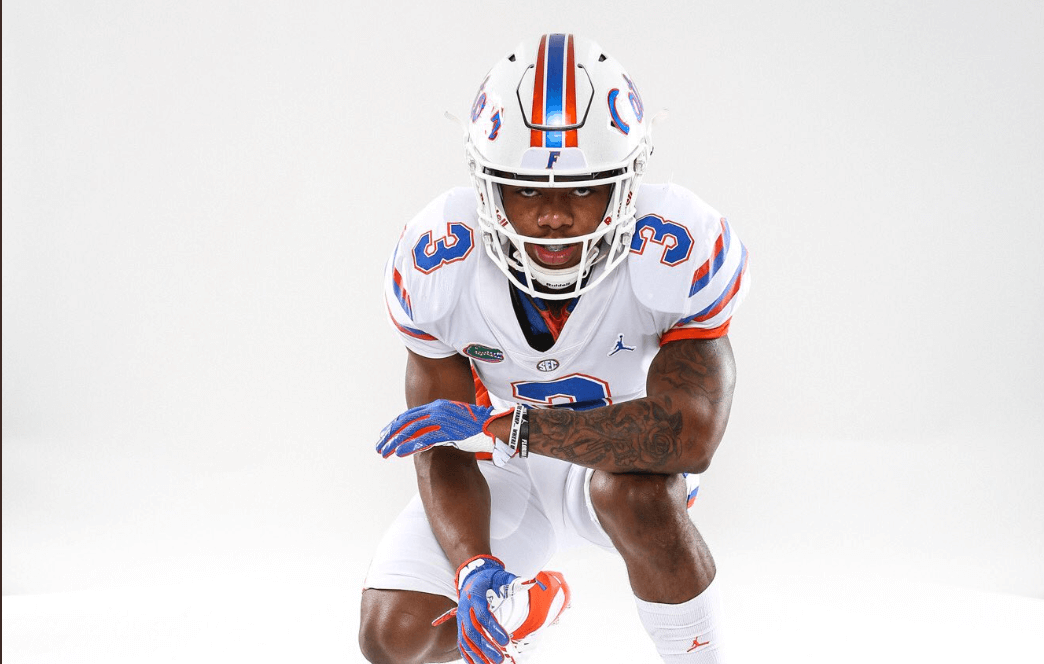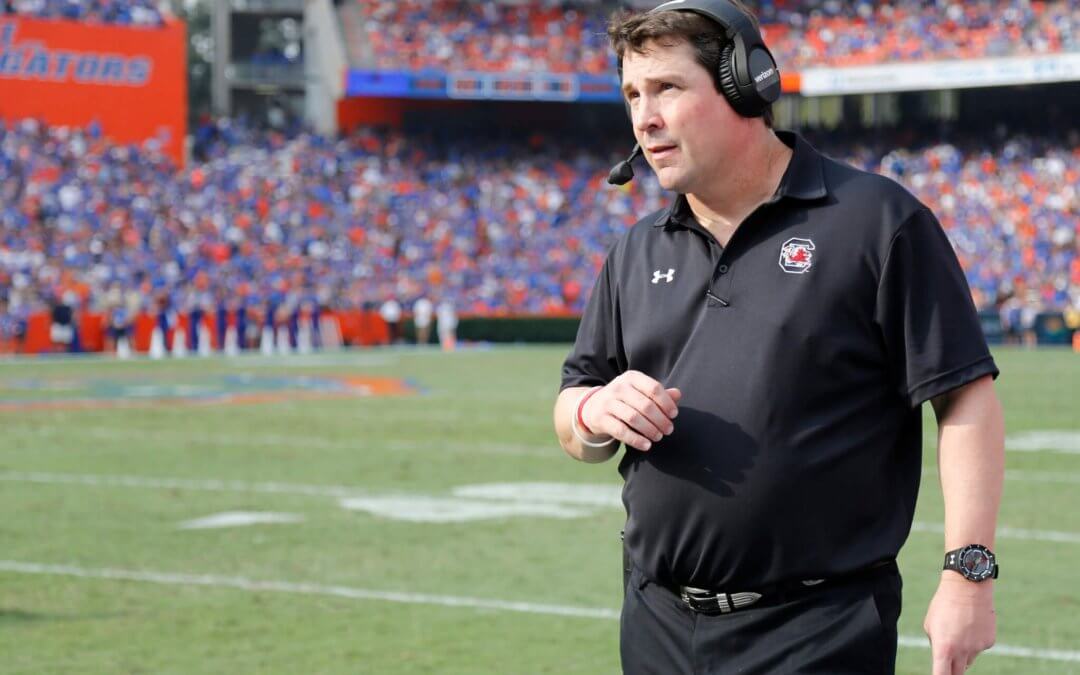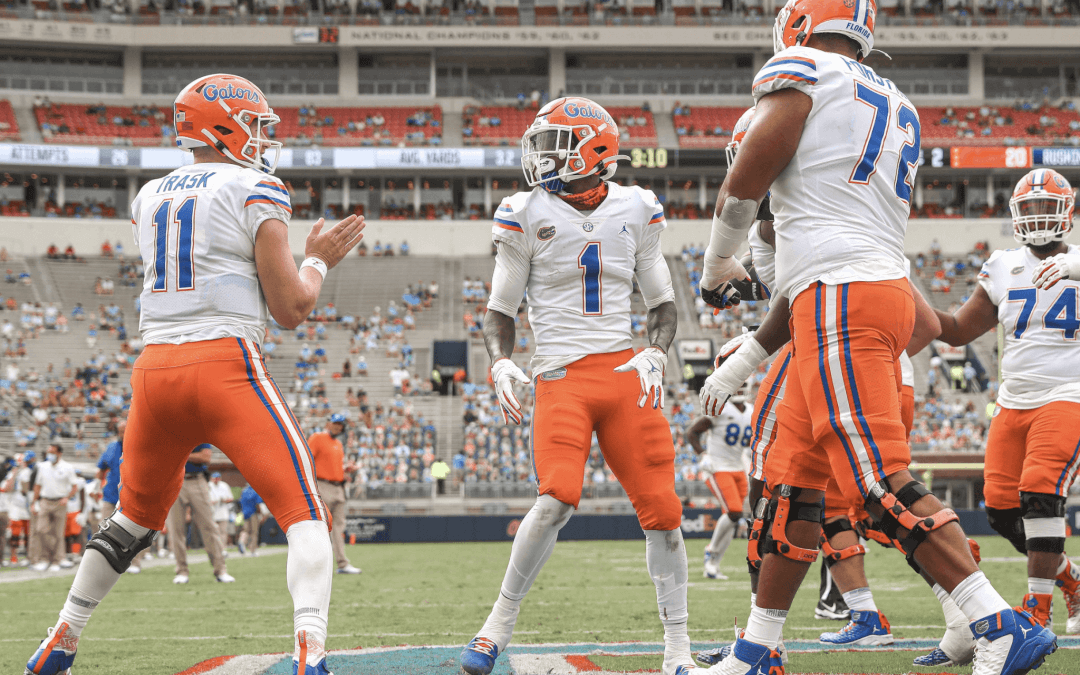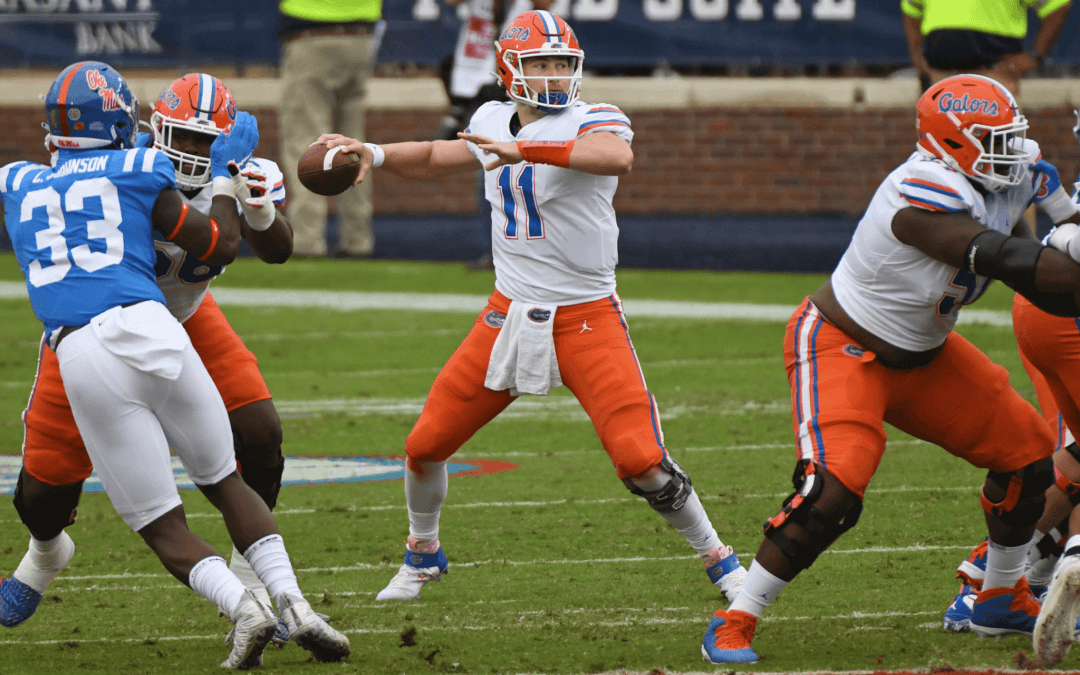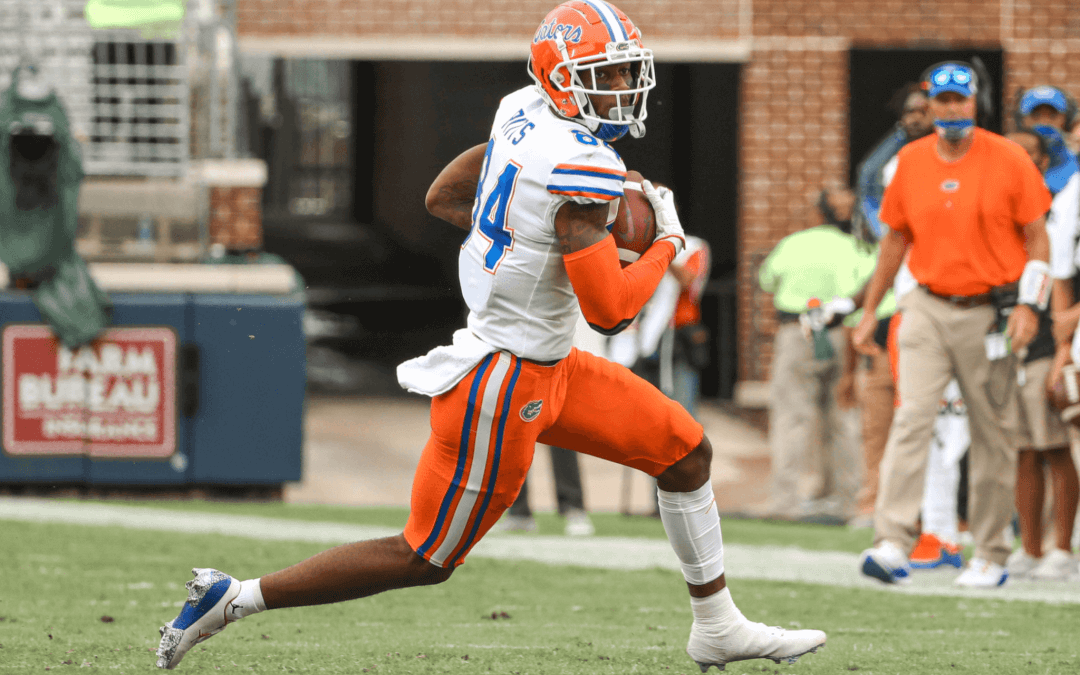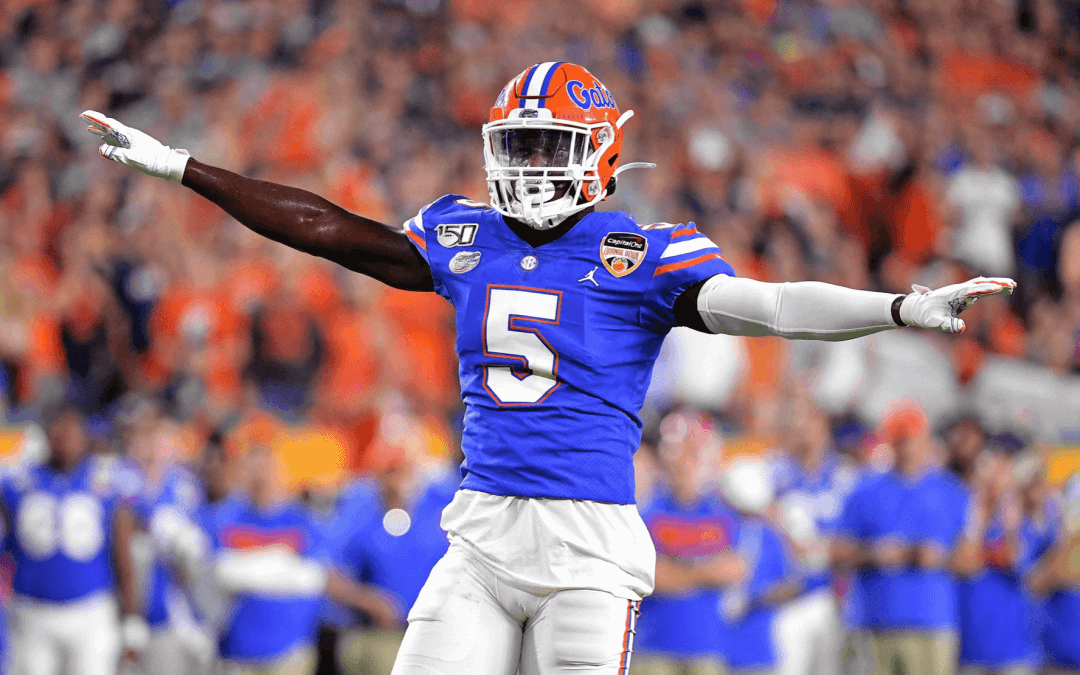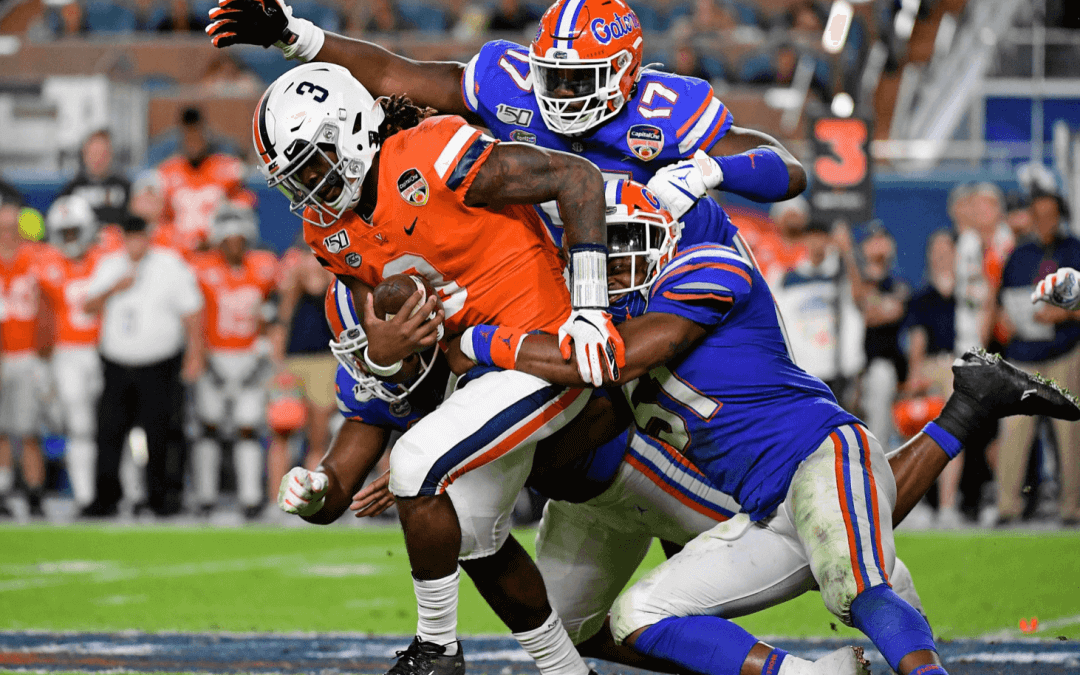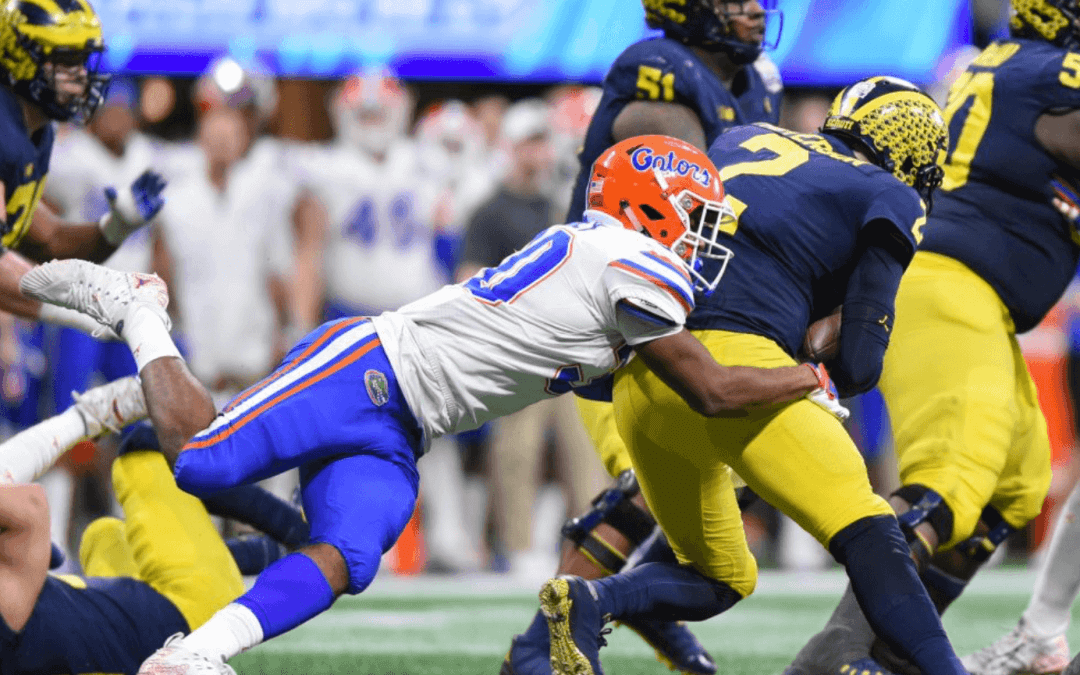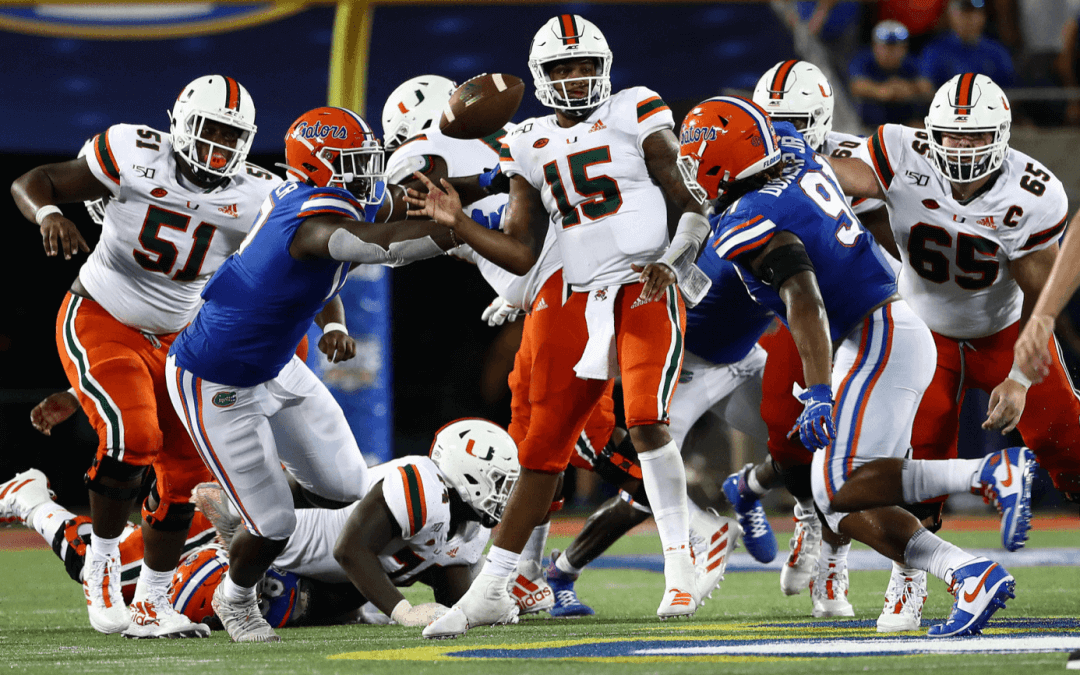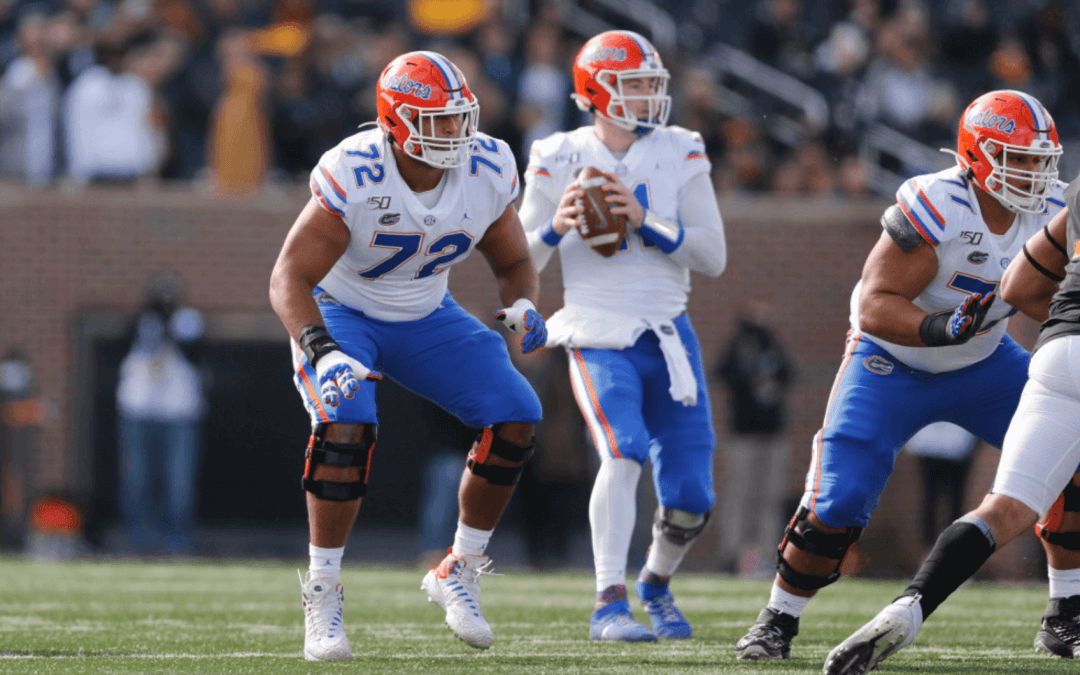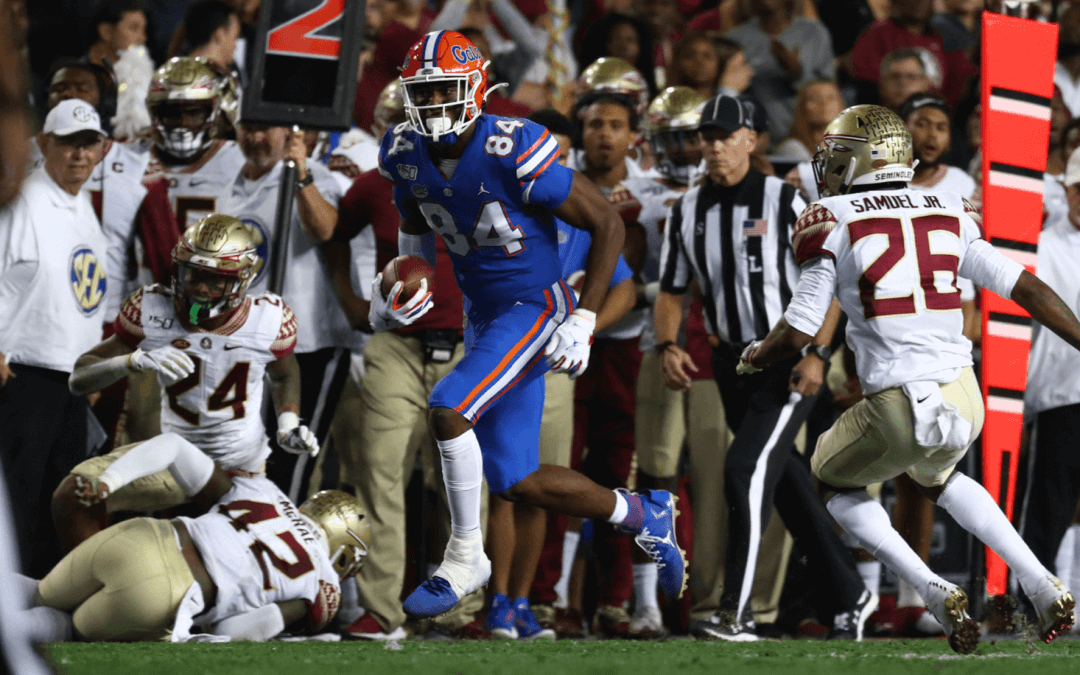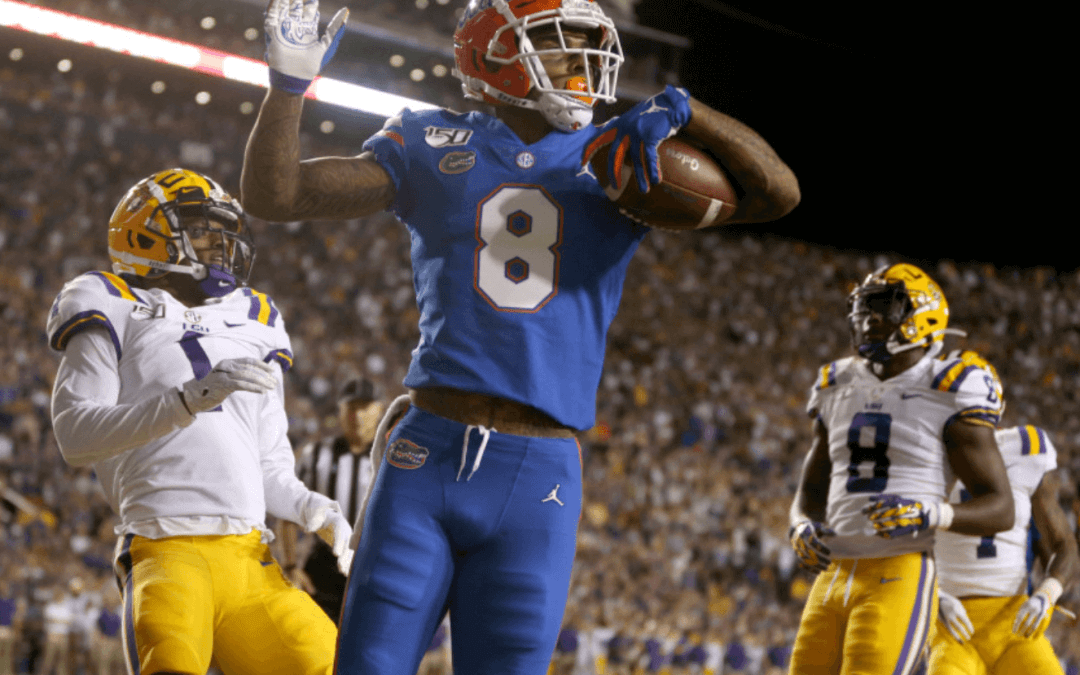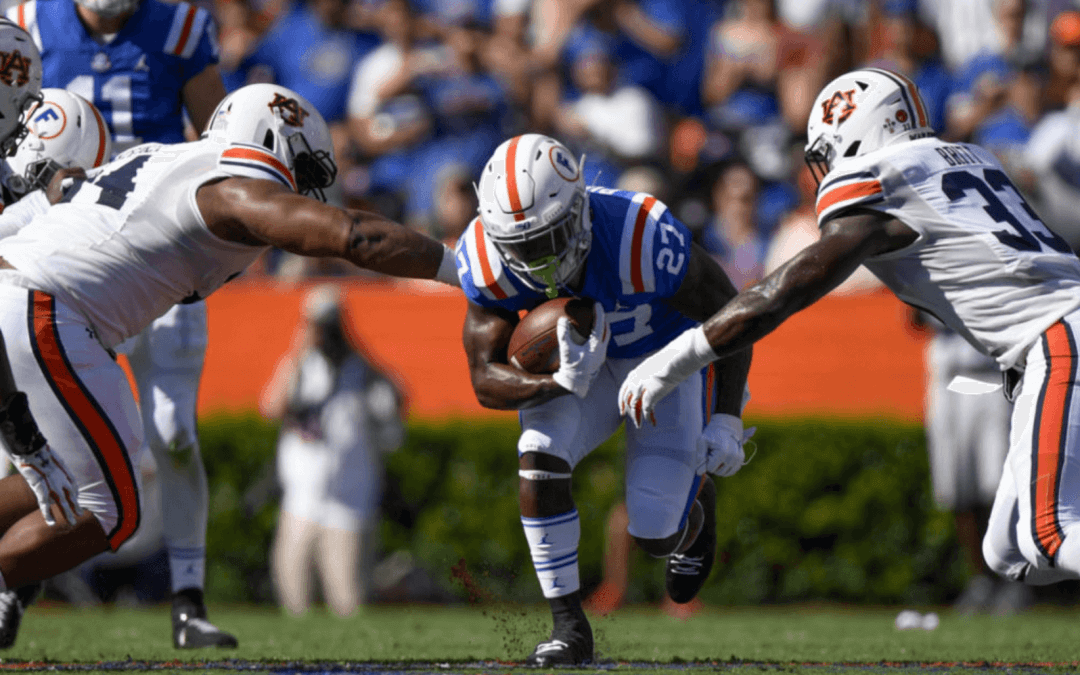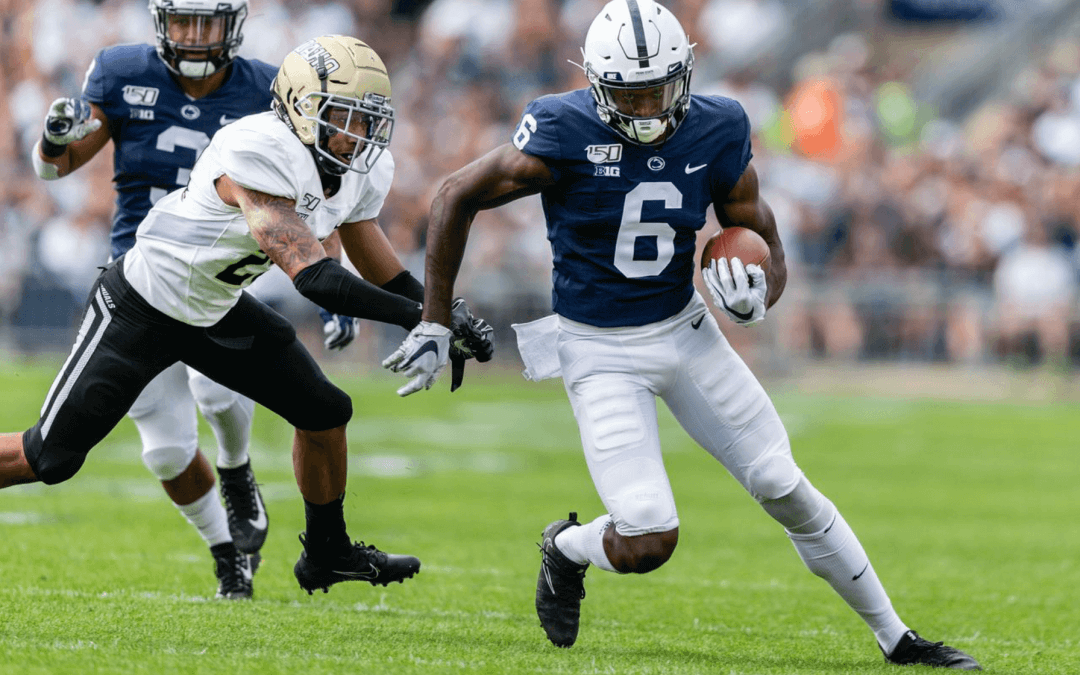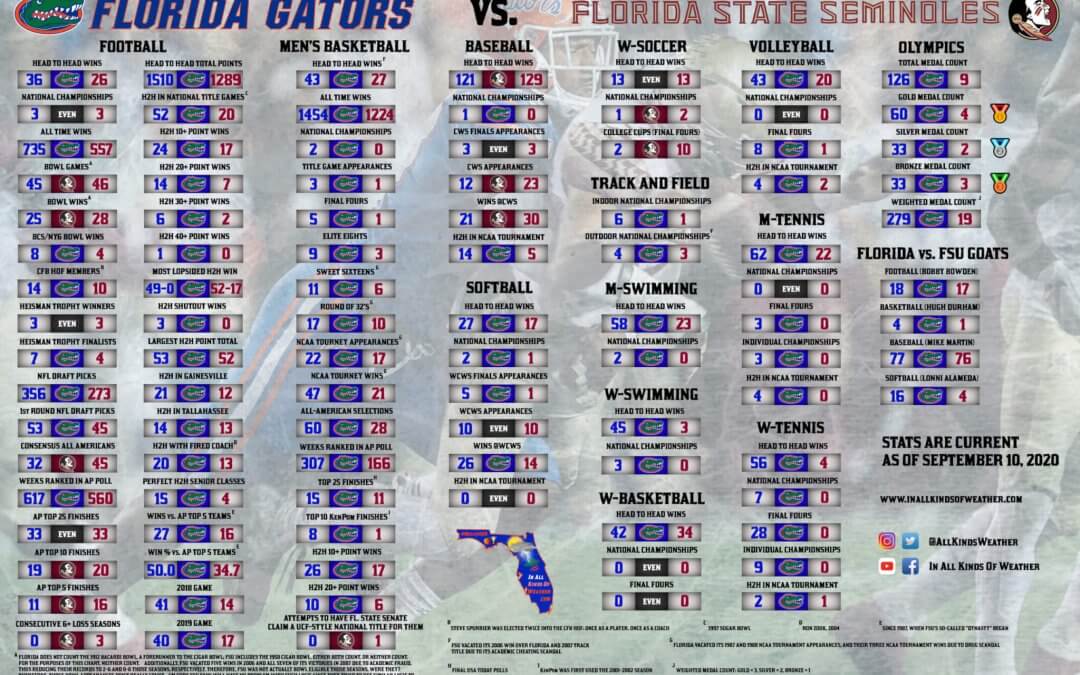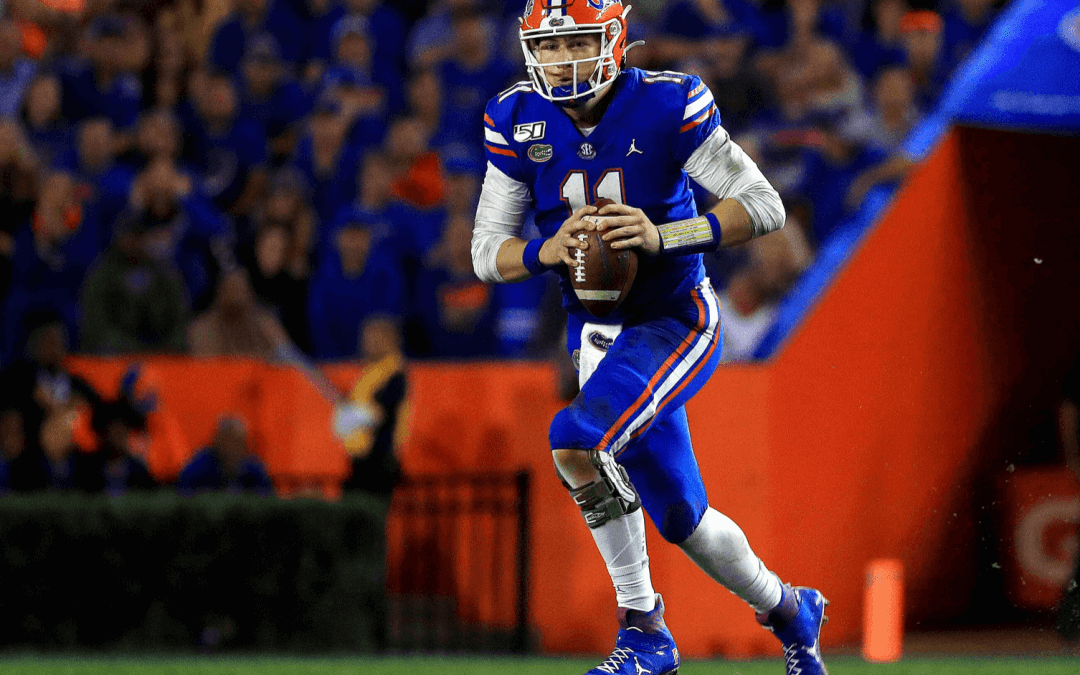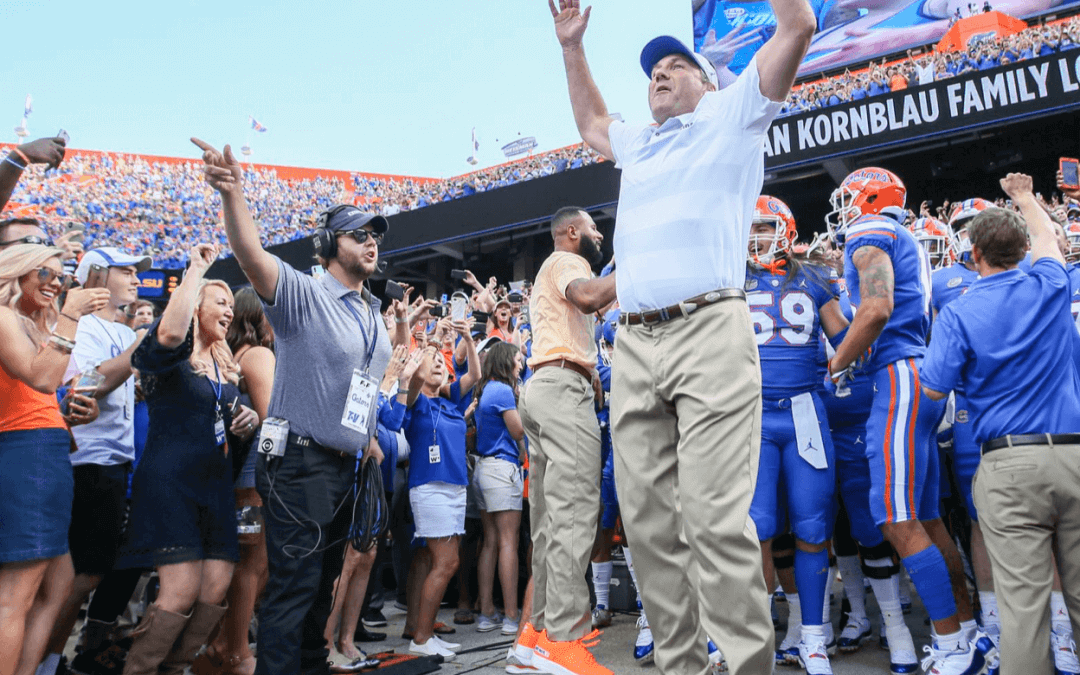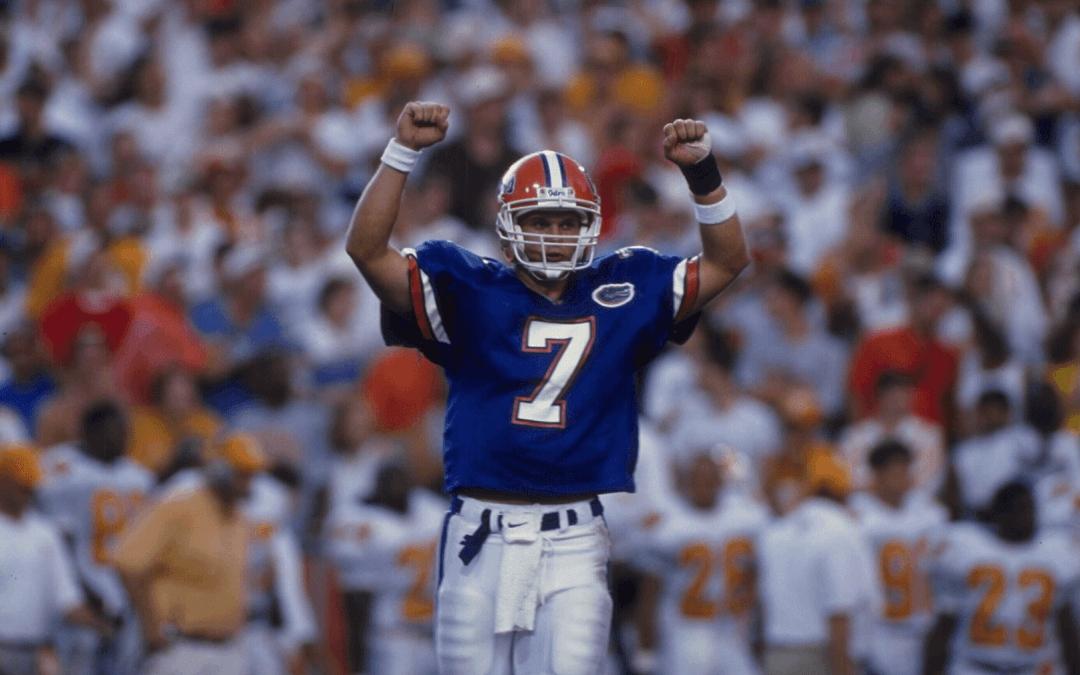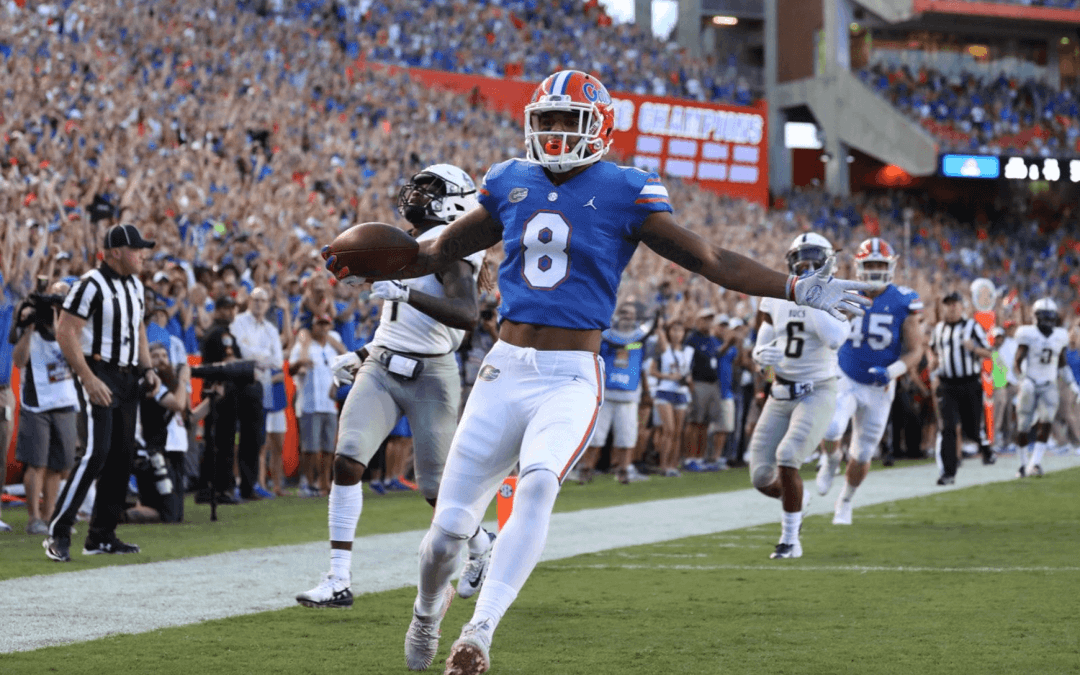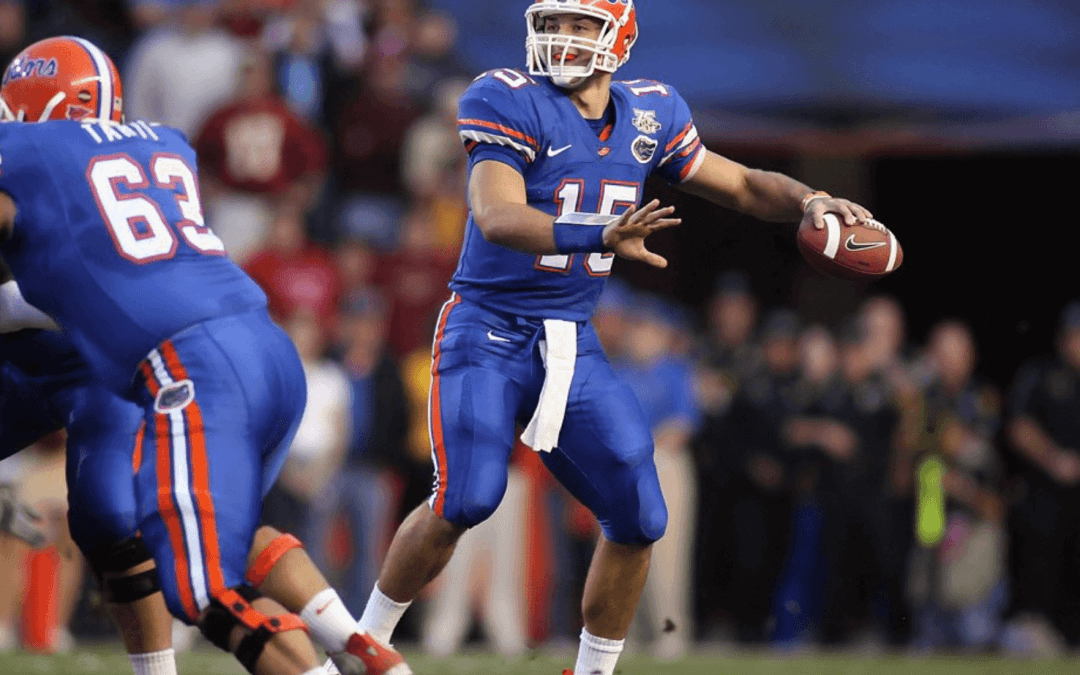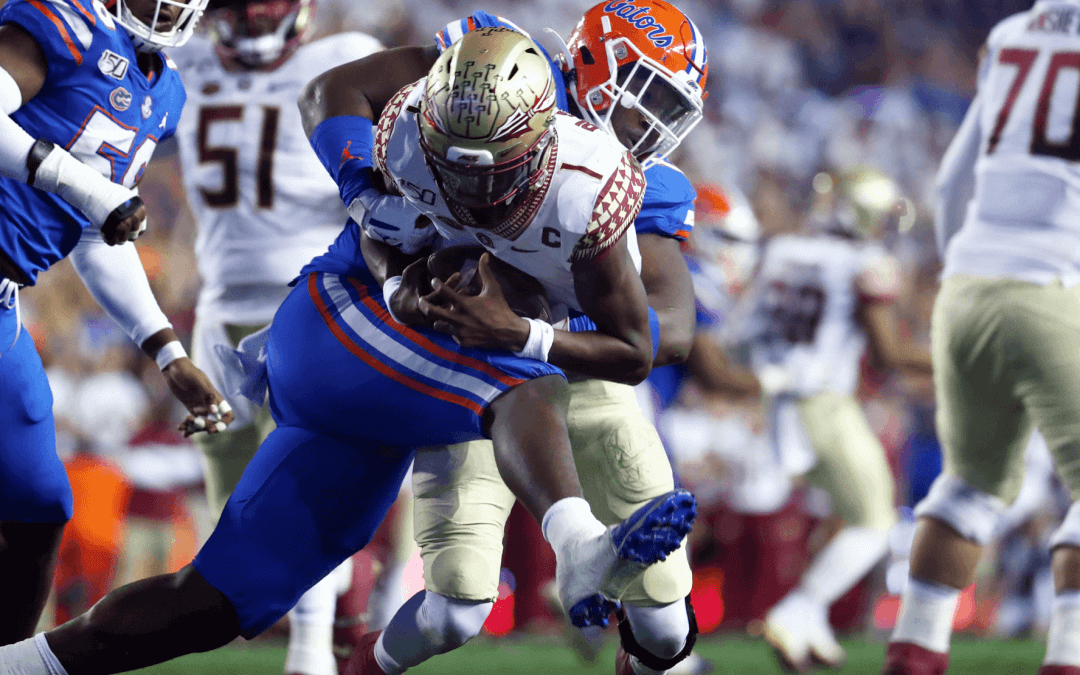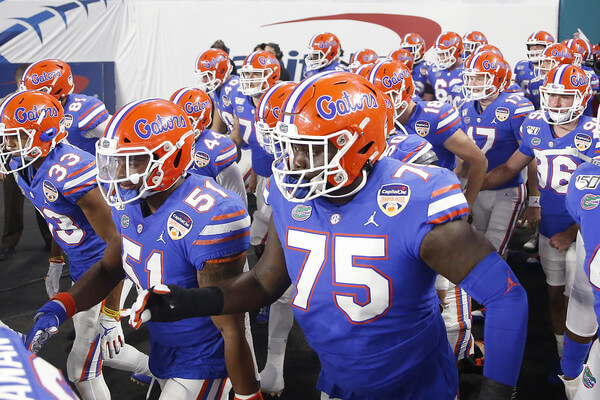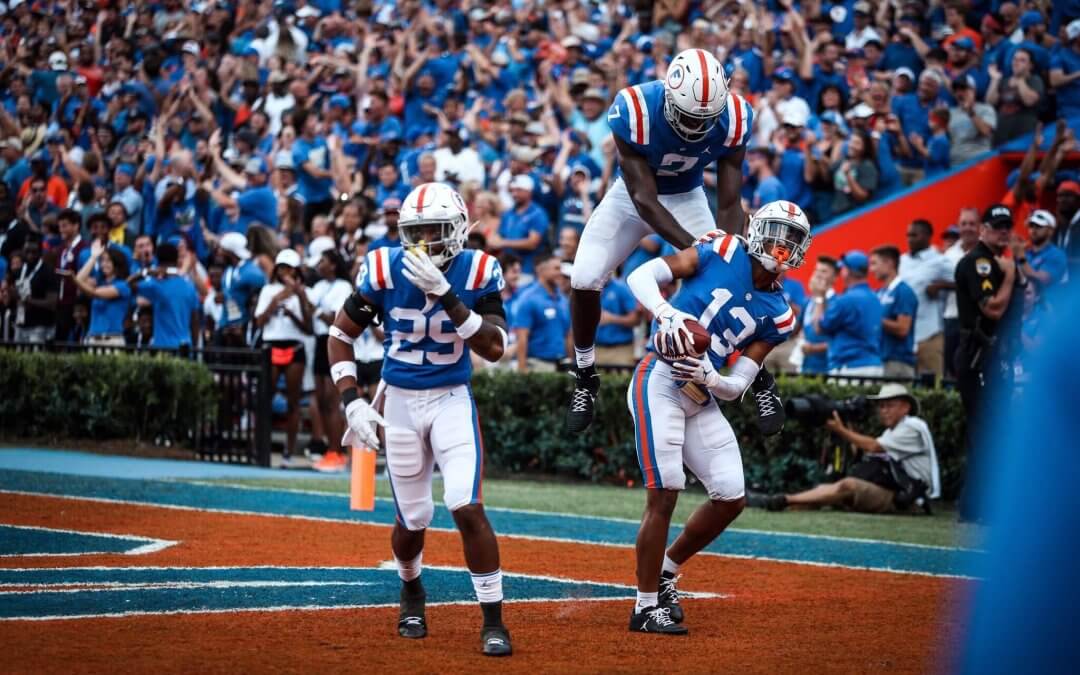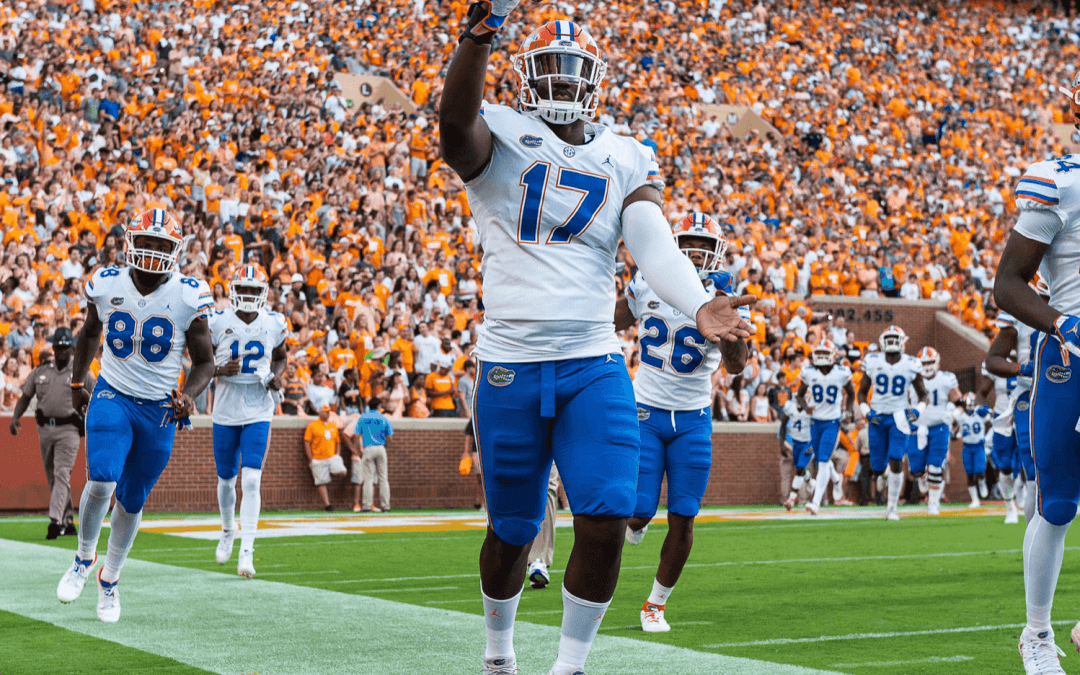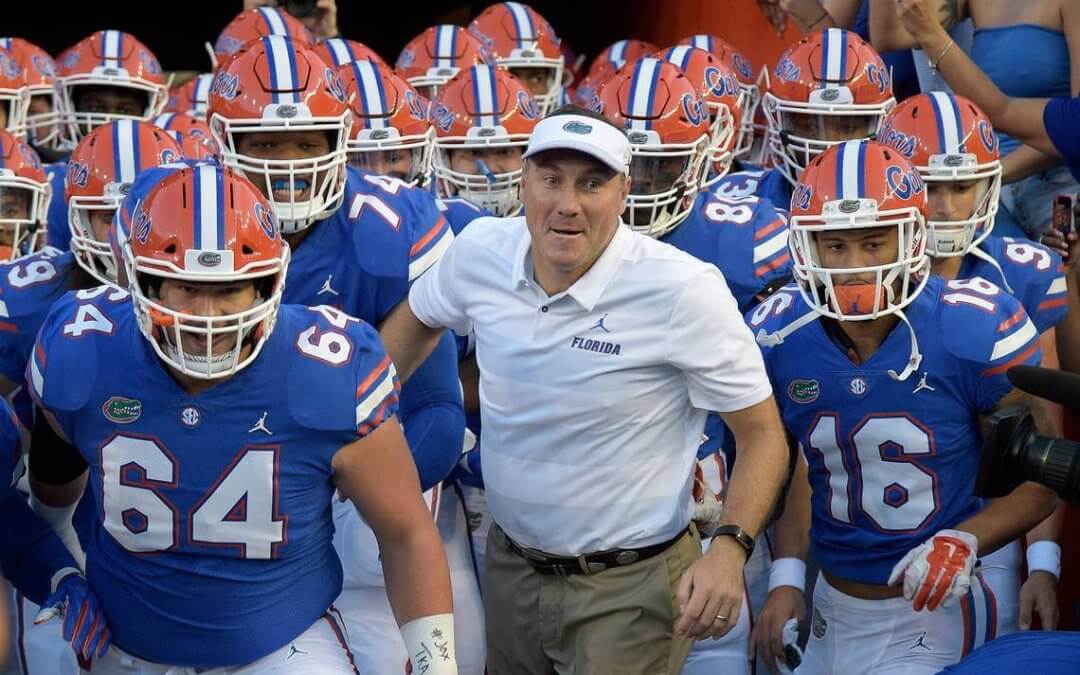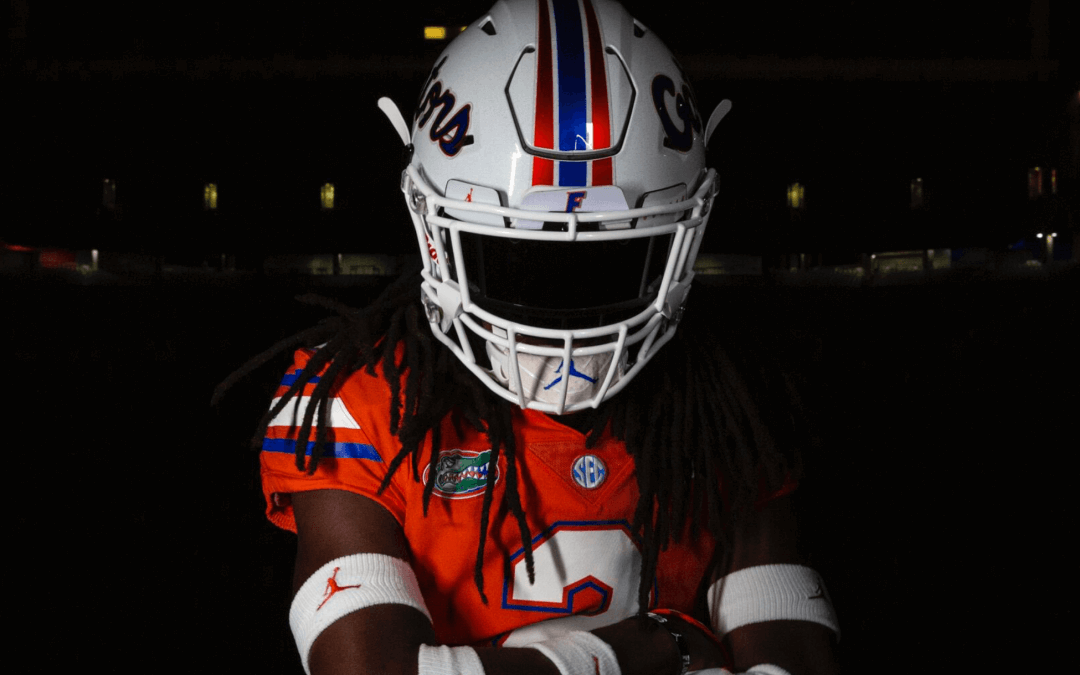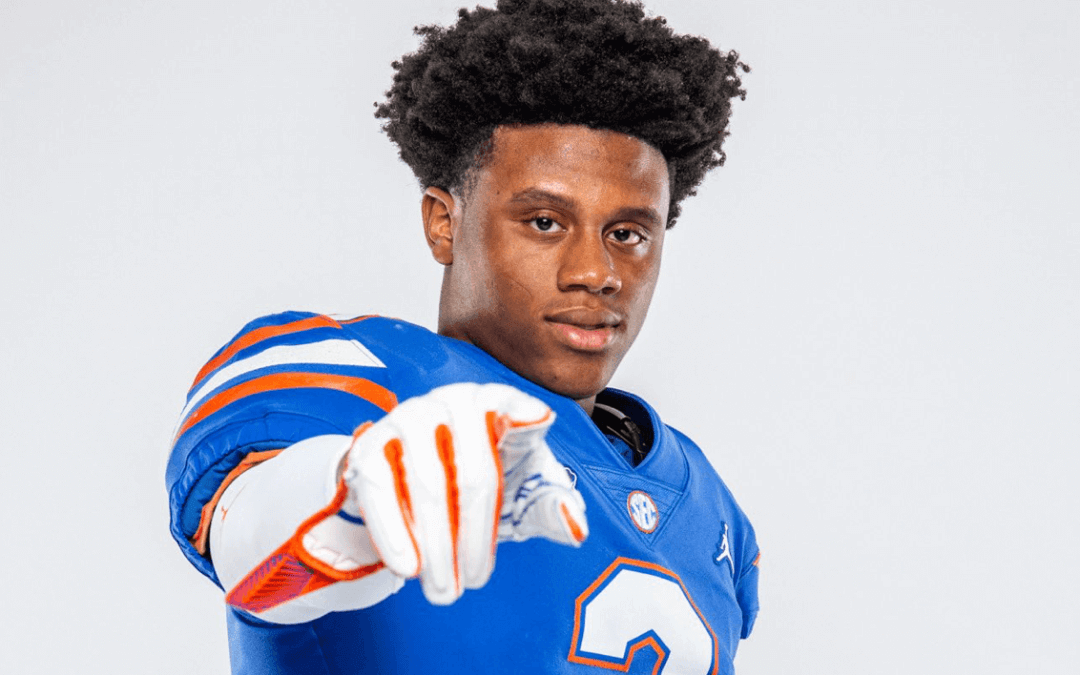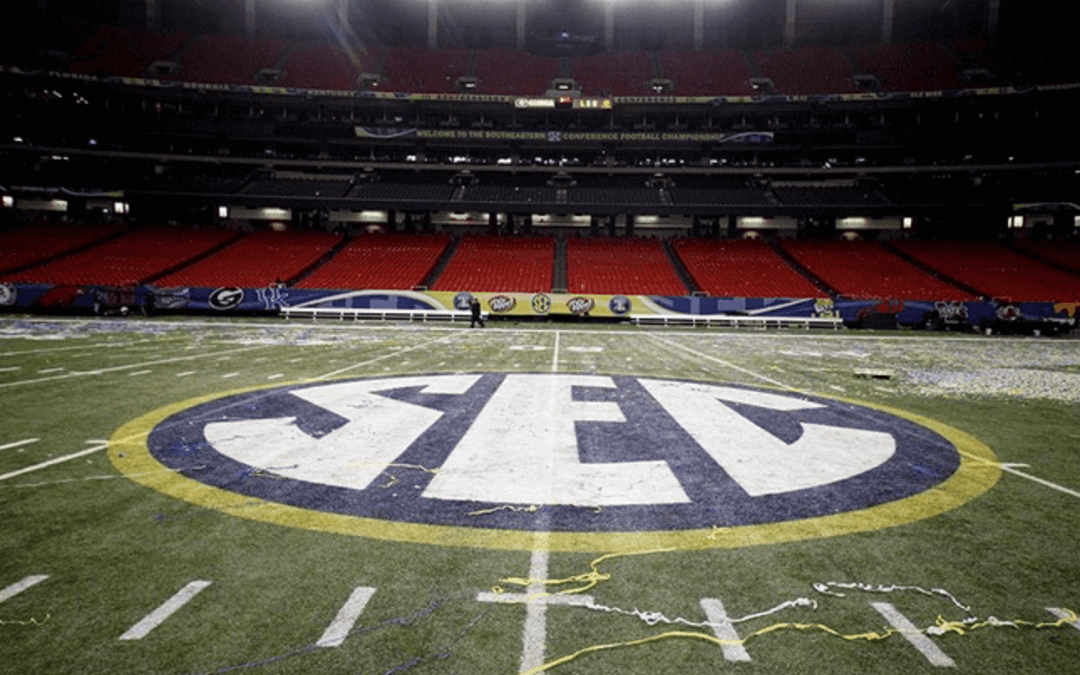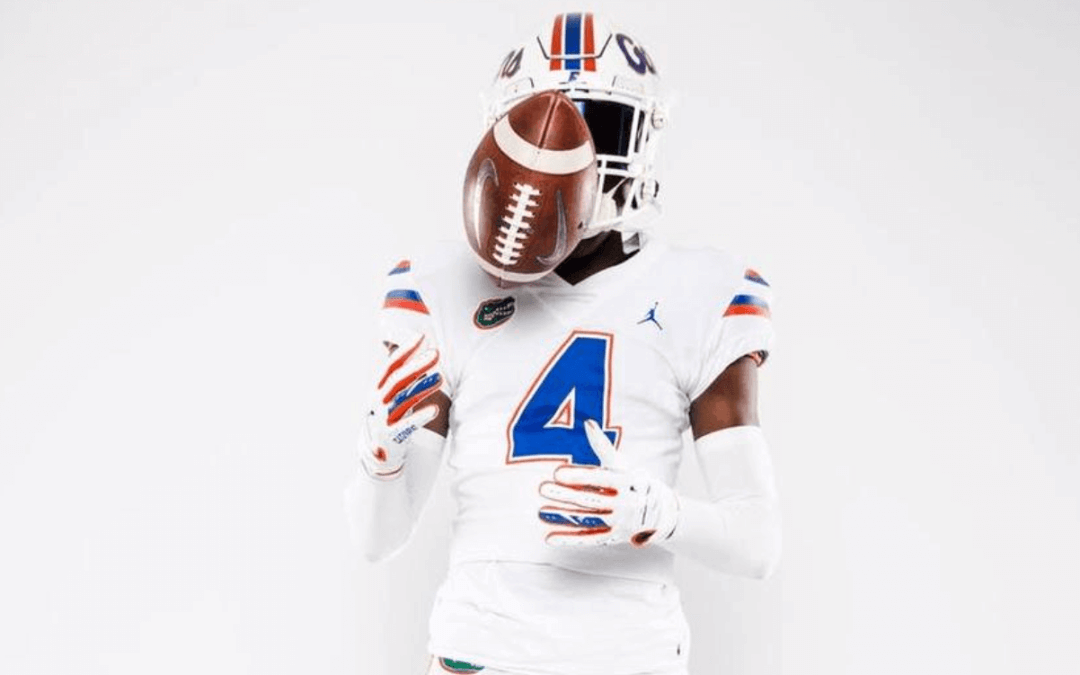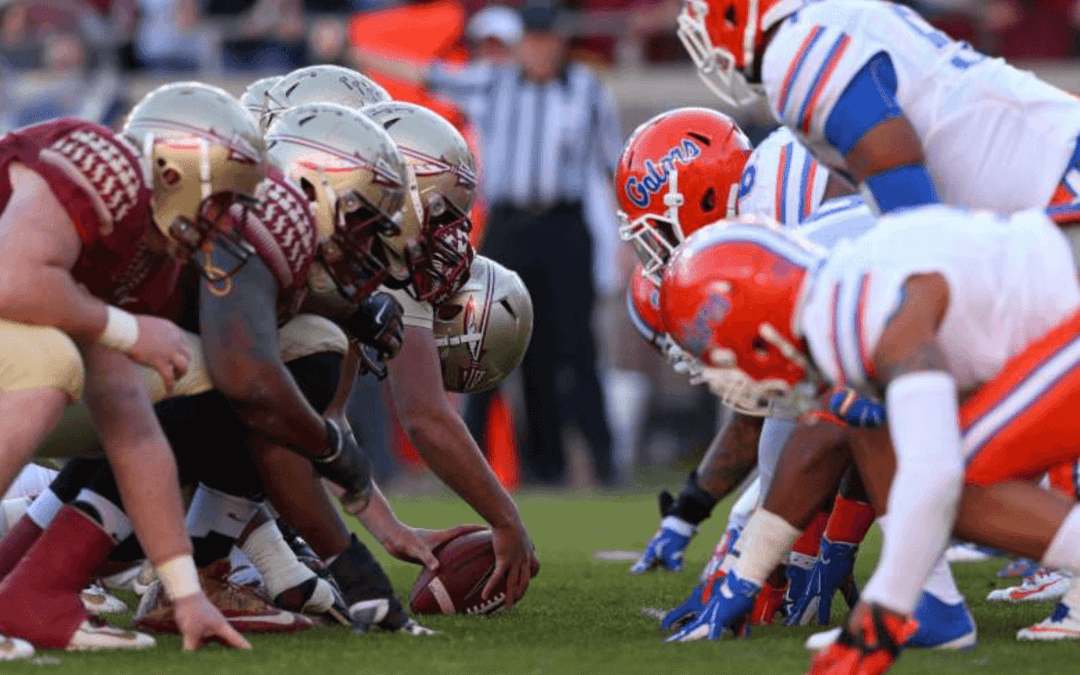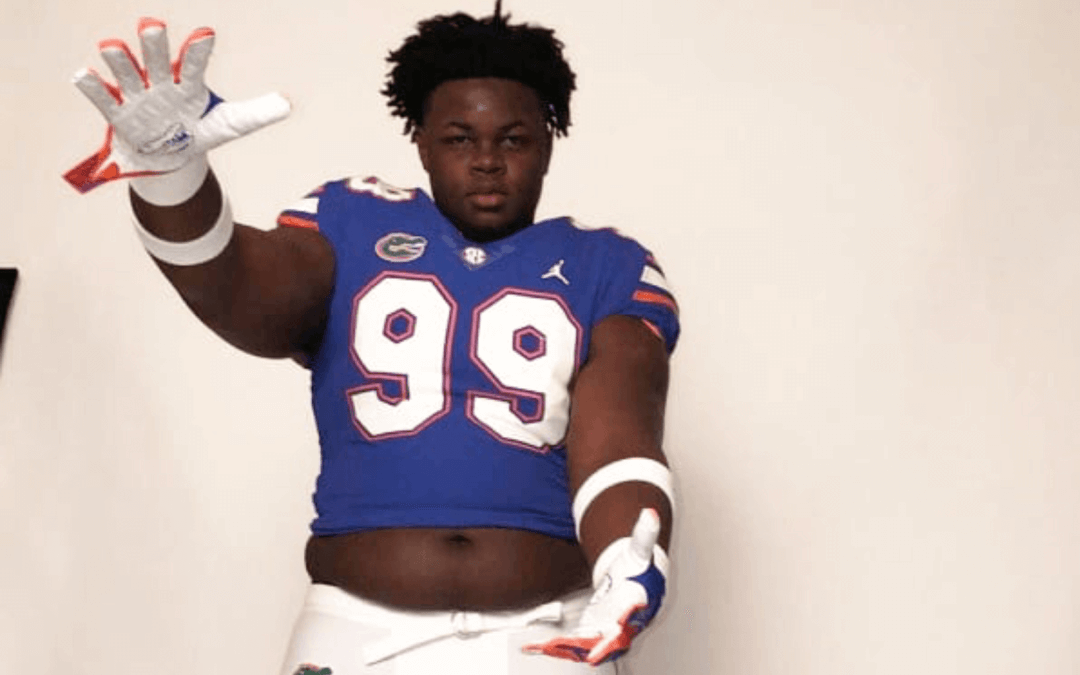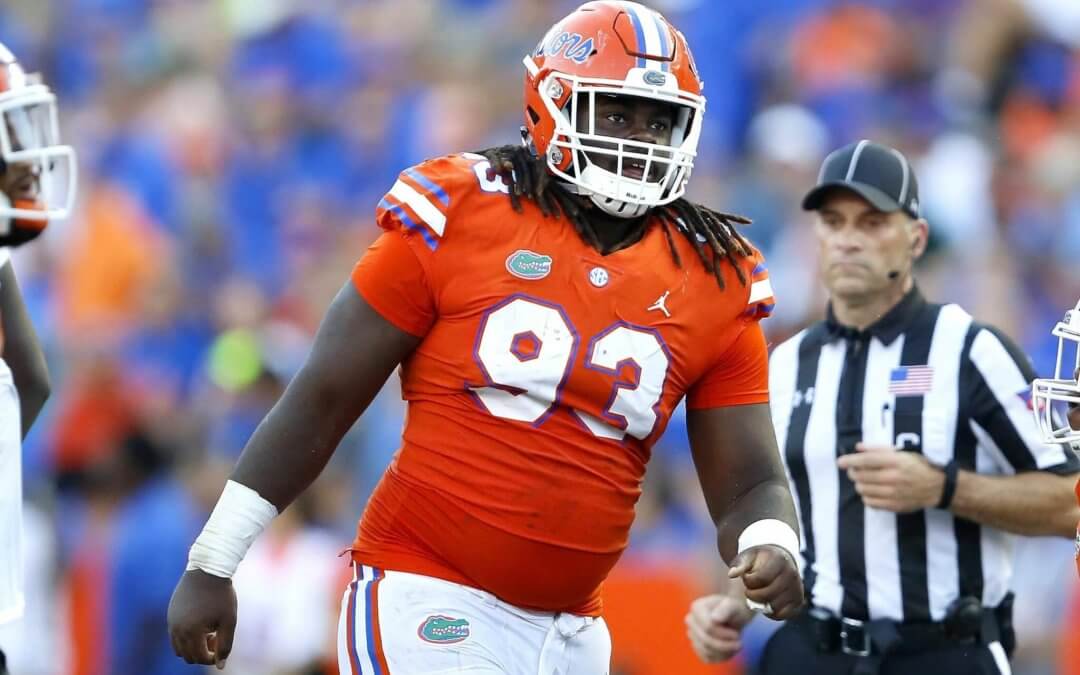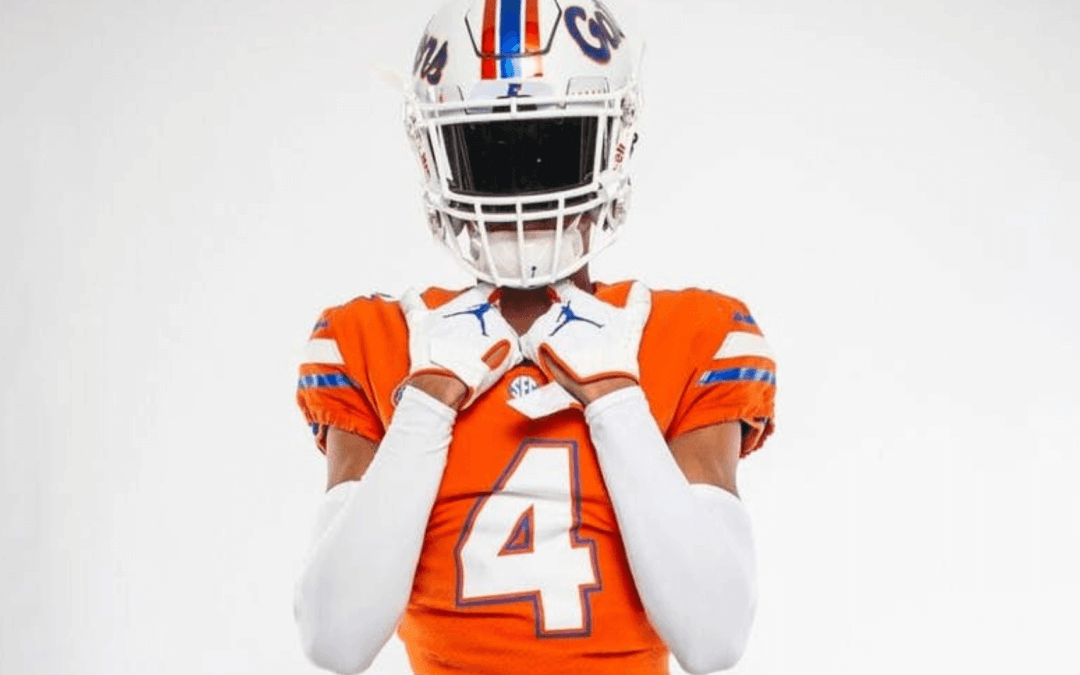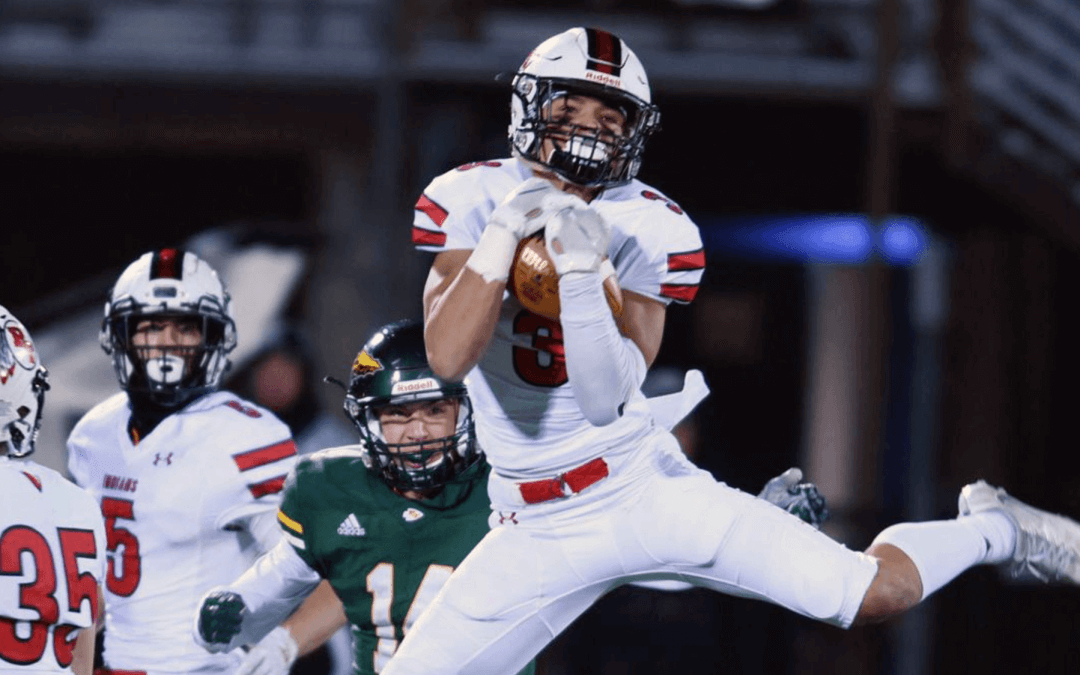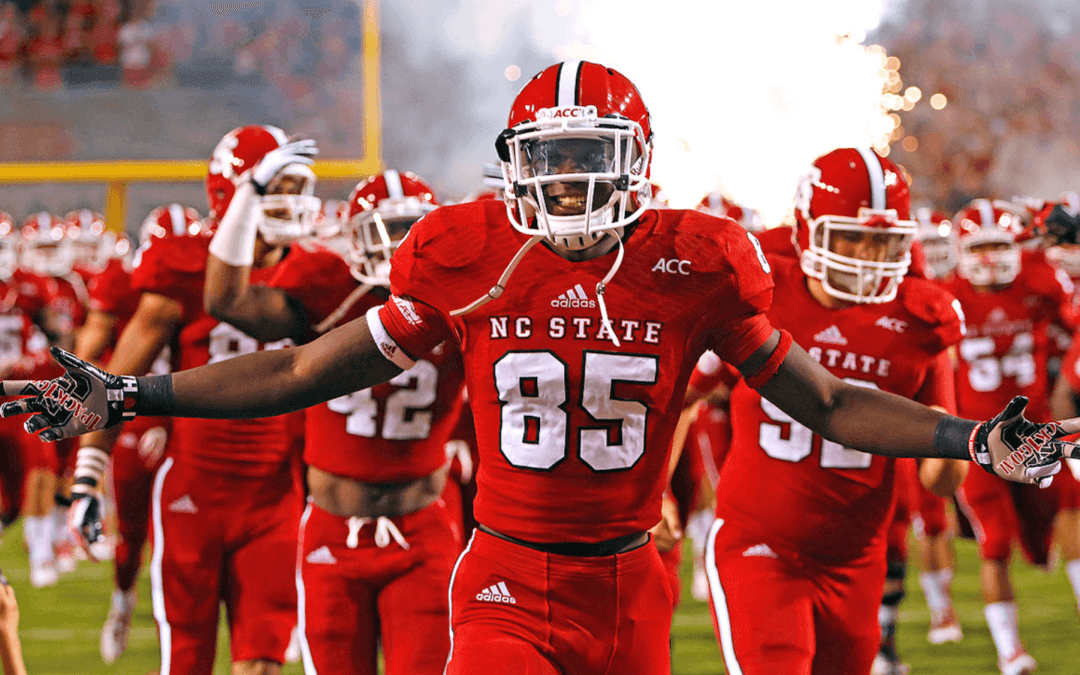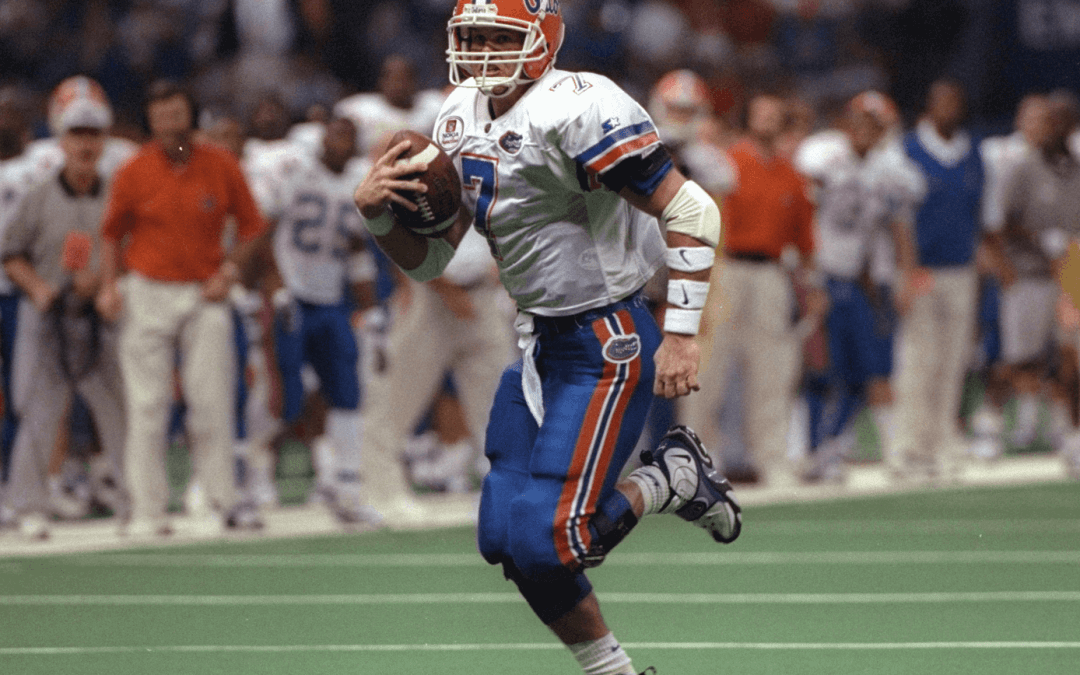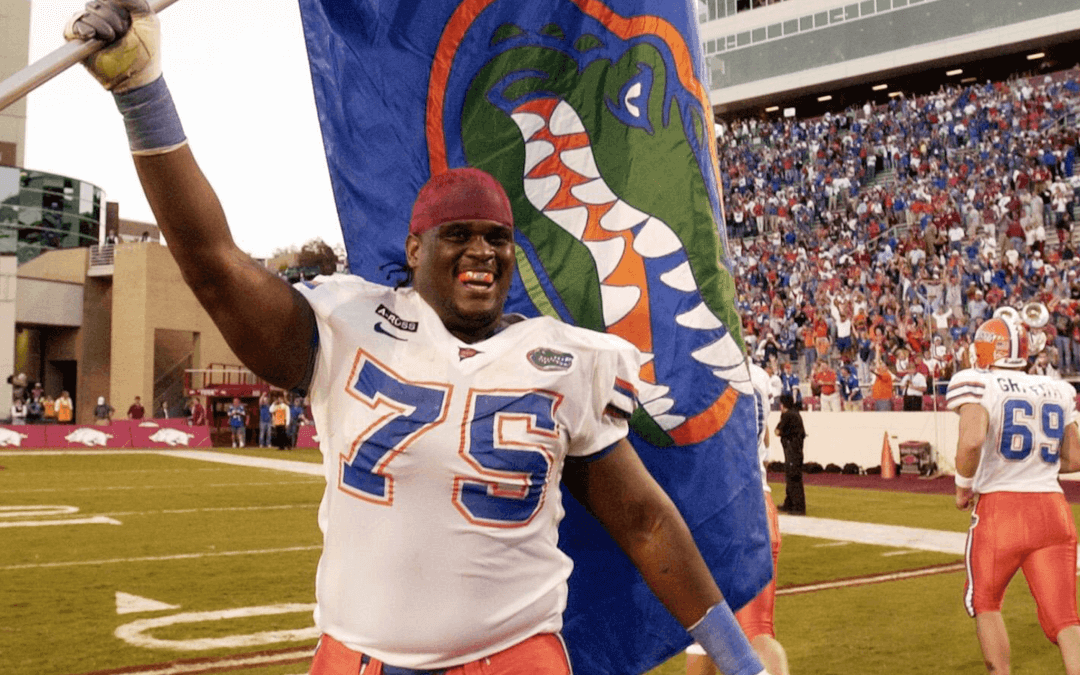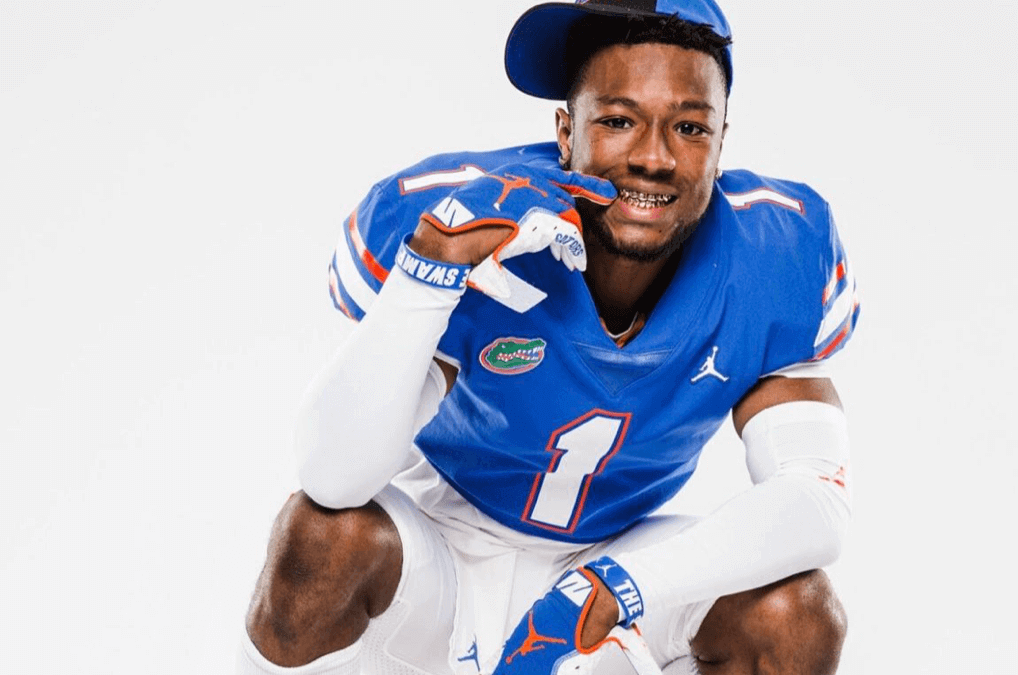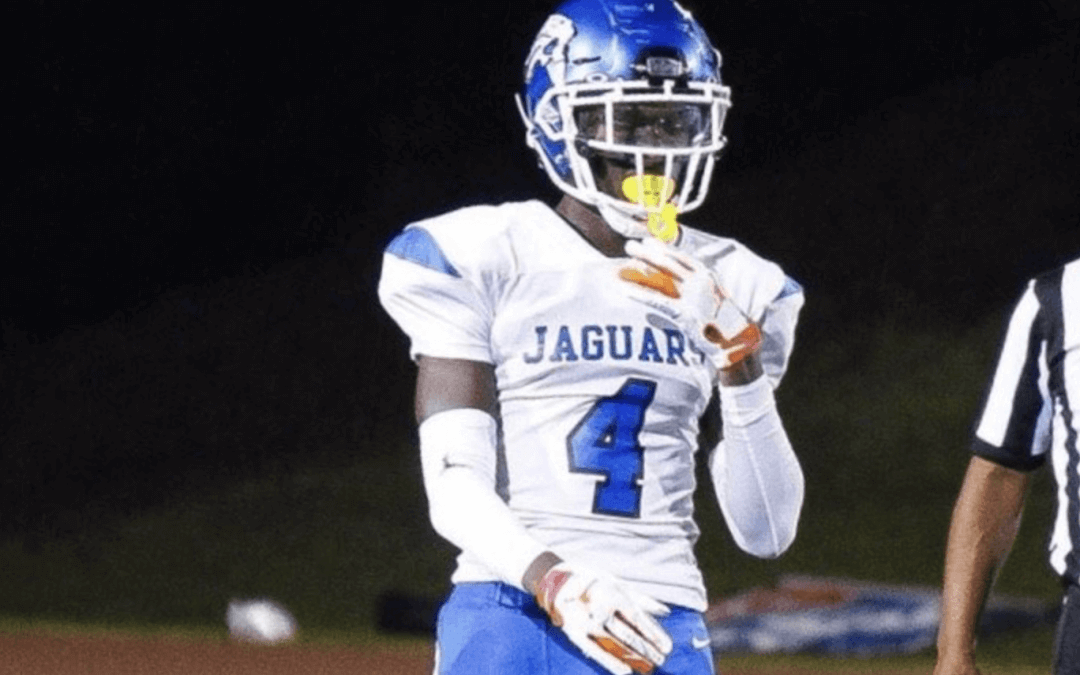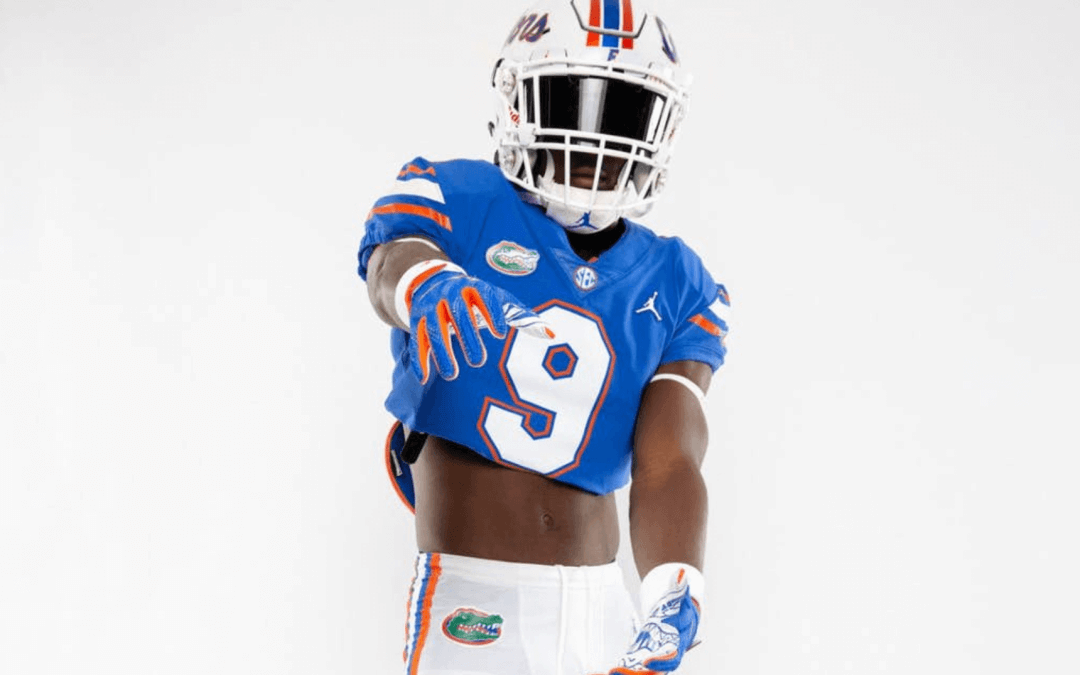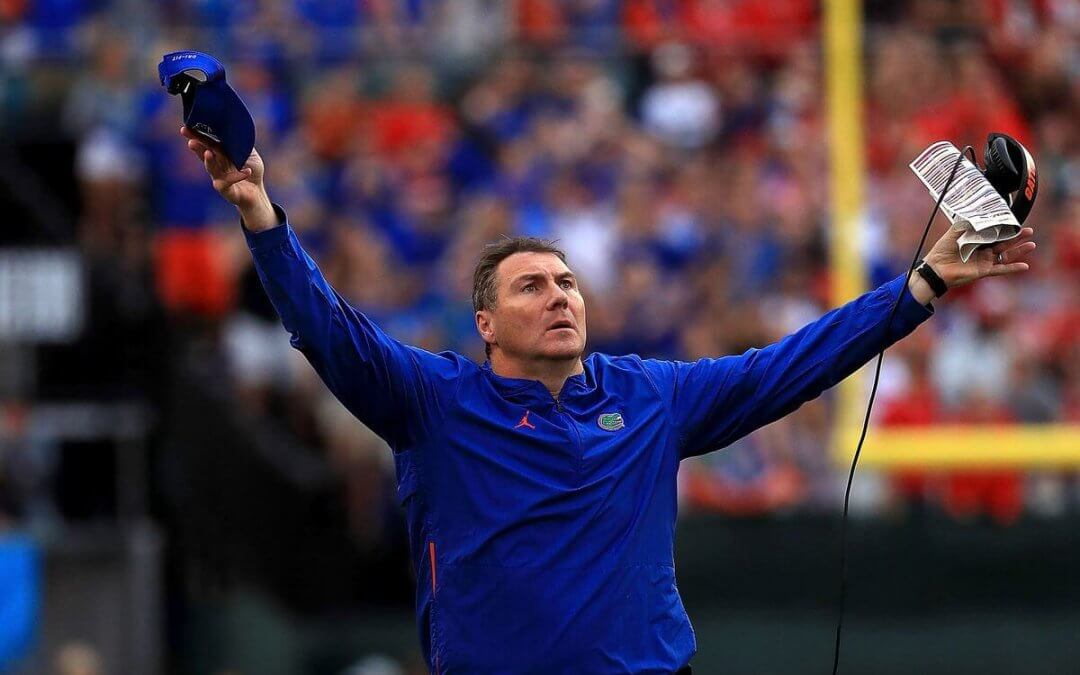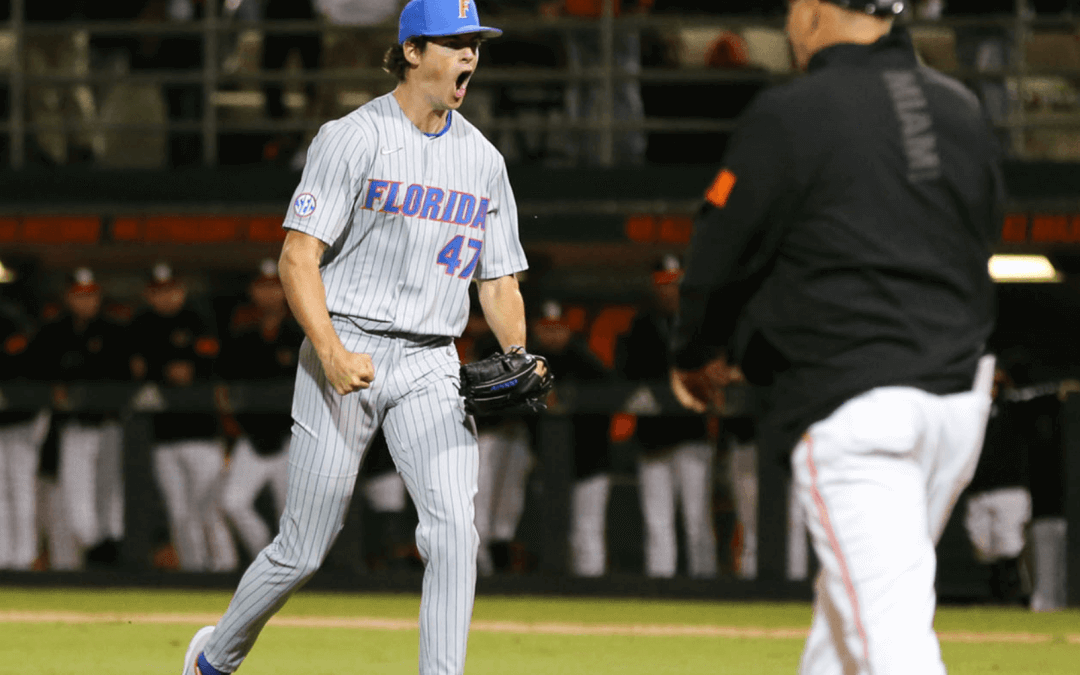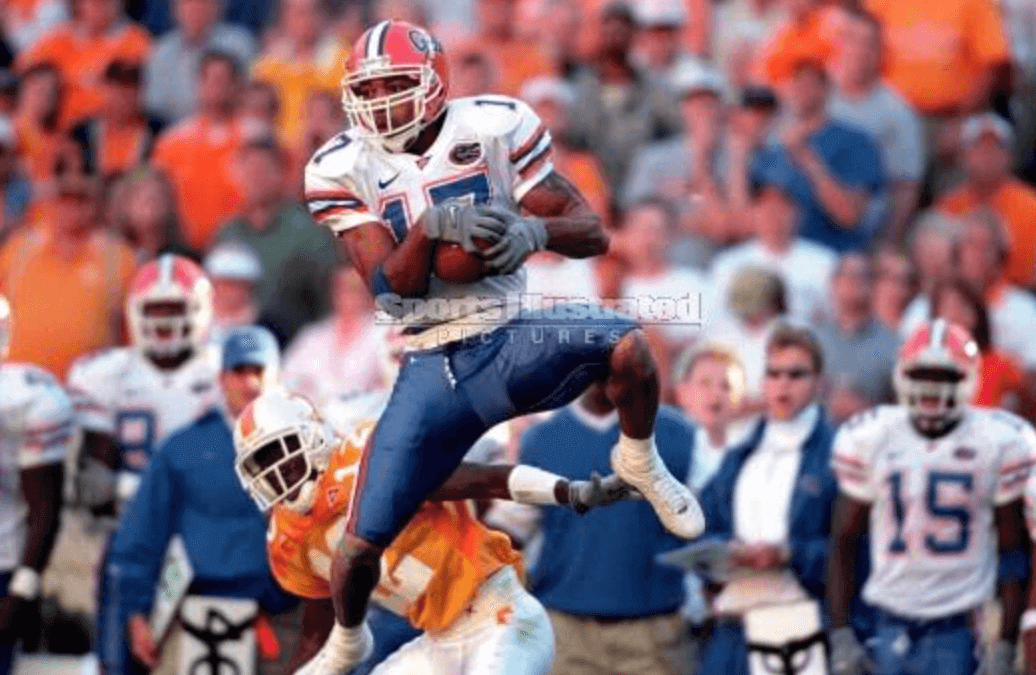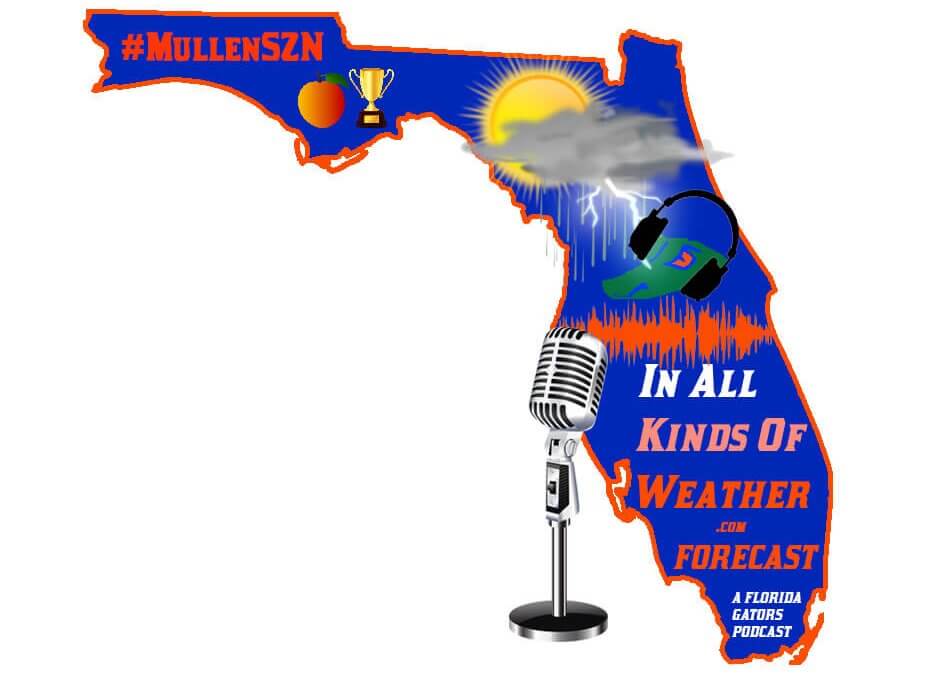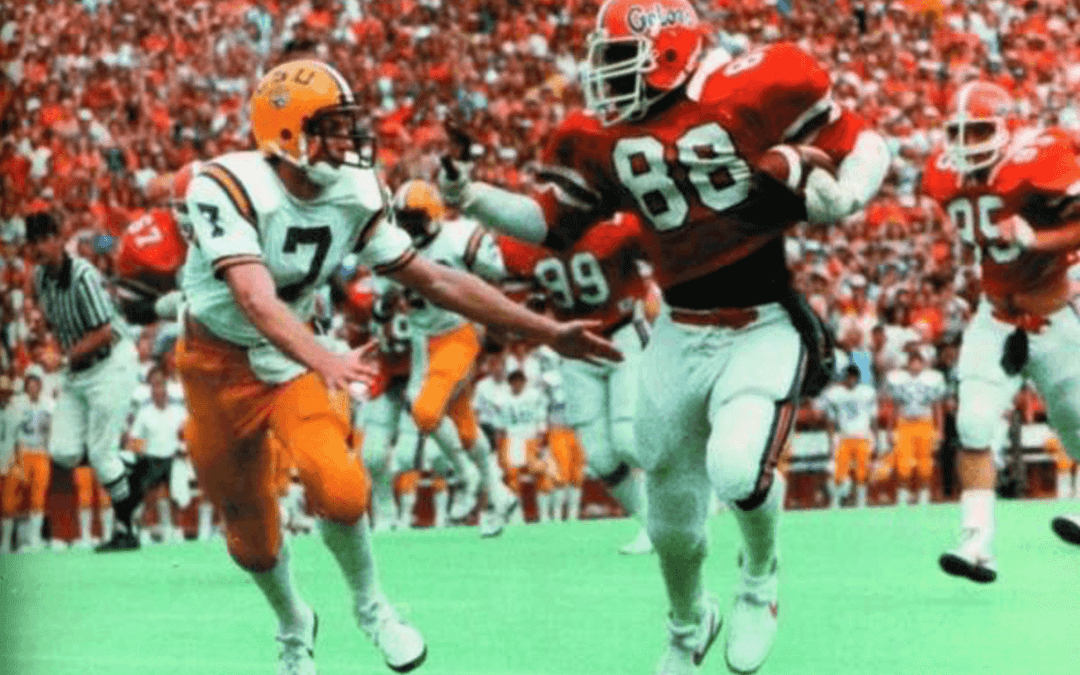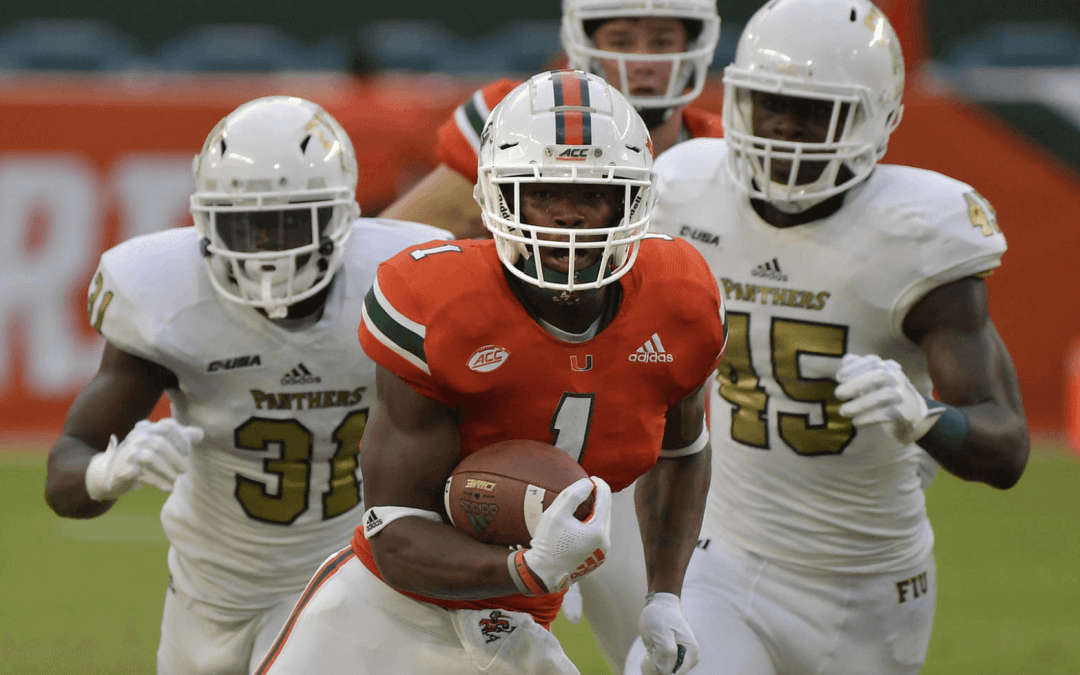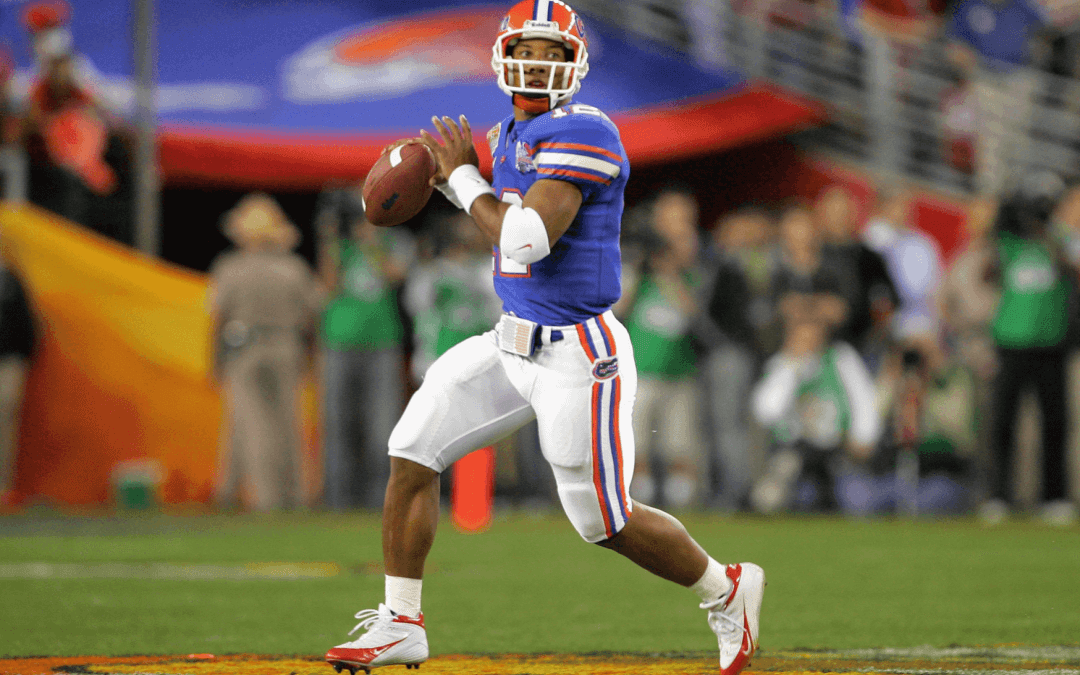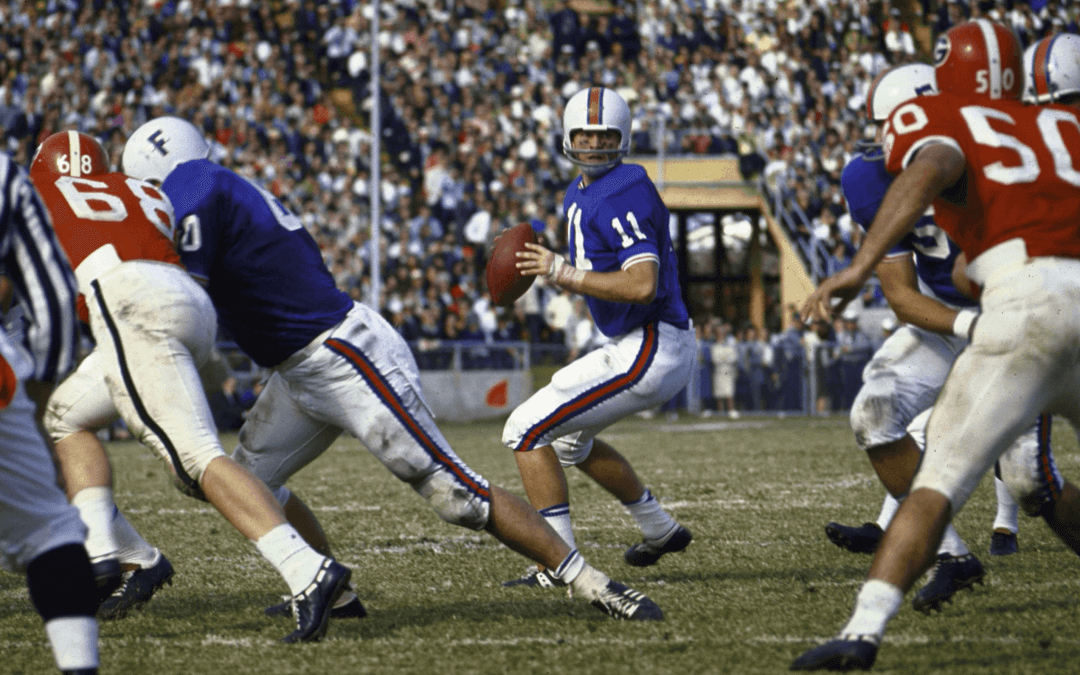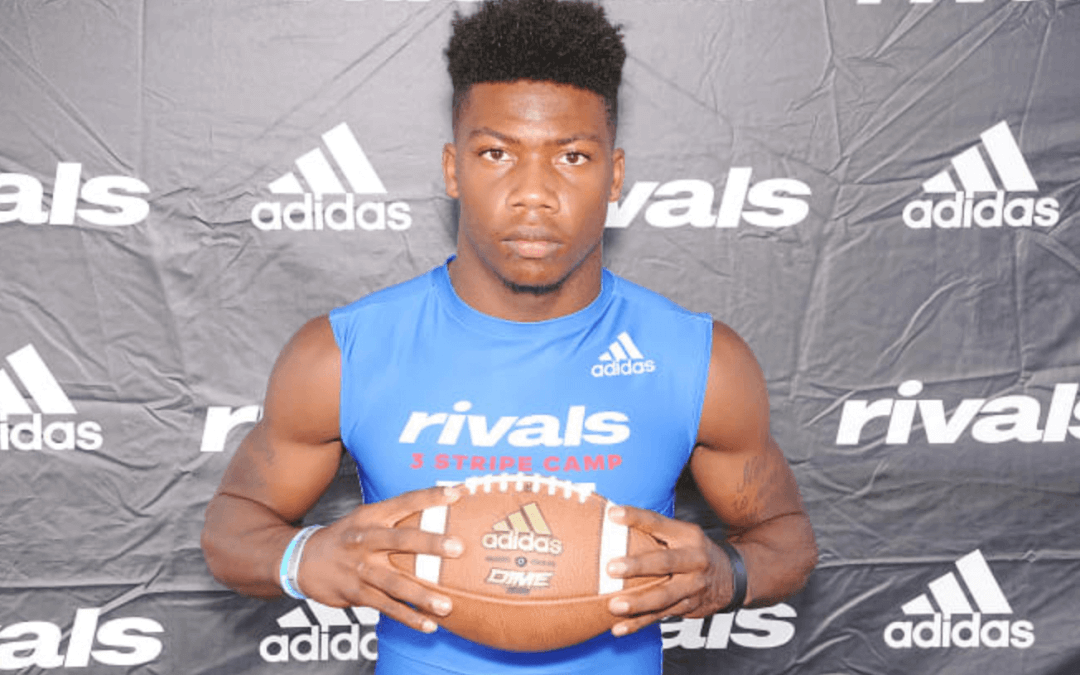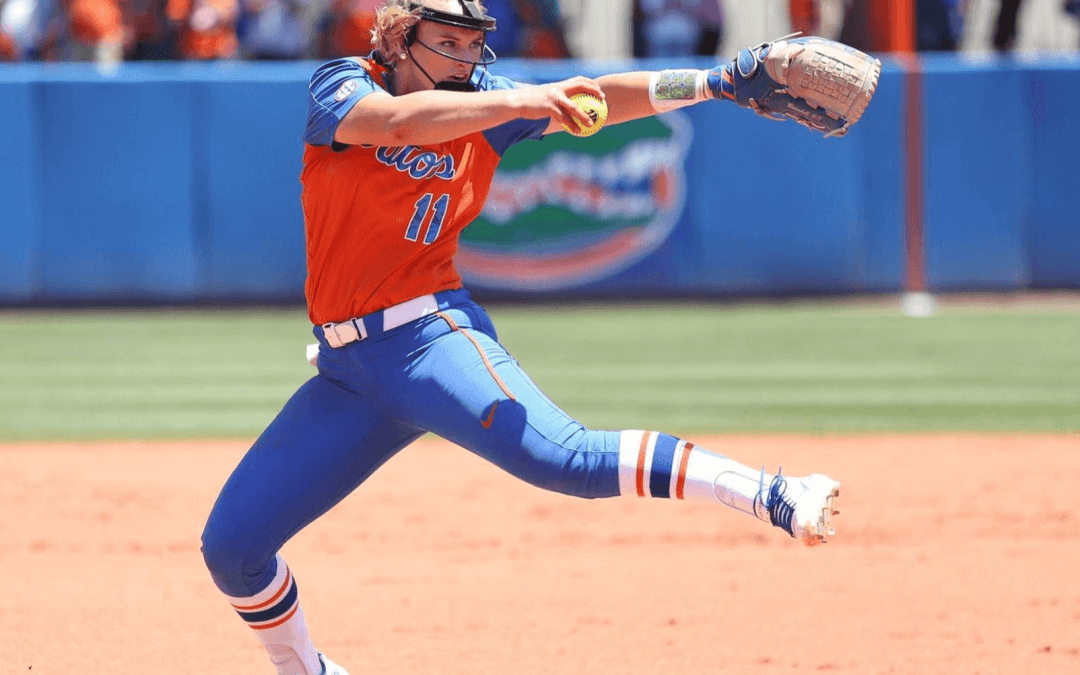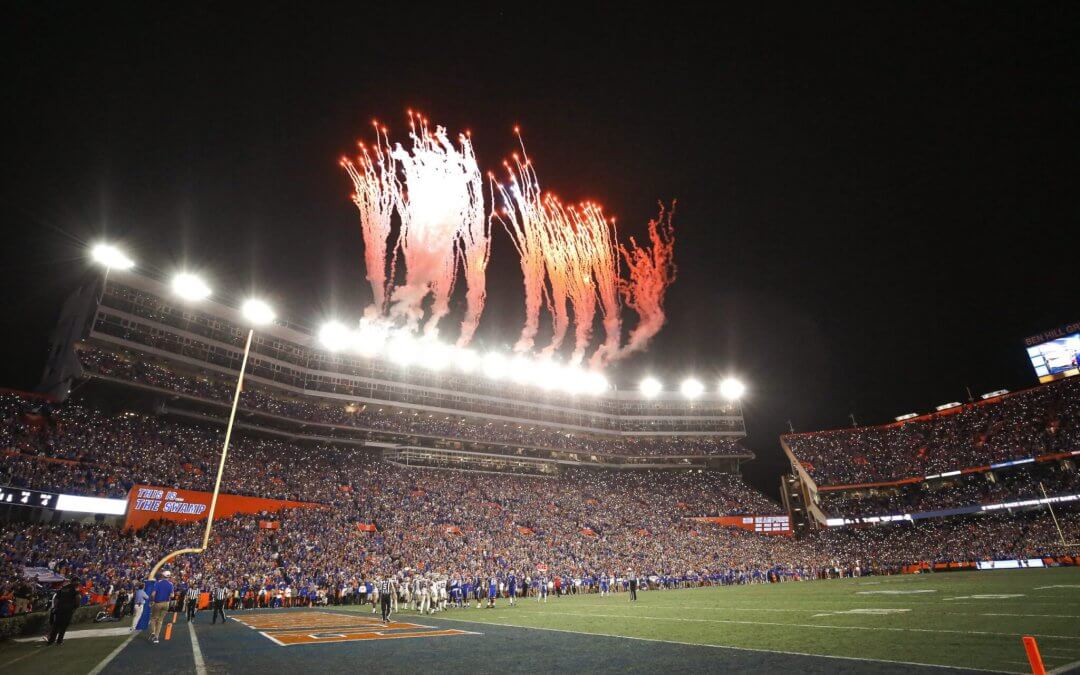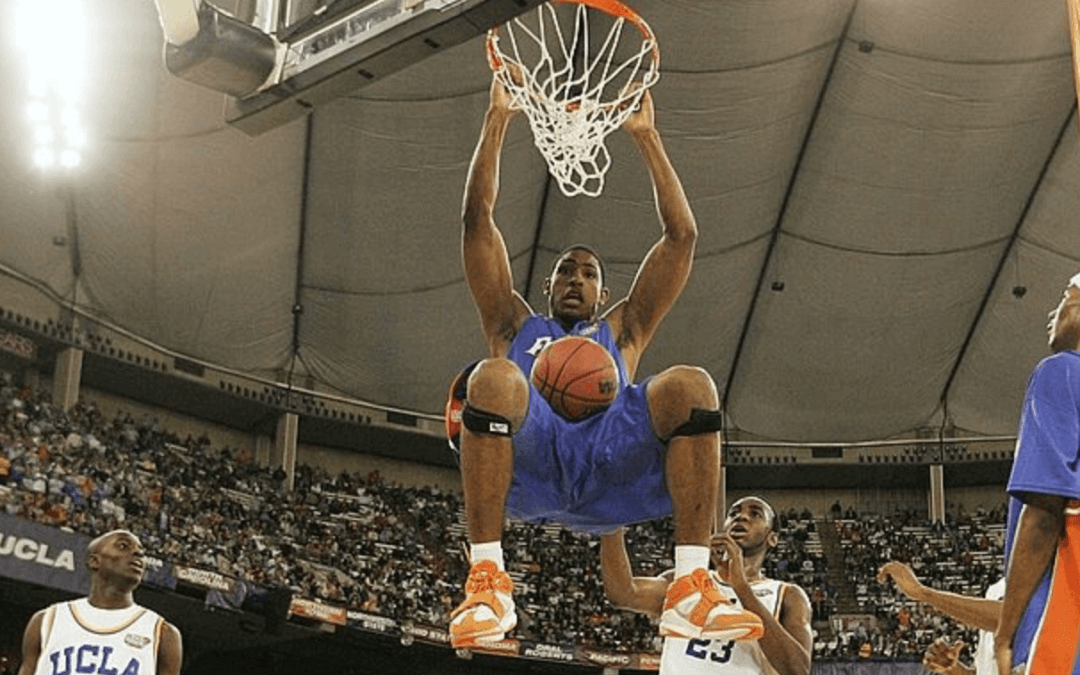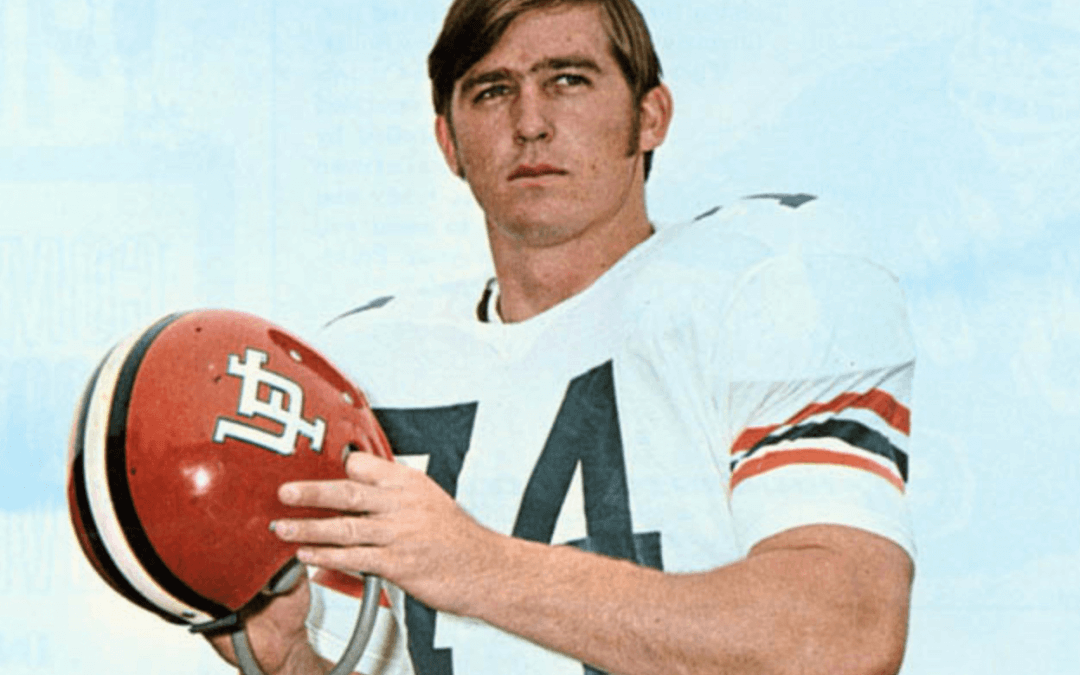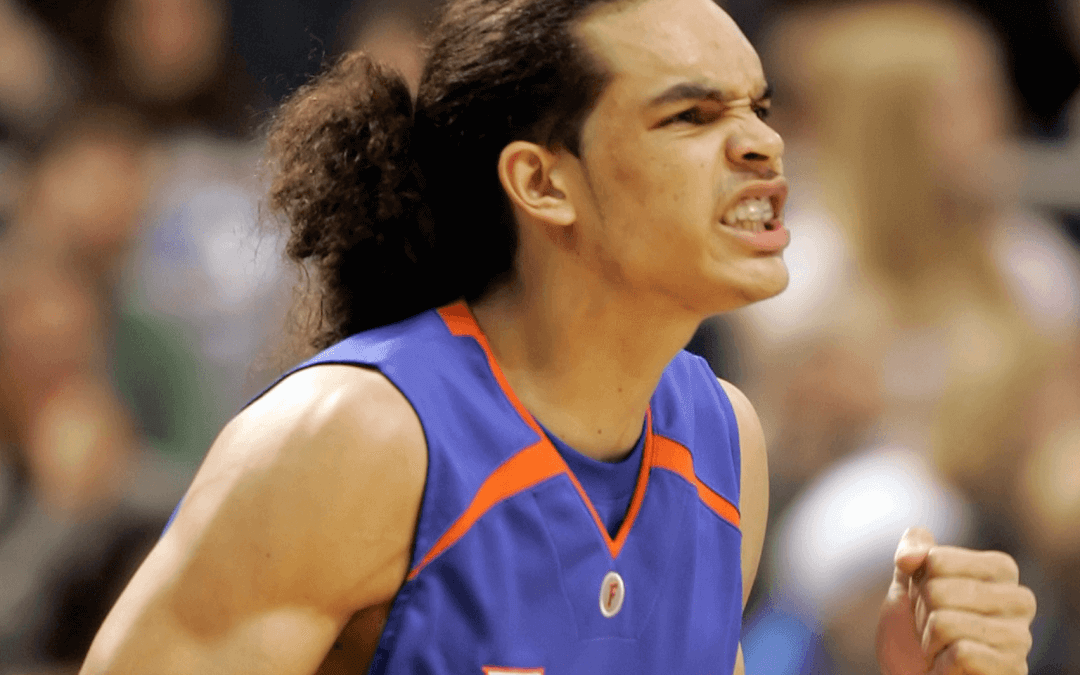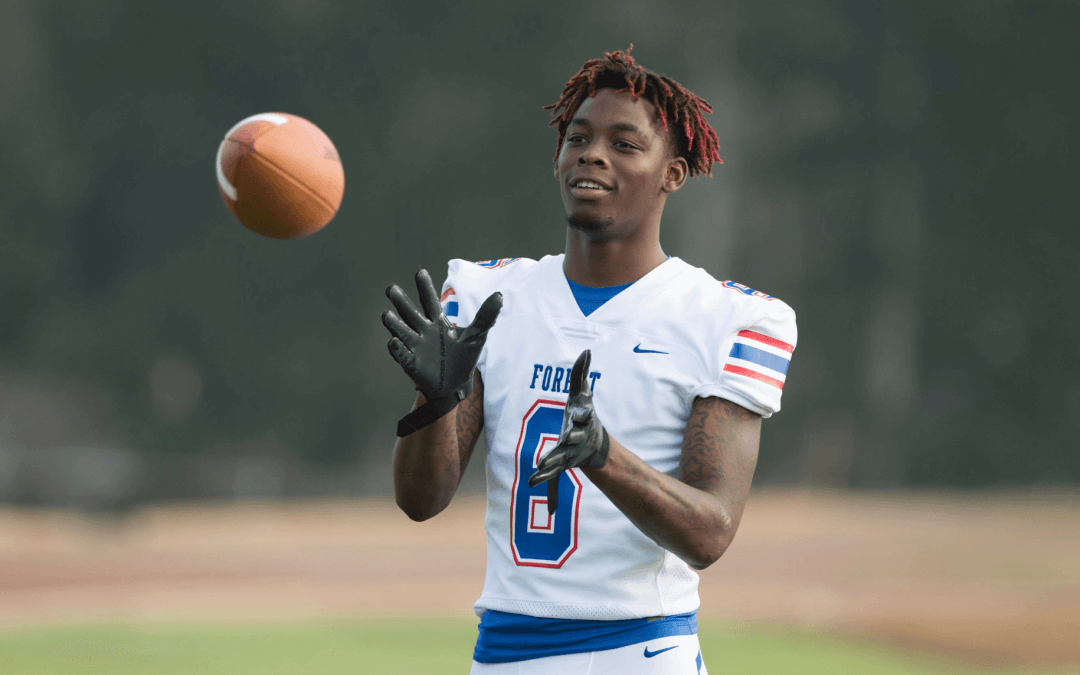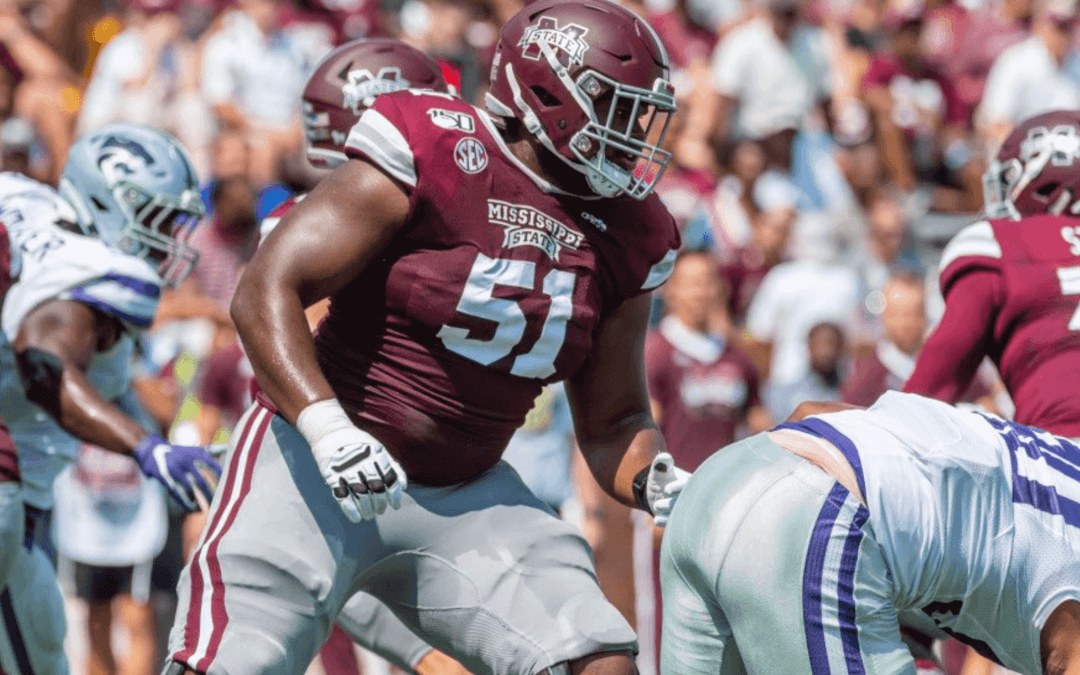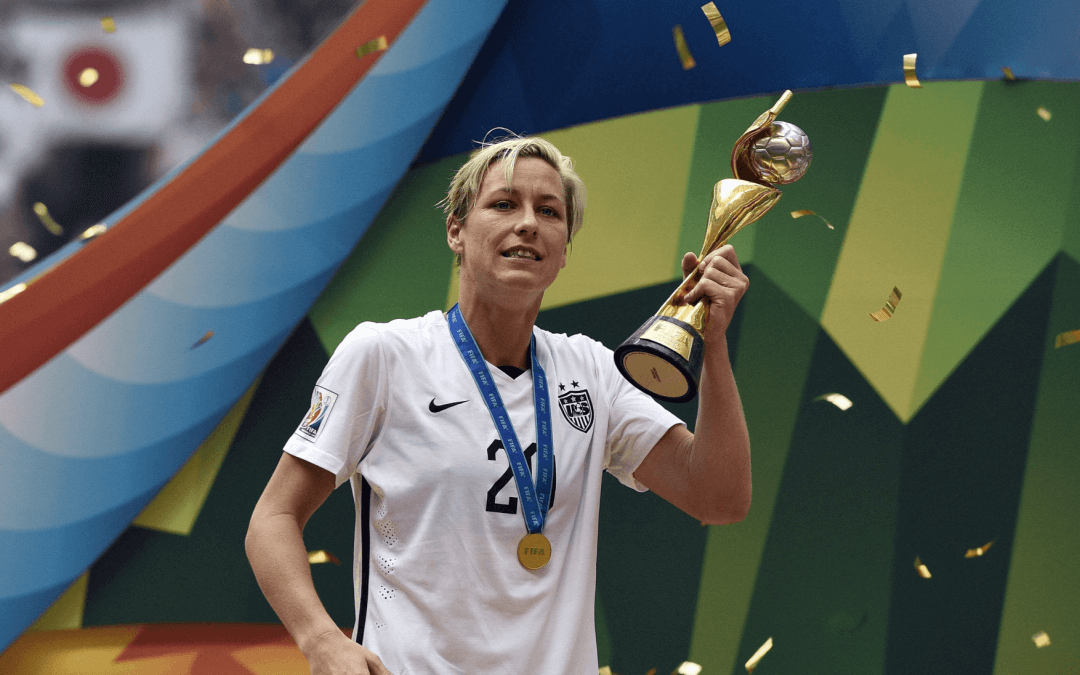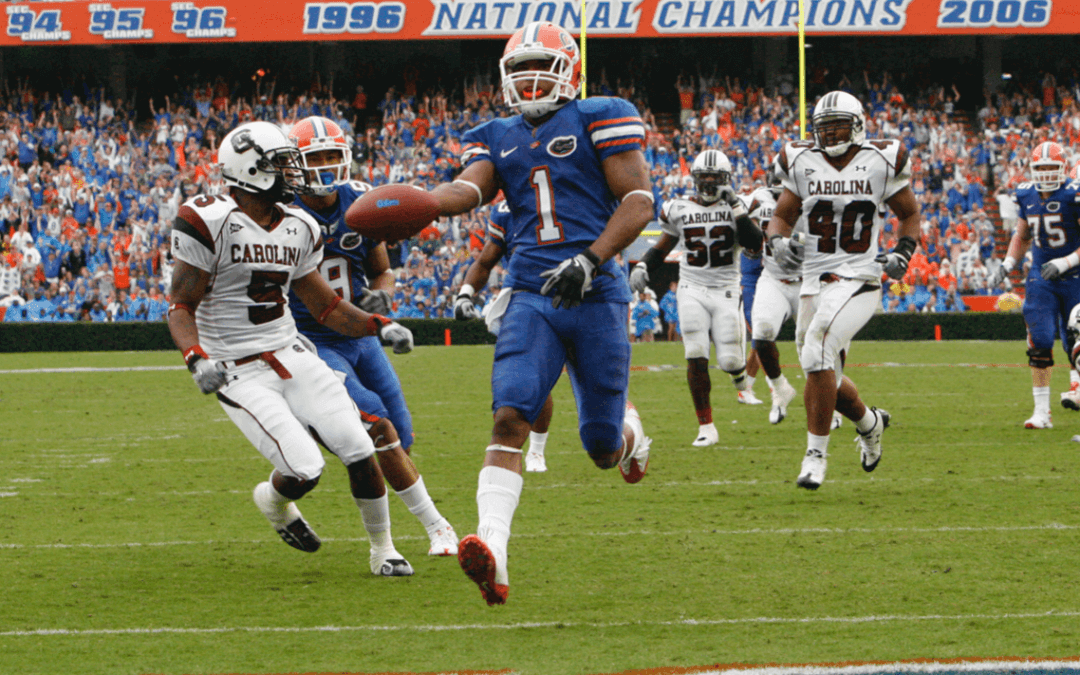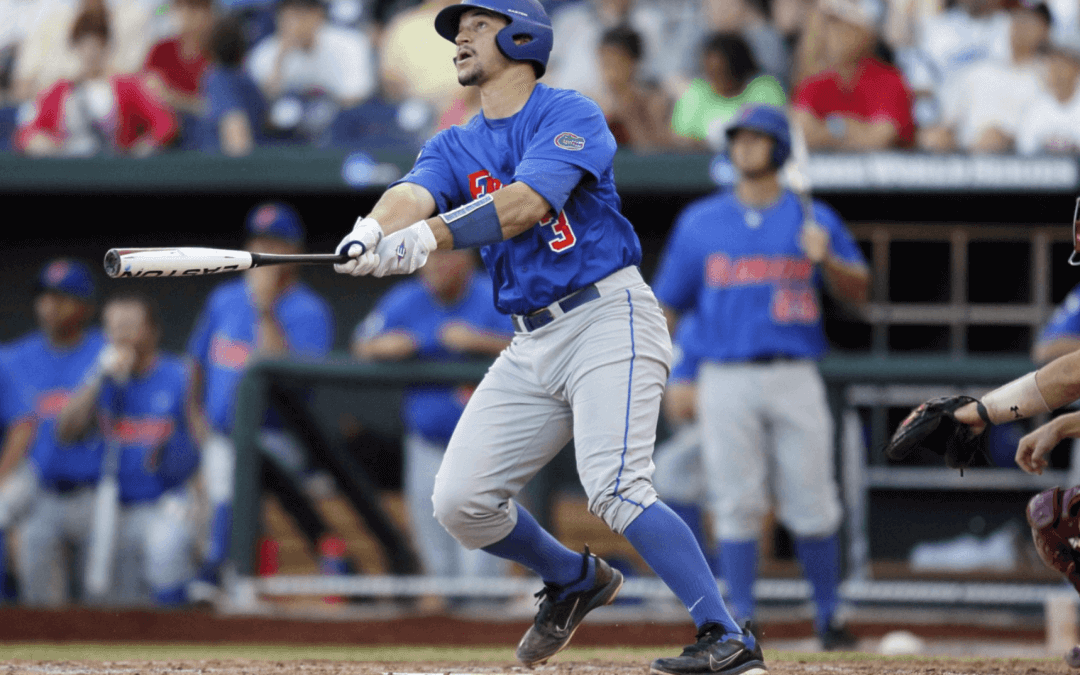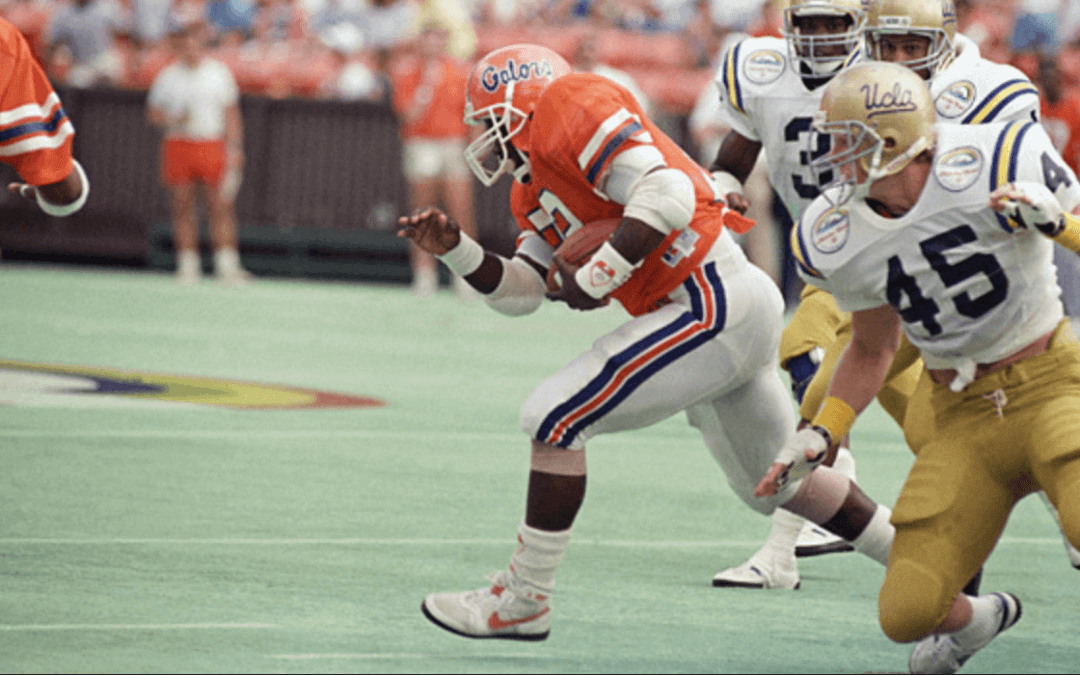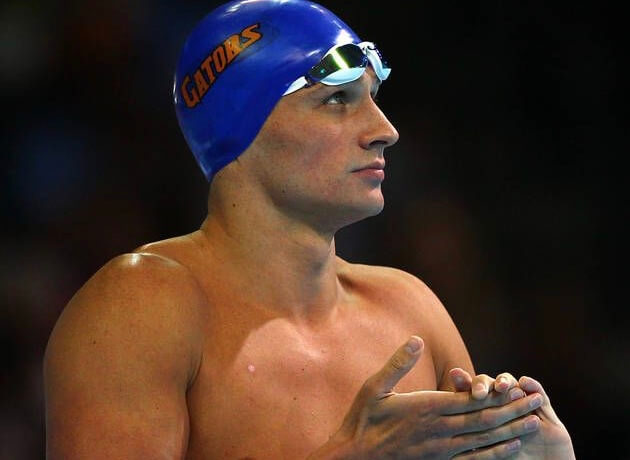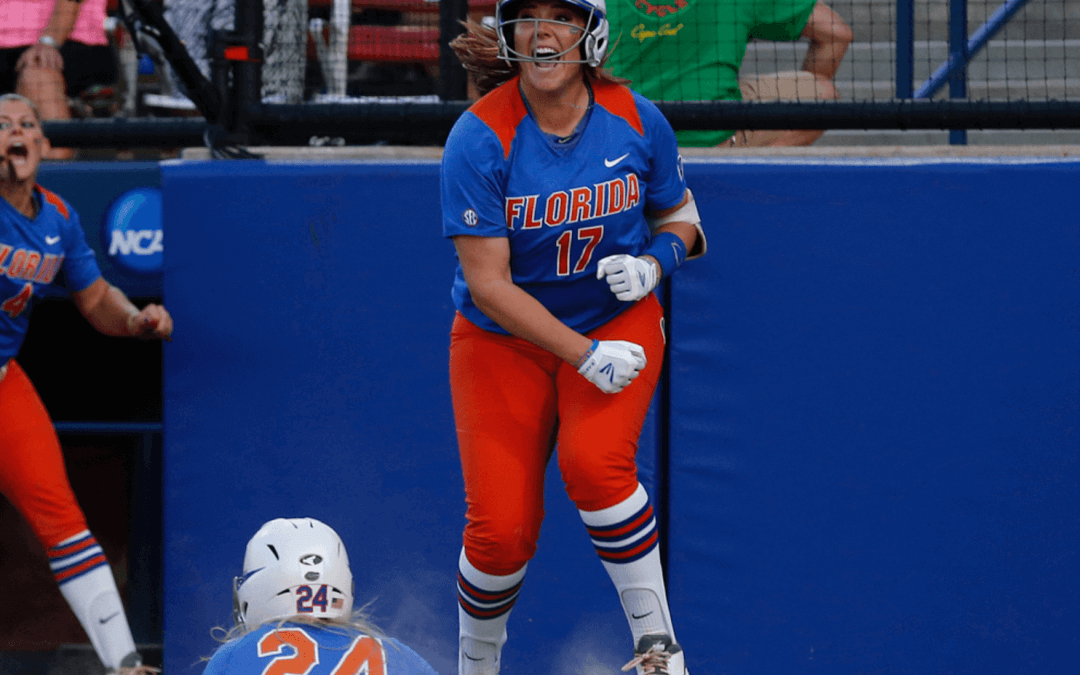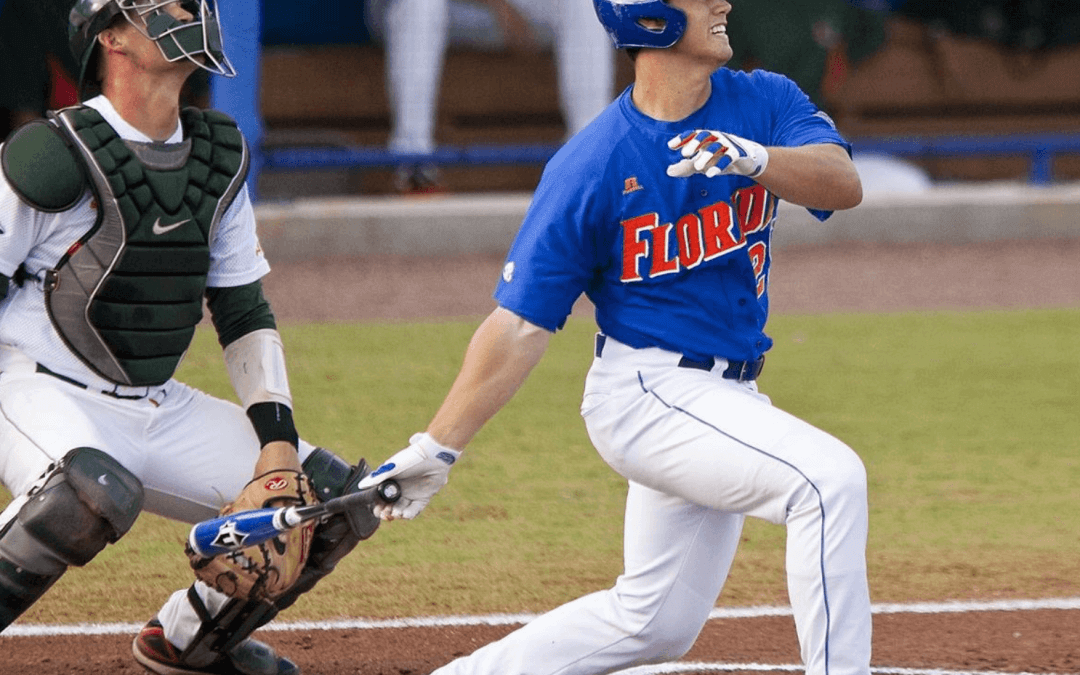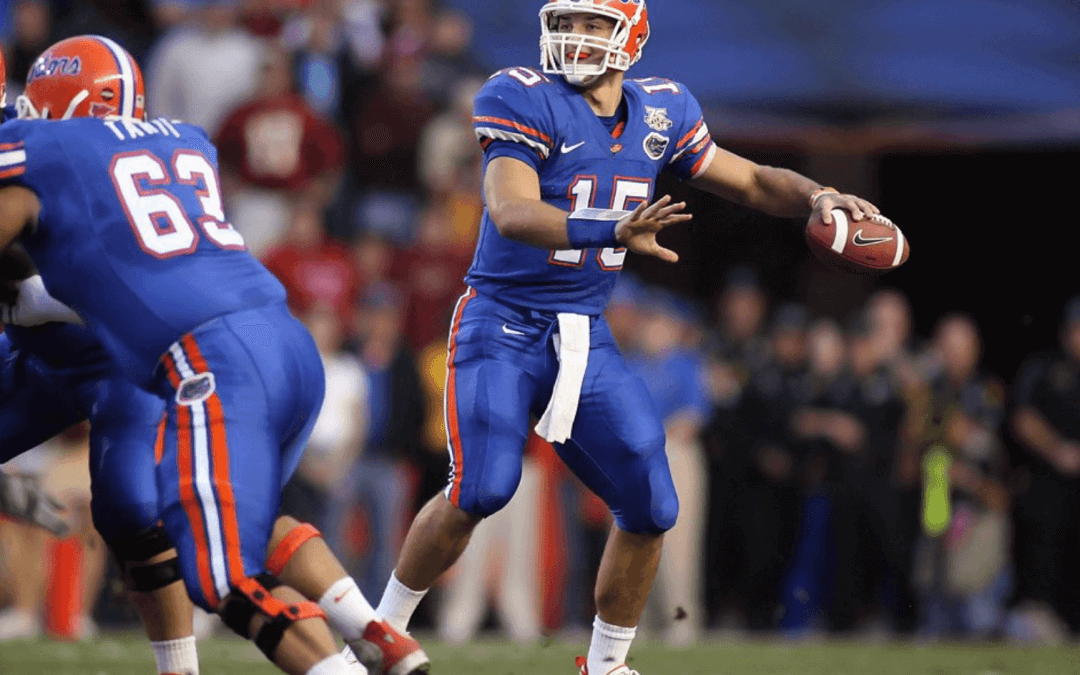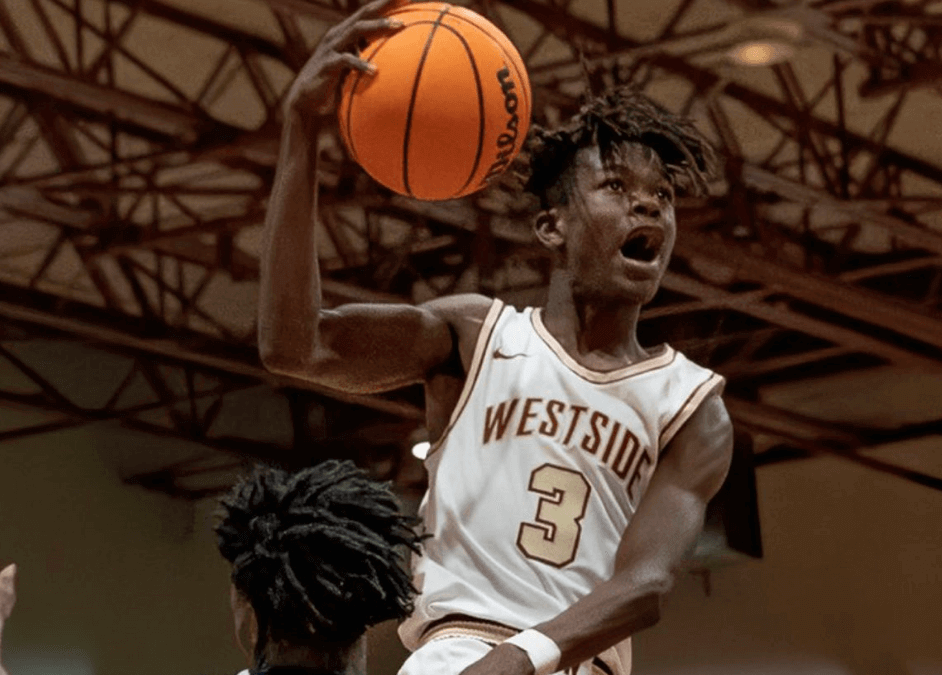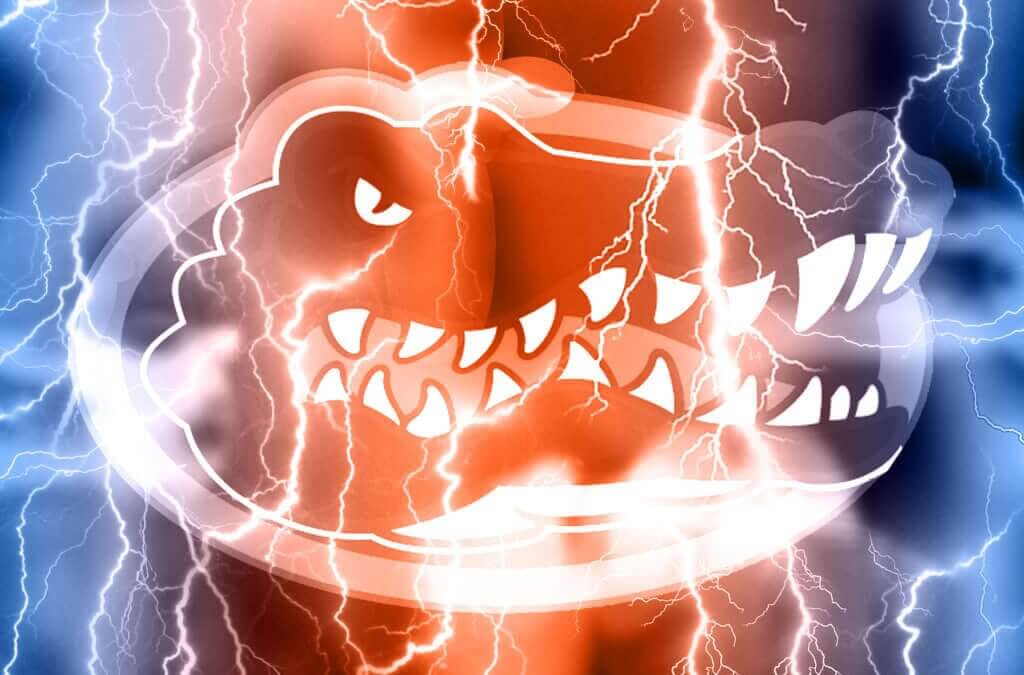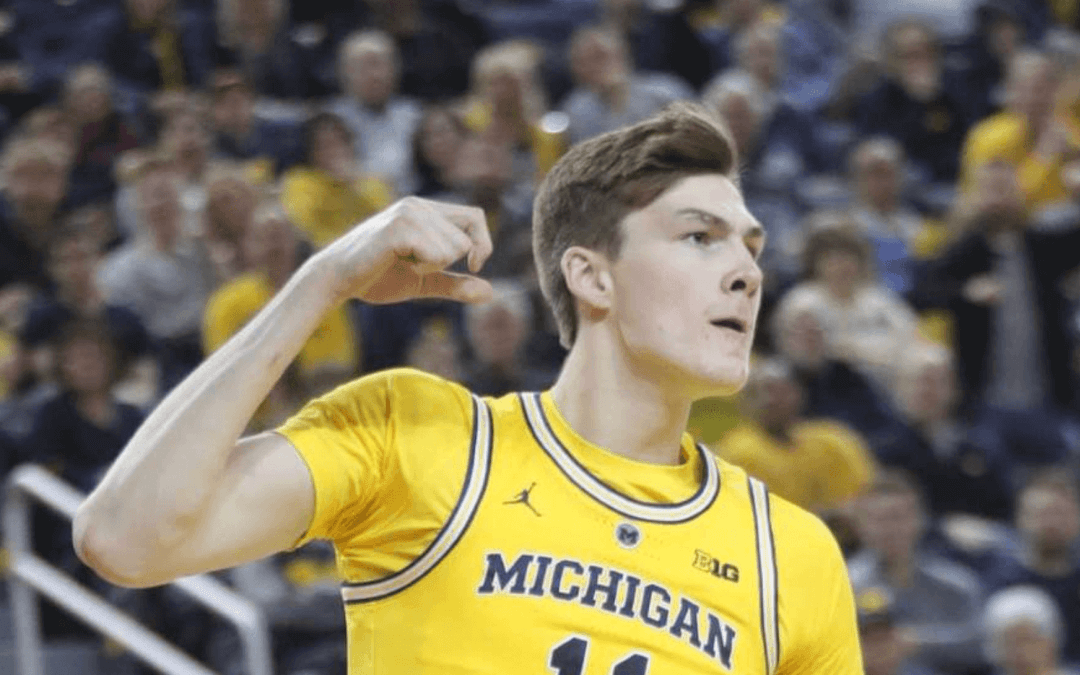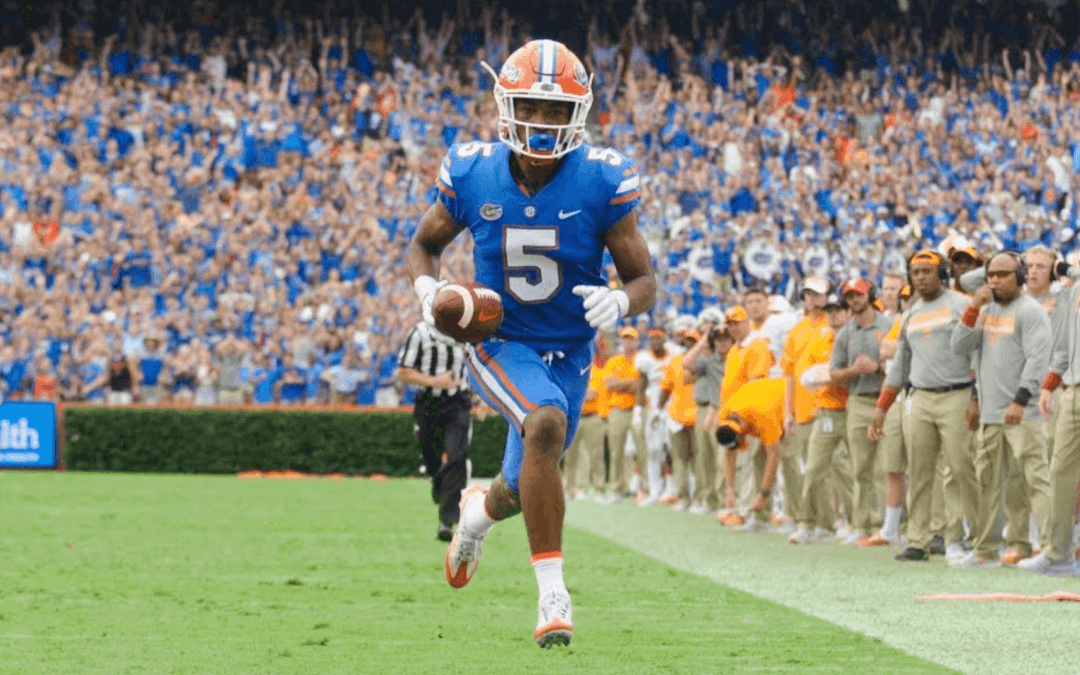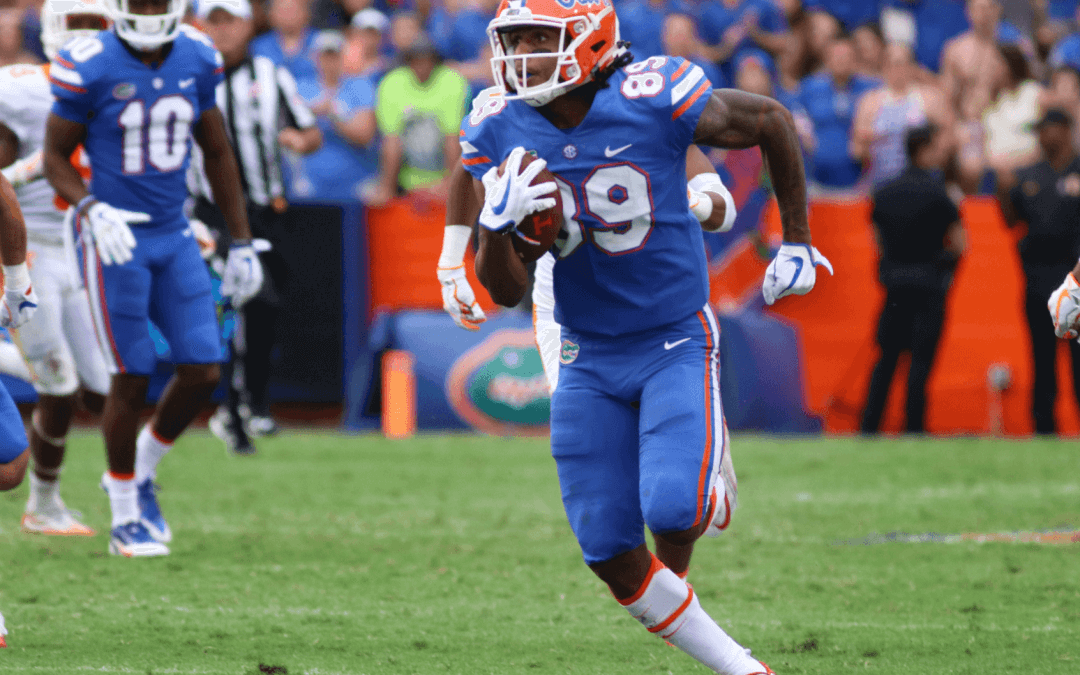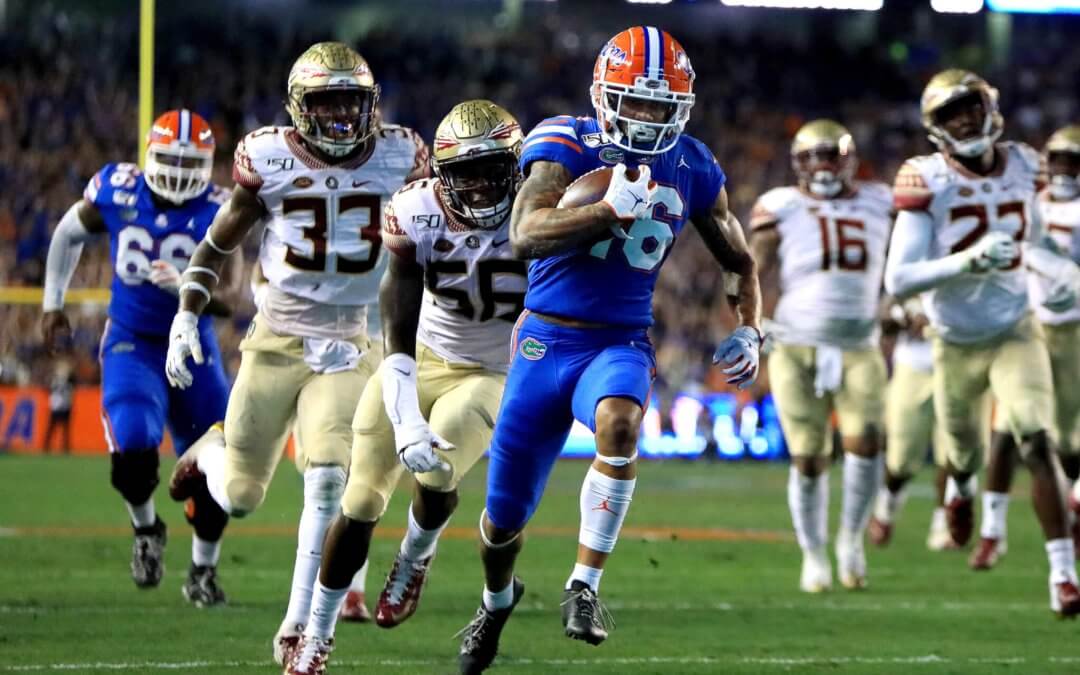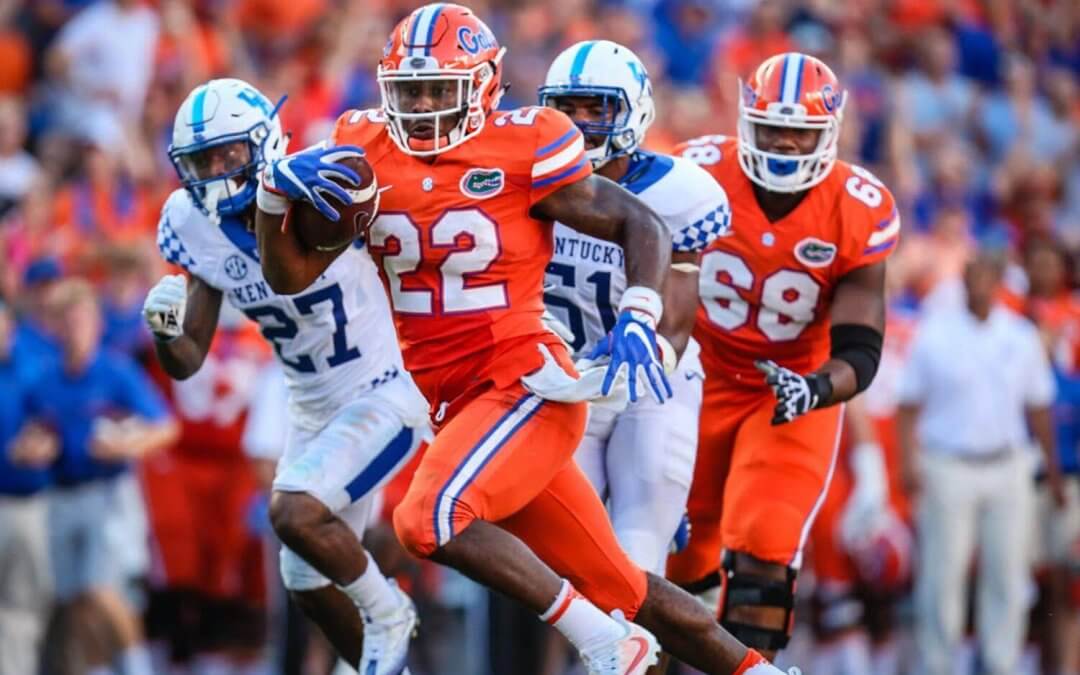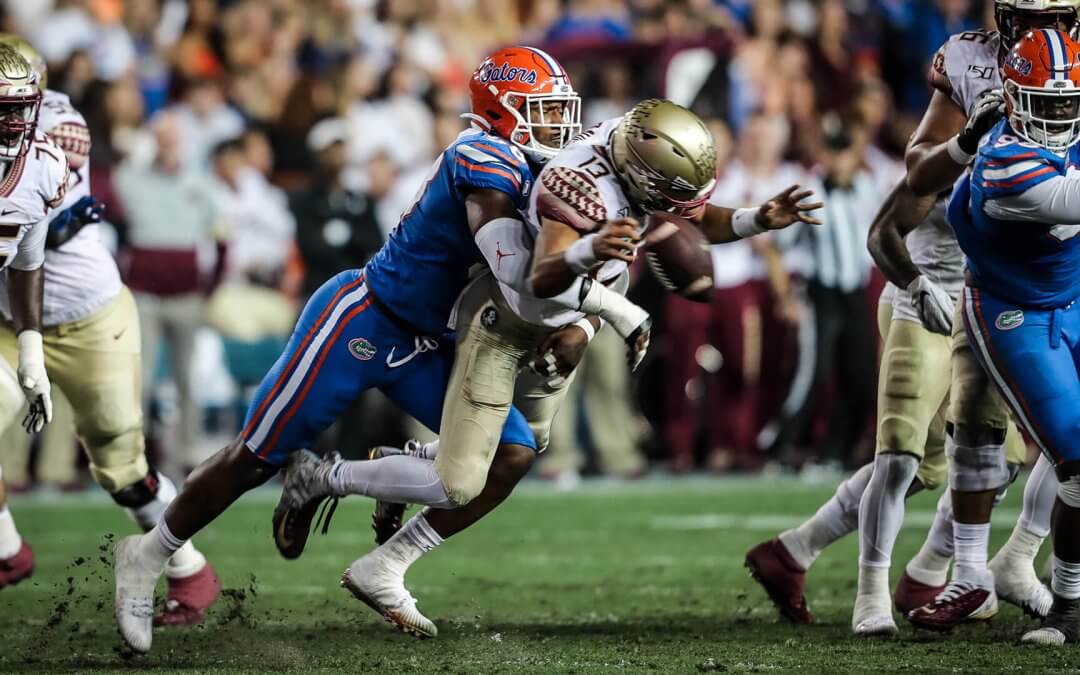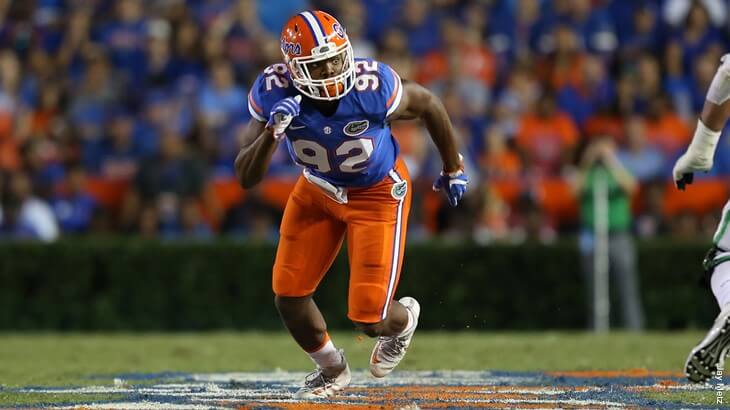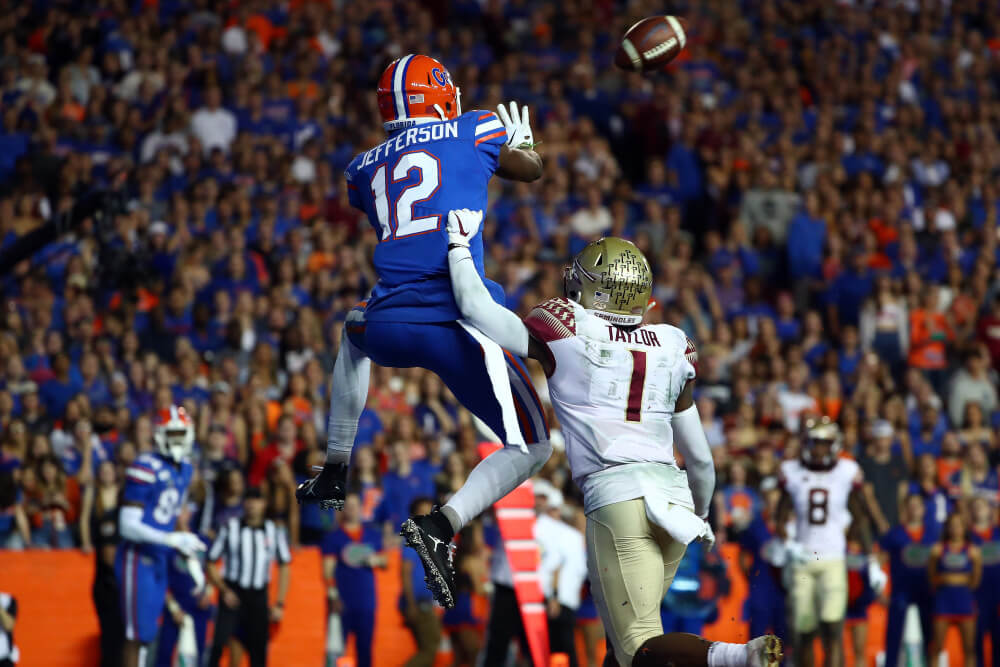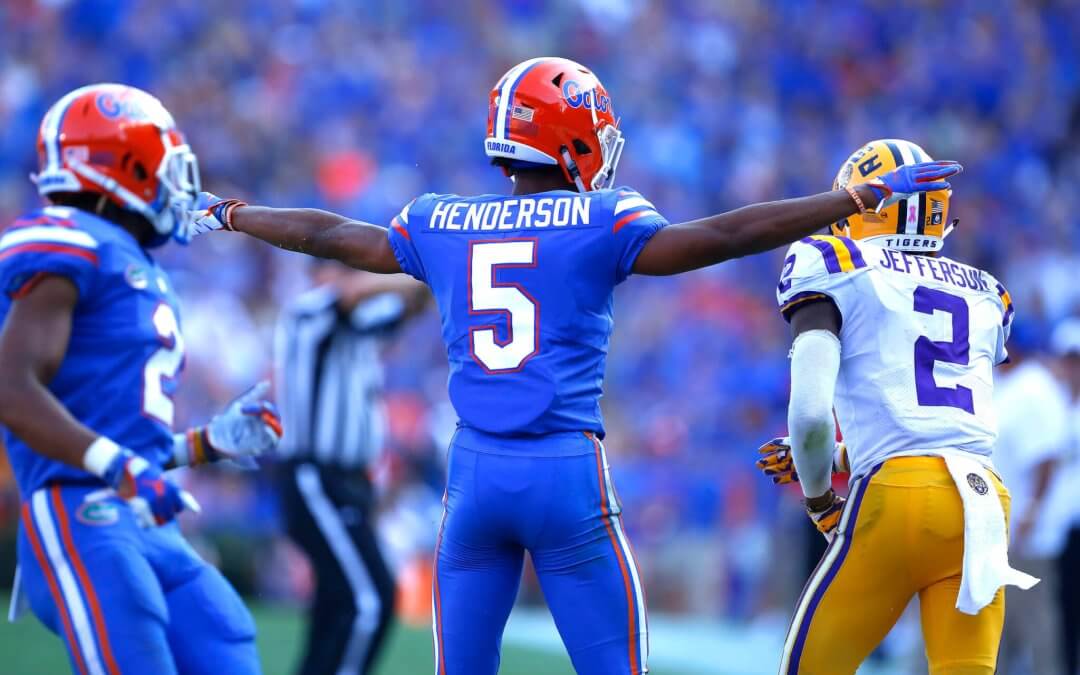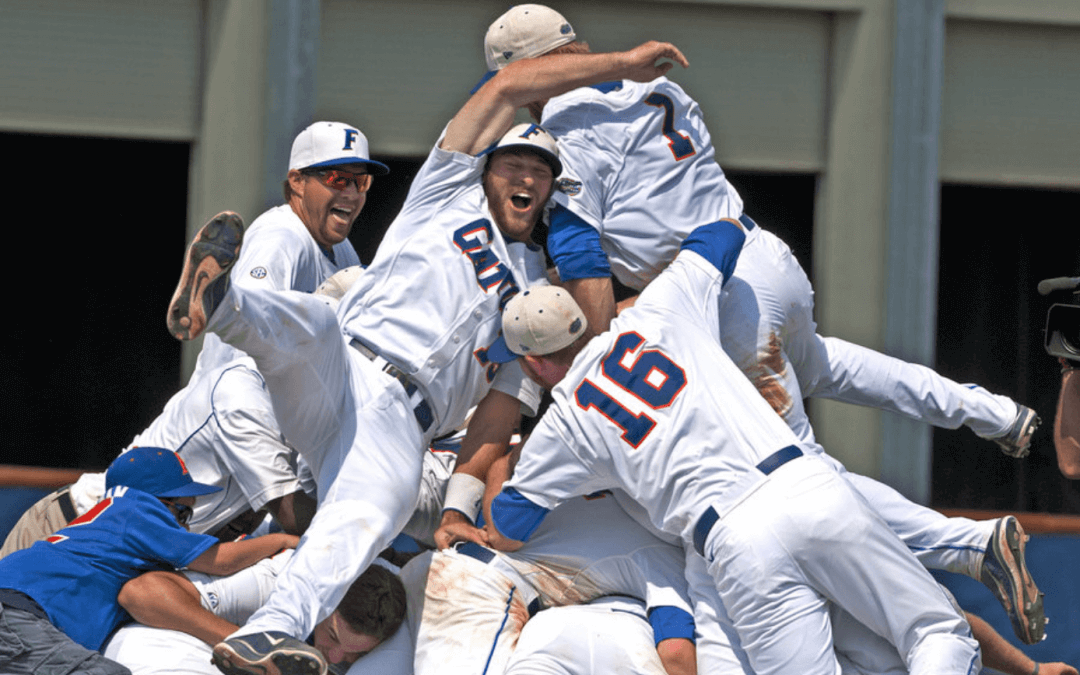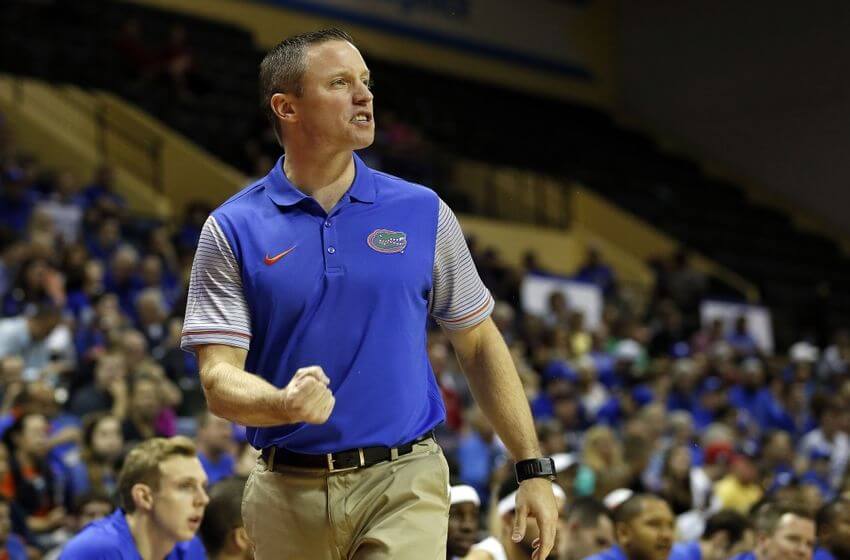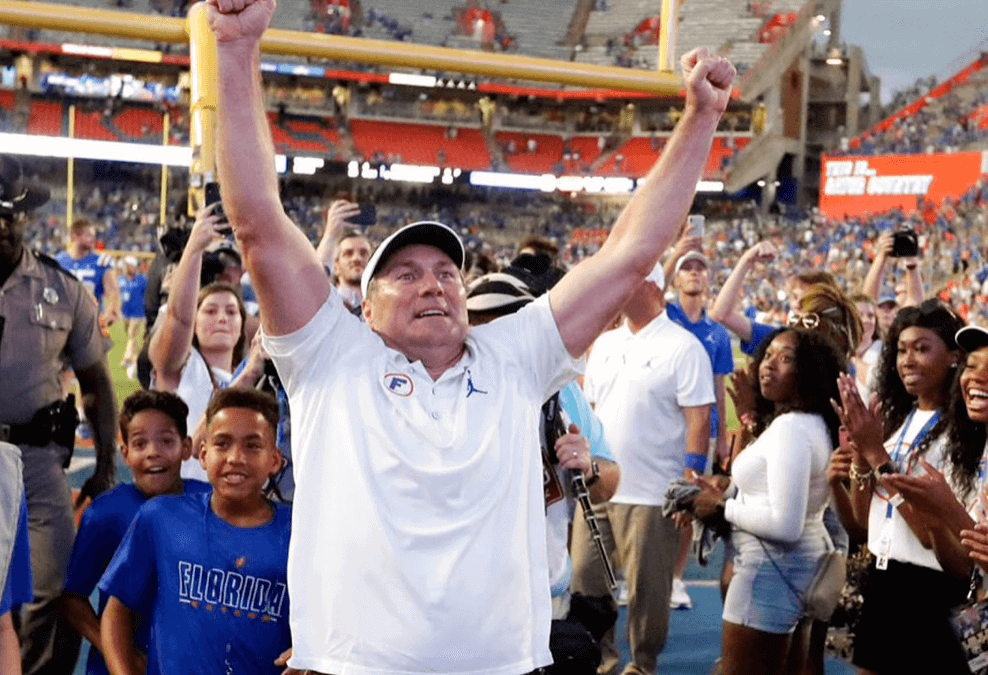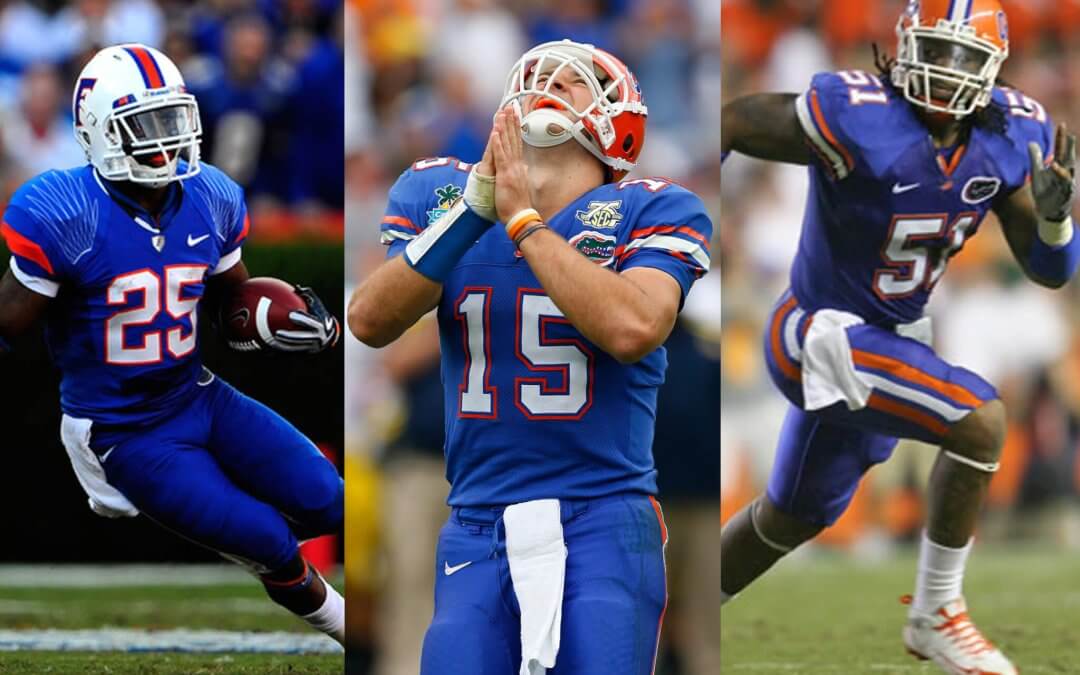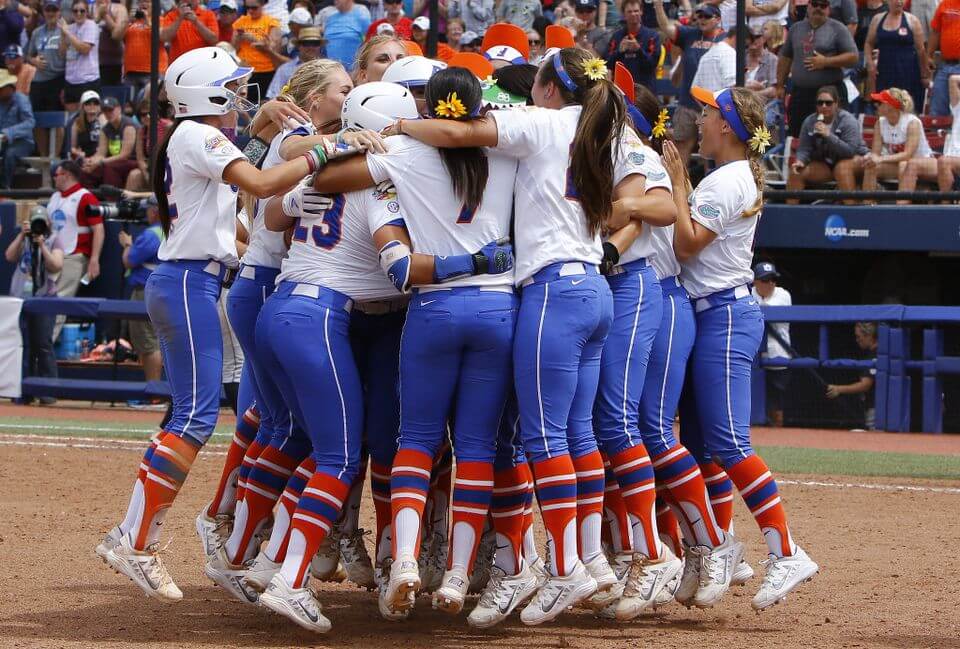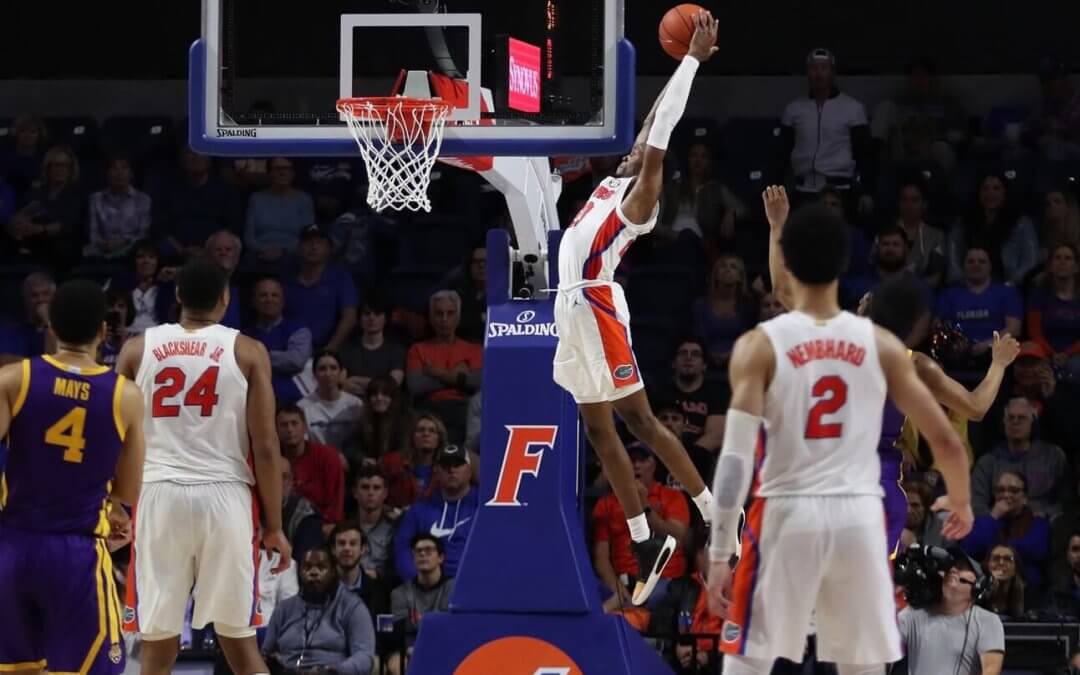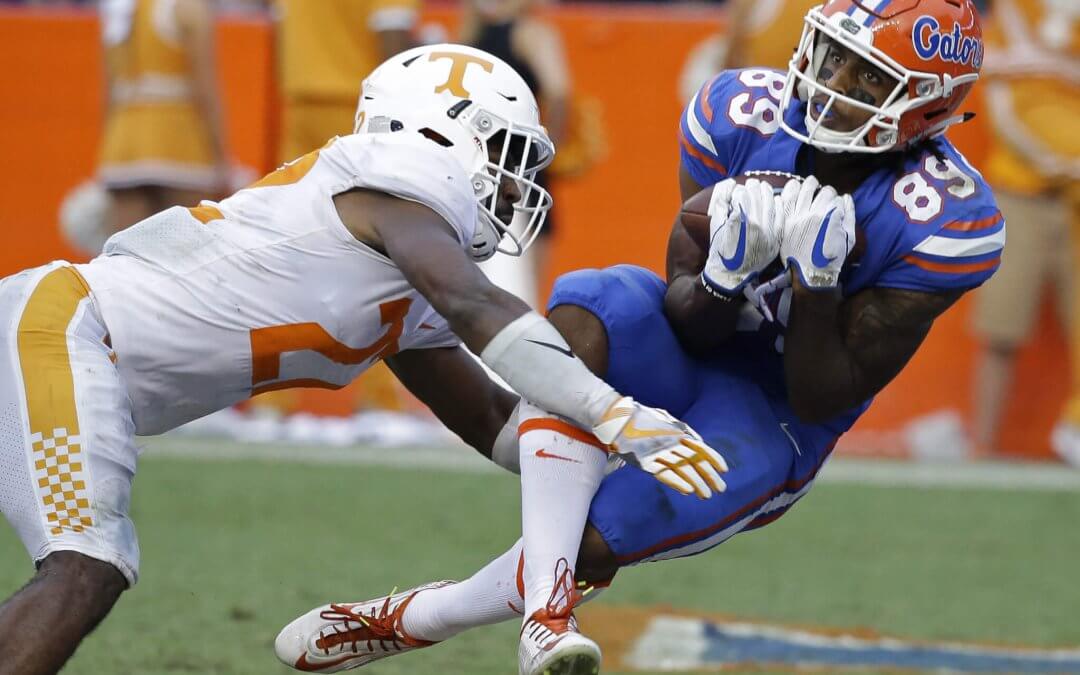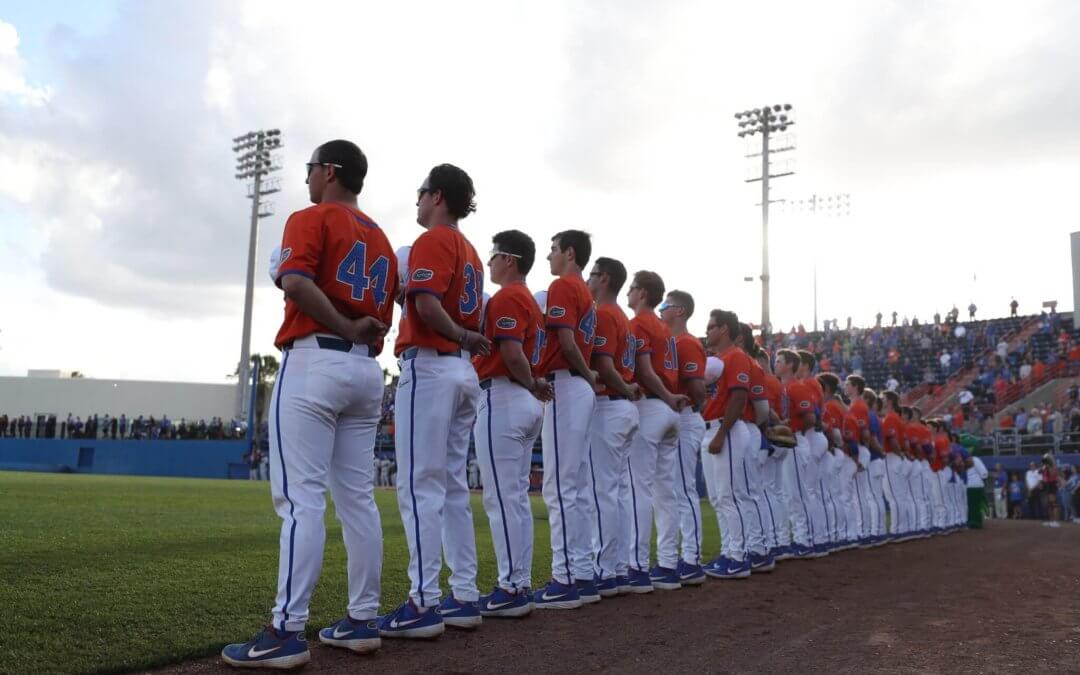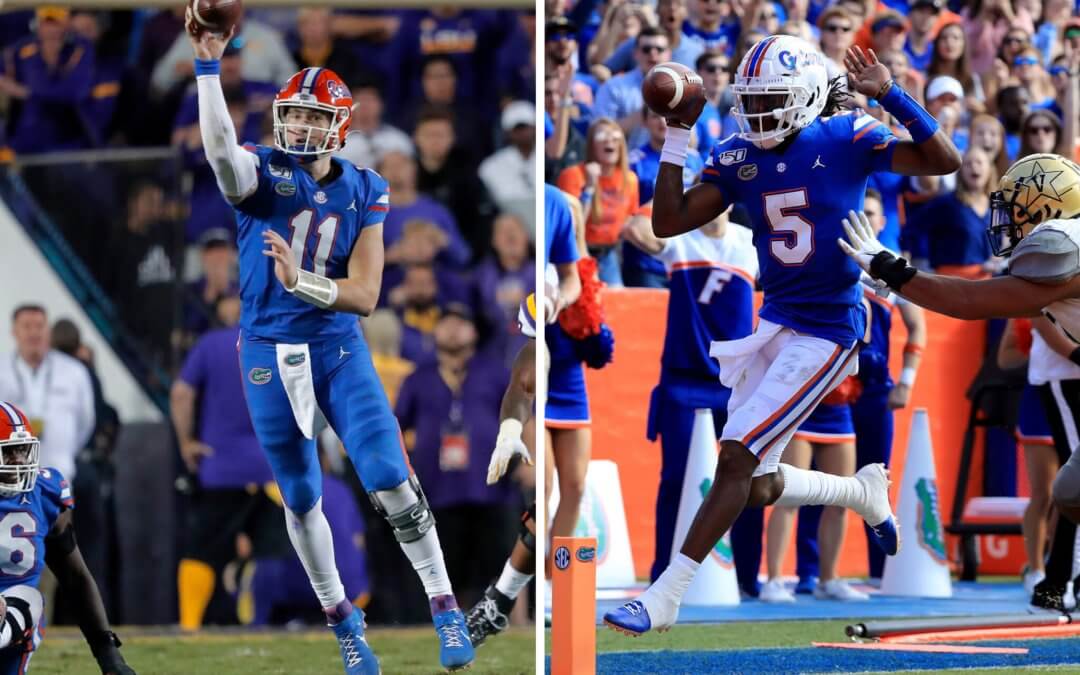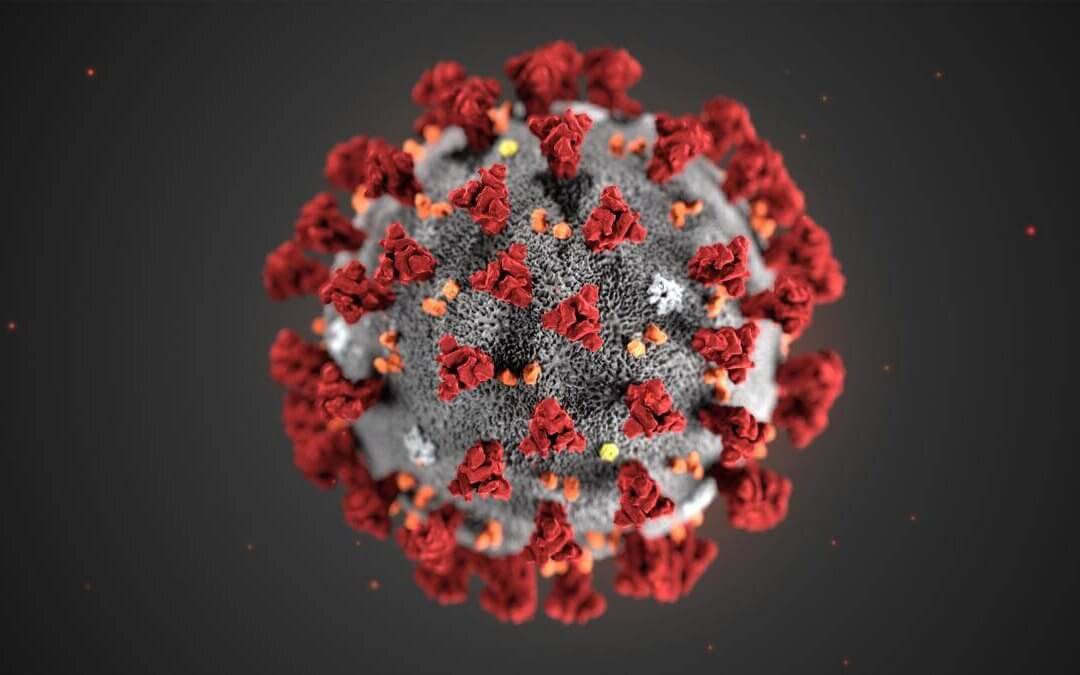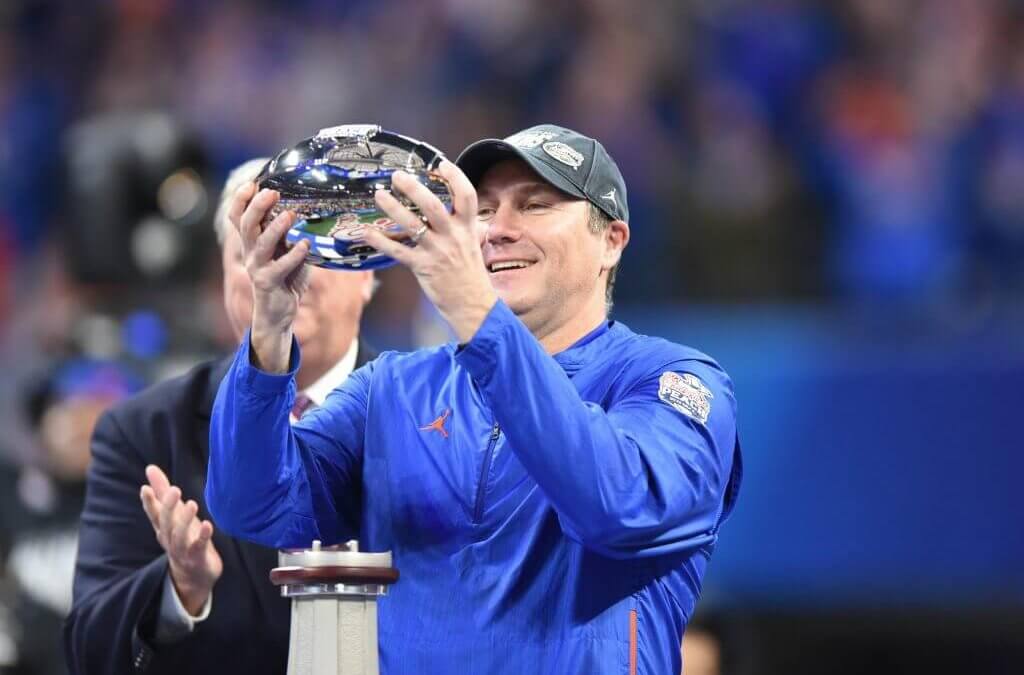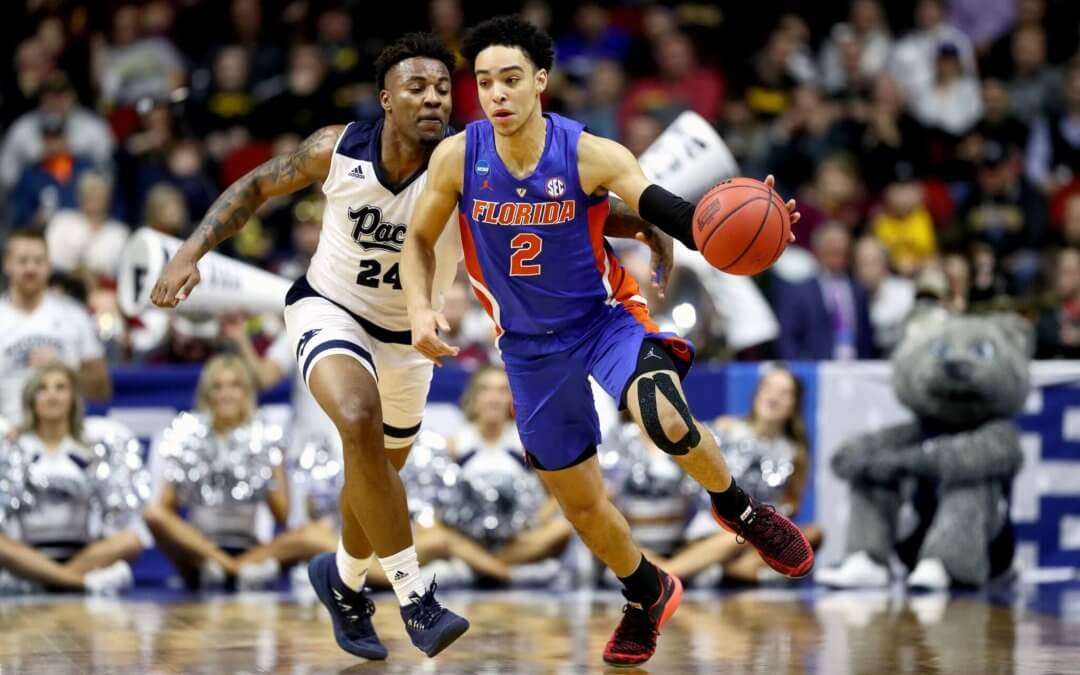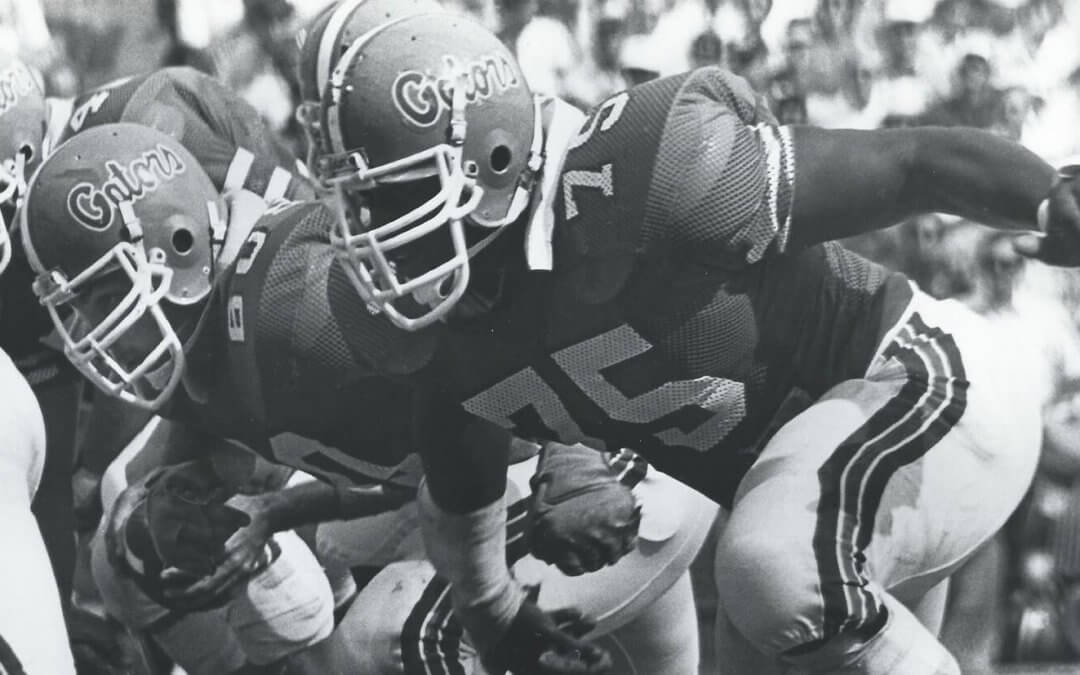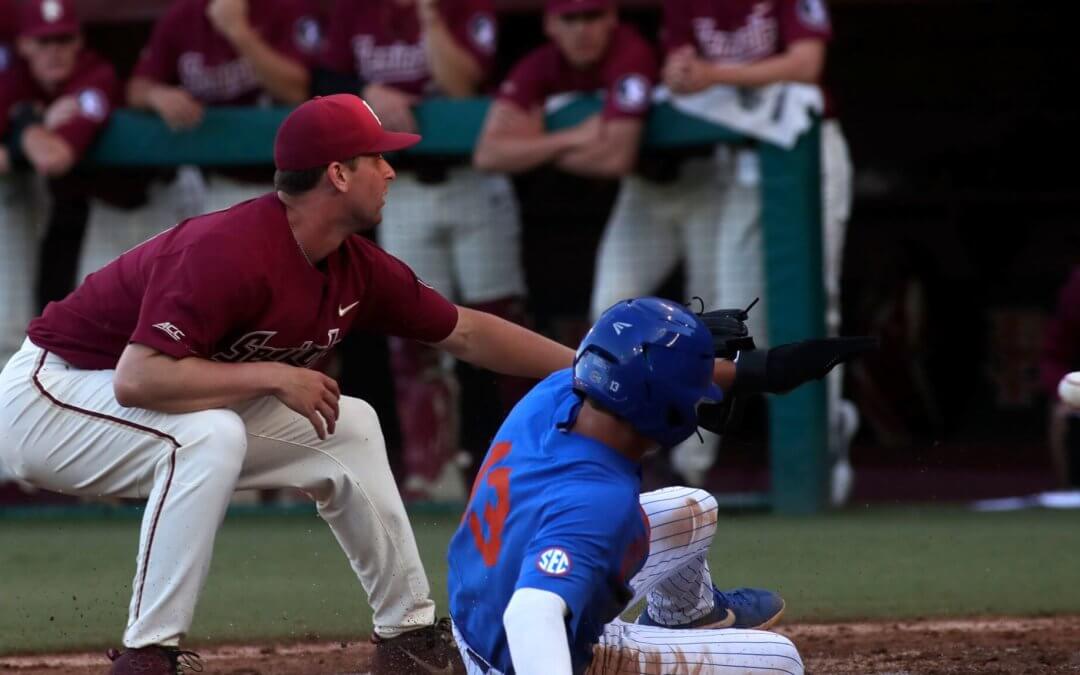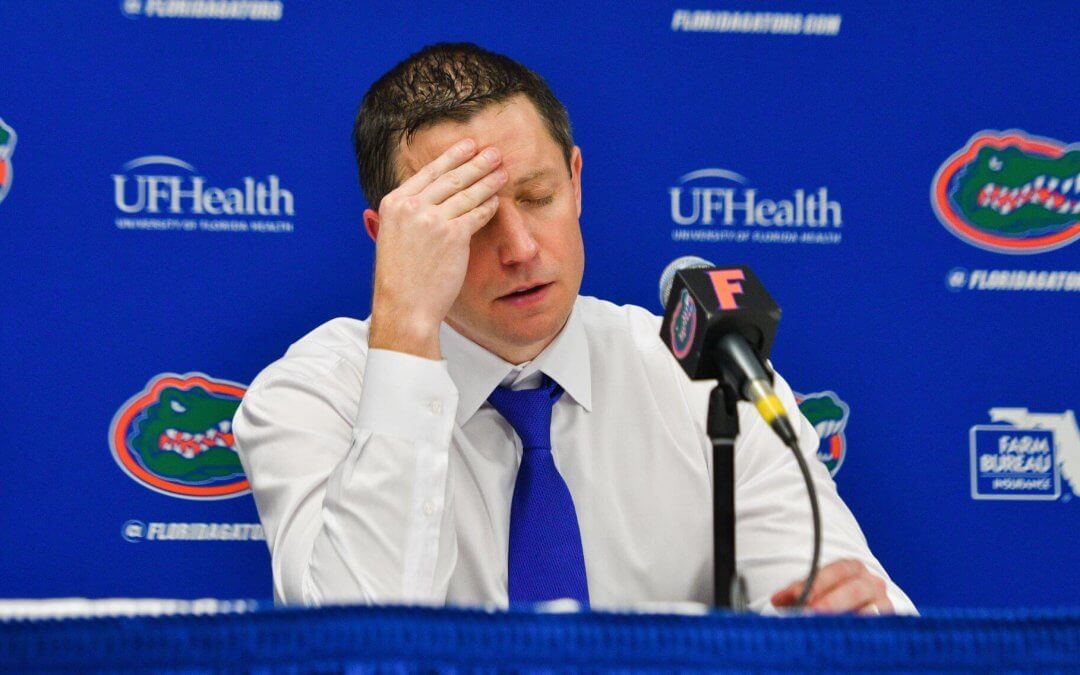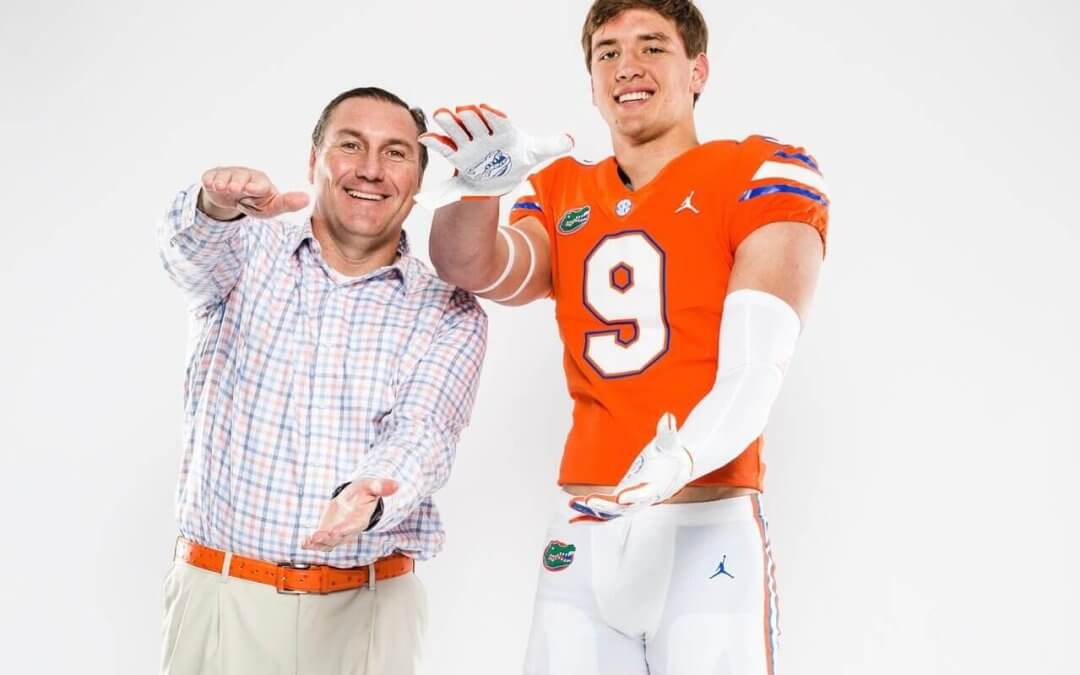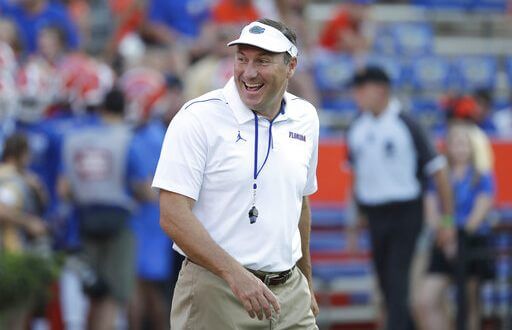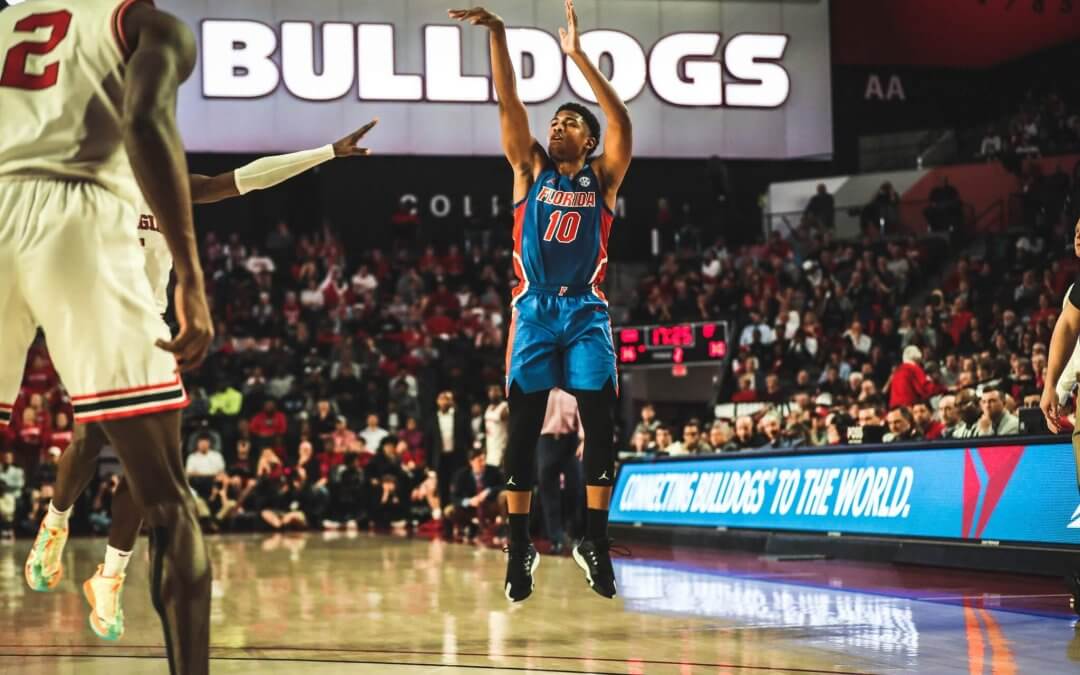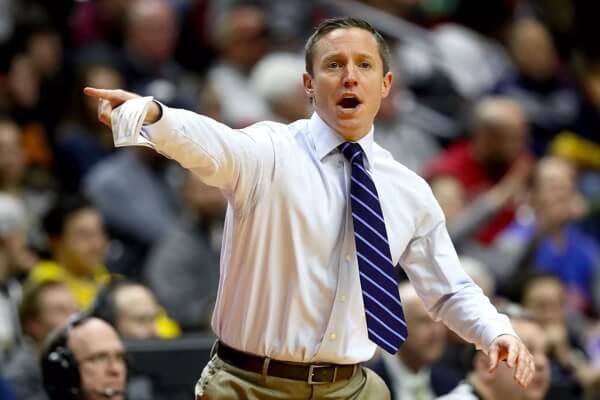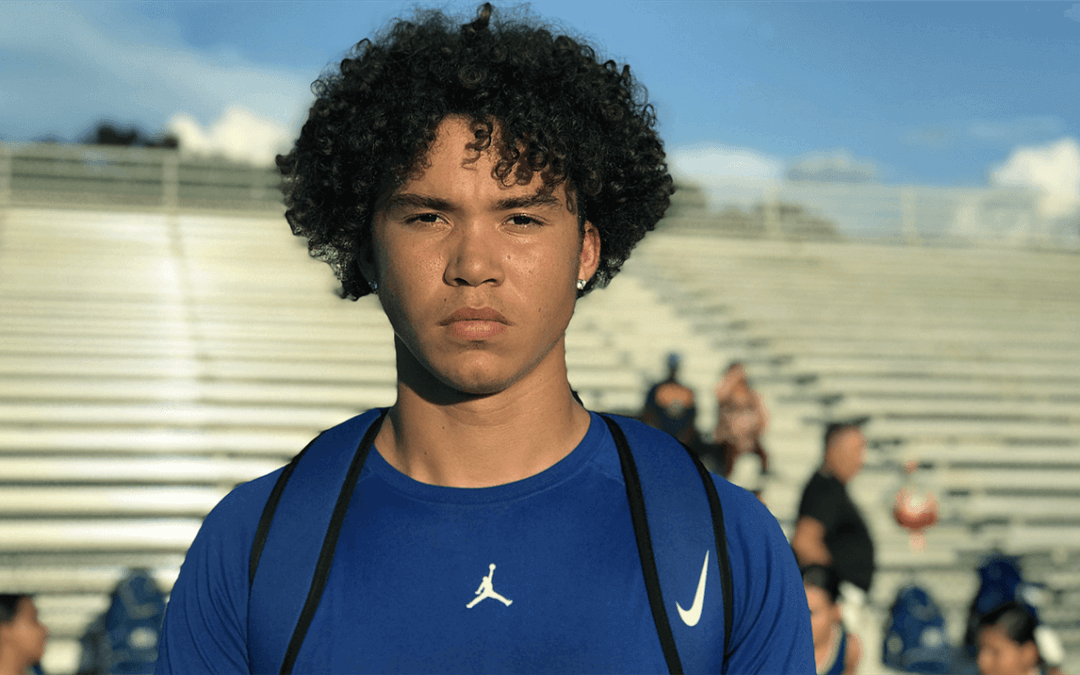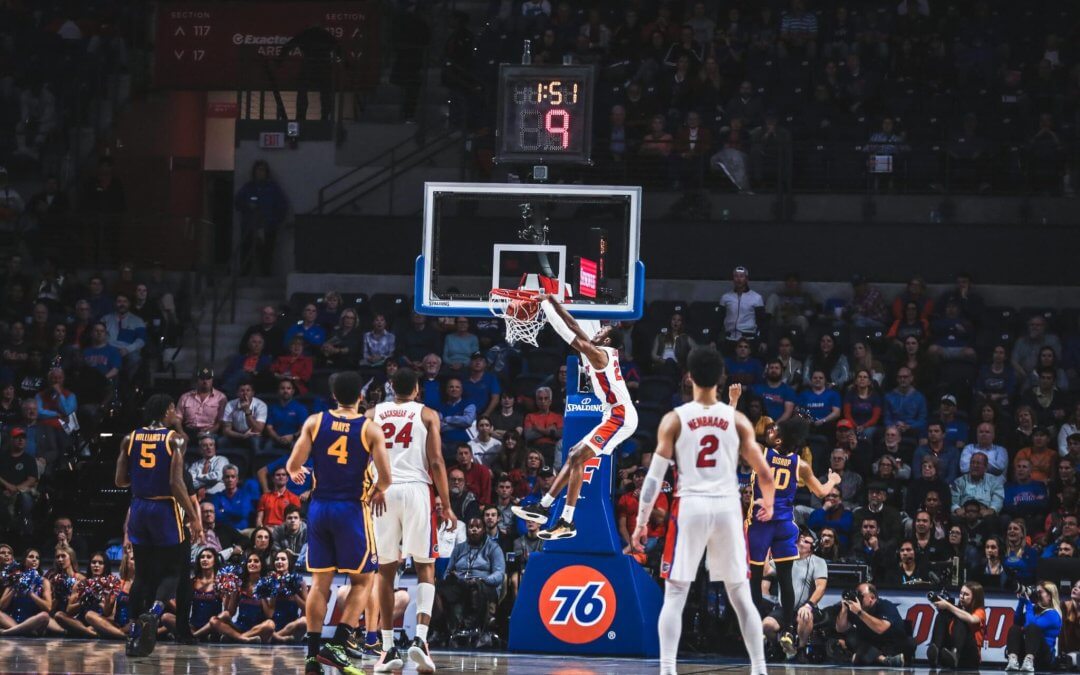Billy Napier is down, but he’s not out. (Photo credit: Matt Stamey, AP)
As the orange and blue sea descended upon Jacksonville on the final weekend of October, it seemed like everything was well in the world of Gator football.
Florida was 5-2 in Year Two of the Billy Napier era. Even with ugly losses to Utah and Kentucky on the Gators’ resume, it felt like something had shifted two weeks earlier against South Carolina. Down 37-27 with just over nine minutes to go, Florida rallied back and pulled off a daring dinnertime robbery in Columbia as the sun descended behind the South Carolina State Fair.
The Gators had figured things out. The defense had come off the mat and garnered not one but two critical stops with the game on the line. The offense was nearly unstoppable. And yes, maybe you could even say God was smiling on the Gators after Eugene Wilson and Ricky Pearsall teamed up for a second iteration of the Immaculate Reception to save the day.
And two weeks later, in Jacksonville, the game started in a way that validated all those feelings. Wilson caught a simple slant from Graham Mertz, sliced his way through the vaunted Georgia defense and scored to put a heavily favored Georgia team in a 7-0 hole.
Uh-oh! Maybe it wasn’t just a 5-2 start because of an easy schedule. Maybe Georgia wasn’t here to hand Florida a gruesome beatdown to send them back to reality. Maybe Florida- which controlled its own destiny to win the SEC East- was here not just to enter the game with that status, but to leave with that status. We’ve got a game here! Florida is beating Georgia! This could be the real deal.
Fast forward 30 days, and the entire cosmos flipped 180 degrees.
Florida lost that game to Georgia, 43-20, and didn’t win again in 2023. 5-2 was expected to turn into 5-3 with the way Georgia had looked for the past three seasons, so the rest of that day in Jacksonville playing out that way was more or less to be expected. But what was not expected was a five-game losing streak to turn 5-2 into 5-7. Included in those five losses was: a pair of special teams gaffes that paved the way for a defeat to 4-8 Arkansas, the single worst defensive performance in school history in a 52-35 loss to LSU, a 4th and 17 conversion by Missouri to steal that game away, and a blown 12-0 lead against an FSU team that clearly got the worse end of the deal in a battle of the backups.
And that was just the beginning of the damage. The carnage rolled itself out in phases over the ensuing days and weeks. Top recruits decommitted, Florida’s best player in Trevor Etienne exited stage left, and now Florida’s staff is left to try to cobble together some positive momentum- anything, really- to not only salvage this 2024 class, but prove to the 2025 class and beyond that there’s something of value to be had by choosing to play football for the Florida Gators.
So today, I thought it would be worth examining a few questions. How did we get here? Are things really as bad as they seem? And where do the Florida Gators go from here?
How did the Florida Gators get here?
By far the longest answer to those three questions comes with the first one. Because to be blunt, a lot of people are responsible for a lot of different problems.
On our show, the In All Kinds Of Weather Forecast, I often like to do a little segment called “blame pie.” Which is exactly what it sounds like: when something goes horribly wrong, I assign percentages of blame that each person or entity deserves for said thing going horribly wrong. For example- and this is purely a hypothetical- if Graham Mertz is hurried and throws a wounded duck into triple coverage, I might say that it’s 20% his offensive line’s fault for not blocking and forcing the rushed decision, 5% his receiver’s fault for not getting open, another 5% on his coaches for a lazy play design, and 70% Mertz’s fault for not knowing better and not just eating it or throwing it out of bounds. Or something like that.
So, for all that’s gone wrong to this point in time with the Florida Gators football program, on this day in late December 2023, who is to blame for the Gators’ struggles to what extent?
The problems begun with Dan Mullen
The blame has to start with Dan Mullen. I know, I know, he’s been gone for two years now, so go ahead and get your groans out of the way. I know it’s always fashionable to harangue the last guy who got fired and absolve the current guy of blame, because it’s a classic case of psychology called “How Do I Make Myself Feel Better About This Current Situation?”. And trust me, anybody who’s read this far: Billy Napier is not without blame. I promise, we’ll get to that in a minute.
But let’s start with Mullen. Anybody who’s read In All Kinds Of Weather for any period of time knows the in-depth exposé I did on just how bad things were toward the end of his tenure. That piece is still very much alive and well, so feel free to read it again for all the gory details.
The short end of it is that I stand behind every word I wrote in the summer of 2023. While I do think I’ve learned a valuable lesson in what kind of content you’re going to get from people you’re friendly enough with that you more or less know the answers to your questions before you ask them, there were enough people who were involved in the program to speak out that it’s safe to take their accounts as Gospel. That many former players who weren’t really friends with each other saying the same thing makes it a pretty black and white deal. Dan Mullen torpedoed the Florida culture- and recruiting. Maybe not intentionally, maybe he was just being lazy and wanted out, but that was the result of the end of his tenure.
Mullen’s failures on the recruiting trail and in the locker room are going to stand the test of time as the first domino to fall. The catalyst, the first shot to be fired, the first link of the chain reaction, whatever metaphor you want to use, the apathy of Dan Mullen is absolutely a piece of this blame pie. He left Billy Napier with a roster that was, aside from having a top five NFL Draft pick at quarterback, largely devoid of talent, a bad situation on the recruiting trail to boot, and a program that was, by every other objective measure, behind the eight ball. No coach could conceivably have picked up the pieces that Mullen left at Florida and turned it into a national championship contender overnight. Or even in two years.
This, though, is the end of the line for the “It’s Mullen’s fault!” rhetoric. Yes, there is indeed a slice of the blame pie with his name written all over it, but it’s just that: a slice. It’s not half of the pie, it’s not a third, and it’s not even a quarter.
Billy Napier compounded Mullen’s problems by adding his own to the mix
The bulk of the blame for Florida going 6-6 in 2022 and 5-7 in 2023 lies with Billy Napier.
For starters, it was Billy Napier who decided that Billy Napier would serve as the offensive coordinator, that a quality control assistant would serve as a special teams coach, and two offensive line coaches were warranted on his inaugural staff in 2022. The year pretty much played out how we all thought: various roster deficiencies and in-game struggles that resulted from a fairly inexperienced coaching staff plagued the Gators, and yet at the same, enough heart and fight was on display for Florida to slog its way to 6-4. Billy Napier had made some questionable decisions up to that point, although it seemed like things were on schedule in year one of the rebuild.
But it was in that sixth and final win of the 2022 season where the first true fork in the road actually presented itself for Billy Napier. To casual fans, and to those who dislike the idea of nitpicking negatives in a lopsided win, the problem went unnoticed. However, observant fans got their first clue that Napier needed to shift the way things were done in a 38-6 blowout win over South Carolina.
On this day, the Florida Gators displayed one of the most horrifying clinics of what not to do on special teams in program history. In the span of just 60 minutes, Xzavier Henderson fumbled a punt, the entire unit took a nap and watched punter Kai Kroger lob a 48 yard touchdown… after Napier took a timeout, supposedly to alert his team to the possibility of precisely that, Adam Mihalek had one field goal attempt blocked, couldn’t even get his next attempt off the ground as holder Jeremy Crawshaw muffed the snap, Florida’s punt team let Josh Vann get loose for a 37 yard return, and for a grand finale, two different Gators slung Vann to the ground by different parts of his facemask to tack on another 15 yards to his return.
Never mind the fact that Florida won that game 38-6. Billy Napier, always one to evaluate everything, should have reviewed that game tape and gotten a strange feeling of dissatisfaction. Something to the effect of, “Hey. This isn’t good. This needs to be addressed.” Even if Napier wasn’t going to fire Chris Couch- who, remember, is basically a glorified intern- he should have at the very least been more hands-on with the unit to ensure that it would not continue to cost Florida moving forward.
Well, he didn’t. And what happened the very next week was all too predictable: Jason Marshall sprinted backwards to receive a punt in the shadow of his own goal line, but muffed it and Vanderbilt recovered for a touchdown. Also in that game, Mihalek missed an extra point. Handing Vanderbilt a free seven points and being unable to grab that free point for themselves proved to make all the difference in a 31-24 Vanderbilt win.
Savvy fans noticed the problem against South Carolina. By the time Richardson’s desperation heave sailed out of the end zone with zeroes on the clock in Nashville to seal Florida’s second loss to Vandy in a third of a century, it was beyond obvious to anyone with even working knowledge of football that Napier needed to make a change. There was no more debating the point, his experiment of having an intern run the special teams was over. He needed to hire a real special teams coach for 2023.
Which he did not do. Whether he thought that hiring a full-time special teams coach was a waste of a staff spot because it still wasn’t as important as having two offensive line coaches, or whether he thought Chris Couch would oversee drastic improvements in the special teams in 2023, I don’t know.
But either way, by failing to make a change in an area that had consistently let his program down, the fault for failures was thereby transferred from Couch to Napier himself. Much in the same way that the fault for Florida’s defensive ineptitude in 2020 and 2021 shifted from Todd Grantham to Dan Mullen because Mullen refused to fire Grantham, any future special teams screwups would fall on Napier’s shoulders in 2023.
And there was a monsoon of them. Florida allowed four kicks to get blocked in 2023- which only happened to twelve other teams in the FBS. A devastating leaping penalty on a punt against Kentucky by a talented but overzealous freshman could have been pardoned, even as the next play went for a 75 yard touchdown, because it was a hustle play. Far less understandable was when the entire special teams unit sprinted onto the field as the offense was frantically trying to spike the ball to set up a game-winning kick from Trey Smack against Arkansas, which, when pushed five yards back because of the obvious substitution infraction, sailed wide.
But the most incomprehensible special teams blunder of all came in the season opener against Utah, when both Jason Marshall and Eugene Wilson ran onto the field for a punt return play. Both players wear the #3, and you’re only allowed to have one jersey number represented on the field at once. One of the players could have worn a different jersey (Florida has plenty of money in the bank to be able to afford multiple jerseys with different numbers for players), or the coaches- any one of the 150 of them- could have noticed this and yanked Marshall off the field so that Wilson, the primary punt returner, could stay in and do his job. Instead of Florida getting the ball back, the Utes got a free first down, which they converted into seven more points in a game Florida lost 24-11.
Unfortunately, mishandling of special teams is just one area that Billy Napier has failed at as an in-game coach. His decision to burn a timeout with under two minutes to go in his maiden voyage against Utah would have cost Florida dearly had Cam Rising not thrown a pick in the end zone. Going for it on fourth and three, and then again on fourth and six, in his own territory on one of the few instances his defense was playing well the very next week against Kentucky, brazenly failed the “Is this rational?” test. And most infuriatingly of all, Napier- the primary play-caller- failed to ever utilize a hurry-up offense down multiple scores late in games.
But it was Napier’s decision to cease the effective ground attack and have Anthony Richardson throw the ball three straight times on back to back possessions against FSU- when the wide receiver unit was down to Ricky Pearsall and a skeleton crew- that brought the conversation from “let’s agree to disagree on Billy Napier needing an offensive coordinator, reasonable minds can differ” to “this is no longer logical or sane to argue for, Napier needs an offensive coordinator and disagreeing with this is purely nonsensical.” Florida lost that game, 45-38, and yet even as the offense put up 38 points while the defense collectively made a fool out of itself on that night, Napier’s nonsensical play-calling was the cause of death simply because the defense had done that all year and there was no reason to expect any better of it.
And yet, Napier declined to go find an offensive coordinator for 2023, opting instead to give himself another shot at it. Sure enough, Napier calling the plays did more to hurt than help the Gators for a second straight year. On top of his lack of urgency in scenarios that clearly called for it, the Gators would repeatedly “play it safe” or “play for two downs” on anywhere from third and four to third and twelve with simple slash or dive plays on the ground, and of course fail to get the first down.
Even worse than mere “run or pass?” decisions were his play-calls in critical situations. I can live with Kahleil Jackson throwing an interception on a double pass against Vanderbilt because that was just a player making a bad decision when the play wasn’t there- he should have just thrown it away to save face- but it’s some of the other calls where it feels like he’s trying to outcoach himself and prove that he’s the smartest guy in the room that drive me batty. One particularly boneheaded call that comes to mind was a fourth and three shovel pass to Dante Zanders against Utah that was supposed to confuse the Utes’ defense, but took way too long to develop and was stuffed to kill the drive.
Napier, though, saved the worst for last. Up 12-0 with the ball on the FSU 45 and a chance to land an early haymaker, Napier instead dialed up a reverse throwback screen that, to be fair, was probably calculated to do just that. The problem was that there was so much movement and the trickery took so long to develop that the FSU front seven came swarming in and buried Max Brown for a twelve yard loss that killed the drive, and all the momentum.
Perhaps the worst part of the play was the fact that after all the reversing and throwback ball movement, the ball ended up right where the Florida offensive line had purposely maneuvered itself away from, and right where the FSU defensive line was drawn toward. In fairness, the ball was supposed to go to where you had set up that numbers advantage, where Tre Wilson was waiting with six blockers and just three FSU defenders, but planning to get it to where you have a numbers advantage does you no good if you run the play through an unnecessary layover in the death house first.
What still has me puzzled is that I have absolutely no idea how this exact discovery was not made in practice, for the same reason that Boeing mechanics don’t just throw a few hunks of metal together and call it an airplane that’s ready for operations. How could the scout defense not have gotten a free run at the QB, or if they did, how could you not realize the only reason whichever QB was running the offense at the time of the play’s conception was only still standing because of his non-contact jersey?
In any case, the fact that play ever got tested out in a real live game is comfortably sufficient evidence that Napier cannot be trusted to oversee an offense. Worse yet, in a wins-and-losses business, it led to another loss on the field, this one to a rival, and one that secured Florida’s fate of watching bowl games from its couch. And while it’s true that Napier is expected to make changes- changes that could even fix the issues, perhaps- it’s also true that those losses have consequences that Florida is still continuing to pay for.
How bad are things, really?
There were certainly some moments in the 2023 that Gator fans will remember fondly for years to come. The entire 2023 Tennessee game, proving that even Napier could beat the Vols in the Swamp, Ricky Pearsall’s incredible catch against Charlotte, and erasing a 37-27 deficit to shock South Carolina in Columbia are three memories that are not very likely to fade any time soon.
Similarly, the 2023-24 offseason has definitely had some positives. Landing Joey Slackman from Penn was a nice pickup for Florida’s defensive line as part of a 24-hour span that saw three portal commitments and Graham Mertz- who surprised a lot of people with how well he played at QB- is coming back for 2024. Similarly, there is still some top-level talent that will be joining the program in 2024, headlined by five-star QB DJ Lagway and five-star defensive lineman LJ McCray; you could also make the case that wide receiver Jerrae Hawkins, linebacker Myles Graham, tight end Amir Jackson, and offensive tackle Fletcher Westphal are the caliber of players that Florida needs to compete in the SEC.
So I don’t want to make seem as though each and every single thing that could possibly go wrong has gone wrong, because that’s not the case. There were some nice moments in isolation this past year, and there are some specks of light flickering ahead in the future.
But the vision that Gator Nation was sold when Billy Napier first came aboard was that he would recruit, recruit, and recruit. Napier called the sport of college football a “talent acquisition business” and even warned Gator fans that they’d get frustrated with him. The idea was that Napier was everything his predecessor was not: someone who recruited relentlessly, stockpiled talent, and then beat most teams simply because of that talent advantage- and would at least give the Gators a puncher’s chance against the top teams.
Having some nice moments, and seeing some specks of light flickering off in the distance, are not what we signed up for at the 24-month mark of Napier’s tenure. And it’s at this point that the gravity of the current situation must be fully understood. Those specks of light you see way, way off in the distance don’t do you a lot of good at the moment, because this program is currently trapped on a train that’s come off the rails and is now hurtling through the forest in the pitch-black night at over 100 mph. And if it doesn’t run out of steam soon, the derailed train will barrel straight into a stocky tree trunk, creating a massive explosion that will loft a massive cloud of ugly gray smoke skyward, burying the shrapnel of the Florida program beneath it- at which point the painstaking process of rebuilding the Gator football program will have to start all over again from scratch.
Now before everyone gets the idea that this is a full-fledged gloom and doom piece, I also think it’s instructive to point out that there is still a way for Napier to save things here. He did bring in some top-tier talent in this past class, and if he can supplement it with some more strong takes in the transfer portal, he might be able to wiggle out of this mess. Going along with the analogy, he could, in theory, kill the train’s engine and bring it to a halt before it initiates a devastating impact, have it lugged back to the tracks, refitted on the rails, and sent off on its way again. It will not be easy by any means, it’s going to require a lot of work, and he’s probably going to need some luck on top of everything else, but it’s not over for him yet.
However, the problem isn’t merely Billy Napier’s record. It’s the wave of residual effects, i.e. the fallout, from those on-field losses that has me worried about the direction of this program. Because for as good of a recruiter as Napier might be, he can’t undo those losses. And try as he might, they’re starting to cost him some of that elite talent.
Two people I spoke to with knowledge of the situation agreed that Xavier Filsaime, a five-star safety who committed to Florida during the spring game, flipped from Florida to Texas in large part because Texas presented him with a better chance to win. Filsaime may not be an opening-day starter, but the upside is tremendous and he could very well be a first-round NFL Draft pick when it’s all said and done. Florida will fill that roster spot with someone else, but to say that they’ll fill that roster spot with someone of Filsaime’s caliber is a wish at best.
And Filsaime wasn’t the only one to leave the Gators’ class as things were falling apart on the field. A pair of four-star defensive linemen, Nasir Johnson (Georgia) and Jamonta Waller (Auburn) decommitted in November in the midst of Florida’s five-game losing streak, joining programs that, to be frank, have a lot more momentum than Florida right now. On top of that, four-star corner Wardell Mack also abandoned ship in the same week as Johnson and Waller, flipping to Texas where he’ll team up with Filsaime after all.
Now, again, in the interest of being completely fair to Napier and Florida, those are long-term projects. Any or all of those prospects could theoretically bust out, and then it wouldn’t look so bad on the Gators for losing them. Of course, they could all turn out to be All-Americans and high NFL Draft picks, and that could serve as a final nail in Napier’s Florida coffin. The possibilities range between those two extremes; we just don’t know what kind of college players they’ll become.
What we do know is that the departure of explosive running back Trevor Etienne deprives Florida of an elite playmaker. We also know that losing him makes Florida quantifiably worse as a team. And worst of all, we know that losing him to archrival Georgia is the ultimate middle finger to the Gator program.
Etienne, similarly, is widely assumed to have left because he wanted a chance to win something of value in his final year, as well as wanting more carries (which is a different Napier problem, but that’s for another day). In theory, losing a running back in today’s game is not the end of the world because their shelf lives are so short and because there are so many of them. But that line of logic fails to account for the fact that Florida’s offensive line was so bad in 2023 that it took a special running back, one of Etienne’s elite caliber, to mask its deficiencies by breaking tackles and bouncing runs to the outside.
So while it’s true that Montrell Johnson and Treyaun Webb are perfectly fine SEC running backs, it’s also true that neither of them can do what Etienne does. They don’t have that home run ability that can more or less cloak the problems caused by a weak offensive line, and thus need an offensive line to be better than Florida’s was in 2023 to succeed. That means that for Florida to be able to overcome the loss of Etienne, the Gators need to either find another running back as electric as him (which isn’t going to happen) or transform their offensive line from the “terrible” level all the way up to the “very good” if not “great” level.
On the larger scale, losing a playmaker like Etienne is a mere symptom of a much more existential problem. With respect and appreciation to Ricky Pearsall, you don’t see Georgia losing their best player to their most hated rival because they want to win. You don’t see Alabama, or Michigan, or Texas, or Oklahoma have these problems. Players will leave those schools for the transfer portal if there’s a coaching change, or if they aren’t getting enough playing time, or if they made a mistake and were quietly told they had to leave, but you simply don’t see the clear-cut best, most valuable, and most talented player on those teams leaving for the transfer portal because they don’t trust the program to win games.
That’s a problem Illinois has. That’s a problem South Carolina has. That’s a problem Kansas has. That’s a problem that Group Of Five and FCS schools have. The Florida Gators have won three national titles in the last thirty years (and have a strong claim at a fourth in 1984), and yet, at least in the mind of Trevor Etienne, here they are with the same perceived ceiling as Coastal Carolina or Ball State.
So on top of everything else, it’s that perception that Billy Napier has to battle- and he’s essentially going into that battle with a switchblade as the perception fires back with machine guns and grenade launchers. It’s pretty cut and dried. His record is 11-14, and he lost five straight to end 2023.
What’s he supposed to say when recruits or their parents question him about that? What combination of English syllables, even if delivered smoothly and confidently, can convince recruits in the class of 2025 to join his program? The “we’re building something and we want you to be part of it” pitch doesn’t work if you get worse from year one to year two. Even if Billy Napier wants to respond with the diplomatic and charming equivalent of, “well, if you were out there at safety instead of the guy we had, that big play doesn’t happen and we beat Missouri,” and even if the family doesn’t think to bring up Napier’s various instances of in-game mismanagement and put him on the spot about that, the idea of committing to a school for what’s likely either going to be year four of a rebuild or year one of a coaching staff you didn’t commit to really isn’t likely to get too many top prospects to pull the trigger.
So back to the initial question. How bad are things, really? Well: they’re bad, perhaps even outright horrible, but they’re not quite at the point where Billy Napier needs to be looking for a new job. He faces a steep uphill battle to right the ship, and I’d probably even go as far as to say that the odds are that he probably doesn’t make it. But at the top of that hill does lie his safe base, he’s not dead yet, or whatever metaphor you want to choose to illustrate the reality that there certainly is a non-zero percent chance that he can salvage things here and go on to become a successful coach for the Florida Gators.
And for whatever this is worth, because I do like him personally, I’m rooting for him.
Where Do Billy Napier & The Gators Go From Here?
The short answer? Billy Napier has to make the damn changes we all knew he had to make after the 2022 season. Better to make them a year late than never.
For one thing, Napier needs to fill out his staff. Specifically, he needs to remove one of his two offensive line coaches and use that freed-up assistant coaching slot to hire an offensive coordinator, and he needs to appoint a true special teams coach.
The offensive coordinator hire that looms ahead of him will ultimately decide his job. A relatively low-risk, low-reward hire would be Jeff Scott, the longtime Clemson assistant and former USF coach who runs a similar type of offense to what Billy Napier likes to run. Another name that’s garnered some steam is Willy Korn, who holds the same job at Liberty and spent the four years before that as the Coastal Carolina offensive coordinator, where he helped develop QB Grayson McCall and oversaw a tremendously successful offense that scored points in bunches.
The special teams coordinator role is one Napier has some more options with. If he doesn’t want to have to cut another current assistant out of his job, the move could simply come in the form of him adding that role to the current assistant he feels is most qualified to run the special teams. The safer bet would be to go and hire externally- perhaps someone like Robby Discher, a young special teams ace whose unit at Illinois blocked a staggering seven kicks in 2023 (along with two punts on top of that), or maybe Todd Goebbel, who’s overseen a strong overall special teams unit at NC State since 2019.
And then, once Billy Napier makes these hires, he has to trust them enough to stay out of their way and let them do their jobs. Every once in awhile, if Napier thinks he sees a certain look from the defense that he doesn’t believe his OC sees and wants to override his play-call with something that he feels is better for the look he sees, then fair enough; he’ll have that veto power.
Of course, there’s also no guarantee that whoever Billy Napier hires is going to work out, no matter how great their credentials may be. Unfortunately, we’re at the point now where that’s just too bad. A third consecutive year of mind-boggling play-calls and special teams letdowns simply isn’t going to be tolerated, and if either of things leads to one more defeat, it might just cue up the death knell on Napier’s tenure.
Now I’m sure that at this point, people who have made it this far are wondering why I haven’t been talking about the Gators’ defense. After all, Florida finished #70 overall in total defense, surrendered 702 yards of offense to LSU and probably handed the Heisman Trophy to Jayden Daniels, and gave up a 4th and 17 to Missouri. Don’t they deserve some ink?
The truth is that while yes, the Gators’ defense was terrible, most of their issues are fixable simply with continuity and more experience.
True freshmen Sharif Denson, Jordan Castell and Ja’Keem Jackson took a lot of lumps as freshmen last year, but they showed enough flashes of promise to make me believe they very well could take a leap forward as sophomores in the Florida secondary. Meanwhile, star linebacker Shemar James was hurt in Jacksonville, and missed Florida’s last four games- each of which they lost. Getting him back in 2024 should help immensely. And Florida had a pair of talented true freshman up front in Kelby Collins and TJ Searcy, along with veteran transfers Cam Jackson and Caleb Banks. Losing Princely Umanmielen and Chris McClellan will hurt, but now with Joey Slackman and five-star signee LJ McCray in the picture, the Gators will have six valuable pieces up front to work with. And they’ll have depth there too, with guys like Jamari Lyons and Tyreak Sapp also returning.
So it’s wholly logical and reasonable to believe that, while the defense was outright awful in 2023, with another year of experience under coordinator Austin Armstrong, the defense as a unit will get better in 2024. Maybe having an all-new staff of position coaches will genuinely help, or maybe the fired Corey Raymond and Sean Spencer just took the fall for Armstrong, but either way, that additional experience should benefit the defense to a certain degree. It’s the offense and the special teams that have me worried.
Let’s look at the talent next. The key thing to remember is that in the age of the transfer portal, no situation is permanent and you’re not stuck just because you missed out on a day-one-ready playmaker at his Signing Day ceremony in December. For example, losing Xavier Filsaime really stings because of the immense upside he brings, but he likely wasn’t an opening day starter, whereas you can get someone in the portal who is.
It’s also instructive to remember that the portal isn’t finished gaining new entries- and I’m not just talking about the current cycle that runs through January 2nd. There’s an entire second window of availability from April 15-30 for anybody who wants to transfer after spring ball, and it’s possible the Gators could get some high-caliber pieces then. Sure, it’s a risk, because Billy Napier is entirely at the mercy of who enters the portal, and he can’t control the talent pool there, but there is a possibility that it works out for him.
But here’s where the small size of Napier’s 2024 class could come back to bite him. For the second year in a row, Napier prioritized quality over quantity, and this is where it gets frustrating to watch. To a certain extent, quality over quantity is great- you don’t want to be stuck with bad takes who use up a scholarship spot, and you only want to accept the elite athletes who can make your program better. That said, you’re going to have to fill your roster one way or another, and if your high school class is small and there aren’t really any plug-and-play starters that ever hit the portal, you’re screwed, because now you have no recourse; this was your backup option.
And that’s putting aside the fact that even if the right pieces do enter the portal, you still have to go out and land them. Billy Napier is a strong recruiter, but a lot of players enter the transfer portal with a specific destination in mind- some of them even slap the “do not contact” label on their portal entry- and there’s absolutely nothing that he can do about it.
So all in all, the picture here is an overcast one.
There are some small blotches of pretty blue up in those clouds, for sure. Guys like DJ Lagway, LJ McCray, and some returning pieces like Graham Mertz, Eugene Wilson, and a trio of potential game-wreckers on the defensive line in Cam Jackson, TJ Searcy and Kelby Collins are legitimate playmakers who can be pointed at as the drivers on the road to an improved 2024 season- and beyond.
But Billy Napier also has no margin for error anymore. He has to swing for the fences this offseason, and he has to make the powerful contact needed to deliver some home runs. And now he’s at the mercy of fate, and things breaking his way.
So yes, there is a way out of the hole he’s dug for himself, but it’s by no means going to be an easy one to navigate.
